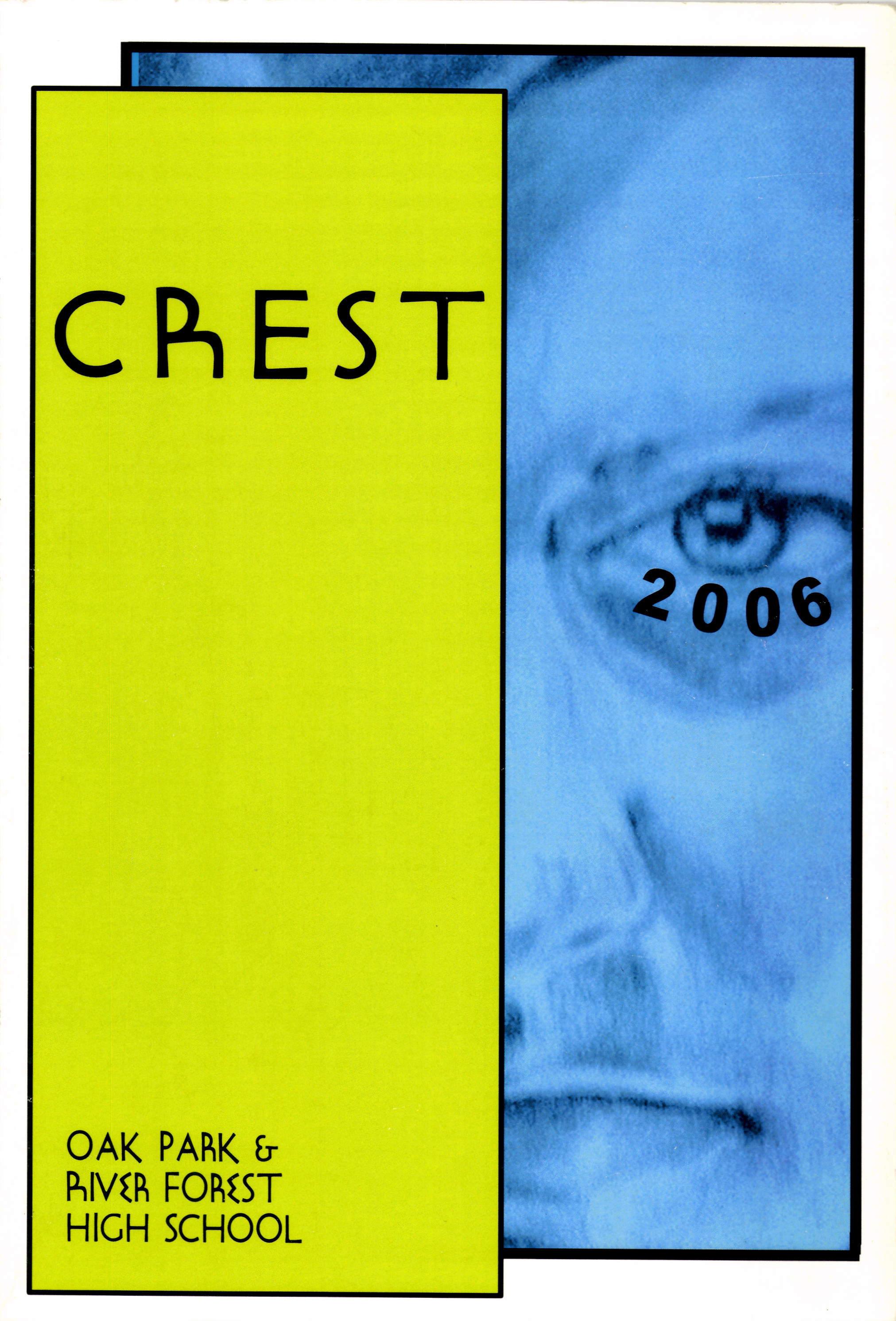
i. * at1 2 0 06 I ,.1 t'rr*a !'{q+-.. + ilt ChEsT OAK PABK tr hIVTB FORTST HICH SCHOOL

THE CREST, FORIITERLYKNOWN ASTHE LITERARY TABUI,II, HAS BE,EN PUBLISHE,D SINCE 1895 BY THE STUDE,NTS OF OAK PARK AND RIVE,R FORE,ST HIGH SCHOOL
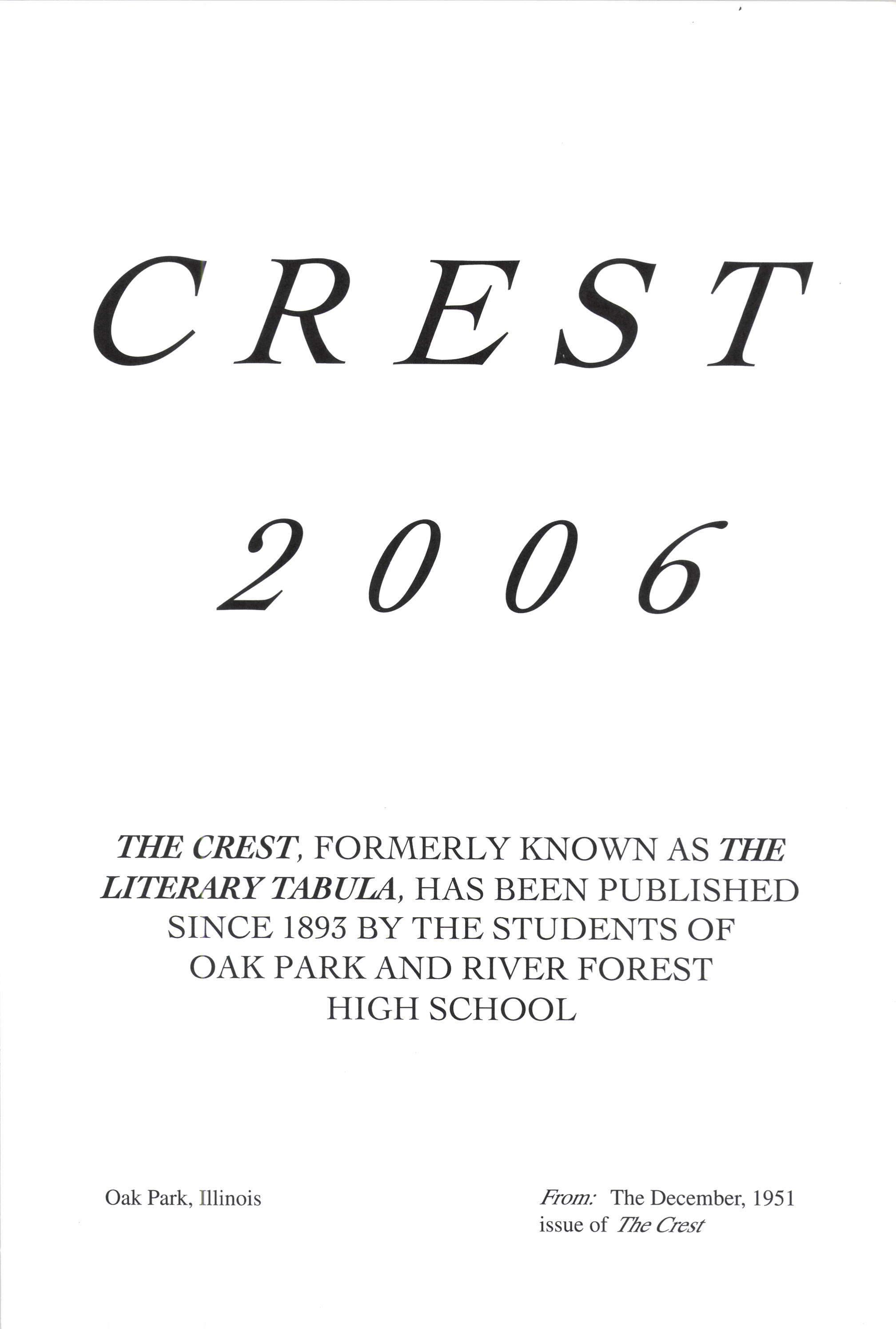
Oak Park, Illinois
From: The December, 1951 issue of 7he Aest
ST 2006
Thankyou Oak Park River Forest High School's Booster Club
This year the Booster Club of Oak Park and River Forest High School made it possible for Crest to purchase the hardware and software that makes this publication possible.
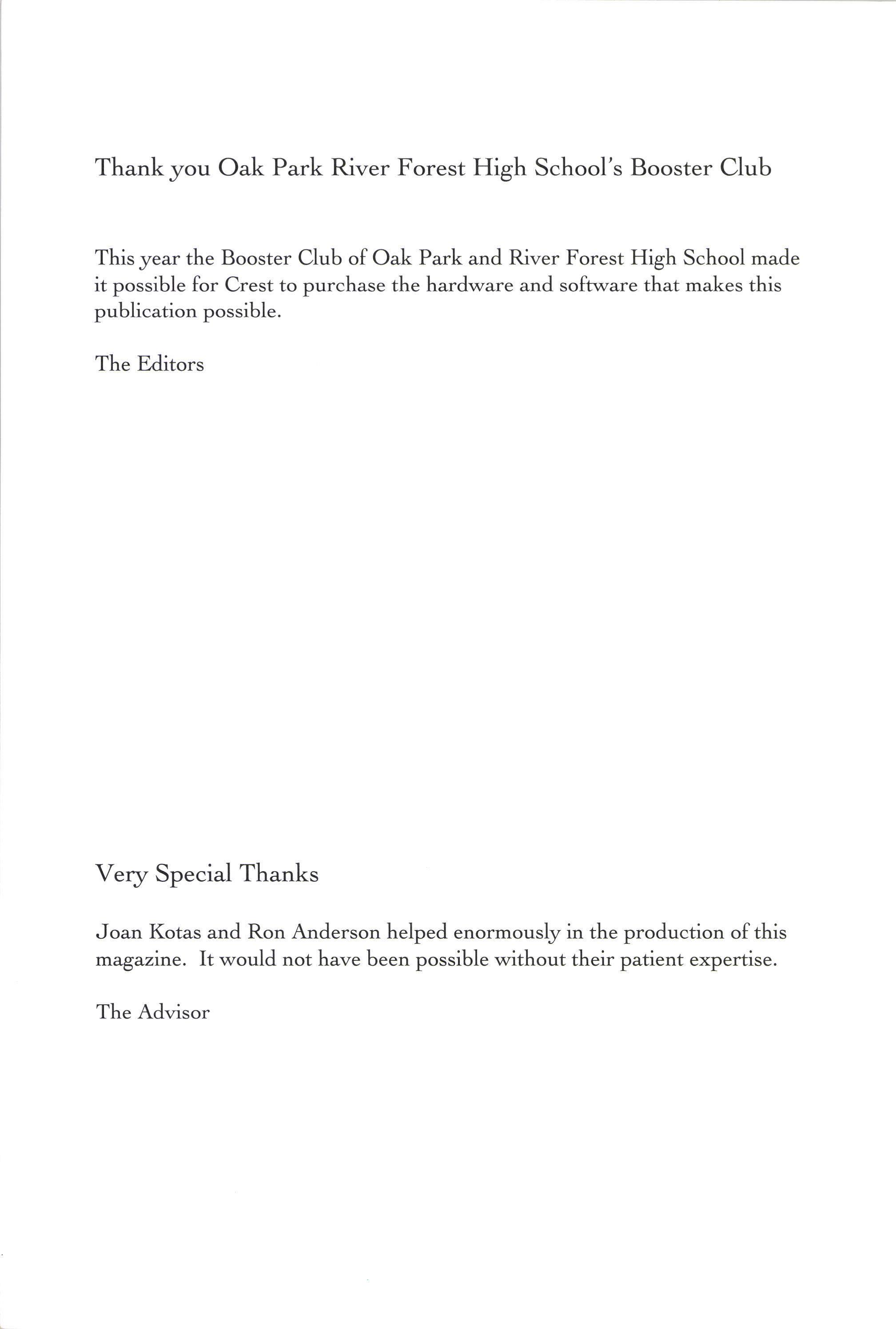
The Editors
V"ry Special Thanks
Joan Kotas and Ron Anderson helped enormously in the production of this magazine. It would not have been possible without their patient expertise.
The Advisor
Goodbye to a Good Friend
Thomas C. McCoy, 1944 - 2005 Faculqr member of Oak Park & River Forest High School, 1968 - 2005
Tom McCoy taught in the applied art diwision of Oak Park and River Forest High School for thirqzyears. He is fondly remembered as not only personable and friendly, but incredibly generots. Crettwas lucky to have received his dedication, time, and support in so manyyears of its publication. He will be missed dearly.
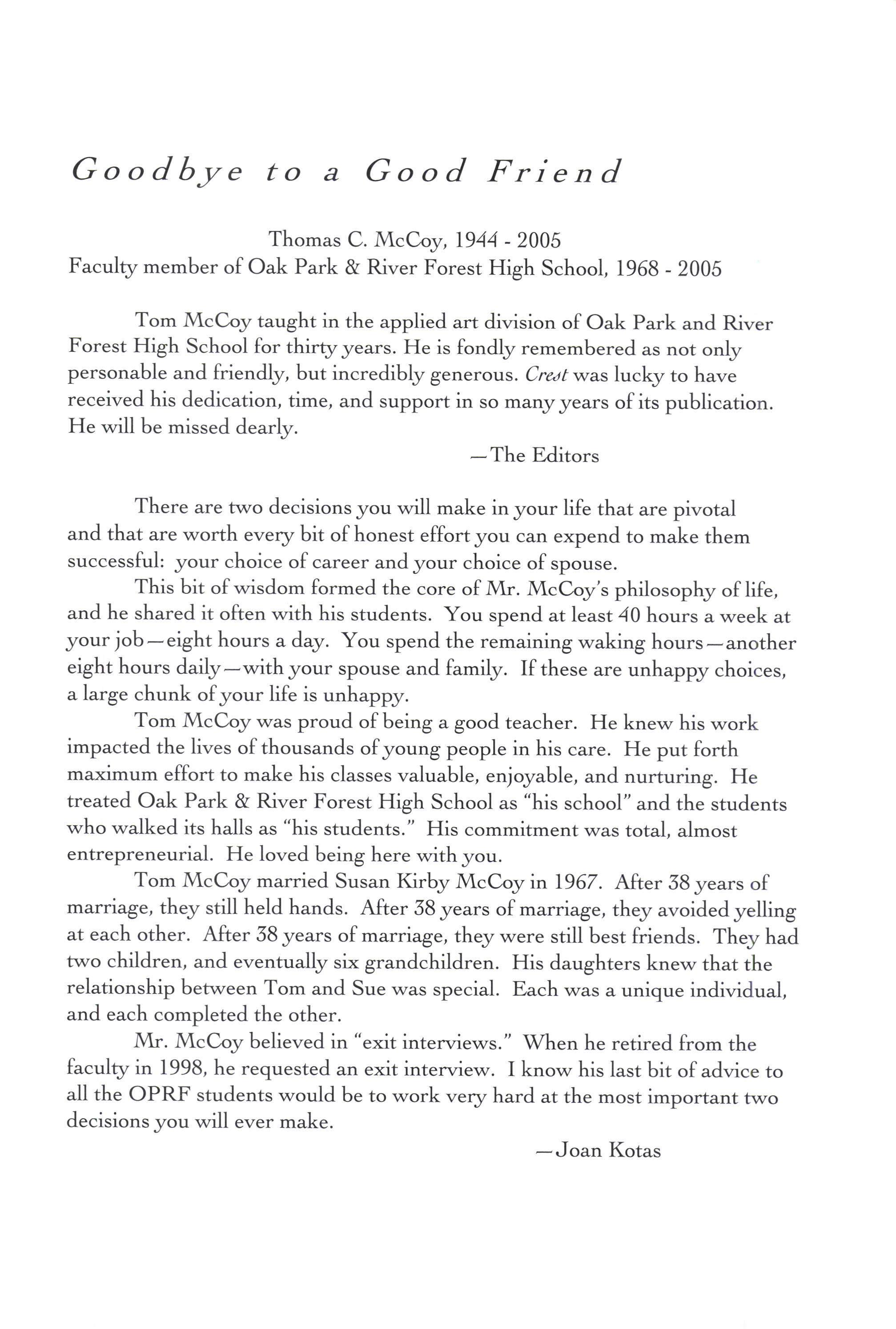
-The Editors
There are two decisions you will make in your life that are pivotal and that are worth every bit of honest effort you can expend to make them successful: your choice ofcareer andyour choice ofspouse.
This bit of wisdom formed the core of Mr. McCoy's philosophy of life, and he shared it often with his students. You spend at least 40 hours a week at your job-eight hours a day. You spend the remaining waking hours-another eight hours daily-withyour spouse and family. If these are unhappy choices, a large chunk ofyour life is unhappy.
Tom McCoy was proud of being a good teacher. He knew his work impacted the lives of thousands of young people in his care. He put forth maximum effort to make his classes valuable, enjoyable, and nurfuring. He treated oak Park & River Forest High School as "his school" and the students who walked its halls as "his students." His commitment was total, almost entrepreneurial. He loved being here with you.
Tom McCoy married Susan Kirby McCoy in 1967. After S8years of marriage, they still held hands. After 58 years of marriage, they avoided yelling at each other. After 58 years of marriage, they were still best friends. They had two children, and eventually six grandchildren. His daughters knew that the relationship between Tom and Sue was special. Each was a unique individual, and each completed the other.
Mr. McCoy believed in "exit interviews." When he retired from the faculqr in 1998, he requested an exit interview. I know his last bit of advice to all the OPRF students would be to work very hard at the most important two decisions you will ever matr<e.
-Joan Kotas
Father to Daughter
Photos
B safe E house D fort [,ove Poem to Morocco Untitled Face
Untitled There's a River in the Studio Querencia A Cornfield Like All Good Things The Hours America Fifty Years Older 'Welcome, Eva The Tempest Flower Untitled Power's Ebb and FIow in Romance Childless [,eaving Home With a Bag The Scantron as a Map Juvenile Cicadas Pen and Ink Narc A Hunting Trip Bones B Minor Buzz Burrito Music Man Jewelry Box Untitled Mercedes Benz The Toll Collector Atag'hi Guilt
My Place Untitled In Another Country Thoughts From the Superdome Untitled Size 0 Untitled Trees
The Great Hunter ofthe Suburbs
Tasr,B oF CoNTENTS
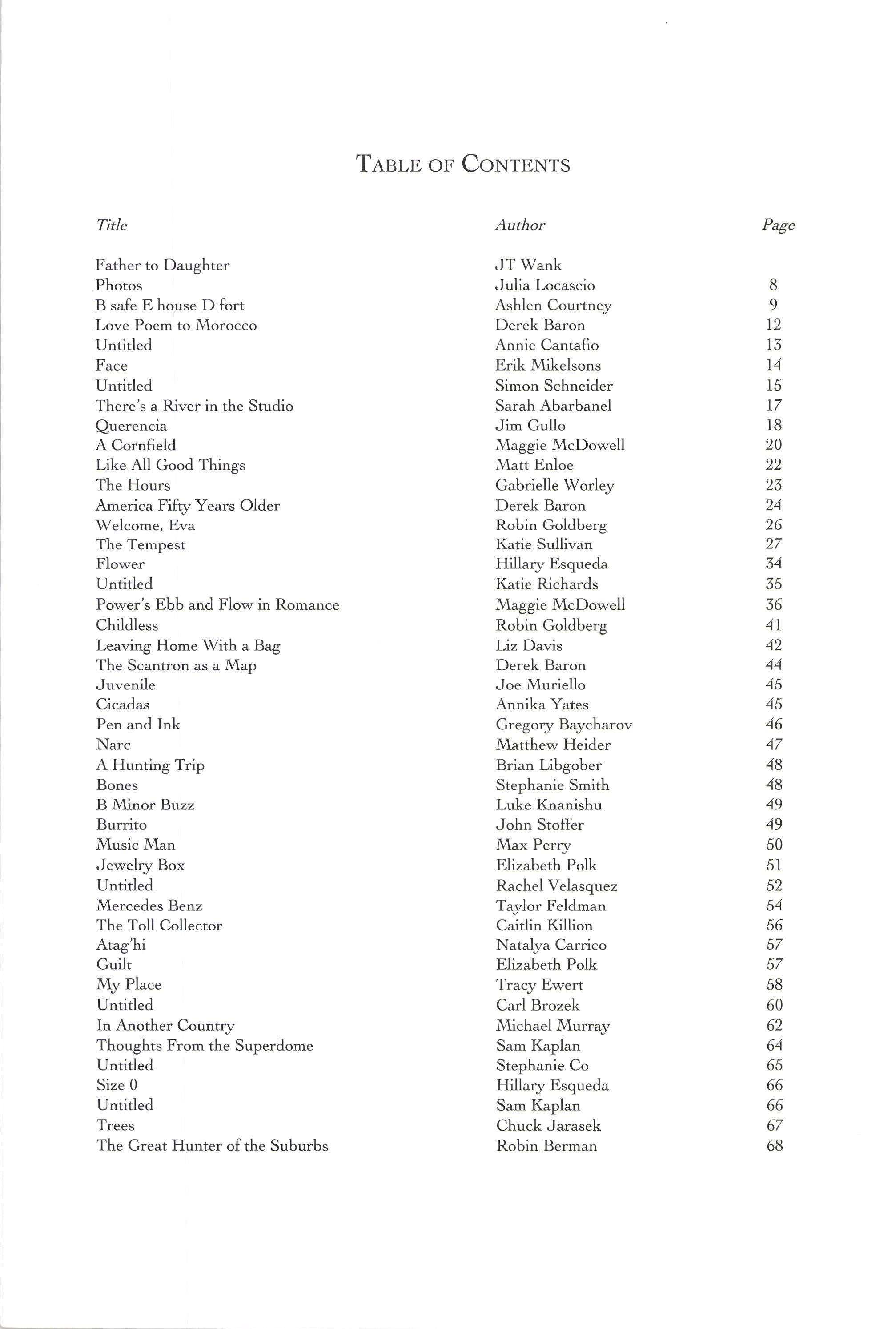
Author
JT Wanl< Julia Locascio Ashlen Courtney Derek Baron Annie Cantaflo Erik Mikelsons Simon Schneider Sarah Abarbanel Jim Gullo Maggie McDowell Matt Enloe Gabrielle Worley Derek Baron Robin Goldberg Katie Sullivan Hillary Esqueda Katie Richards Maggie McDowell Robin Goldberg Liz Dawis Derek Baron Joe Muriello Annika Yates Gregory Baycharov Matthew Heider Brian Libgober Stephanie Smith Luke Knanishu John Stoffer Max Perry Elizabeth Polk Rachel Velasquez Taylor Feldman Caitlin Killion Natalya Carrico Elizabeth Polk Tracy Ewert Carl Brozek Michael Murray Sarn Kaplan Stephanie Co Hillary Esqueda Sam Kaplan Chuck Jarasek Robin Berman
P"€" 8 9 t2 t3 l4 t5 t7 18 20 22 23 24 26 27 34 35 36 4L 42 44 45 45 46 47 48 48 49 49 50 5l 52 54 56 57 57 58 60 62 64 65 66 66 67 68
Title
Tnsr.B or CoNrBNrs
Title Author
To Follow Only Silence
Simon Schneider
Untitled Alison Brackley Waking Up Barbara Chudoba Mailbox Claire Lombardo
For the Park Walk Sarah Abarbanel Midnight Pollution Kendra Zager
Helped Carl Brozek Swan Phillip Rivera
Selected Spoken Word Pieces
Donorica Harris, Brandon Long, Maria Villeda, Amy Lutz, Sarah Chambliss, Alicia Ludwig, Julius Cousin, Jasmine Grayer, Gabrielle'W'orley, Tabitha Watson, Michael Willis, Jacquanet Goggins, Alison Barthwell, Yasmin Abdalla, Iman Shumpert, Fanisha Calvert A Joke on a Drunken Beggar Stephanie [,ee Five Hundred Eighqz Seven Sarah I-eitson Mr. Weatherman Kirsten Rusinak Suffocate the Silence Sky Pickren Solo Teddy Swenson Letter to Dr. King Alex MacMillan Ice Peter Kahn No Longer A Sonnet Carling FitzSimmons Peppered Peter Kahn Play-Fighting Tom Re;,molds-Ejzak Intelligent Elephant Richard Zabransky
The Cars Claire Lombardo Rhinestones Carly Beach
The Love [,aws of India Alexis Sage Man and Woman Rachel Johnson A Discussion Han Cui Lips Jasna Delic
A Slightly Bigger Book Tom Re;.'nolds-Ejzak Cracked Robin Berman Untitled Jake Linne LDY N BLU Alex Mufson
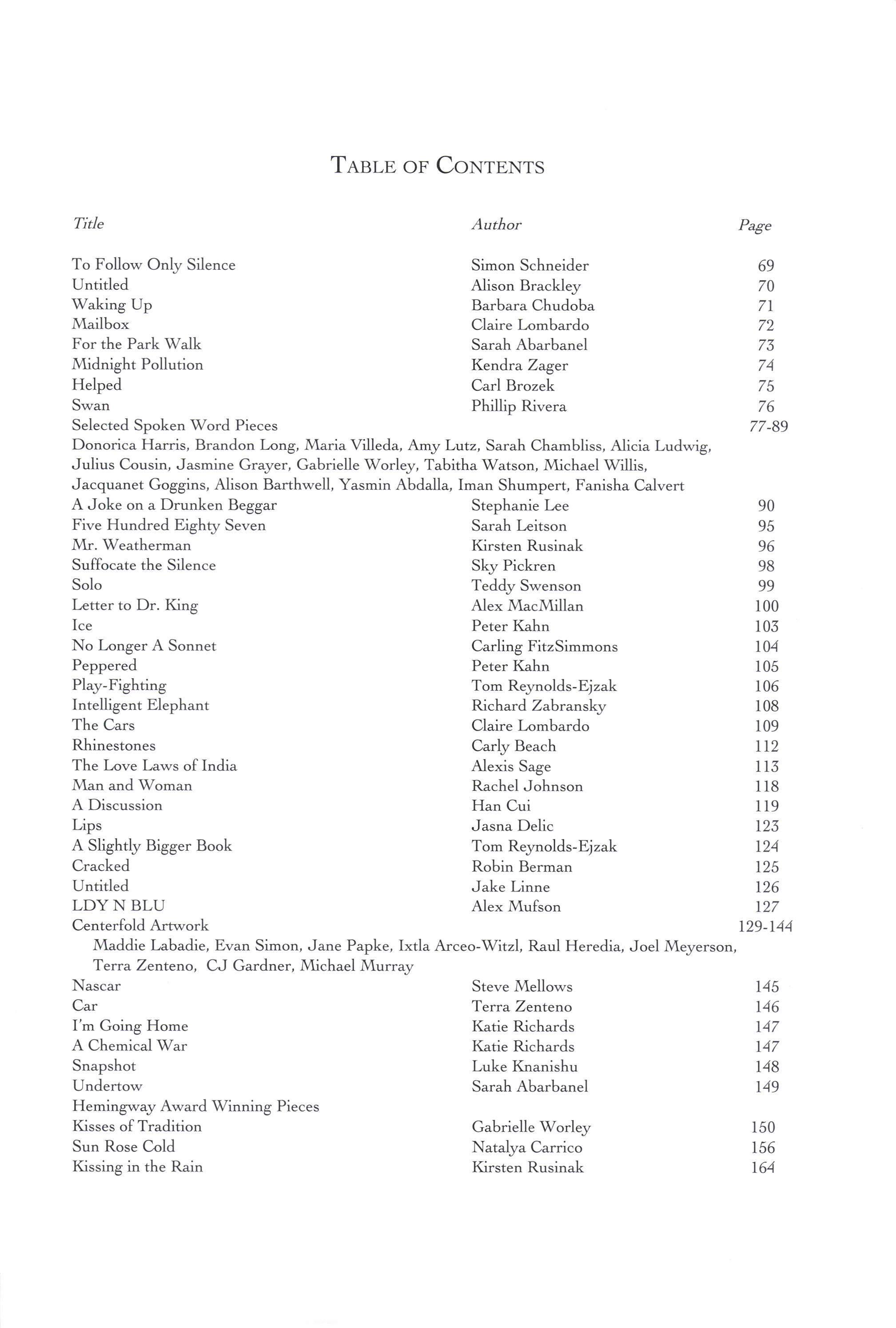
Centerfold Arrwork
Maddie Labadie, Evan Simon, Jane Papke, Ixtla Arceo-Witzl, Raul Heredia, Joel Meyerson, Terra Zenteno, CJ Gardner, Michael Murray Nascar Steve Mellows Car Terra Zenteno
I'm Going Home Katie Richards
A Chemical'War Katie Richards Snapshot Luke Knanishu Undertow Sarah Abarbanel
Hemingway Award Winning Pieces
Kisses of Tradition Gabrielle Worley Sun Rose Cold Natalya C,arrico Kissing in the Rain Kirsten Rusinak
Prg, 77-89
69 70 7l 72 75 74 75 76 90 95 96 9B 99 100 105 IM 105 106 r08 109 Lt2 113 118 119 t23 t24 125 t26 127 129-t44 145 r46 147 147 148 149 150 r56 164
EDITORS-IN-CHIEF
Sarah Abarbanel Claire Lombardo
EDITORIAL BOARD
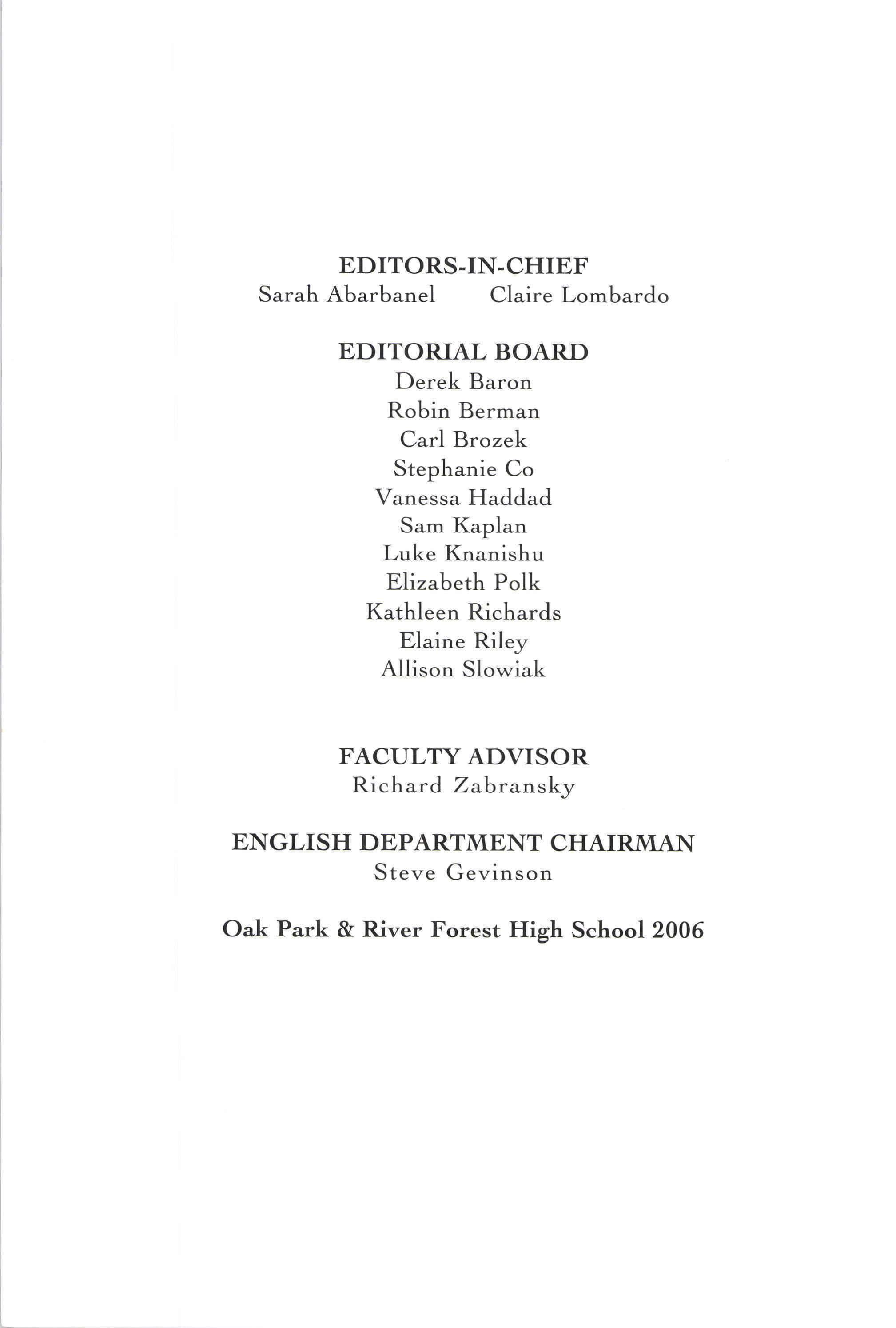
Derek Baron Robin Berman Carl Brozek Stephanie Co Vanessa Haddad Sam Kaplan Luke Knanishu Elizabeth Polk Kathleen Richards Elaine Riley Allison Slowiak FACULTY ADVISOR Richard Zabransky
ENGLISH DEPARTMENT CHAIRMAN Steve Gevinson
Oak Park & River Forest High School 2006
CRE,ST 2006
JT Wank
Father To Daughter
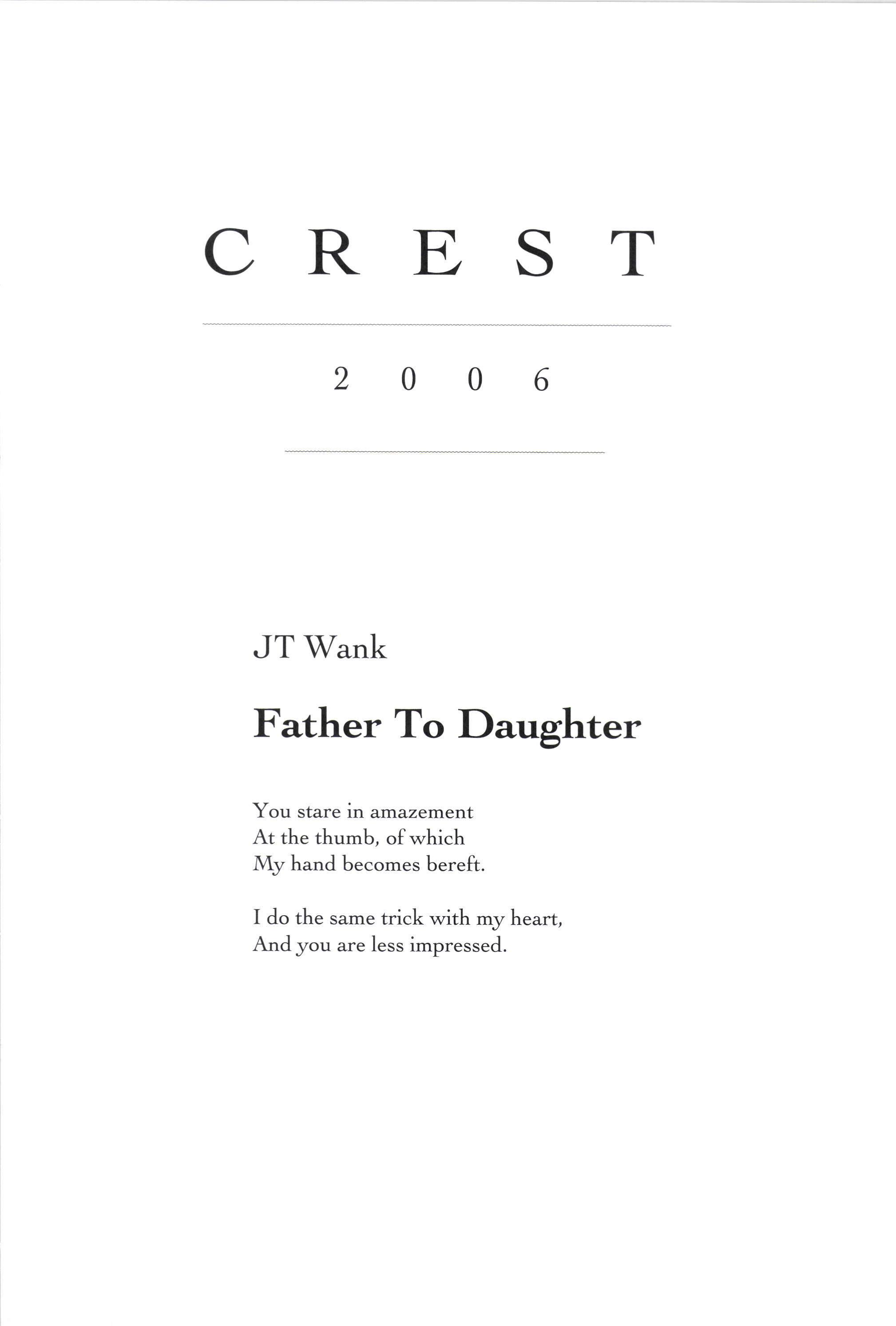
You stare in amazement At the thumb, of which My hand becomes bereft.
I do the same trick with my heart, Andyou are less impressed.
Photos
I.
Limbs entangled
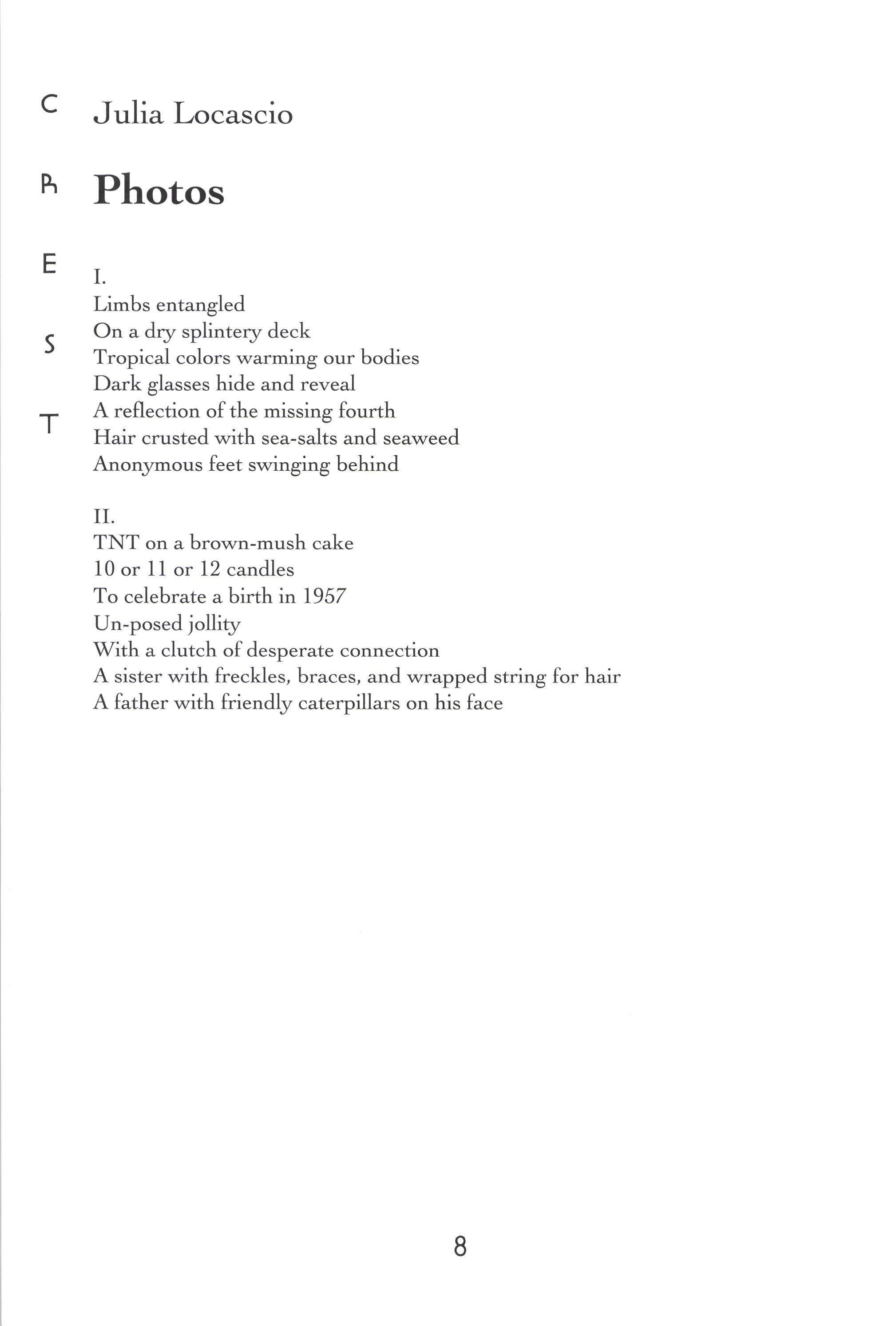
On a dry splintery deck
Tropical colors warming our bodies
Dark glasses hide and reveal
TA reflection of the missing fourth
Hair crusted rvith sea-salts and seaweed
Anon;,,rnous feet swinging behind
II.
TNT on a brown-mush cake
10 or ll or 12 candles
To celebrate a birth iri.1957
Un-posed j"llrty
With a clutch of desperate connection
A sister with freckles, braces, and wrapped string for hair
A father with friendly caterpillars on his face
h E s
c
Julia Locascio
I
B safe E house D fort
There was a place in that ancient house. A place covered by red bricks and green r'qz and a thin layer of love. A periosteum protecting bones -the lovely bones-the bleached bones of a story. A child's story of this place with its ripped and tattered periosteum and its thick endosteum. The thick is the only one that counts. It moved from the old "house" to the new one. Dismembered and chipped, green and gold, and cracked and aging, it brought memories and the comfort, the ancestry, and the secrets.
"They don't make beds like that anJrmore," Grandma used to say when it lived at her house. Back then the paint wasn't chipped. It shown a glossy emerald green (Grandma's favorite color-the color of her eyes), with sparkly gold trimmings. Like a Christmas tree. Back then its periosteum was still intact. No family secrets had yet ripped it apart.
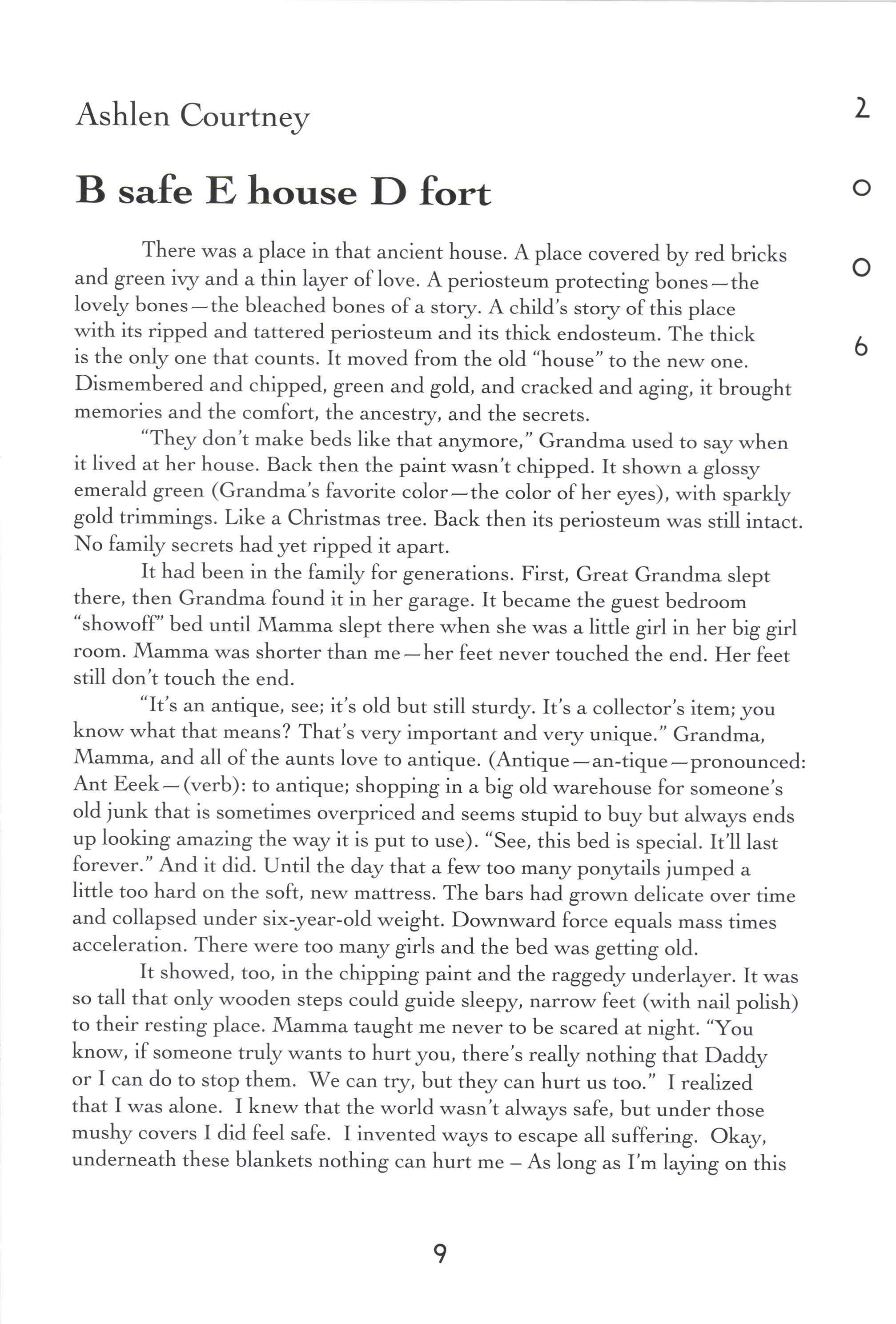
It had been in the family for generations. First, Great Grandma slept there, then Grandma found it in her garage. It became the guest bedroom "showoff" bed until Mamma slept there when she was a little girl in her big girl room. Mamma was shorter than me-her feet never touched the end. Her feet still don't touch the end.
"It's an antique, see; it's old but still sturdy. It's a collector's item; you know what that means? That's very important and very unique." Grandma, Mamma, and all of the aunts love to antique. (Antique-an-tique-pronounced Ant Eeek- (verb): to antique; shopping in a big old warehouse for someone's old iunk that is sometimes overpriced and seems stupid to buy but always ends up looking amazing the way it is put to use). "See, this bed is special. It'll last forever." And it did. Until the day that a few too many ponJrtails jumped a little too hard on the soft, new mattress. The bars had grown delicate over time and collapsed under six-year-old weight. Downward force equals mass times acceleration. There were too many girls and the bed was getting old.
It showed, too, in the chipping paint and the raggedy underlayer. It was so tall that only wooden steps could guide sleepy, narrow feet (with nail polish) to their resting place. Mamma taught me never to be scared at night. "You know, if someone truly wants to hurt you, there's really nothing that Daddy or I can do to stop them. 'We can try, but they can hurt us too." I realized that I was alone. I knew that the world wasn't always safe, but under those mushy covers I did feel safe. I invented ways to escape all suffering. okay, underneath these blankets nothing can hurt me - As long as I'm laying on this
Ashlen
Courtney
L o o 6 9
bed no one can touch me. But then, what about everyone else? How could I save them too? My bed wasn't big enough for everyone.
Before it became my bed, Mamma and I slept on it when we visited Grandma for Holidays. Cousins autographed the bars overhead (underneath). Hilary, Carter, Paige, Ashlen, Corbin, Kelsey, Devin, Chandler, Grayson, Ava. Kissing cousins in a fort. The safehouse. The secretplace. Do Not Enter scribbled on a single sheet of notebook paper (with frrzzies). You must be 5 to live here.
TThere are things I can't remember and things I can't forget. Things still hidden inside our periosteum and things stashed away in Grandma's drawers, Iong-gone. Books stacked one on the other, filling the emp[r space between the old bars and the new mattress. Pictures with fingerprints. Autumn leaves, sticks, small rocks and seashells, pencils and crayons - out of the lines, out of the boundaries. Thieved food, an old and broken pistol stuffed with play, A pinky, 5 notebooks (Hilary, Carter, Paige, Ashlen, Kelsey), tubes of purple, pink, red lipstick. AII sorts of treasures.
Action figures smile down at us from castles and balconies, from bridges and mountains, from trapeze bases and high-ropes, from fighter jets and spaceships, from the moon. From angrylace better, far away from here.
In hose years, we took refuge in the fort. While the parents talked and drank and Grandma drank a little more than we knew, 10 cousins disappeared to a fantasy land where nothing much mattered. We slept there, talked there, invented plays and stories there, held meetings and s6ances there. "Let's bring back someone famous. Let's bring back someone evil. Let's bring back an angel. Let's bring bacL someone who loved us." 'W'e imagined there.

Holidays were special times - times when we were all together. Times when we watched home videos (C..rg, Mark, Kurt, Heidi, Kurt, Corby, Kurt, Kurt, Kurt) and ate together and remembered. Times when kissing cousins made forts under beds and slept on mushy blankets looking up at action figures and hidden treasures covered by an endosteum. But there would be no more Thanksgivings, no more Christmases. Grandma went to rehab and she wasn't coming back.
'We moved the bed to our penthouse in Chicago on the top floor. It stood against the wall near the floor-to-ceiling window in my big girl room. It had wooden steps for me to reach the top and rocks and action figures, and autographs underneath.
The penthouse on the22"d floor included the roof. Our roof with Daddy's plants and Mamma's patio furniture. Except for the door and stairs that were connected to our house, there was only one other way to get up there: the janitor's door which connected from the floor below ours. The janitor's door, Iike ours, was always locked unless there was parental "supert ision."
c h E s
IO
The window by my old bed was big. You could look out the window on the 22"d floor to find freedom. [,ook out and find freedom. Look out and find escape. open in to breathe "life." You could look out the window until somebody jumped. Then you could never look at it again. The ,'indows remained locked and the keys disappeared.
cindy was Institutionalized. I didn't really know her. I was only s. Cindy with eyes like Grandma and blood like nailpolish (cherry sanguine). Did you know that sanguine means both cheerful; optimistic and the color of blood? Quite a paradox. The neighbor next door premeditated her murder when she walked through her open rvindow.
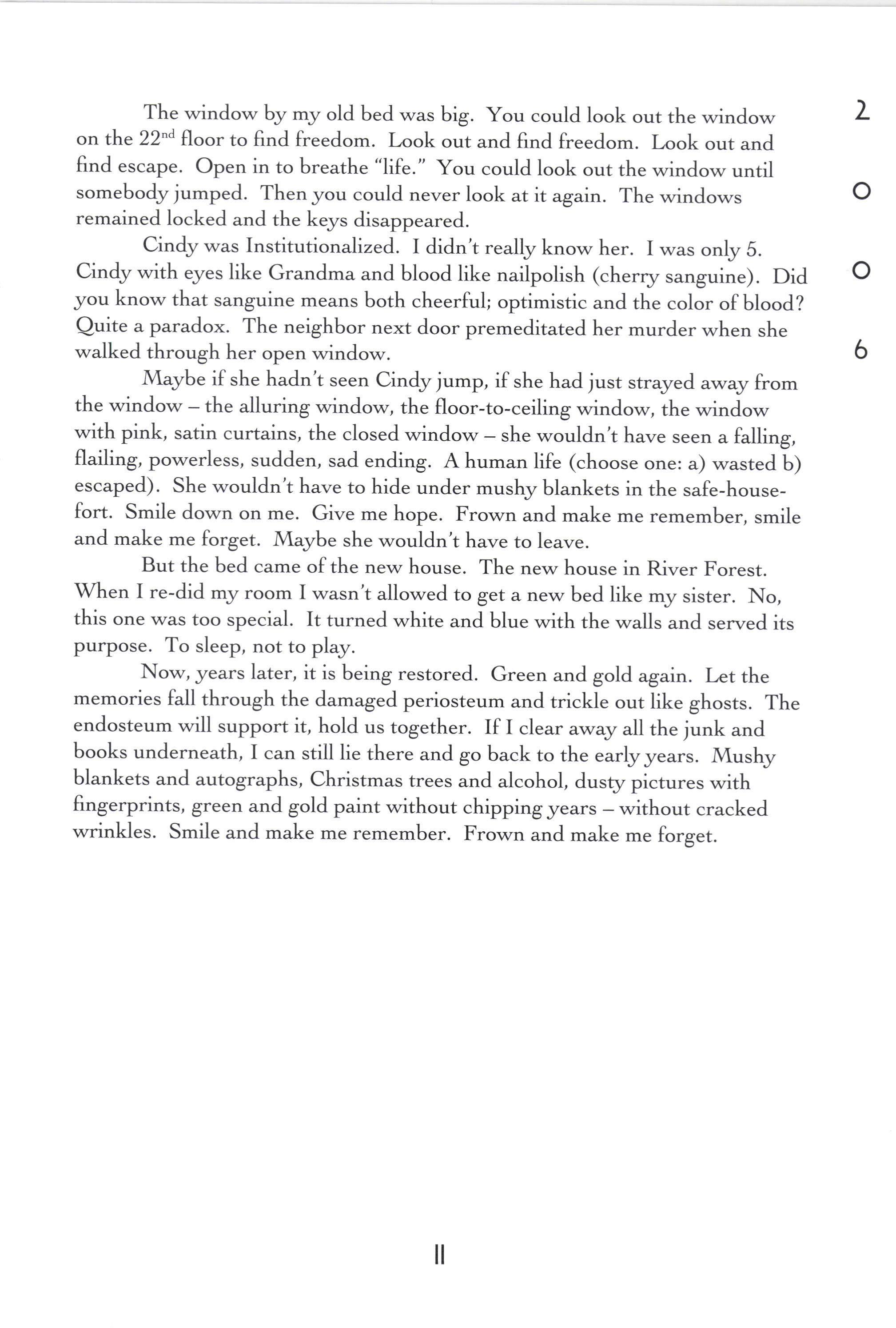
Maybe if she hadn't seen Cindy jr-p, if she had just strayed away from the window - the alluring rvindow, the floor-to-ceiling window, the window with pink, satin curtains, the closed window - she wouldn't have seen a falling, flailing, powerless, sudden, sad ending. A human life (choose one: a) wasted b) escaped). She wouldn't have to hide under mushy blankets in the safe-housefort. Smile down on me. Give me hope. Frown and make me remember, smile and make me forget. Maybe she wouldn't have to leave.
But the bed came of the new house. The new house in River Forest. when I re-did my room I wasn't allowed to get a new bed like my sister. No, this one was too special. It turned white and blue with the walls and served its purpose. To sleep, not to play.
Now, years later, it is being restored. Green and gold again. Let the memories fall through the damaged periosteum and trickle out like ghosts. The endosteum will support it, hold us together. If I clear away all the junk and books underneath, I can still lie there and go back to the earlyyears. Mushy blankets and autographs, Christmas trees and alcohol, dust;r pictures with fingerprints, green and gold paint without chipping years - without cracked wrinkles. Smile and make me remember. Frown and make me forget.
L o o 6
Derek Baron
Love Poern To Morocco
Your feet are two dead twin iguanas; They remain hidden and nimble. Your hips are a great crane Whose wings Make the Wind On which Its young will soon glide. Your ribs are very much like a Jovial circus tent; natal and exploitive
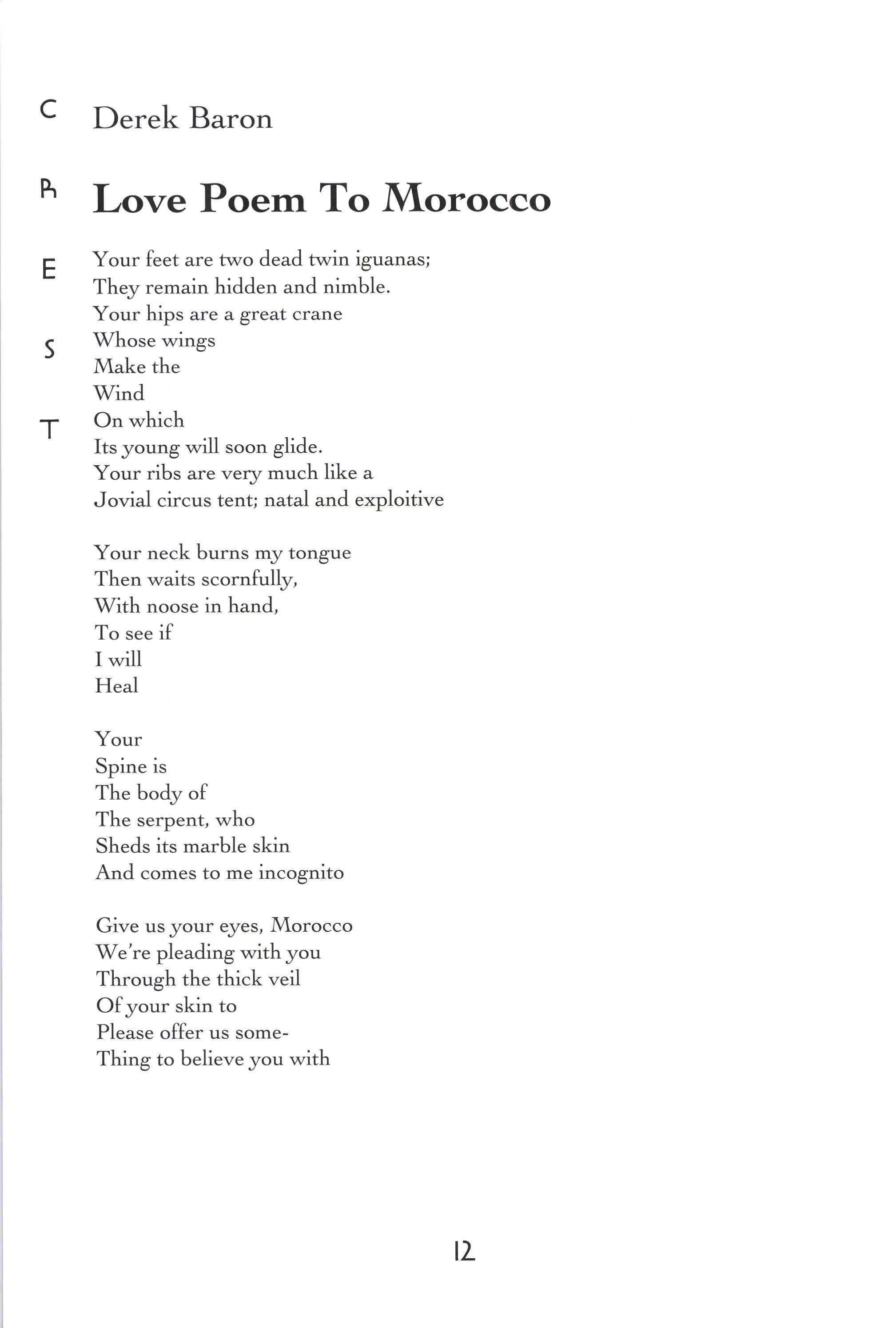
TYour neck burns my tongue Then waits scornfully, With noose in hand, To see if I will Heal Your Spine is The body of The serpent, who Sheds its marble skin And comes to me incognito
Give usyour eyes, Morocco 'W'e're pleading with you Through the thick veil Of your skin to Please offer us someThing to believeyou with
c H E s
IL
Annie Cantafio
Untitled
Her palms were raining.
Fields of peach jumped hills of veins, Tripping in dry wrinkled creeks.
Peach was freckled with brown circles and Ran to tips of ten red shields.
Holding a hammer, She pinned the walls together, Closed the box with a roof, Added a perch under doorless entrance.
Aunt Mary was a grass hut in Fiji. My domino thoughts froze, "Doyou need help?"
Her blinded mind brushed past my cheek, "Ifyou leave..."
And Maqf rubbed the bird house corners. Tap for sturdiness Watch it stand.
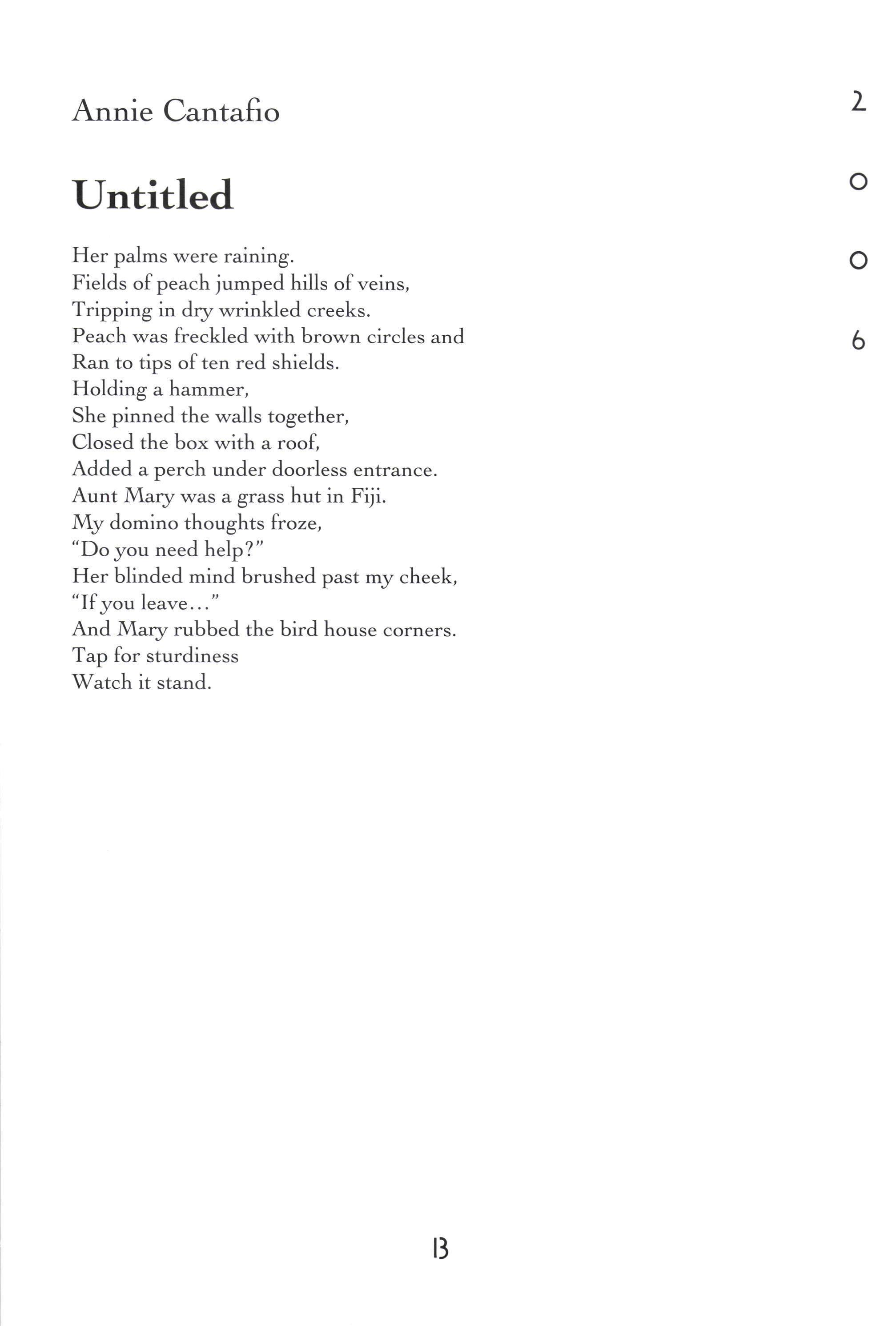
L o o 6 r]
Erik Mikelsons
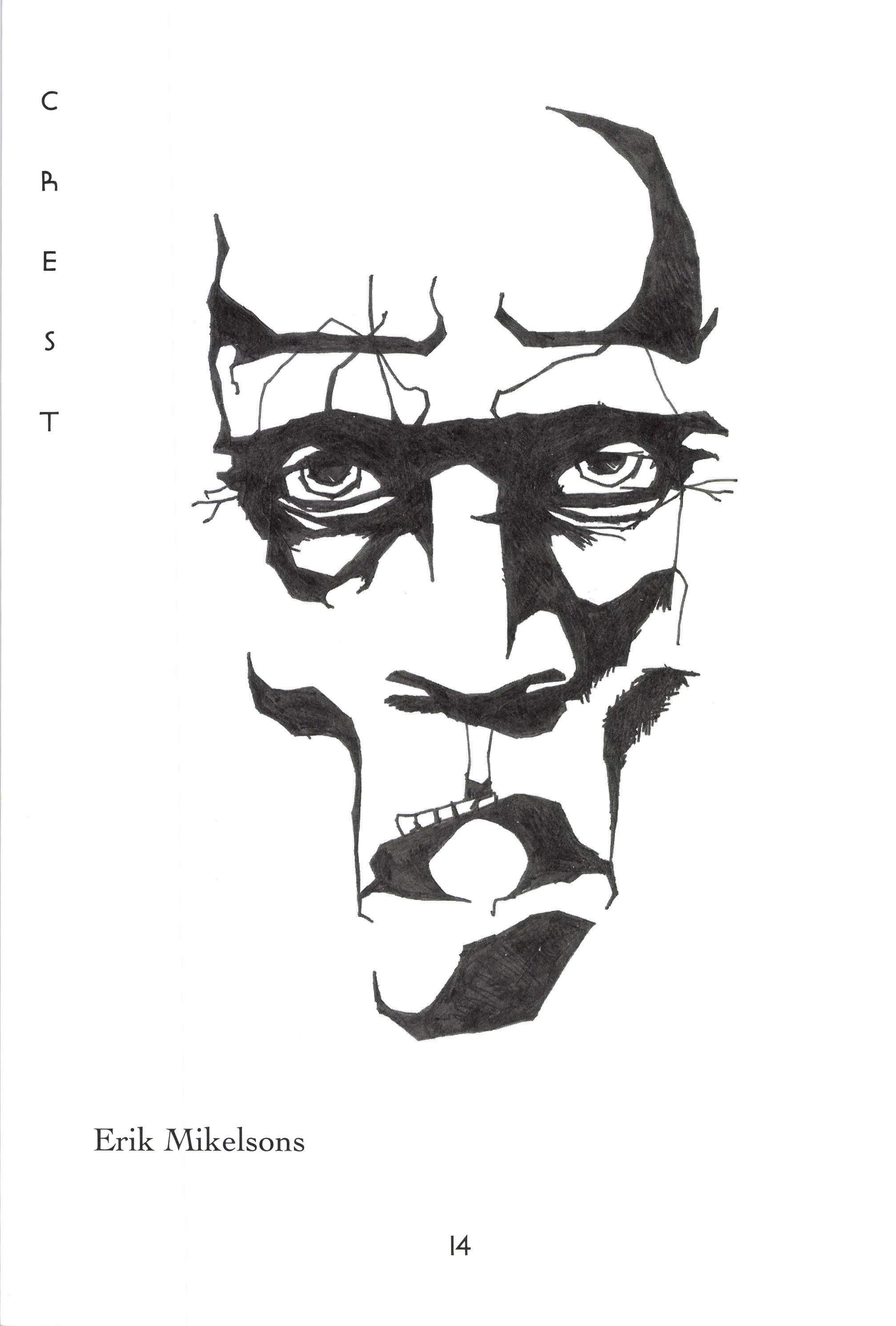
c h E s T
t4
Simon Schneider Untitled
It would have been the largest concentrated pile of trash they'd ever seen, had it been a pile; instead it drifted aimlessly on the surface of Lake Michigan. They were downtown for the afternoon with parents in hopes of seeing the Museum of Science and Industry, and paused for lunch on the lake. what greeted them was grotesque: cans, bottles, apple cores, plastic bags, all floating delicately on the water's surface like a sick film of human refuse. At first it shocked them, then intrigued them, then disgusted them. One ventured a theory that garbage barge of some kind had lost its load, or perhaps that the underwater currents naturally deposited all of the lake's garbage at this spot. But they soon accepted the invariable futility of such theories; the garbage was here, regardless ofthe reason.
Perhaps they had no reason to be disgusted by the garbage; the garbage was merely a victim of horrible abandonment on the part of its multitude of previous owners. Consider, for example, the floating beer can at which they momentarily stared at it drifted slowly towards the shore. It had been a cherished friend and companion at a particularly bangin' party, cast aside after the night was through, betrayed by its once-best friend, without even the dignity of being recycled. Or the occasional bits of orange peel they found amid the heap of trash. Abandoned and forlorn, the trash floated sadly on, wherever the merciless current cared to take it. Not even the disgust of two inquisitive children could lower its pride further.
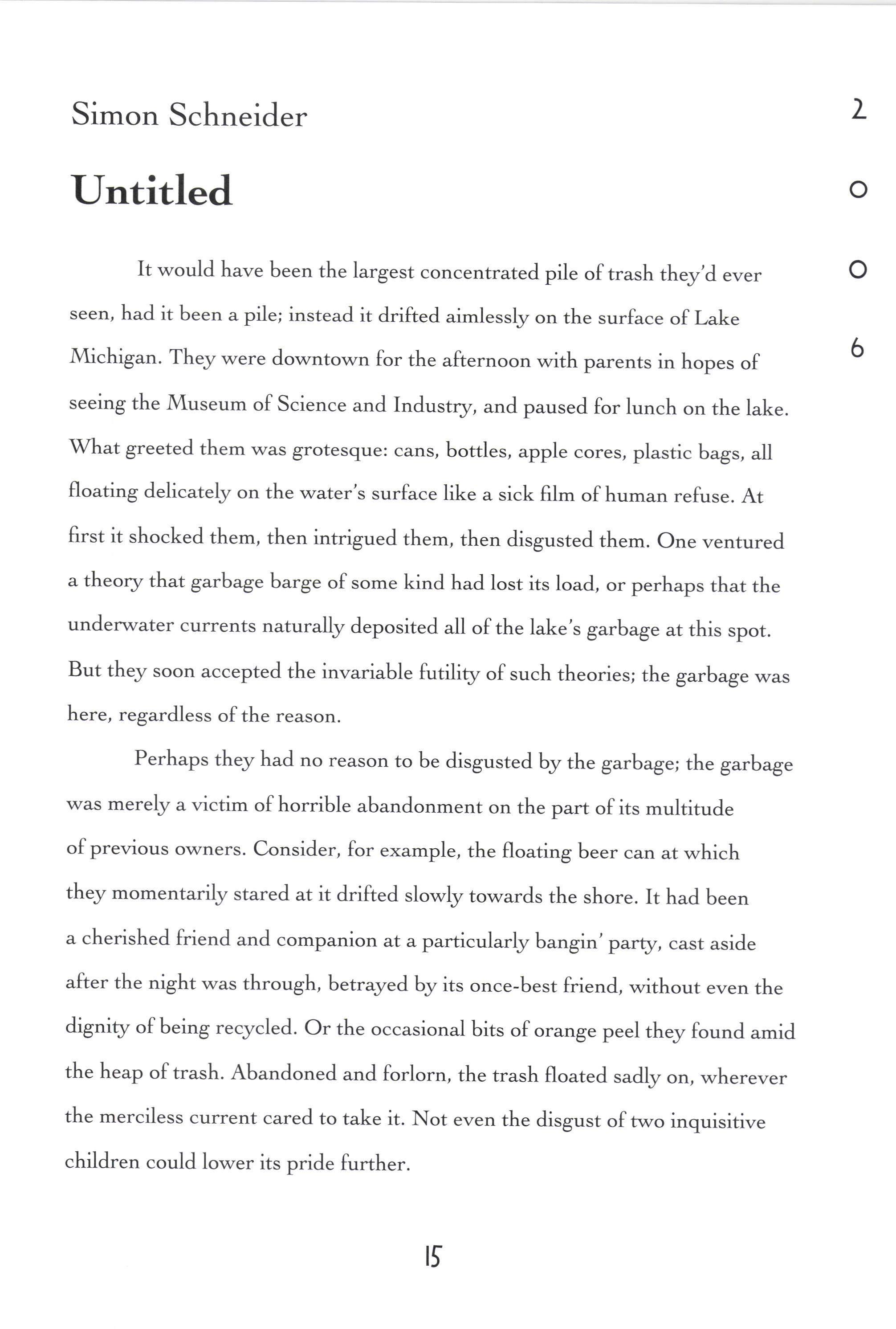
L o o 6 I5
Yet even amid such despair, hope remained - hope that someday, such senseless neglect and mistreatment of human refuse would no longer be h tolerated, and that trash would receive the respect it deserved. That people would recycle their recyclables and compost their biodegradables, and that EJ such a vast amount of trash would be better disposed of and cared for. For, , truly, a socieqr can be judged by how it treats its most lowly, including its refuse; what self-respecting sociegr could sit back and idly watch as its rejected
T materials went to waste and slowly killed the planet? It was a good dream, but it was only a dream; for now, the trash would remain. Those same children slowly ate their lunches in the sight of the floating bob of rubbish, sadly resigned to the ruination of a once-beautiful stretch of lakeside. But they could find no peace in their lunch, for the floating apple cores strange\r mirrored the fresh apples which they would have so blissfully eaten; the plastic bags caught helplessly in the current seemed so similar to the plastic bags which contained their otherwise delicious peanut butter sandwiches, and the sweet taste of their cola was bittersweet, tainted by the sight of so many abandoned aluminum cans bobbing purposelessly in the water. Anguished, yet contemplative, having finished their lunch, they made their way to the museum to further their understanding of the folly of man.

C
I6
There's A River In The Studio
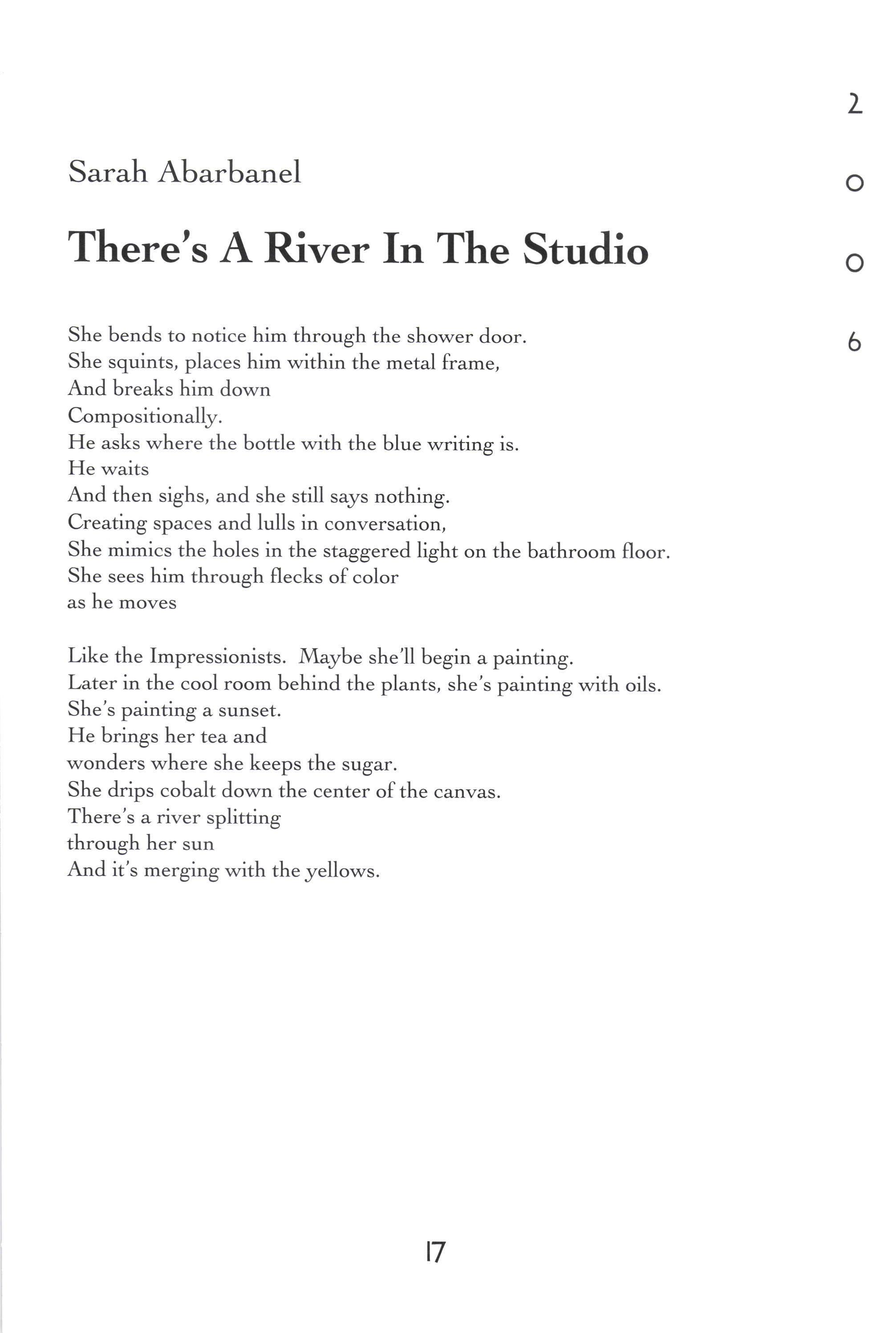
She bends to notice him through the shower door. She squints, places him within the metal frame, And breaks him down Compositionally.
He asks where the bottle rvith the blue writing is. He waits
And then sighs, and she still says nothing. Creating spaces and lulls in conversation, She mimics the holes in the staggered light on the bathroom floor She sees him through flecks of color as he moves
Like the Impressionists. Maybe she'll begin a painting. Later in the cool room behind the plants, she's painting with oils. She's painting a sunset. He brings her tea and wonders where she keeps the sugar. She drips cobalt down the center of the canvas. There's a river splitting through her sun And it's merging with theyellows.
Sarah
Abarbanel
t7 L o o 6
Ouerencia
Jim Gullo
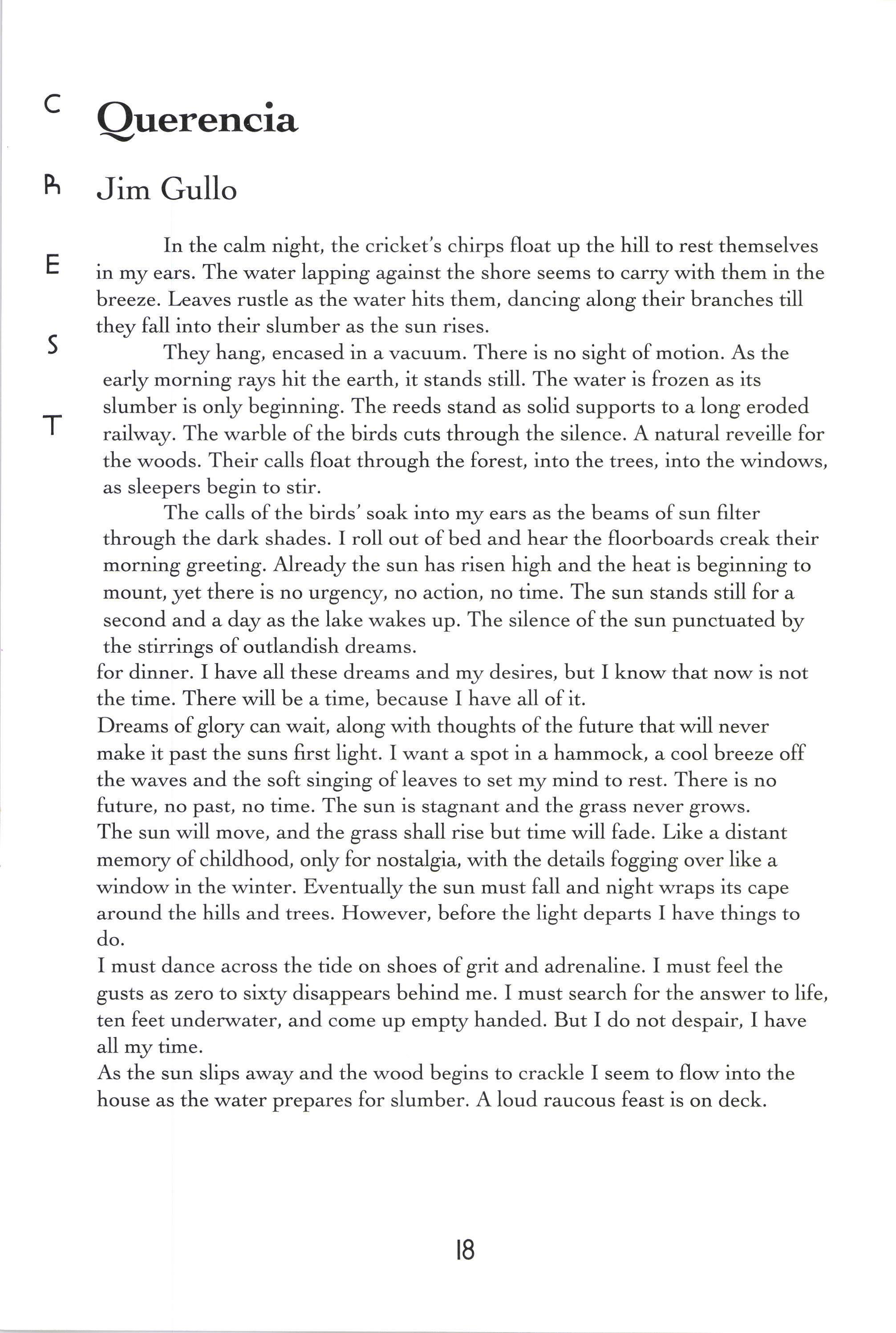
In the calm night, the cricket's chirps float up the hill to rest themselves in my ears. The water lapping against the shore seems to carry with them in the breeze. Leaves rustle as the water hits them, dancing along their branches till they fall into their slumber as the sun rises.
They hang, encased in a vacuum. There is no sight of motion. As the early morning rays hit the earth, it stands still. The water is frozen as its slumber is onl;r beginning. The reeds stand as solid supports to a long eroded railway. The warble of the birds cuts through the silence. A natural reveille for the woods. Their calls float through the forest, into the trees, into the windows, as sleepers begin to stir.
The calls of the birds' soak into my ears as the beams of sun filter through the dark shades. I roll out ofbed and hear the floorboards creak their morning greeting. Already the sun has risen high and the heat is beginning to mount, yet there is no urgency, no action, no time. The sun stands still for a second and a day as the lake wakes up. The silence of the sun punctuated by the stirrings of outlandish dreams. for dinner. I have all these dreams and my desires, but I know that now is not the time. There will be a time, because I have all of it. Dreams of glory can wait, along with thoughts of the future that will never make it past the suns flrst light. I want a spot in a hammock, a cool breeze off the waves and the soft singing of leaves to set my mind to rest. There is no future, no past, no time. The sun is stagnant and the grass never grows. The sun will move, and the grass shall rise but time will fade. Like a distant memo{y of childhood, only for nostalgia, with the details fogging over like a window in the winter. Eventually the sun must fall and night wraps its cape around the hills and trees. However, before the light departs I have things to do.
I must dance across the tide on shoes of grit and adrenaline. I must feel the gusts as zero to sixty disappears behind me. I must search for the answer to life, ten feet underwater, and come up empty handed. But I do not despair, I have all mytime.
As the sun slips away and the wood begins to crackle I seem to flow into the house as the water prepares for slumber. A loud raucous feast is on deck.
C h E
s T t8
Nevertheless, tonight is not special; there is no number that can be put on it. It is just lil<e the last and the next, never ending, never the same, never different, alurays desirable. When all the dishes are packed away, and the bellies full and fed, night begins to wrap its cloak around the vvindow frames and stair supports. But before the Iight fully fades, I'll race to sixr;r again, and breathe water to smell pungent petroleum. I must frnd me feet before the night closes in and soar over the waves, just ahead of the darkness. Spent and sluggish I shall return to find night's cover complete. If not for the pin holes in the sky the path would be lost. overhead is my guide, the stars line the sides of the road as I make myway home. Their light flows out of the forest and into the clouds, millions upon millions, an eternal landscape. Always guiding, always shining, flickering for the fireflies.
At the end I rvill fall into the covers, rest my head upon soft goose down and wait for tomorrow. For another day of no worries, no limits and no time.
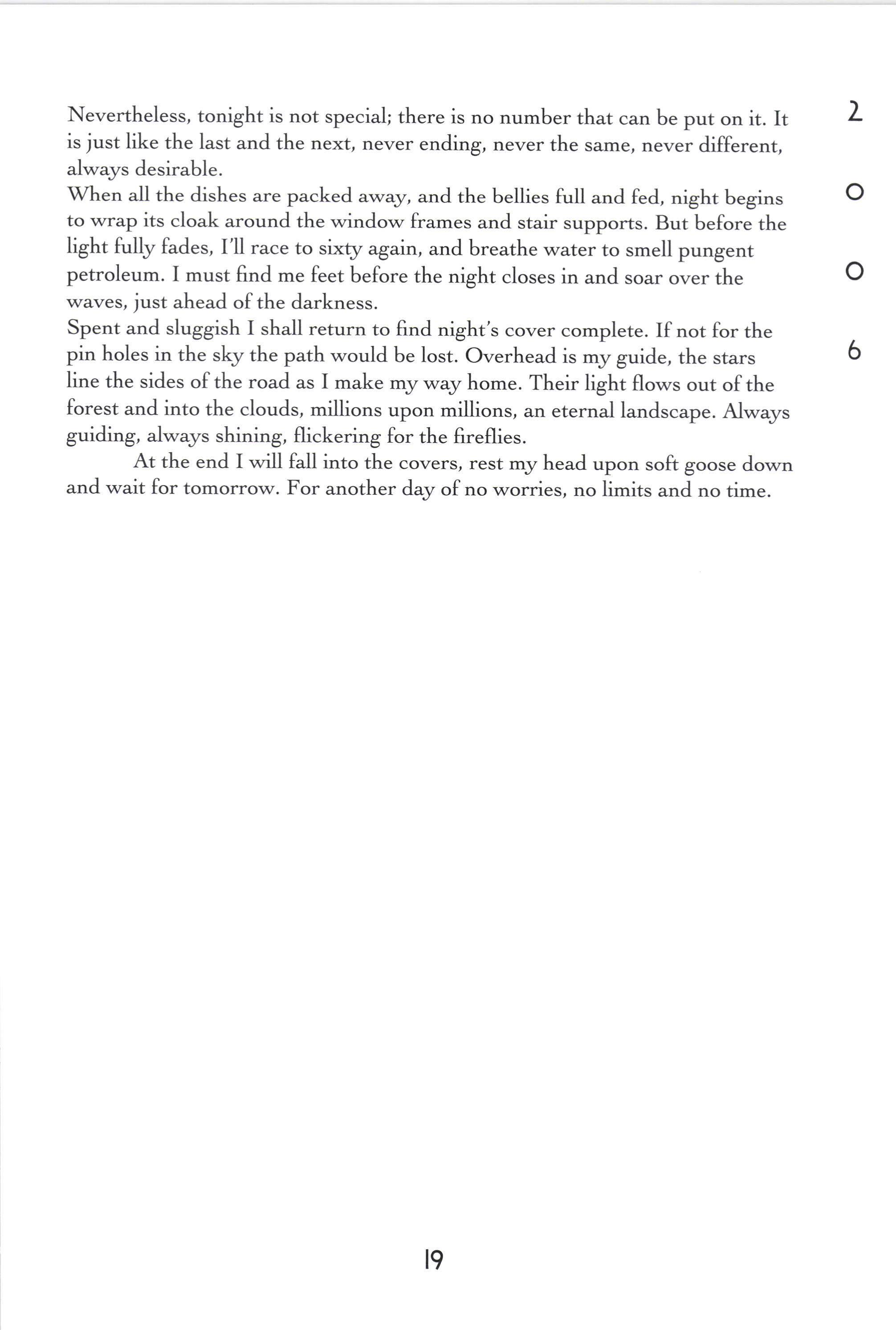
L o o 5 l9
Maggie Mcdowell
A Cornfield
The very first And the very last picture my tired eyes See every day Are the rows and rows and rows of cornTheir roots so deep into the ground But their tops always a'blowin in the wind. I'd hate to be a corn ear. Out there a'blowin, you get all kinds of tastes Of freedom But you're stuck there in the ground so good. Torture- that's hat bein' an ear of corn sounds like to me.
The corn makes me think of myself. I always wanted to find adventure in my life, When I'd imagined myself all tal and grown up.
I guess I thought I'd be more of a seed A blorvin'in the howlin'wind Root-free
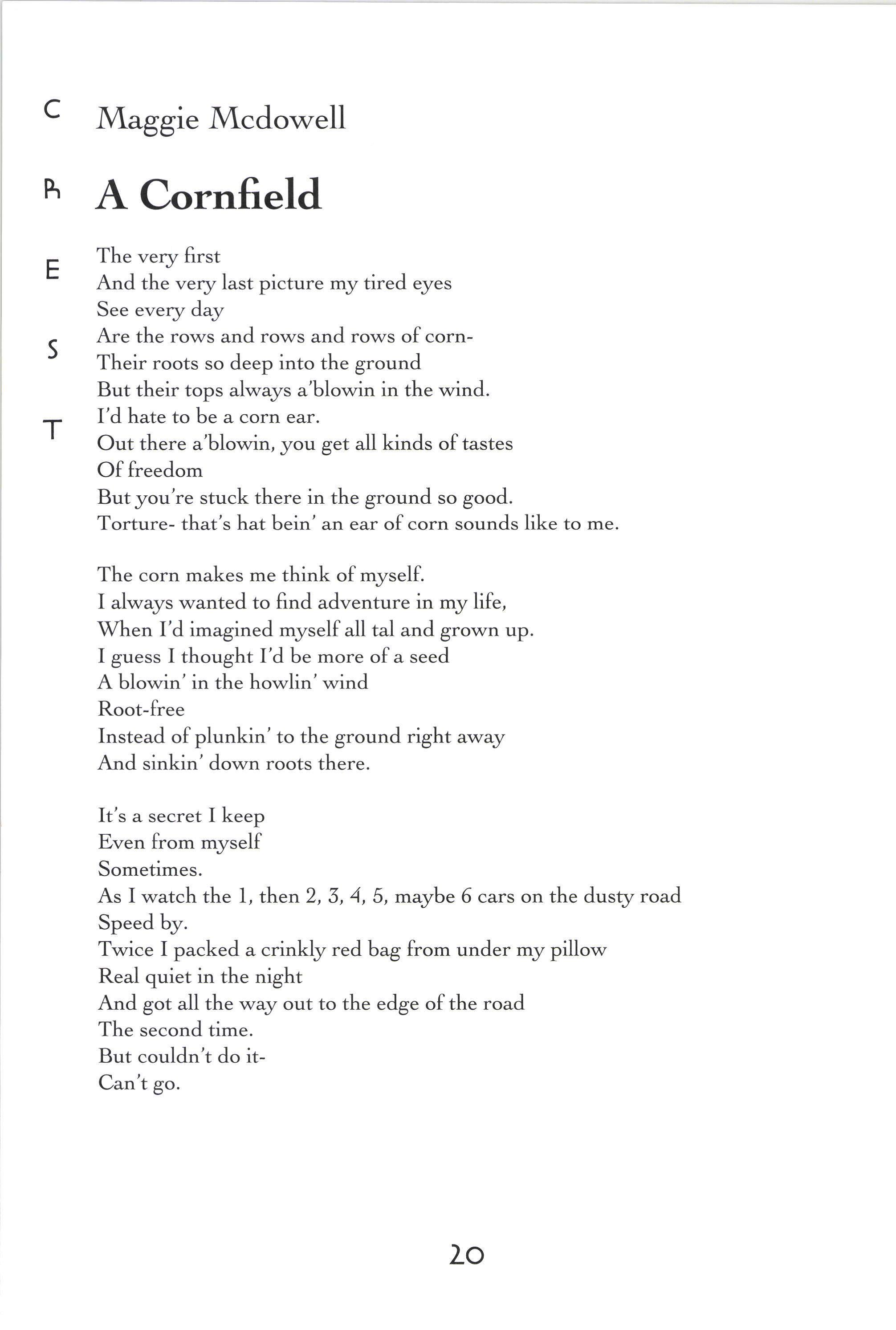
Instead of plunkin' to the ground right away And sinkin'down roots there.
It'sasecretlkeep
Even from myself Sometimes.
As I watch the l, then 2, 3,4, 5, maybe 6 cars on the dusqr road Speed by.
Twice I packed a crinkly red bag from under my pillow Real quiet in the night And got all the way out to the edge of the road The second time. But couldn't do itCan't go.
c h E
s T zo
I love my husband and My beautiful babies. So much.
I do rvith a big part of my heart. But I wasn't ready to Get planted.
I guess, down io -y tingly roots I'm still not.
Good night, corn I'm sorry.
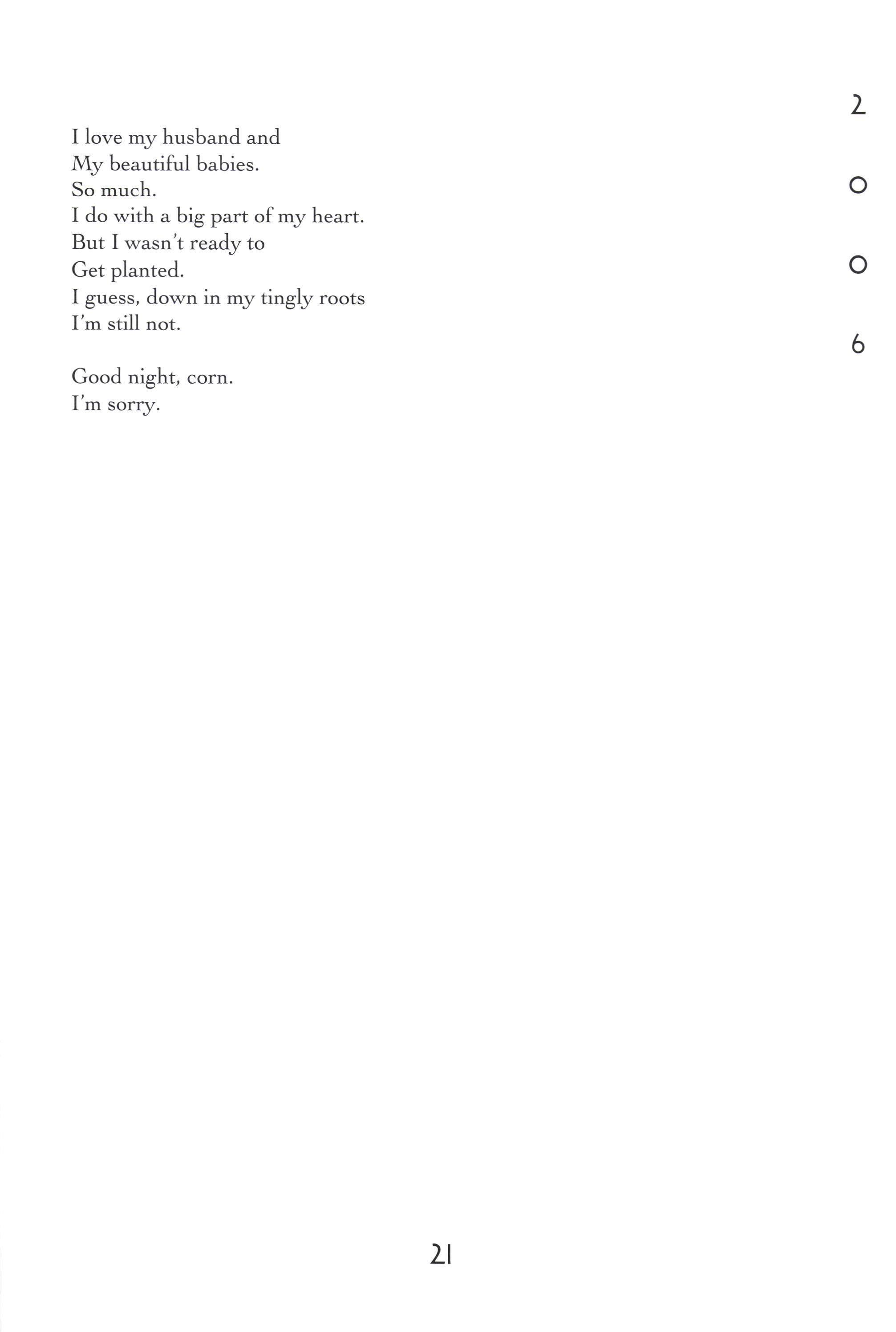
L o o 6 LI
Like Alt Good Things
(This Will Blow Up In Your Face)
When we were gods W'e saw bed sheets, and turn-st;rles.
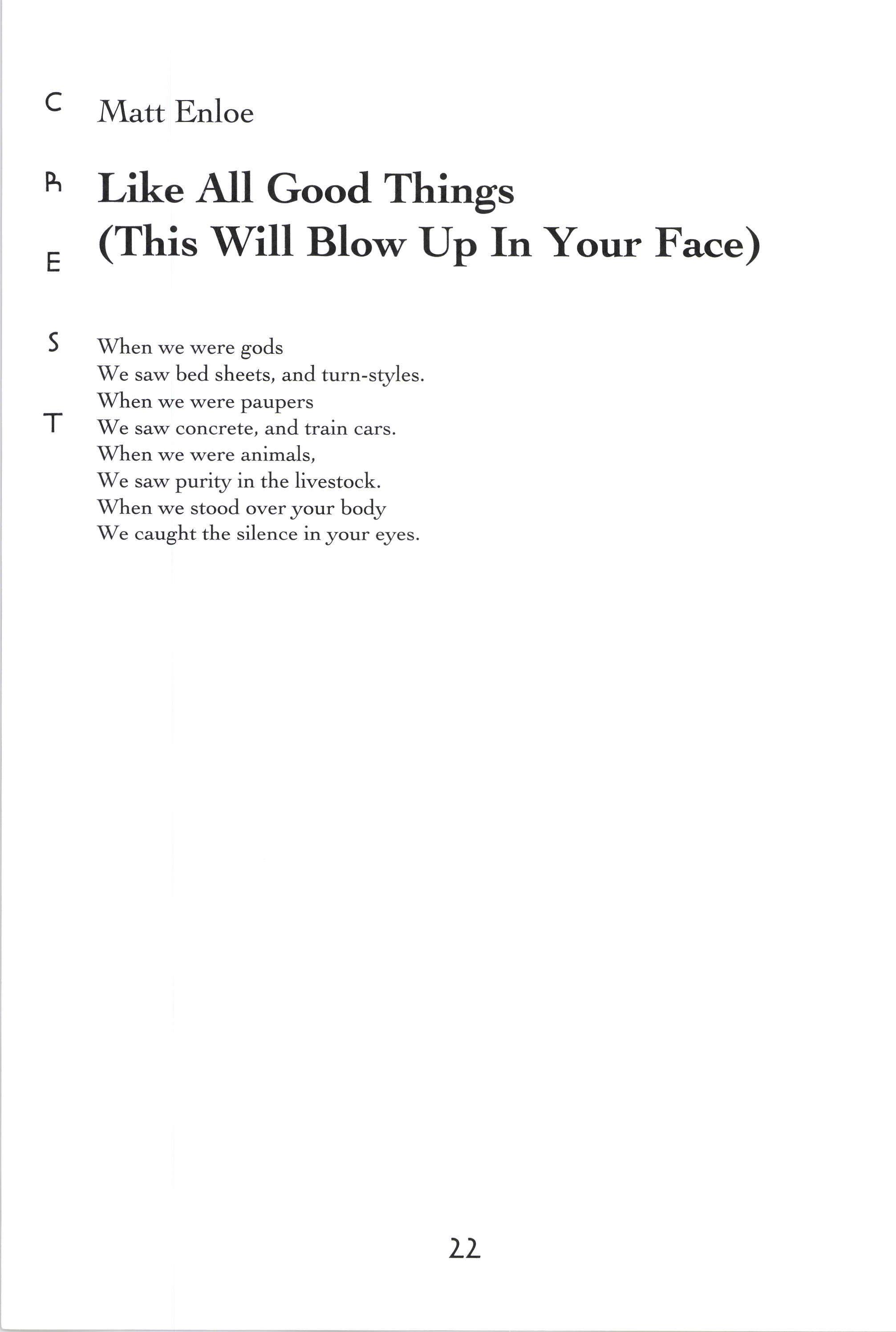
When we were paupers 'We saw concrete, and train cars.
When we w€re anirnals, 'We saw purity in the livestock.
When we stood overyour body We caught the silence in your eyes.
c h E 5
Matt
T
Enloe
LL
Gabrielle Worley
The Hours
it is nothing and it is enough to look down in time no one will see stop resisting shrink and fall through cracks in tired hands maybe then i will see Myself.
i do not wish to die, only to disappear for awhile
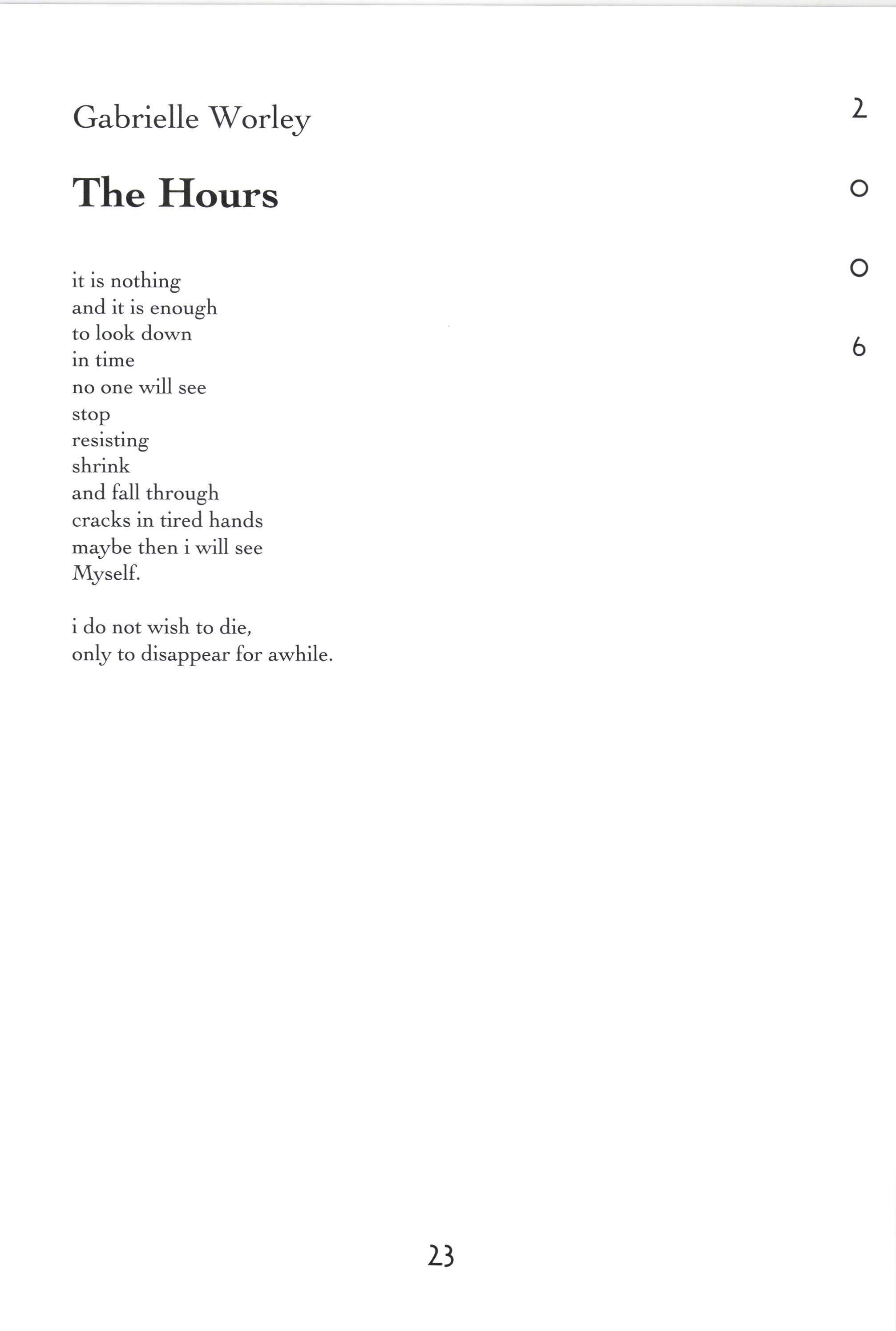
L o o 6 zl
Arnerica Fifry Years Older
America sweating chains in the face of another world power America writhing in its Napoleon complex Sleeping off its nausea America with its noisy teenagers alcohol in their backpacks America with history Because charles foster kane Because this railroad don't stop at the sea, baby We heard your speech and our prayers are far from answered (America ten thousand enlightenedyouths reading allen ginsberg pouring our souls out to a paper canvas) america equaling always more than the sum of its parts being the sleeping giant with ten hundred thousand million children cocaine methadone marijuana ritalin smoking our college diplomas and blowing the smoke into the faces of cops' dirqr hands chicago bars)
we die america every faggot, every intellectual, every graveyard shift, every ballot, every casket, every Georgia O'Keefe, every blacL panther we die america
My cousin a heroin tea junkie
1V[5r cousin the t;,rant got what was coming to him My cousin contemplates jazz but doesn't smoke pot an;rmore
1V[5r cousin said all things merge to one and a river runs through it.
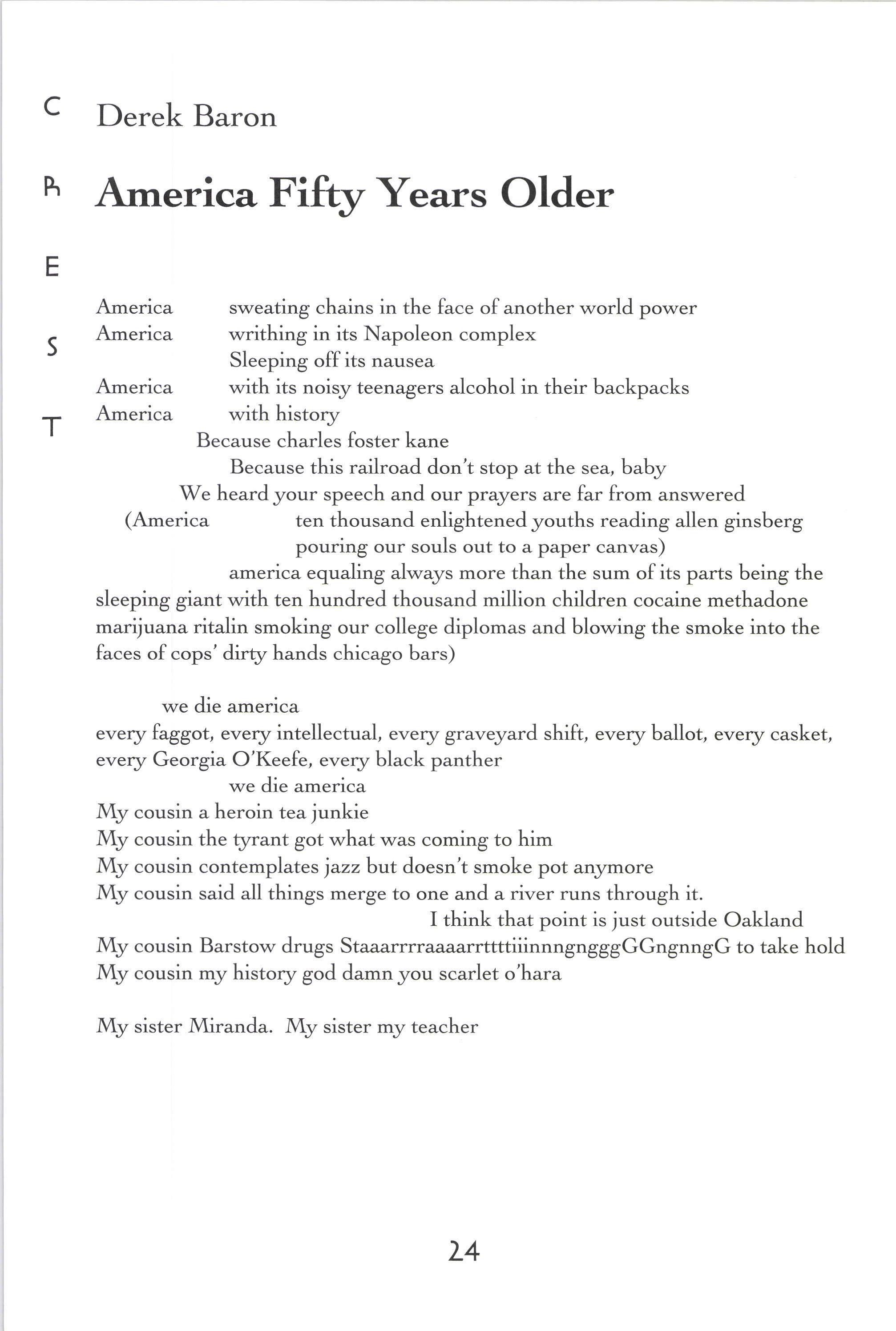
I think that point is just outside Oakland NI;r cousin Barstow drugs StaaarrrraaaarrttttiiinnngngggGGngnngG to take hold My cousin my history god damnyou scarlet o'hara
My sister Miranda. My sister my teacher
E s c Derek Baron
h
L4
T
He told you that Sacco & Vanzetti must not die but you didn't listen did you Sacco we buy guns from sacco! americayou autumn god the scent Vote no on the American constitution
We are all Republicans
We are all Federalists
'We are all Sunnis 'W'e are all Shiites

L o o 6 L5
Robin Goldberg
Welcome, Eva
TThe Danish woman Sat between the Philosophizing golfer And the whale watcher. After introductions, She fell for the chef And began to keep kosher.
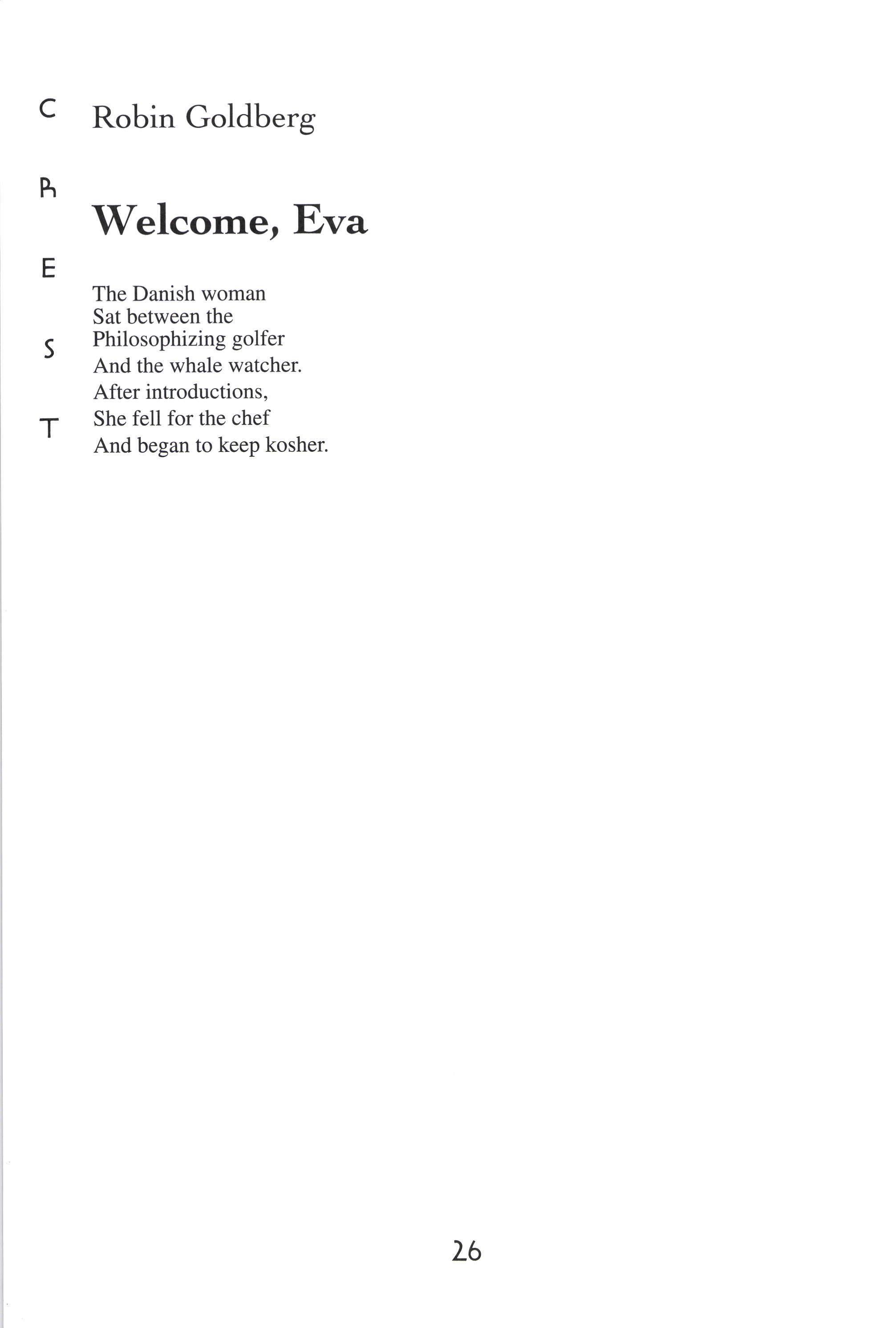
c h E s
L6
Katie Sullivan The Ternpest
When they walked into Stephano's, the bar was empty. Their clothes weren't exactly whatyou'd call... hygienic. They were both broke. But Stephano didn't seem to care as he continued to sweep the floor. They were fighting.
"For god's sake, Caliban! You hunchbacked crook!" the man swatted at Caliban, who ducked. They were both obviously drunk. They fell onto barstools and then rvaited expectantly for Stephano to fi.lItheir glasses. "Just a soda for me, old boy," the man said, reaching an arm out to clap Stephano on the shoulder. He walked around them, ignoring their pleas for just water.
"You'll drink tonight, gentlemen, two foryou, one for me. I ve got some excellent gin in right no'w, you wouldn't want to miss out. Trinculo!" he exclaimed as the other man reached into an emp$r pocket. "These are on me. I assure you, it'll be worth your time."
"It's notyou I'm worried about." Trinculo nodded in the direction of Caliban who was hunched over the bar, clutching the glass between both of his grubby hands.
"True enough." said Stephano. Leaning forward he whispered, none too quietly, into Trinculo's ear, "he's so drunk he's about fall off his chair."
"Fall off his chair he will if he drinks anyrnore of that gin. Give me that!" Trinculo was €Ls drunk as Caliban. Stephano tossed back a few sips of gin himself. It was going to be a long night.
"Speak, you moron!" Trinculo was shaking Caliban by his stained lapel, snoring slightly. "Ifyou're a good man, Caliban, you'd speak." A swift slap in the cheek brought Caliban to consciousness again, a bead of drool hanging from his lips. "I'm awake!" he stuttered, wiping his mouth, then taking another sip of gin. Quietly, Stephano refilled the glass. Trinculo knocked on Caliban's head.
"FIey! I'm not drunk. Back off!"

z o o 6 L7
"Listen to this lying fool!" Trinculo exclaimed.
"The only fool I see is you." etorted Caliban. He raised a shaky fist, but h Stephano closed his palm around it and muscled it to the bar.
"Stupid son of--" Trinculo's face was red as Stephano banged the gin bottle on the bar. "That'll be enough out of you, Trinculo." he said. tr r- "stephano, my great Stephano, let me tell you my plot."
" nASr plot" he says. What a laugh."
S"Mustyou always interrupt?" Stephano says, handing Trinculo the entire bottle of gin. "There, drink up."
T"My story, Stephano." Caliban rises shakily to his feet. He was indeed hunchbacked, perhaps one of the ugliest people Stephano had ever seen. His hair hung in greasy tendrils around his face, his bulbous eyes popping from his face. His nose was smashed and bent in several places, the wide nostrils forever flared. The thin Iips set over his wide, toothless mouth were enough to make Stephano feel as though he had to vomit. Taking another sip of gin for himself, he nodded for Caliban to begin.
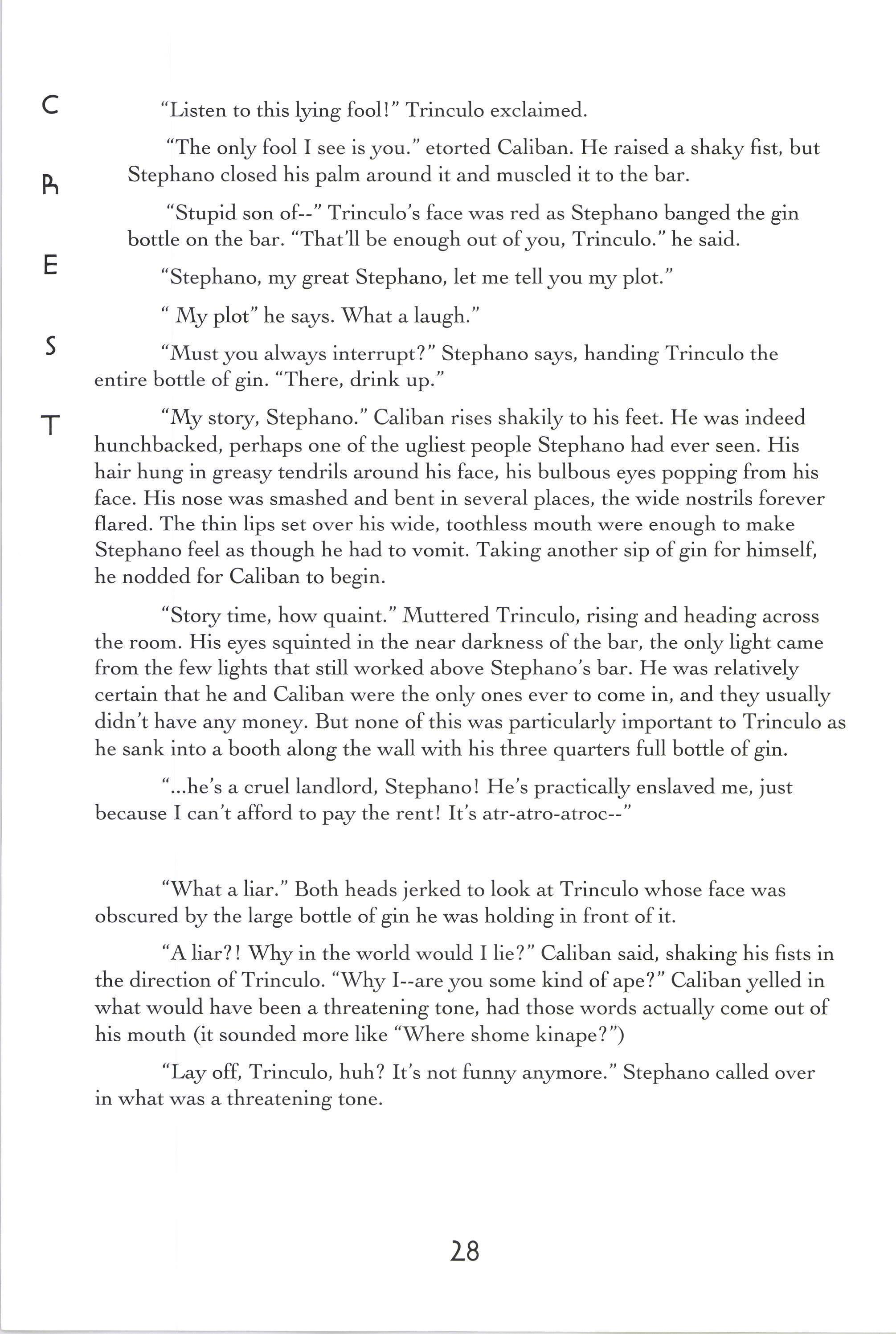
"Story time, how quaint." Muttered Trinculo, rising and heading across the room. His eyes squinted in the near darkness of the bar, the only light came from the few lights that still worked above Stephano's bar. He was relatively certain that he and Caliban were the only ones ever to come in, and they usually didn't have any money. But none of this was particularly important to Trinculo as he santr into a booth along the wall with his three quarters full bottle of gin.
"...he's a cruel landlord, Stephanol He's practically enslaved me, just because I can't afford to pay the rent! It's atr-atro-atroc--"
"W'hat a liar." Both heads jerked to look at Trinculo whose face was obscured by the large bottle of gin he was holding in front of it.
"A liar? ! Why in the world would I lie?" Caliban said, shaking his fists in the direction of Trinculo. "Why I--are you some kind of ape?" Caliban yelled in what would have been a threatening tone, had those words actual\r come out of his mouth (it sounded more like "Where shome kinape?")
"Lay off, Trinculo, huh? It's not funny anymore." Stephano called over in what was a threatening tone.
C
ZB
"I didn't say anyhing." said Trinculo, slamming the bottle onto the
table. "As though I were listening..." and his voice drifted off as he began muttering to himself.
"Be quiet then. Caliban, spit it out." Stephano's tirade cut even through
their drunken hazes. Caliban put more of his gelatinous body onto the bar, and Trinculo leaned back in his seat.
"An;rway..." Caliban started before tipping the contents of his glass into his mouth. "As I was, er, saying..."
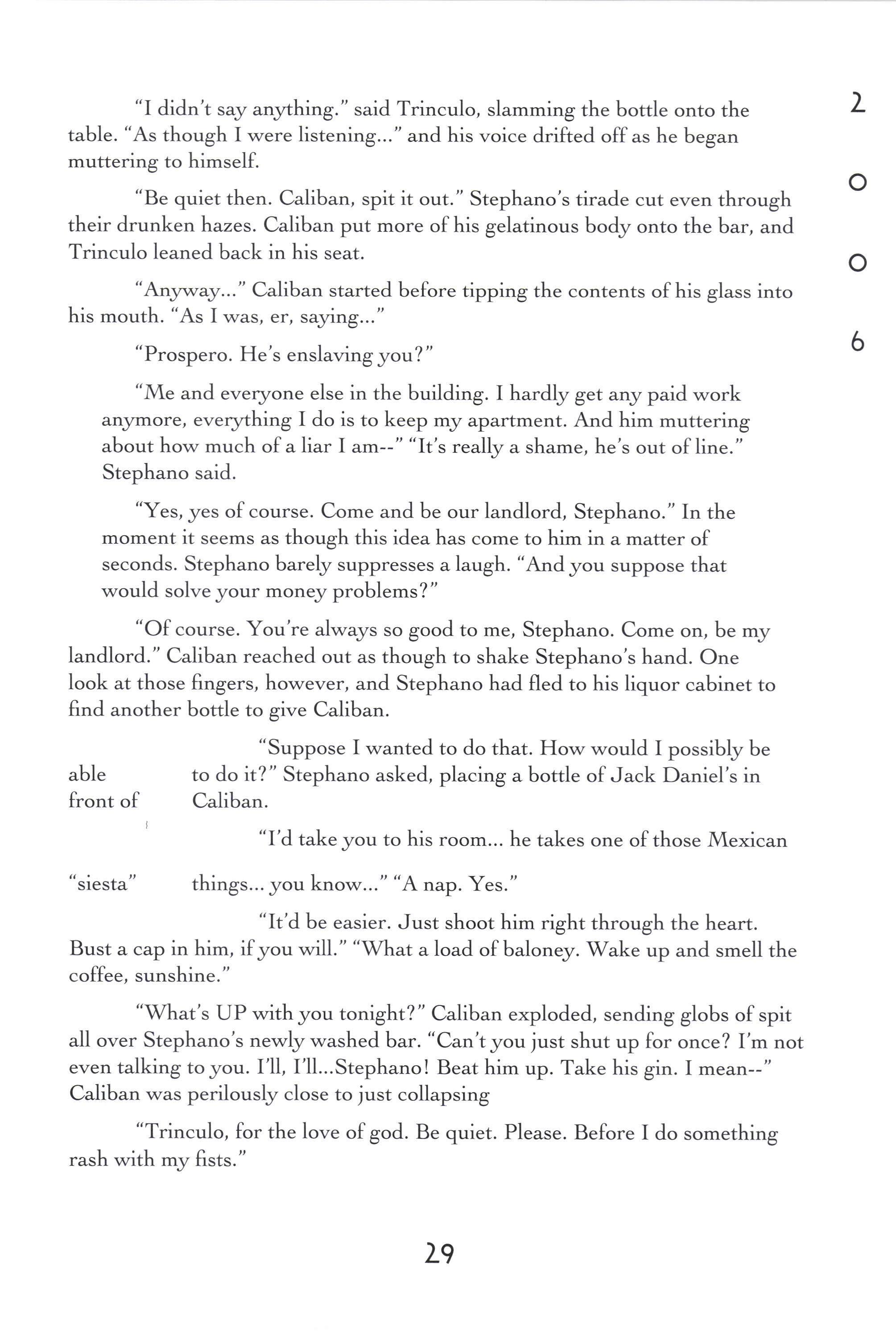
"Prospero. He's enslavingyou?"
"Me and eveqyone else in the building. I hardly get any paid work anyrnore, ever;rthing I do is to keep my apartment. And him muttering about how much of a liar I am--" "It's really a shame, he's out of line." Stephano said.
"Yes, yes of course. Come and be our landlord, Stephano." In the moment it seems as though this idea has come to him in a matter of seconds. Stephano barely suppresses a laugh. "And you suppose that would solve your money problems?"
"Of course. You're always so good to me, Stephano. Come on, be my Iandlord." Caliban reached out as though to shake Stephano's hand. One look at those fi.ngers, however, and Stephano had fled to his liquor cabinet to find another bottle to give Caliban.
"Suppose I wanted to do that. How would I possibly be able to do it?" Stephano asked, placing a bottle of Jack Daniel's in front of , Caliban.
"I'd take you to his room... he takes one of those Mexican "siesta" things... you know. .." u A nap. Yes."
"It'd be easier. Just shoot him right through the heart. Bust a cap in him, if you will." "'What a load of baloney. Wake up and smell the coffee, sunshine."
"'W'hat's UP withyou tonight?" Caliban exploded, sending globs of spit all over Stephano's newly washed bar. "Can't you just shut up for once? I'm not even talking to you. I'I, I'll...Stephano! Beat him up. Take his gin. I mean--" Caliban was perilously close to just collapsing
"Trinculo, for the love of god. Be quiet. Please. Before I do something rash with my fists."
L
O
O
6
L9
Trinculo had sat up r.r,ith a start, rubbing his alcohol tainted eyes with his dirry hands. "I don't recall having said an;rthing." he exclaimed with some indigence.
"Didn'tyou say he lied?" Stephano by this time was over by Trinculo's table and was holding him up by the collar of his shirt.
"Stephano...get him!" Caliban said, Iaughing \rsterically. As Stephano's head was turned...
"Lying liarface..." laughed the voice.
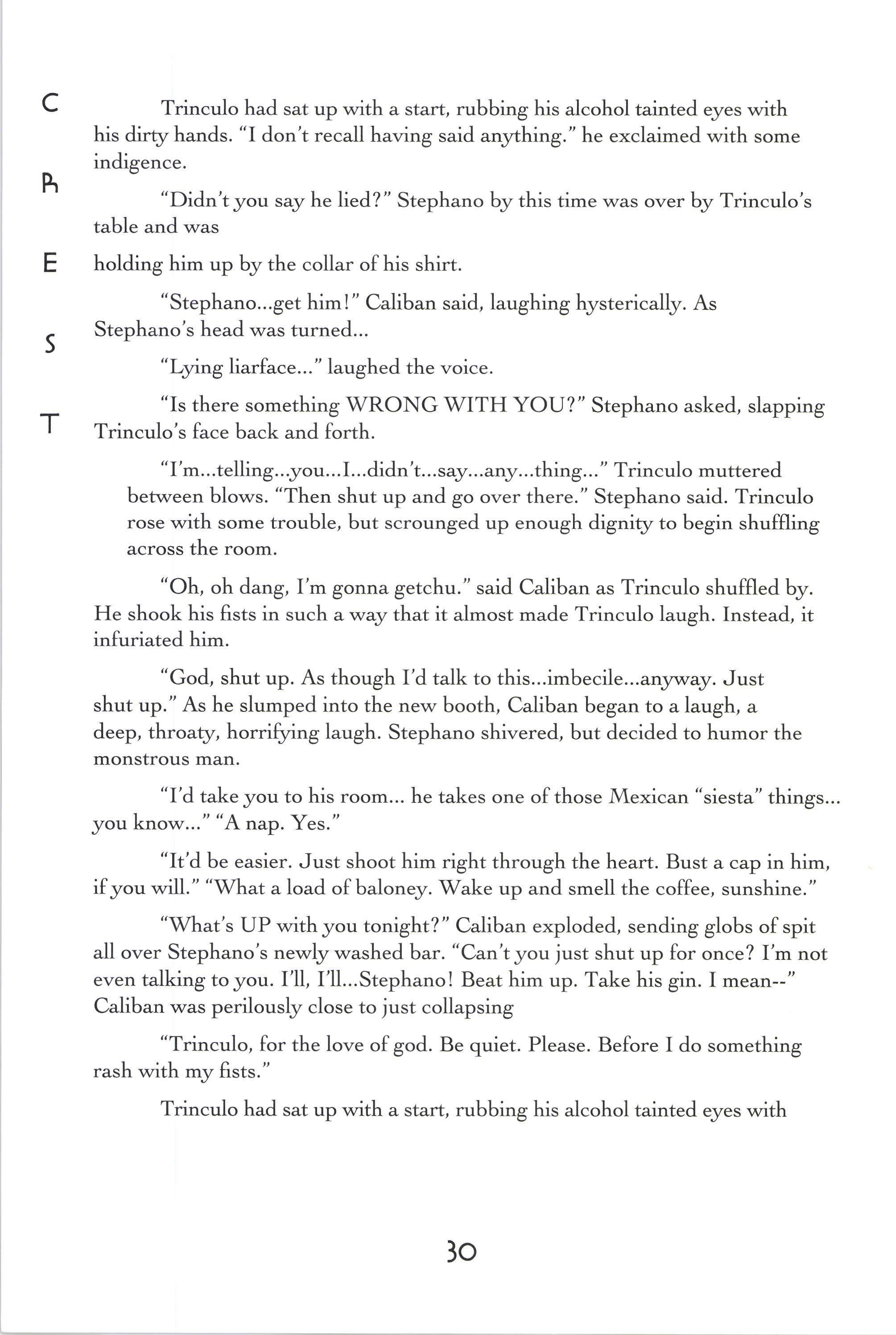
T"Is there something WRONG WITH YOU?" Stephano asked, slapping Trinculo's face back and forth.
"I'm...telling..you...I...didn't...say...aryz...thing..." Trinculo muttered between blows. "Then shut up and go over there." Stephano said. Trinculo rose with some trouble, but scrounged up enough dignity to begin shuffling across the room.
"Oh, oh dang, I'm gonna getchu." said Caliban as Trinculo shuffled by. He shook his fists in such a way that it almost made Trinculo laugh. Instead, it infuriated him.
"God, shut up. As though I'd talk to this...imbecile...an;,'way. Just shut up." As he slumped into the new booth, Caliban began to a laugh, a deep, throat;r, horrifying laugh. Stephano shivered, but decided to humor the monstrous man.
"I'd take you to his room... he takes one of those Mexican "siesta" things. you know..." "A nap. Yes."
"It'd be easier. Just shoot him right through the heart. Bust a cap in him, if you will." "'What a load of baloney.'Wake up and smell the coffee, sunshine."
"'What's UP withyou tonight?" Caliban exploded, sending globs of spit all over Stephano's newly washed bar. "Can't you just shut up for once? I'm not even talking toyou. I'll, I'll...Stephanol Beat him up. Take his gin. I mean--" Caliban was perilously close to just collapsing
"Trinculo, for the love of god. Be quiet. Please. Before I do something rash with my fists."
Trinculo had sat up with a start, rubbing his alcohol tainted eyes with
c H E s
3o
his dirry hands. "I don't recall having said anJrthing." he exclaimed with some indigence.
"Didn'tyou say he lied?" stephano by this time was over by Trinculo's table and was holding him up by the collar of his shirt.
"Stephano...get him!" Caliban said, laughing \rstericall;z. As Stephano's head was turned...
"LJ.rrg liarface..." laughed the voice.
"Is there something WRONG WITH YOU?" Stephano asked, slapping Trinculo's face back and forth.
"I'm...telling..you...I...didn't...say...any...thing..." Trinculo muttered between blows. "Then shut up and go over there." Stephano said. Trinculo rose with some trouble, but scrounged up enough dignity to begin shuffling across the room.
"Oh, oh dang, I'm gonna getchu." said Caliban as Trinculo shuffled by. He shook his fists in such a way that it almost made Trinculo laugh. Instead, it infuriated him.
"God, shut up. As though I'd talk to this...imbecile...an5rway. Just shut up." As he slumped into the new booth, Caliban began to a laugh, a deep, throatJr, horriSzing laugh. Stephano shivered, but decided to humor the monstrous man.
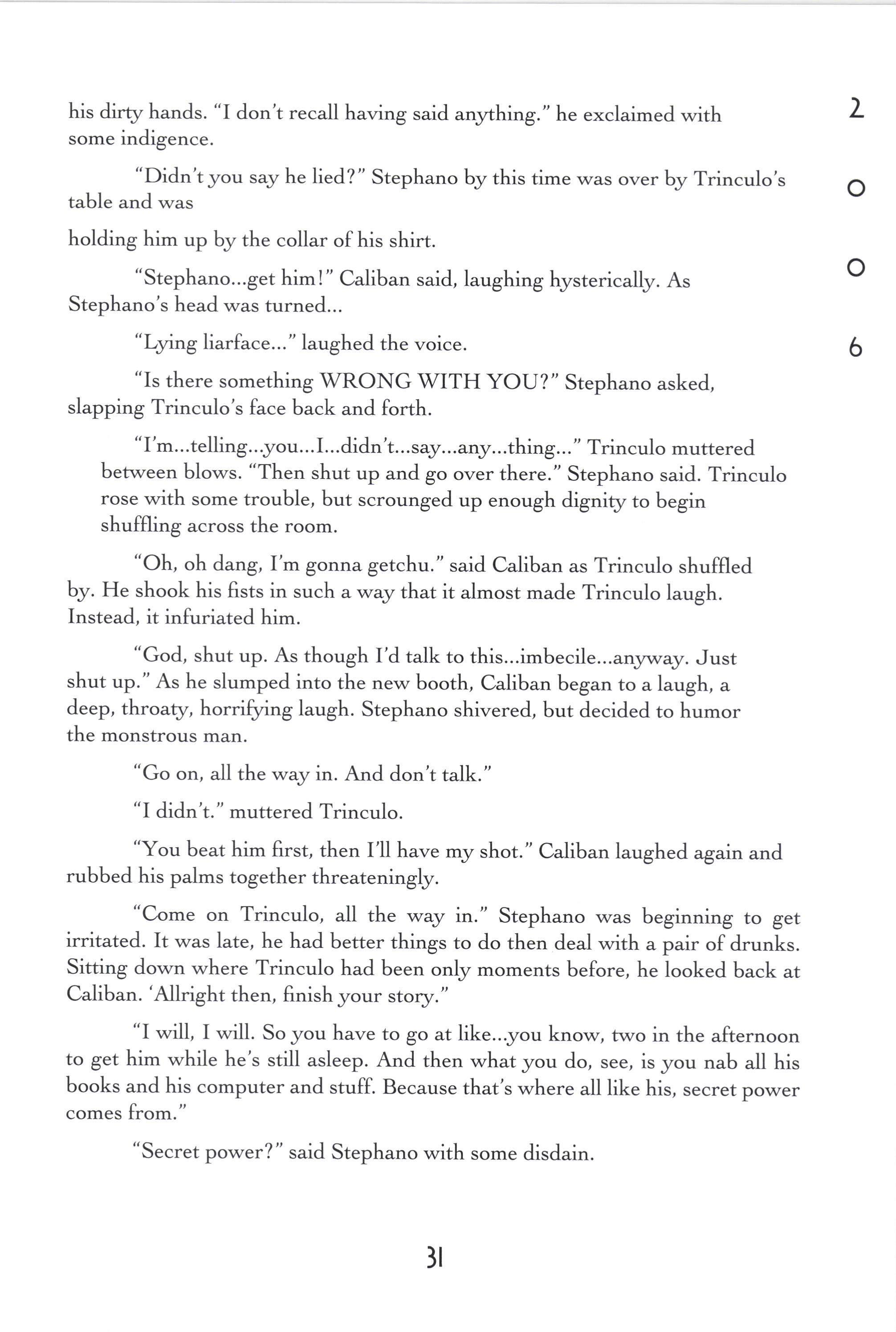
"Go on, all the way in. And don't talk."
"I didn't." muttered Trinculo.
"You beat him first, then I'll have my shot." Caliban laughed again and rubbed his palms together threateningly.
"Come on Trinculo, all the way in." Stephano was beginning to get irritated. It was late, he had better things to do then deal with a pair of drunks. Sitting down where Trinculo had been only moments before, he looked back at Caliban. 'Allright then, finishyour story."
"I will, I will. So you have to go at like..you know, two in the afternoon to get him while he's still asleep. And then what you do, see, is you nab all his books and his computer and stuff. Because that's where all like his, secret power comes from."
"Secret power?" said Stephano with some disdain.
L o o 6 ]l
"Yeah. But an;rway, you should go...andyou have to bust a cap in him or stab him, or, I don't know, butyou have to kill him. And then you have to burn all his books, see. That's very important. And then, once you've gotten rid of the books and his, uh, secret power, then there's his daughter. She's a real looker, that girl."
"A looker, eh?"
"Ohhhhhyeah. She'd, you know, make a good wife, ifyou catch my drift." Caliban's poor attempt at a wink was missed as Stephano rose, a new idea forming in his mind. Meanwhile, Trinculo was slumped over the table, snoring loudly, the gin completely demolished.
"I think...that I'll have this man taken care of foryou." he coughed slightly, masking laughter. "And then I'il marry this girl..yes...marry her...and we'll take over that building. And I'll makeyou and Trinculo...hall monitors, yes, hall monitors. Wouldyou like that, Caliban?"
"Of course." He agreed immediately, too drunk to notice that he wasn't in the fifth grade.
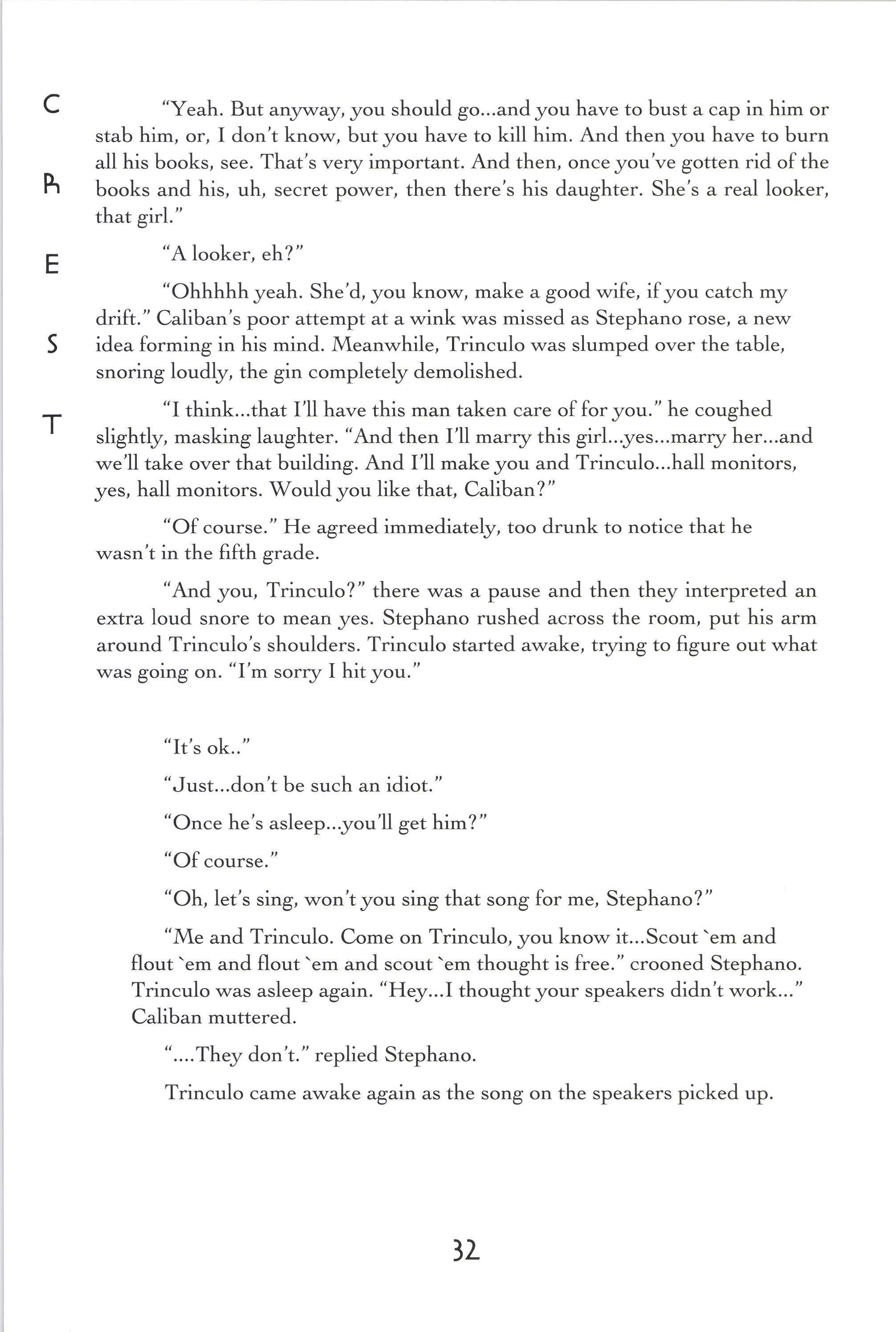
"And you, Trinculo?" there was a pause and then they interpreted an extra loud snore to mean yes. Stephano rushed across the room, put his arm around Trinculo's shoulders. Trinculo started awake, trynng to figure out what was going on. "I'm sorry I hityou."
lar L, It s ok.. "Just...don't be such an idiot."
"Once he's asleep..you'll get him?"
"Of course."
"Oh, let's sing, won'tyou sing that song for me, Stephano?"
"Me and Trinculo. Come on Trinculo, you know it...Scout'em and flout'em and flout'em and scout'em thought is free." crooned Stephano. Trinculo was asleep again. "Hey...I thought your speakers didn't work..." Caliban muttered.
"....They don't." replied Stephano. Trinculo came awake again as the song on the speakers picked up
C h E
s T ]z
The three of them wandered aimlessly around. the bar trying to figure out where
the sound was coming from, but came up rvith nothing.
"Is someone there?" Trinculo called out tentatively.
"If you bite stay where you are, ifyou don't, won'tyou tell us who you are?" called out Stephano.
"This music is prett5r sweet." said Caliban. Stephano looked at him,
shook his head in amazement at the affect alcohol could have. "Hey, Steph."
"Yeah?"
"You're not scared, areyou.?"
"What? Me? No." Stephano shivered.
"Don't worry about the noises. There's all kinds of creepy stuff going on all the time, you just have to, you know, get used to it. It's really not that big of a deal. Just wait until you get to my building. Magic stuff in there, really."
"How....exciting." said Stephano, who was starting to lose his edge a bit about the whole plot.
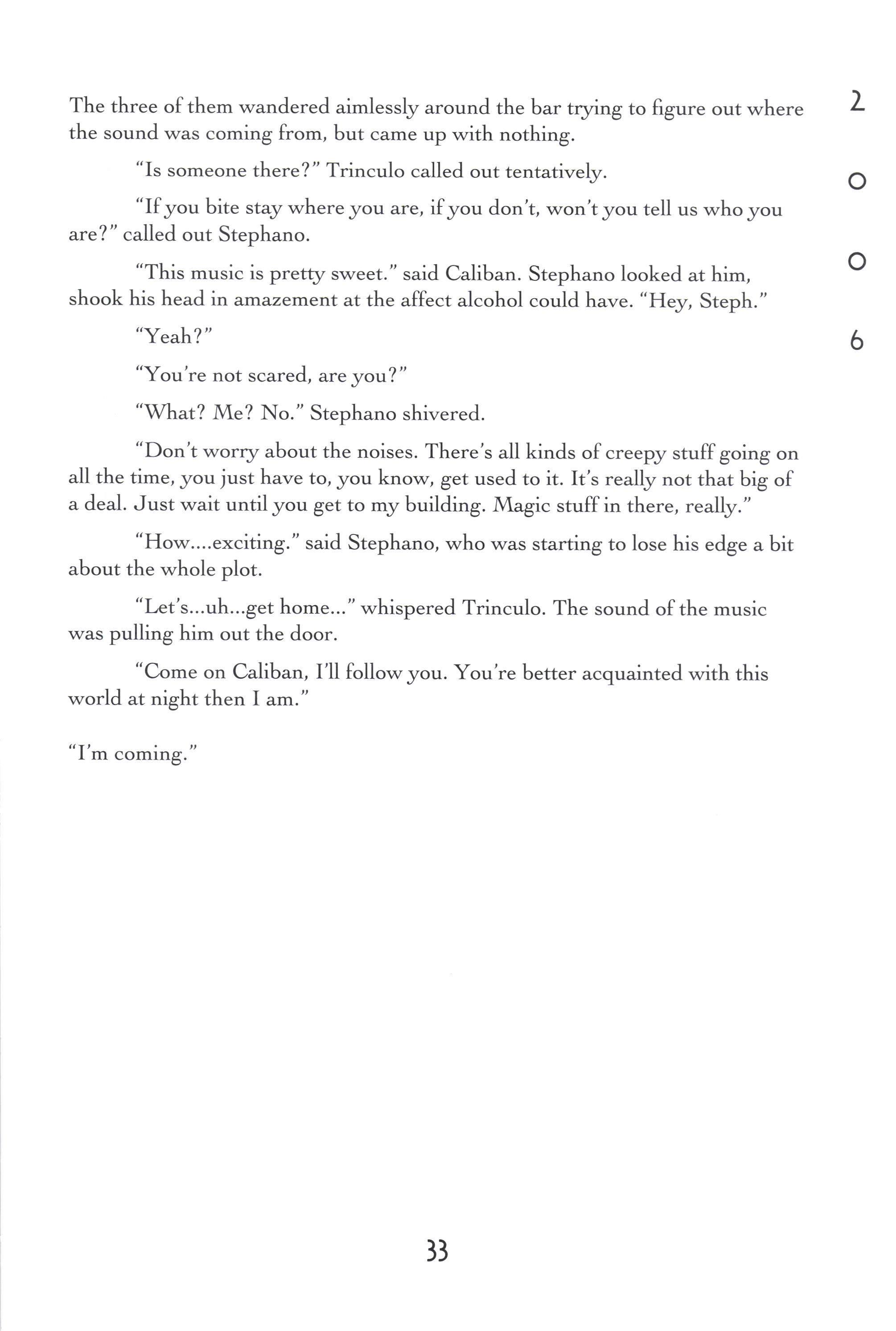
"Let's...uh...get home..." whispered Trinculo. The sound of the music was pulling him out the door.
"Come on Caliban, I'll followyou. You're better acquainted with this world at night then I am."
"I'm coming."
L
O
O
6
t]
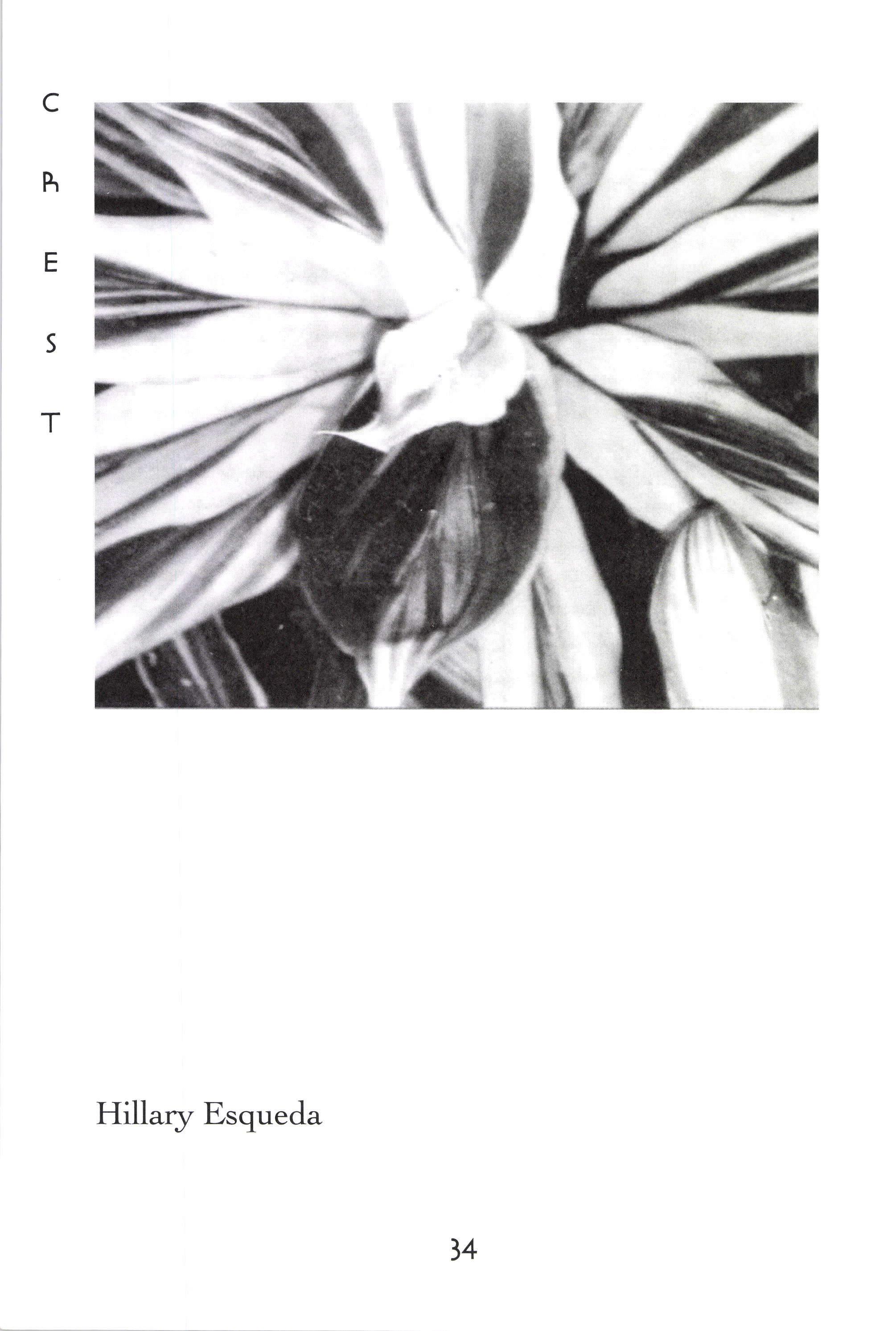
C h E s T Hillary
)4
Esqueda
Untitled
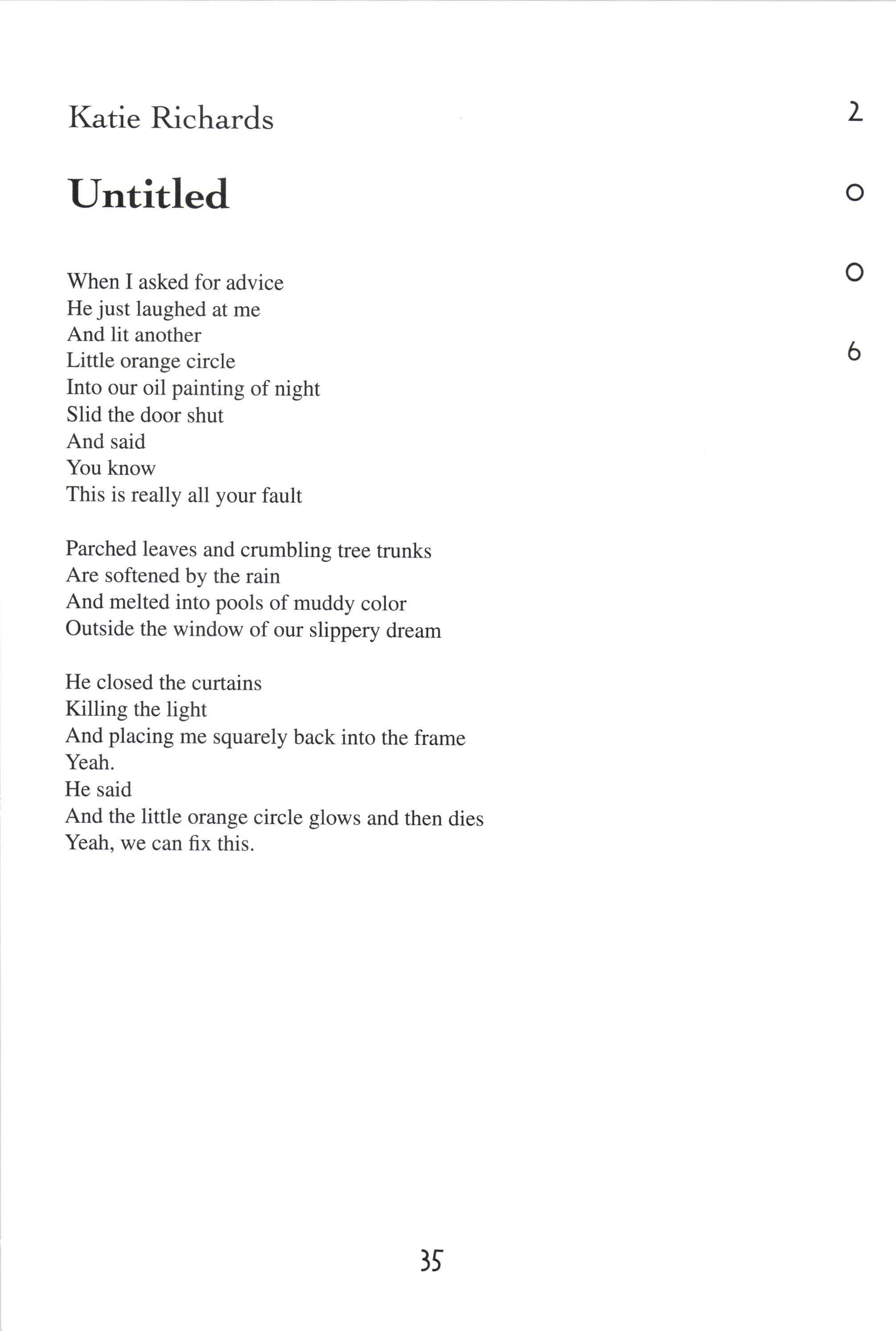
When I asked for advice
He just laughed at me And lit another Little orange circle Into our oil painting of night Slid the door shut And said You know This is really all your fault
Parched leaves and crumbling tree trunks Are softened by the rain And melted into pools of muddy color Outside the window of our slippery dream
He closed the curtains Killing the light And placing me squarely back into the frame Yeah.
He said And the little orange circle glows and then dies Yeah, we can fix this.
Katie
Richards
L o o 6 ]5
hPower's Ebb and Flow in Romance
TErnest Hemingwey's "The Sea Change" is a short story that reveals attempts to shift power in romantic relationships. Much like the sea's tides, the power sought bythe man andwomanwho form a couple in a Paris ca-{6 continually ebbs and flows. The woman's instinctive attemptto guardthe po\^/er she has gainedthrough aduleryallows forher ostensible victory in this game of love. Her lover, Phil at first the apparent "Loser" in this garne, di"plry" an unrelenting struggle to gain power and d;gniqr/, but finds that he can only accomplish such a feat through exbreme and mutual revenge. The shifting sands of power within the story's central relationship suggest an author's romantically embatded personal struggle. The namelesswomanhas the initialadvantage, as itis she uponwhomherlover depends, and she who initiates Phil's reactions. Because it is she who has strayed and thus retains the option to "come back" to Phil from another relationship, she holds the power to break Phil's heart should she choose notto return (598). The exclusive influence she has over Phil's love and [fe gives her the power to help him thrive or die. When Phil insuks her and her way of lite, she demonstrates that she is above being hurt by him by dismissively sa;zing, "That isnt polite," (598). Because Phil is no longer the most important influence in her life, she treats deeper matters, like Phil's obvious distress, as if theywere merelyissues of manners. She also exhibits her supremary over Phil on the two occasions in which she 'put[s] out her hand," thus displaying her power to comfort him, because she is aware that only she has that power (399). The words she uses to apologize, 'You're a fine man and it breaks myhearttogo offandleaveyou," and "I loveyouverymuch" juxtaposedagainst Phil's terse, [mited speech "I'd rather not hear," illustrate that it is far easier for her to verbally joustwhen less is at stake (598). Additionally, her ability to dismiss Phil's few formidable attempts to belittle her, "I'll kill fthe'woman's girlfriend]," followed by her declaration, "That won't make you happy," con\rinces Phil that he will
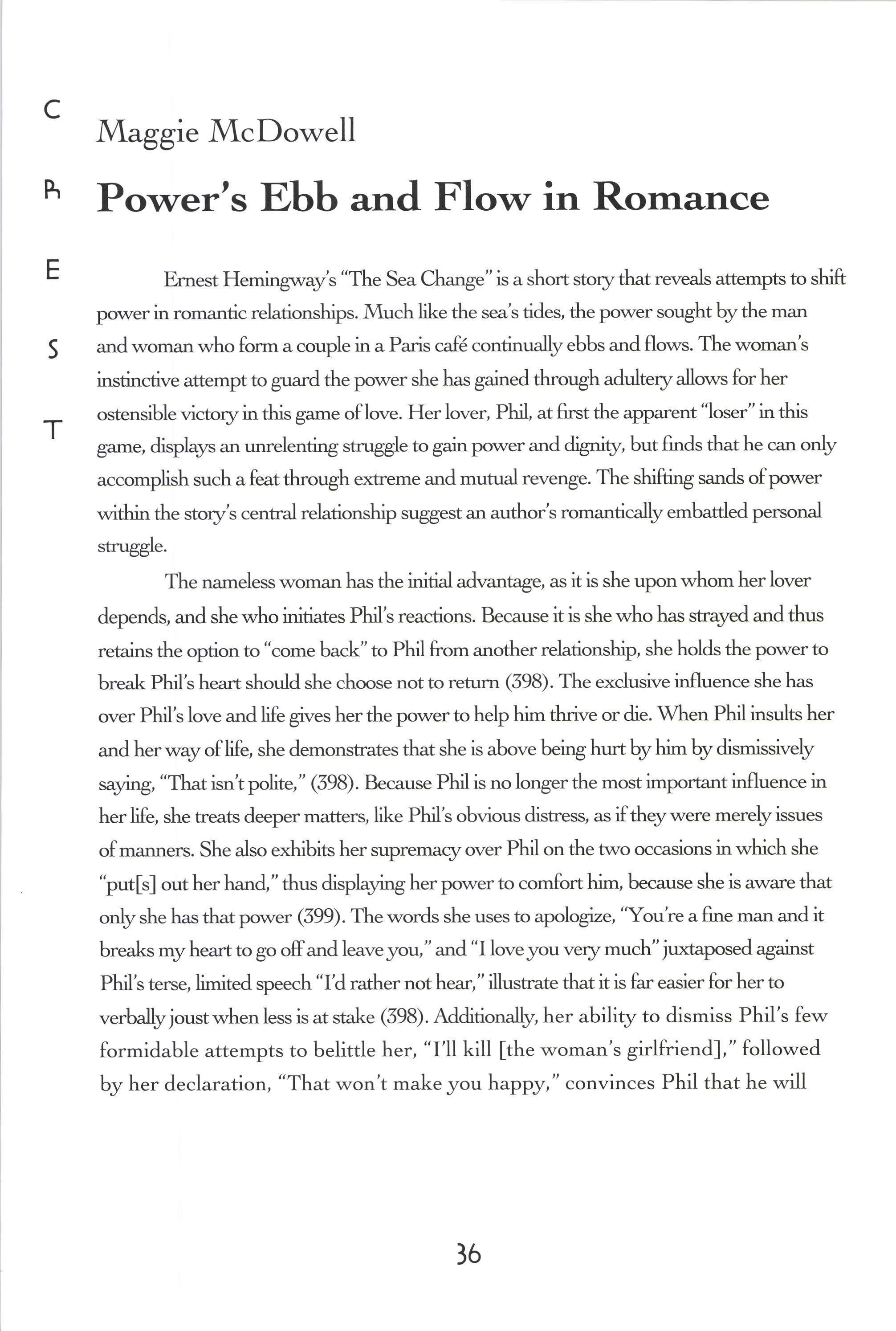
C Maggie
McDowell
E 5
]6
never be able to appropriate her power over him through the use of words alone (397).
Through Phil's incessant and desperate attempts to enfeeble his girlfriend with his words, and thus salvage his breaking heart by shifting the scale of power back to himself, Hemingway attempts to compel the reader to s;rmpathize with him, and ultimately vili$, the woman. As the story proceeds, it becomes apparent that, for Phil, power, not happiness, is the ultimate goal. This idea is demonstrated through his attempt to regain some power by verbally rejecting her, "No. I don't wantyou," following her apologetic "I'll come back ifyou want me," (598). It is likely that reuniting with his lover, after she cuts ties rvith her girlfriend, would give him great pleasure, because it would indicate that he was ultimately wictorious, and thus shift the power back to him. By the same token, his lover's return would be a constant reminder that she had held the power all the time due to the fact that his happiness was permitted to be left in her hands. Never Ionger than a ferv words, the curt nature of Phil's questions and responses demonstrates his cautionary mood. He answers abruptly not so much to hide from his lover the internal pain she is causing him, but more to deny her tangible ewidence that she has solidified her control over him. "All day and all night. Especially all night. I'll understand," implies that Phil vrill "understand" his lover's adulterous actions after she has left him and he is able to exact revenge by acting promiscuously with a number of other women (598). These actions exemplify Phil's attempt to desperately match the deleterious actions of his lover, and so defeat her in their reckless game. Another frantic attempt to wrest some of her power away occurs when Phil demands that she "prove" her love for him (598). The momentary headway that Phil gains by making such a degrading demand is soon undermined, however, by her "That isn't polite" dismissal of such a request (598). The fact that Phil "lost" the game, and his woman, to another woman was a brutal blow to his ego, and his inability to reconcile such ignominy further shifts the power to her. Phil's final grab for power brings him success after he tells his lover to "Go on," (400). With those

L o o 6 )7
words, the indifference he shows her allows him to mask the immense pain his loss is causing him with the ultimate attempt at retributior-& retribution that is more personal, secretive, and deeply hurtful to his offender. Phil first "de-sexualizes" his lover by looking at her features objectively, "he was looking at her...and at the way her hair grew on her forehead and at the edge of her ear and at her neck," (592) unlike he had at the beginning of the story when he noted that "her blonde hair... grew beautifull;r away from her forehead," (400)
After Phil watches her leave, he discovers that he is "not the same-looking man as he had been before he had told her to go," (401). His perceprion of a physical manifestation of an internal change parallels his discovery of the two men sitting at the bar who "moved down...so that he would be quite comfortable," (401). He shortly reali.s. that the on\r way he rvill be able to heal from his break-up is to seek revenge by having a homosexual relationship. Perhaps one of the friendly men sitting at the bar will satis$, Phil's longing for revenge, so that Phil can feed his hunger for power in a fashion similar to that of his lover-truly and eye for an eye. Through this final shift in power, or the "sea change" in Phil, Hemingway suggests that the male has emerged wictorious at the expense of his compromised sexual identiqr. Hemingway's personal misfortune in his relationships with women may have influenced the portrayal of the woman in "The Sea Change." It is inconsequential that the man, Phil, has committed adultery several times in
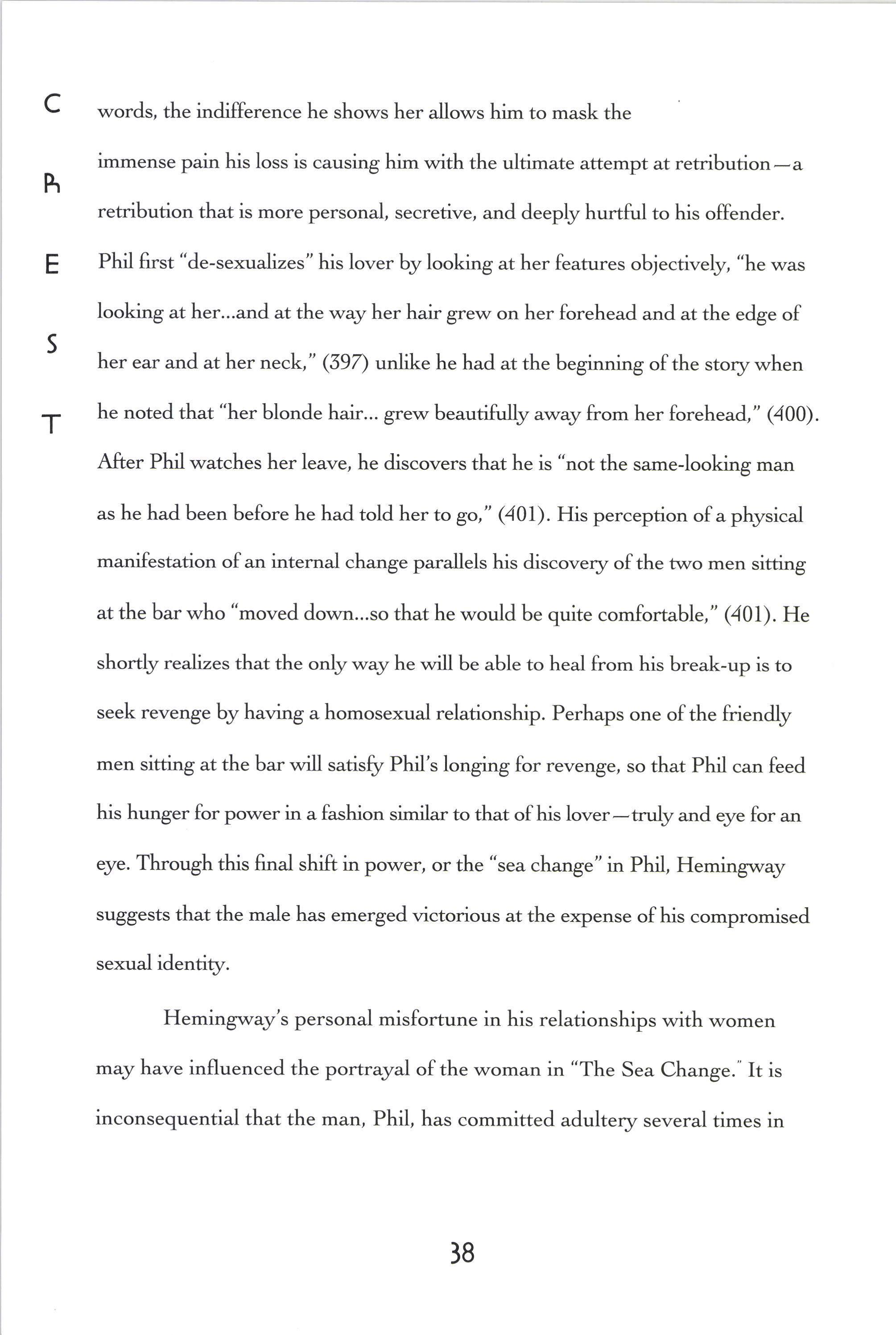
c h E
s T }B
the past, as indicated by his statement, "I understand. That's the trouble. I understand," (598). However, the woman, who is not worthy enough to have been given a name by Hemingway, apparently commits adultery for the first time, and it ends the relationship. Contrast this with the fact that the man's affairs did not appear to drastically affect the relationship, and Hemingway's implication is that, because the woman had an affair with another woman, the action is intentionally hurtful to Phil, who says "If it was a man---" when she cuts him off with "It wouldn't be a man... don'tyou trust me?" (598.) One can almost see him sneer when he responds with "... Trust you. That's really funny, " as if two women in a relationship had a more manipulative and spiteful purpose than an adulterous relationship between a man and a woman (598). Phil's stubborn inability to forgive his lover, although she has clearly forgiven him for similar offenses in the past, indicates that Hemingway believes that women are undeserving of second chances. Phil later criticizes her affair further by referring to it as a "\.ice" and as "perversion" (399). There is no doubt, however, that he would refer to his own liaisons as mere trifles or affairs. He ultimately allows her to leave not because he loves her and wants to be happy, but because the only way he knows how to get revenge is to stab her just as she stabbed him. PhiI is not healing by having a homosexual relationship, but is attempting gain power through hurting the woman he loves in the same manner she unintentionally hurt him. While Phil's
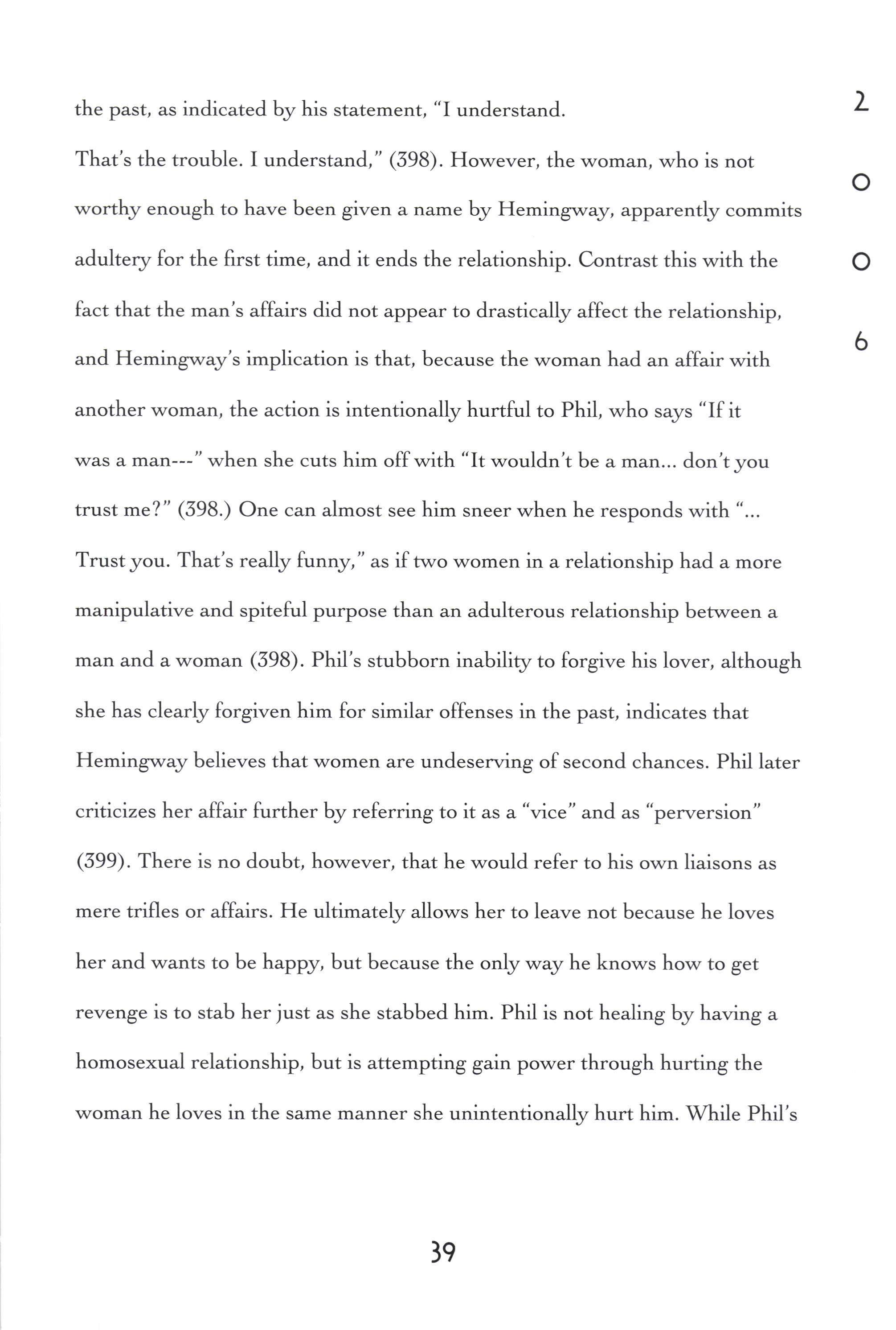
L o o 6 ]e
spiteful actions illustrate that both men and women struggle to gain power using the same tactics, Hemingway implies that women are more blameworthy when h they employ such measures.
EThe attempts to shift power between the players in this game of love in "The Sea Change" demonstrate the constant struggle for dominance in romance. 5 Hemingway's protagonists, Phil and the woman, exempli$, such a struggle as the reader follows them in their journey, from being wounded to attempting to T heal. The woman is more negatively portrayed in this mutual struggle, perhaps due to the fact that Heming'way's negative image of love and women significantly influenced his writing. This negative portrayal of the woman as the villain in this mutual power struggle may resonate with Hemingway's own sea changes in his relationships with women.
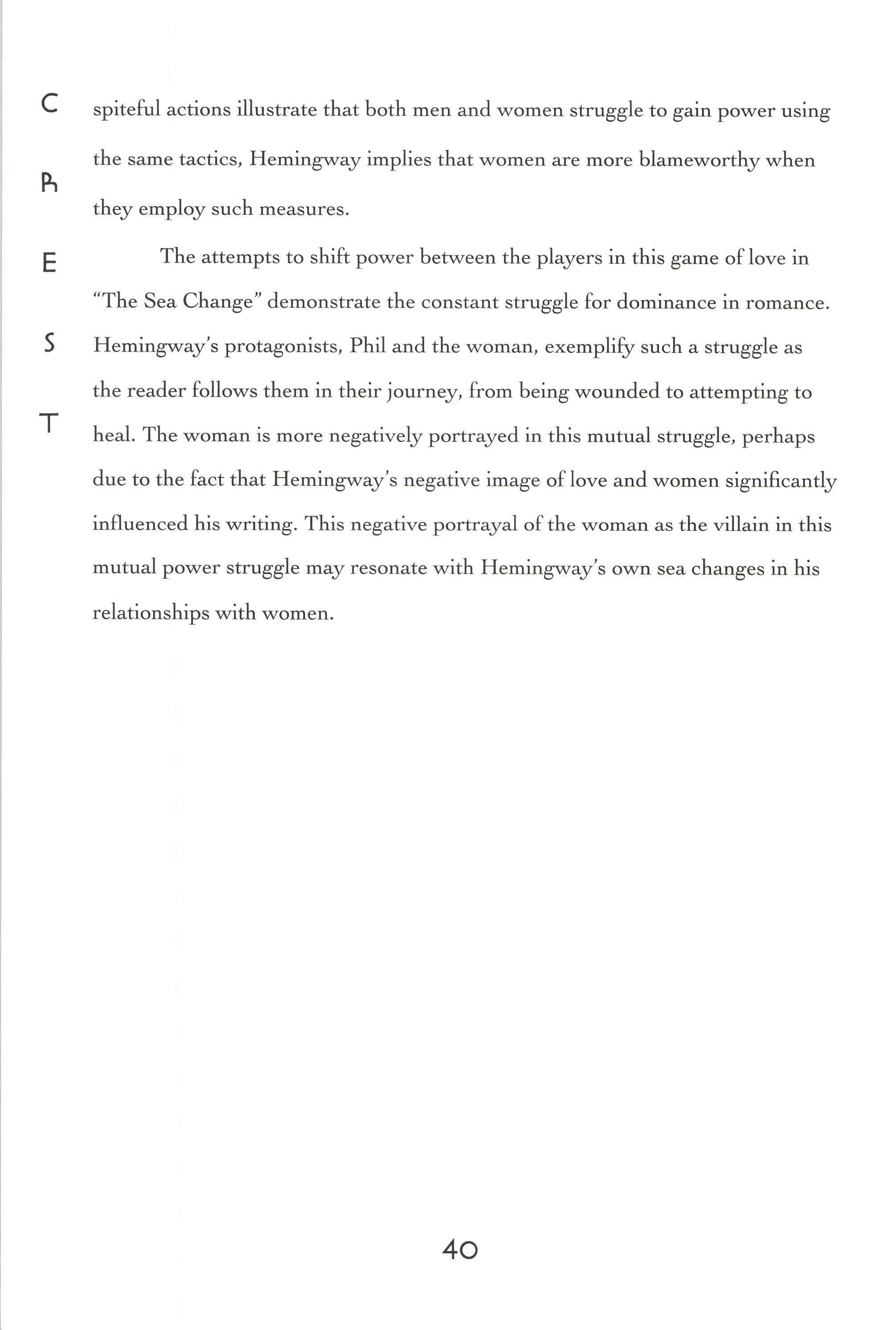
C
40
Robin Goldberg
Childless
Childless yet inhabited by a youthful disposition.
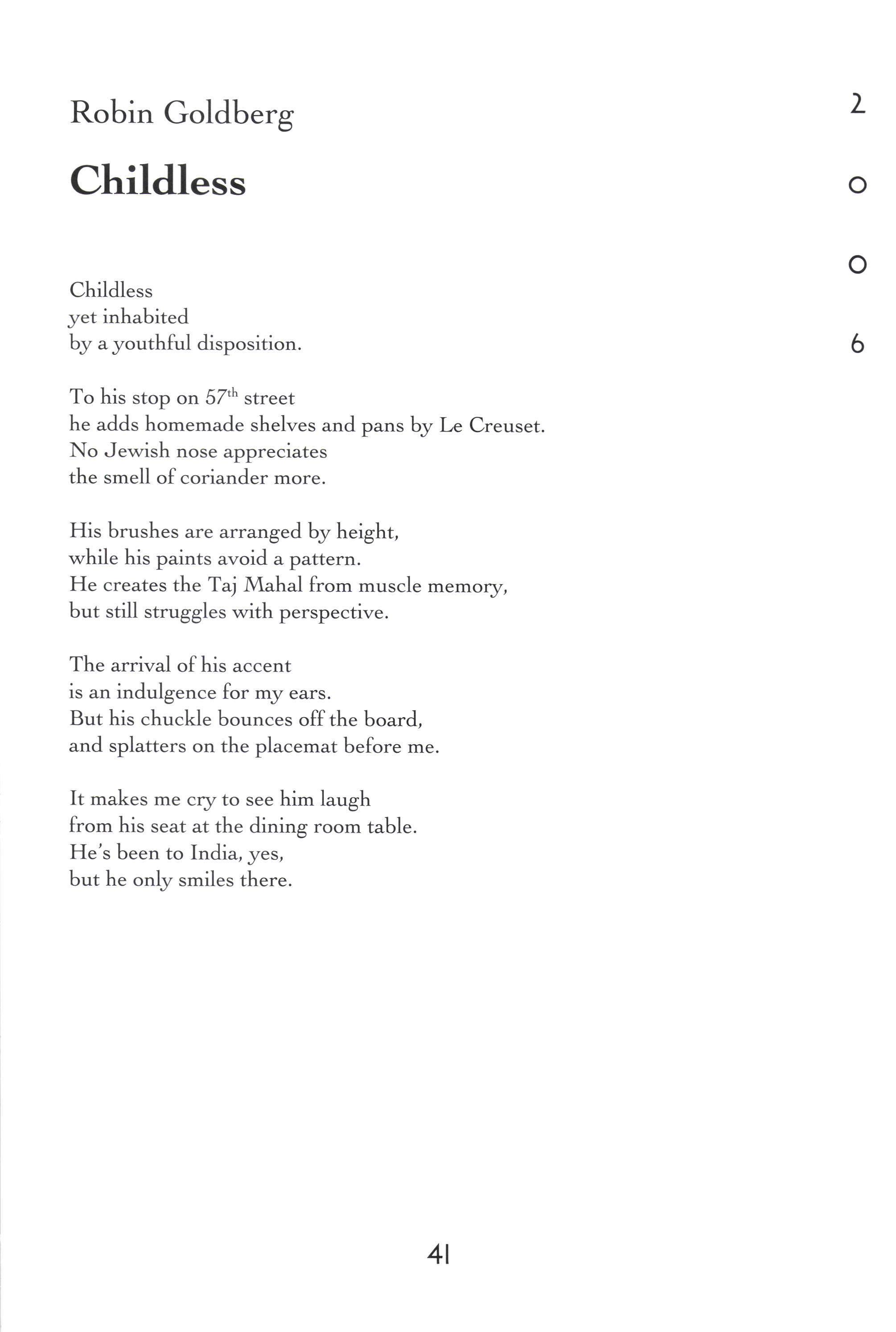
To his stop on 5Zh street he adds homemade shelves and pans by I* Creuset. No Jewish nose appreciates the smell of coriander more.
His brushes are arranged by height, while his paints avoid a pattern. He creates the Taj Mahal from muscle memory, but still struggles with perspective.
The arrival of his accent is an indulgence for my ears. But his chuckle bounces off the board, and splatters on the placemat before me.
It makes me cry to see him laugh from his seat at the dining room table. He's been to India, yes, but he only smiles there.
L o o 6 4t
Liz Davis
Leaving Home With A Bag
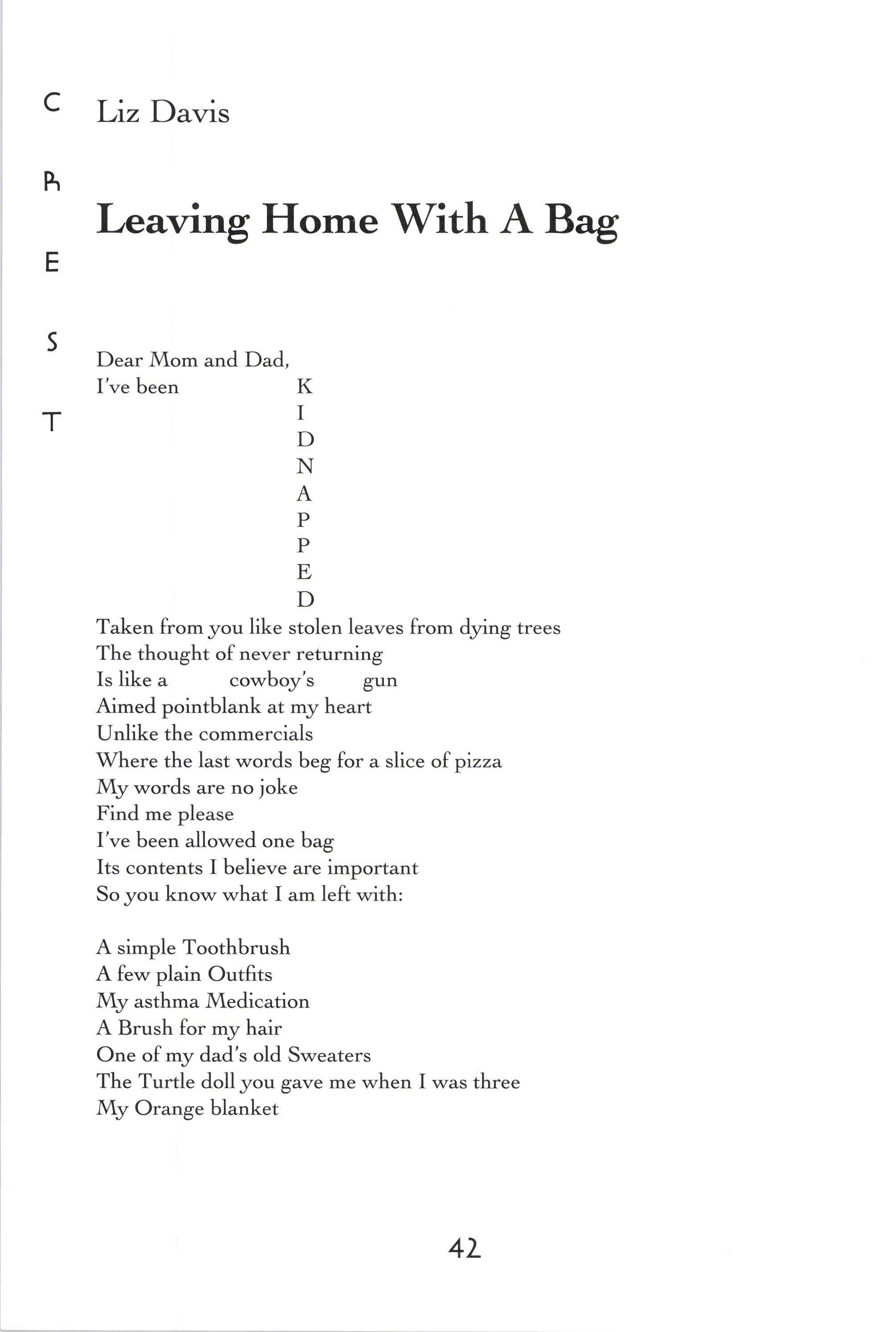
Dear Mom and Dad, I ve been
K I D N A P P E D
TTaken from you like stolen leaves from dying trees
The thought of never returning Is like a cowboy's gun Aimed pointblank at my heart
Unlil<e the commercials 'Where the last words beg for a slice of przza
My words are no joke Find me please I've been allowed one bag Its contents I believe are important So you know what I am left with:
A simple Toothbrush
A few plain Outfits
1\A5z asthma Medication
A Brush for my hair
One of my dad's old Sweaters
The Turtle dollyou gave me when I was three My Orange blanket
s c h E
4L
A Novel to read
Grandma's pearl Earrings
All of my Allowance
My birthstone Ring
Xly Ipod and charger
My Zebraprint pillow
An Old family photo
A New pair of shoes And my Ankle brace
Like a ghost town I am empgr Please, oh please Find me mom and dad I've toldyou where I am
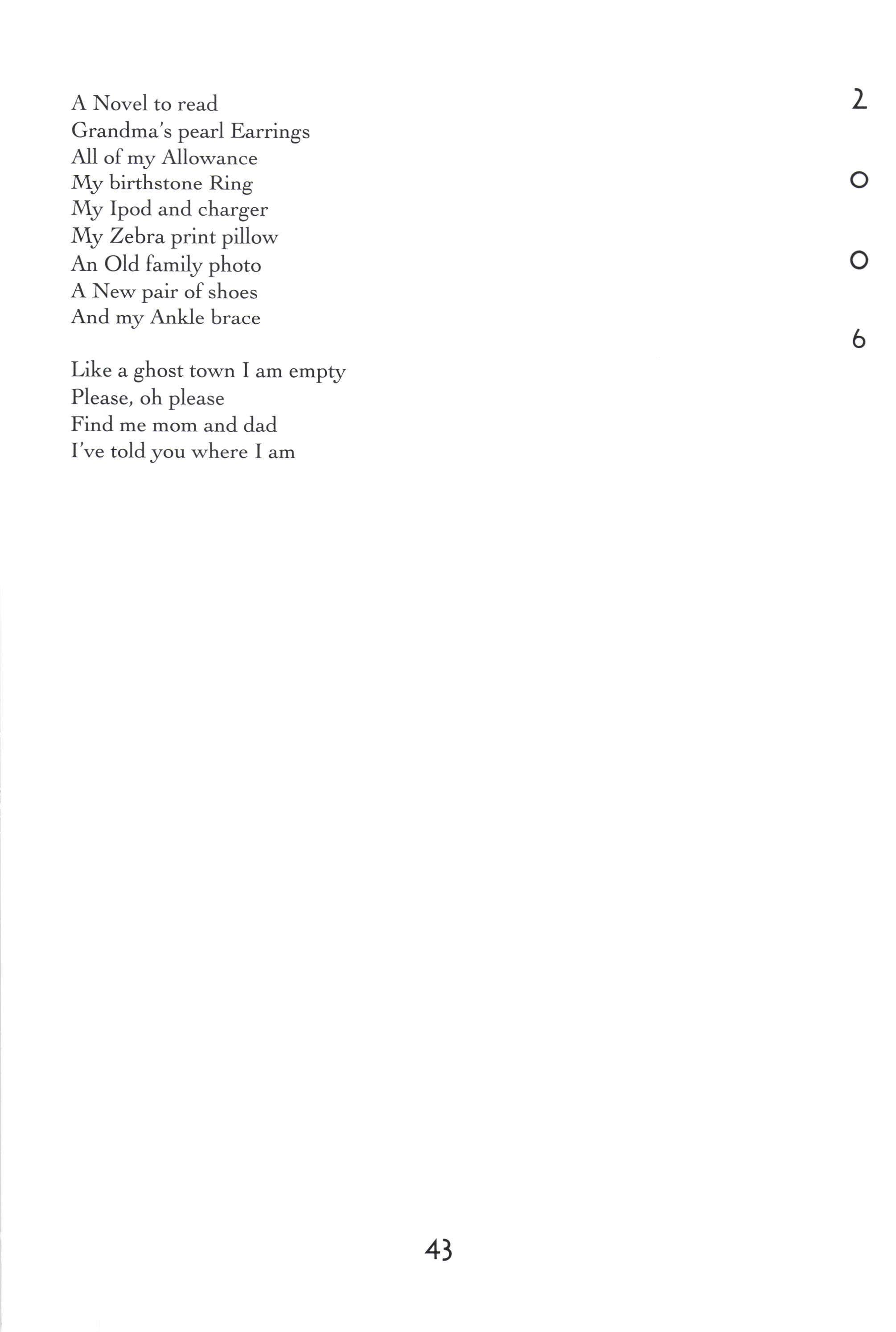
z o o 6 4)
h The Scantron As A Map Of The Spots
E On A Jaguar
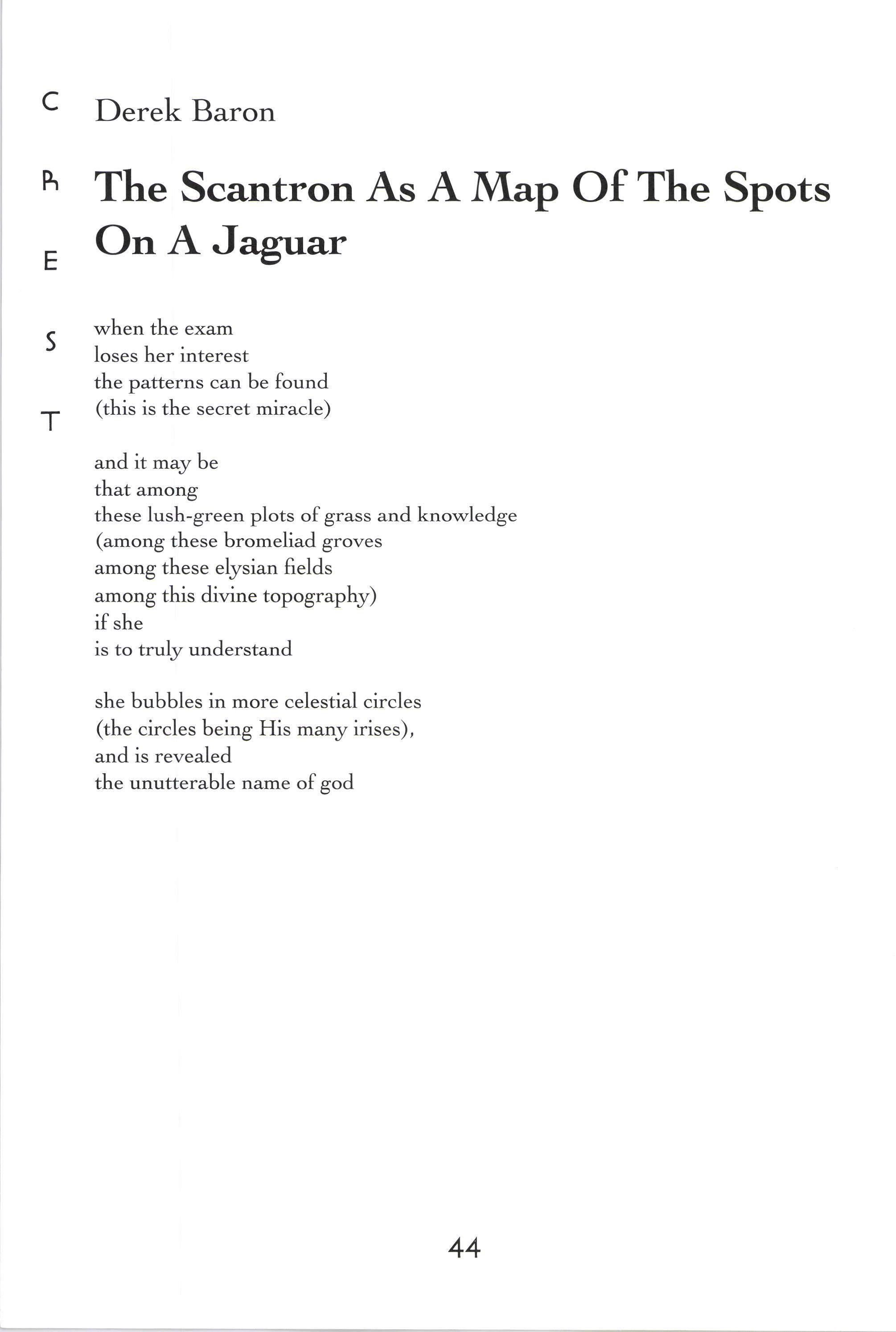
5
when the exam loses her interest the patterns can be found (this is the secret miracle)
Tand it may be that among these lush-green plots of grass and knowledge (among these bromeliad groves among these e\rsian fields among this divine topography) if she is to truly understand she bubbles in more celestial circles (the circles being His many irises), and is revealed the unutterable name of god
c Derek Baron
44
Joe Muriello
Juvenile
The pink onyour lips saysyou're tooyoung To see something like whatyou're imagining It's not rea$r there, but You knowyou want to At least to watchyour thoughts Come to fruition.
Annika Yates
Cicadas
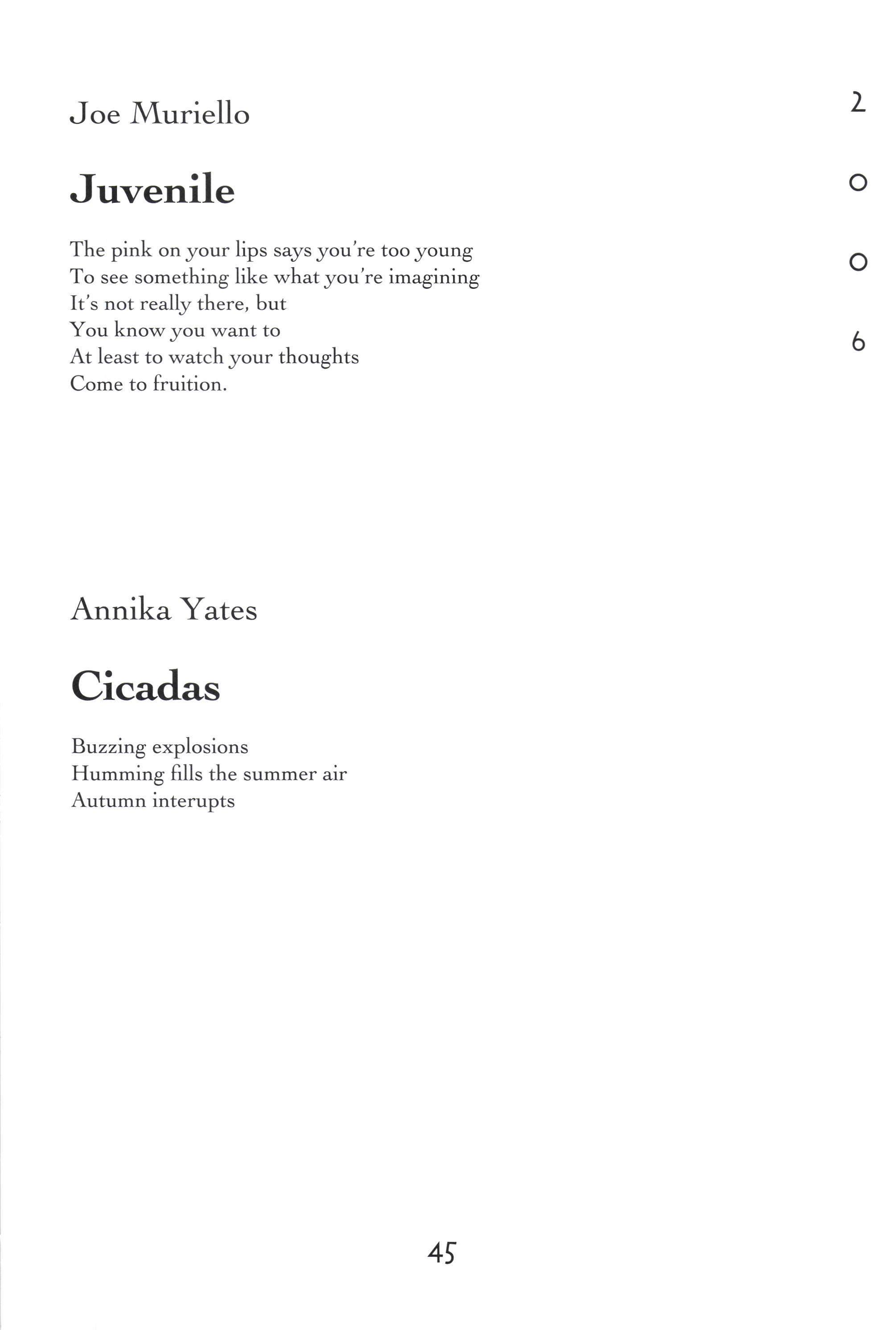
Buzzing explosions
Humming fi.lls the summer air Autumn interupts
L o o 6 45
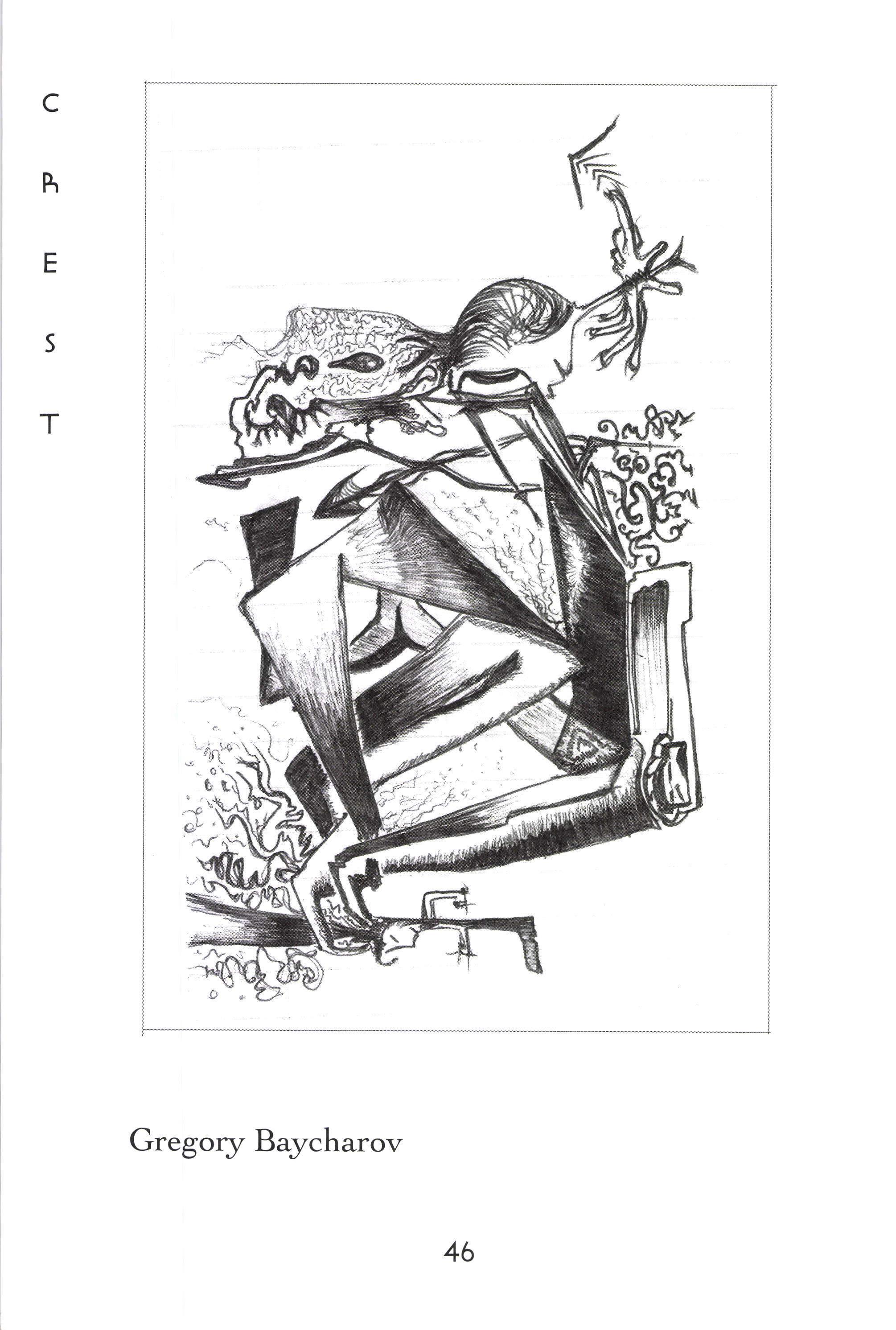
c h E 5 T i'1 '? c\ "-f i) ot Gregory
46
Baycharov
Matthew Heider
Narc
Spattered smatters of street talk flow lil<e honey and gin sweet and sulfurous, with an aftertaste that'll hit you like a life sentence
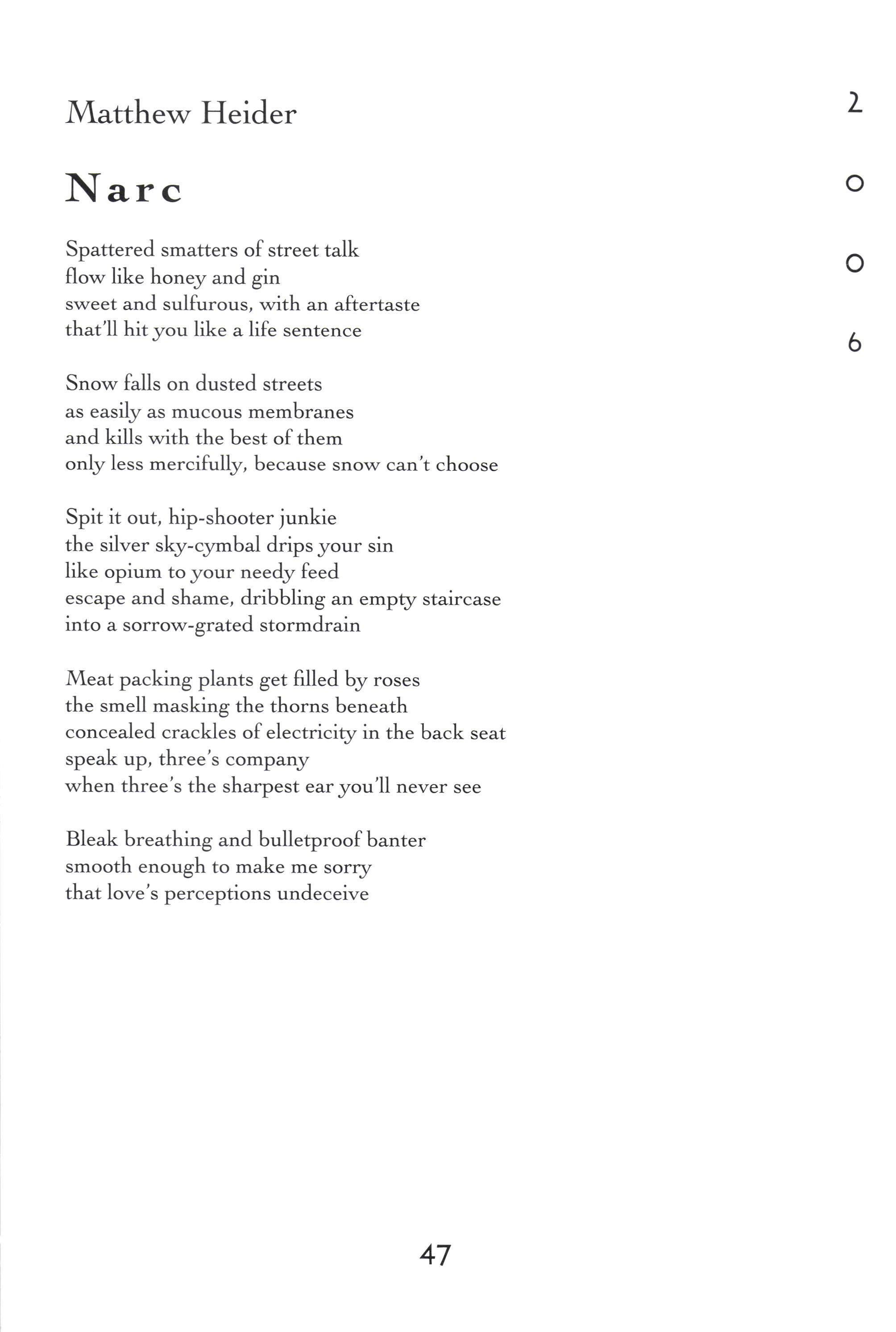
Snow falls on dusted streets as easily as mucous membranes and kills with the best of them only less mercifully, because snow can't choose
Spit it out, hip-shooter junkie the silver sky-c;rmbal drips your sin like opium toyour needy feed escape and shame, dribbling an empfr staircase into a sorrow-grated stormdrain
Meat packing plants get filled by roses the smell masking the thorns beneath concealed crackles of electricit;r in the back seat speak up, three's company when three's the sharpest earyou'll never see
Bleak breathing and bulleqrroof banter smooth enough to make me sorry that love's perceptions undeceive
L o o 6 47
A Hunting Trip
From my perch up high, I see the monkey walking now Strutting so confident King of the'World I close my eyes,
T think of all my hatred
And shoot into the bush
Stephanie Smith
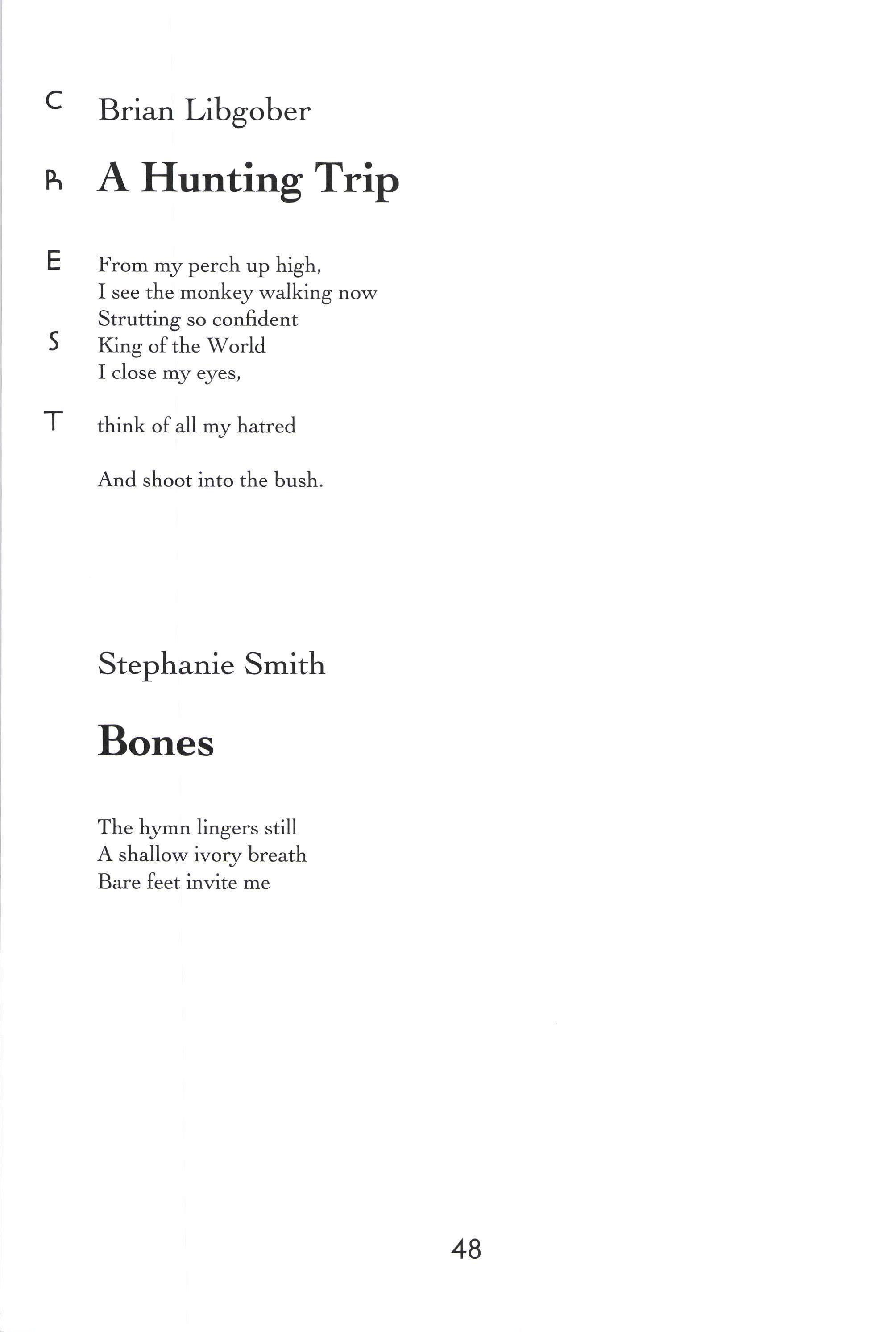
Bones
The h;rmn lingers still A shallow ivory breath Bare feet invite me
C h E 5
Brian Libgober
48
B n[inor Bazz
Thinking nothing of it, we socially "stepped outside" for the third time that evening. Knowing the money in our pockets was not rightfully ours-we laughed.
He lived on formless pronunciation of foreign foods, paid for with Pesos on nights like these, that weren't fooling anyone.
Soon after finding the uncomfortable pauses more than therapeutic he sang off-key to remind himself of free-will After the repugnant taste was passed in circles Delight seemed less than satisfactory To everyone but him.
John Stoffer
Burrito
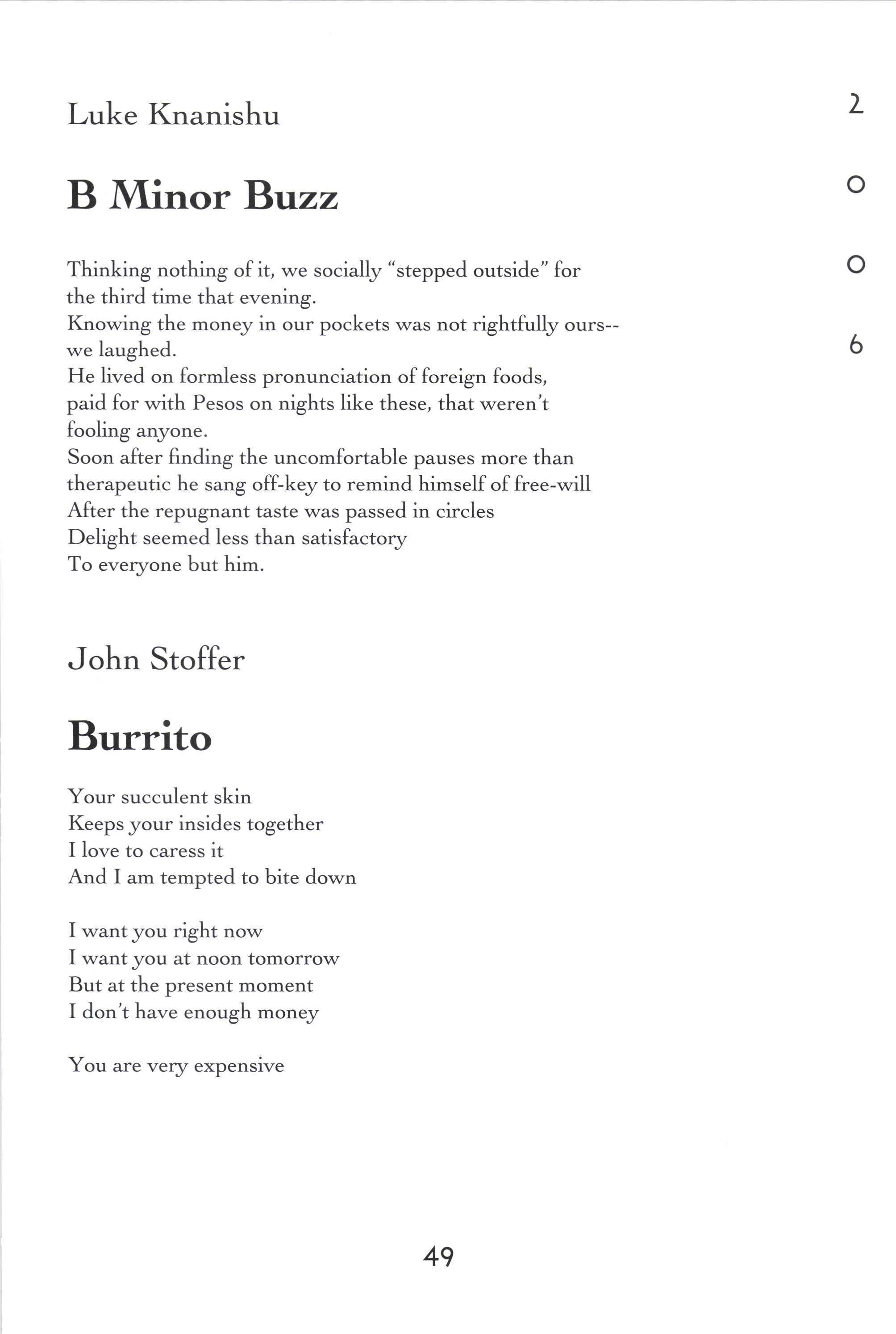
Your succulent skin Keeps your insides together I love to caress it And I am tempted to bite down
I wantyou right now I wantyou at noon tomorrow But at the present moment I don't have enough money
You are very expensive
Luke Knanishu
L o o 6 49
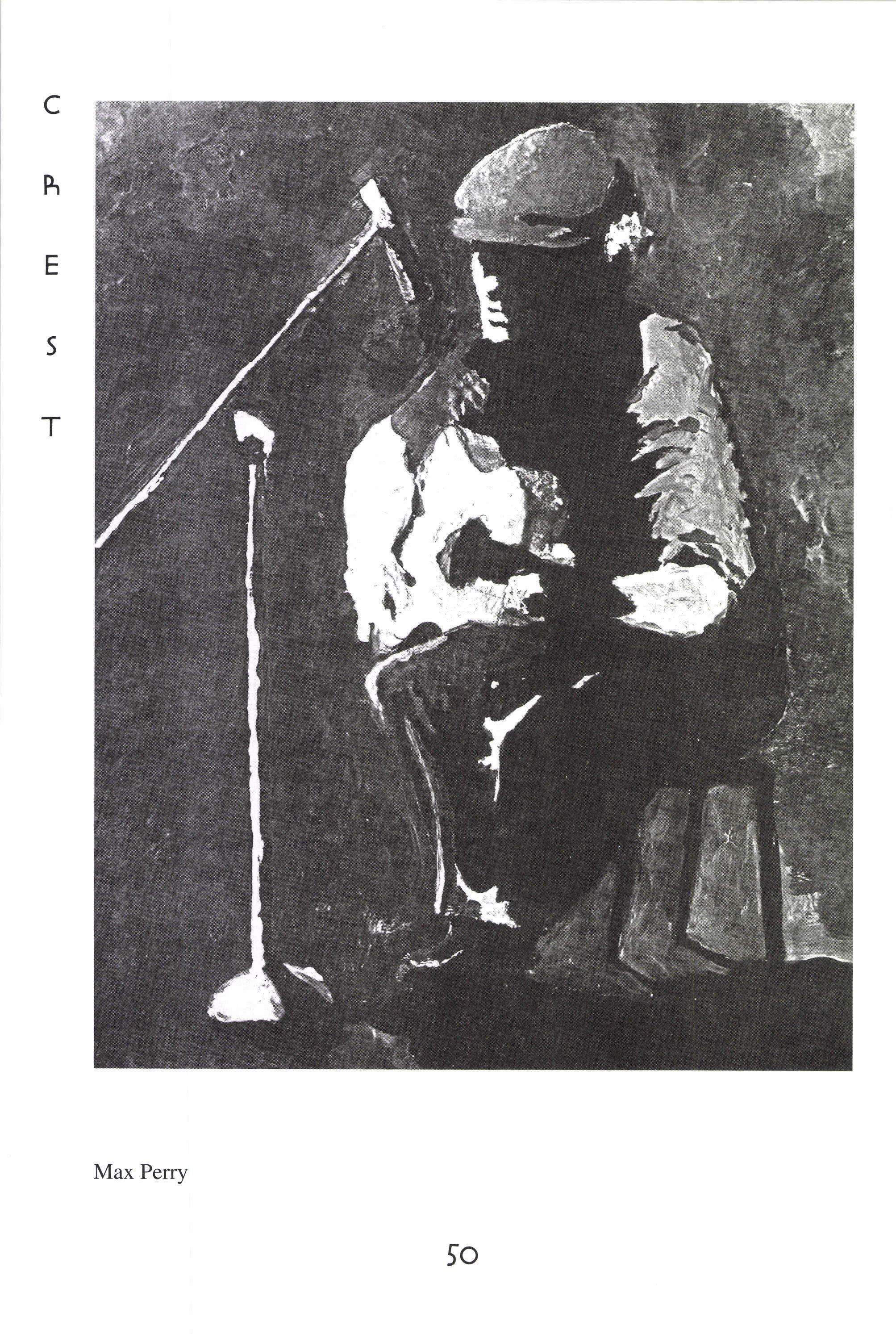
C h E 5 T 5o
Max Perry
Elizabeth Polk Jewelqy Box
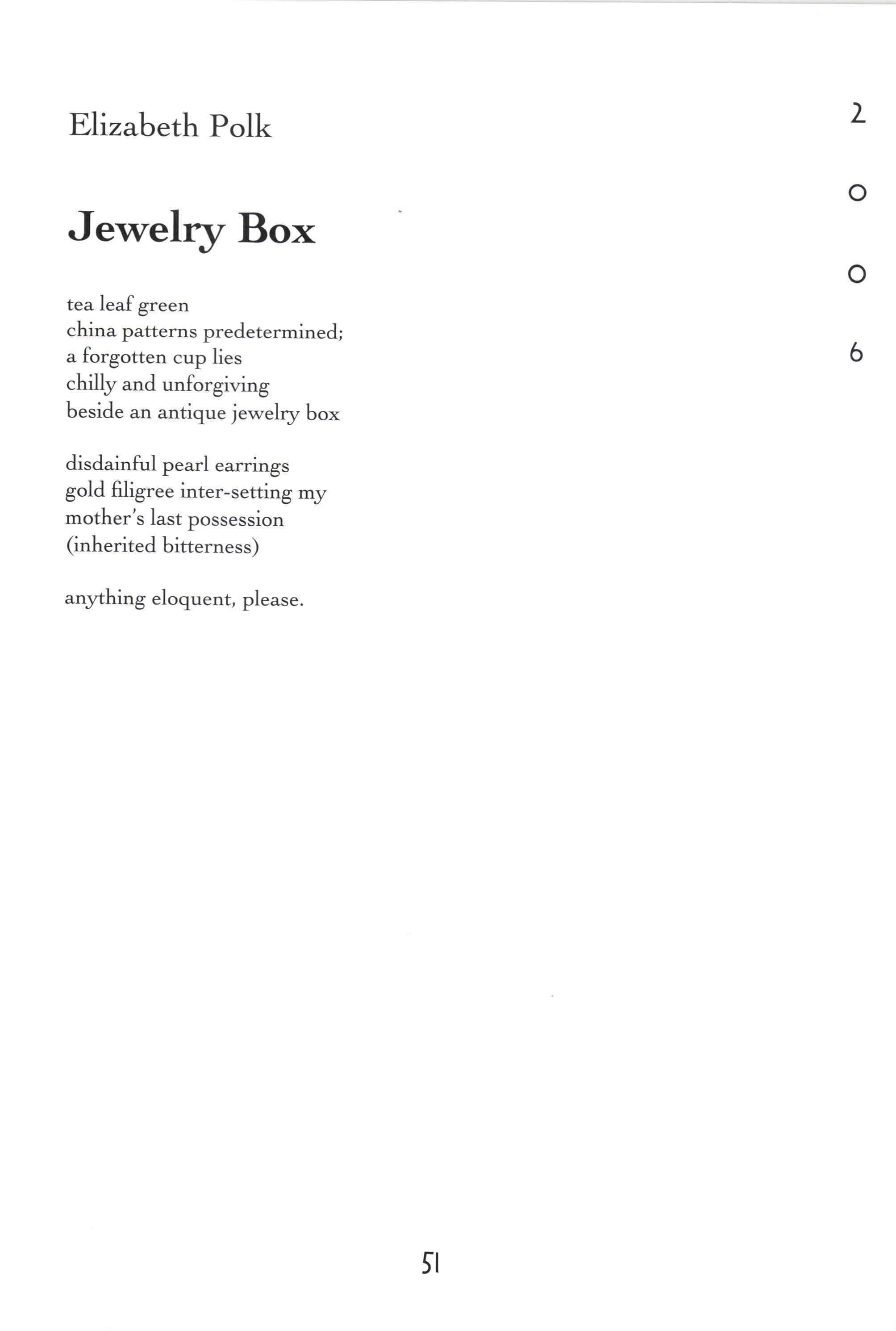
tea leafgreen china patterns predetermined; a forgotten cup lies chilly and unforgiving beside an antique jewelry box
disdainfirl pearl earrings gold filigree inter-setting my mother's last possession (inherited bitterness)
aqything eloquent, please.
z o o 6 5l
Rachel Velasquez
Untitled
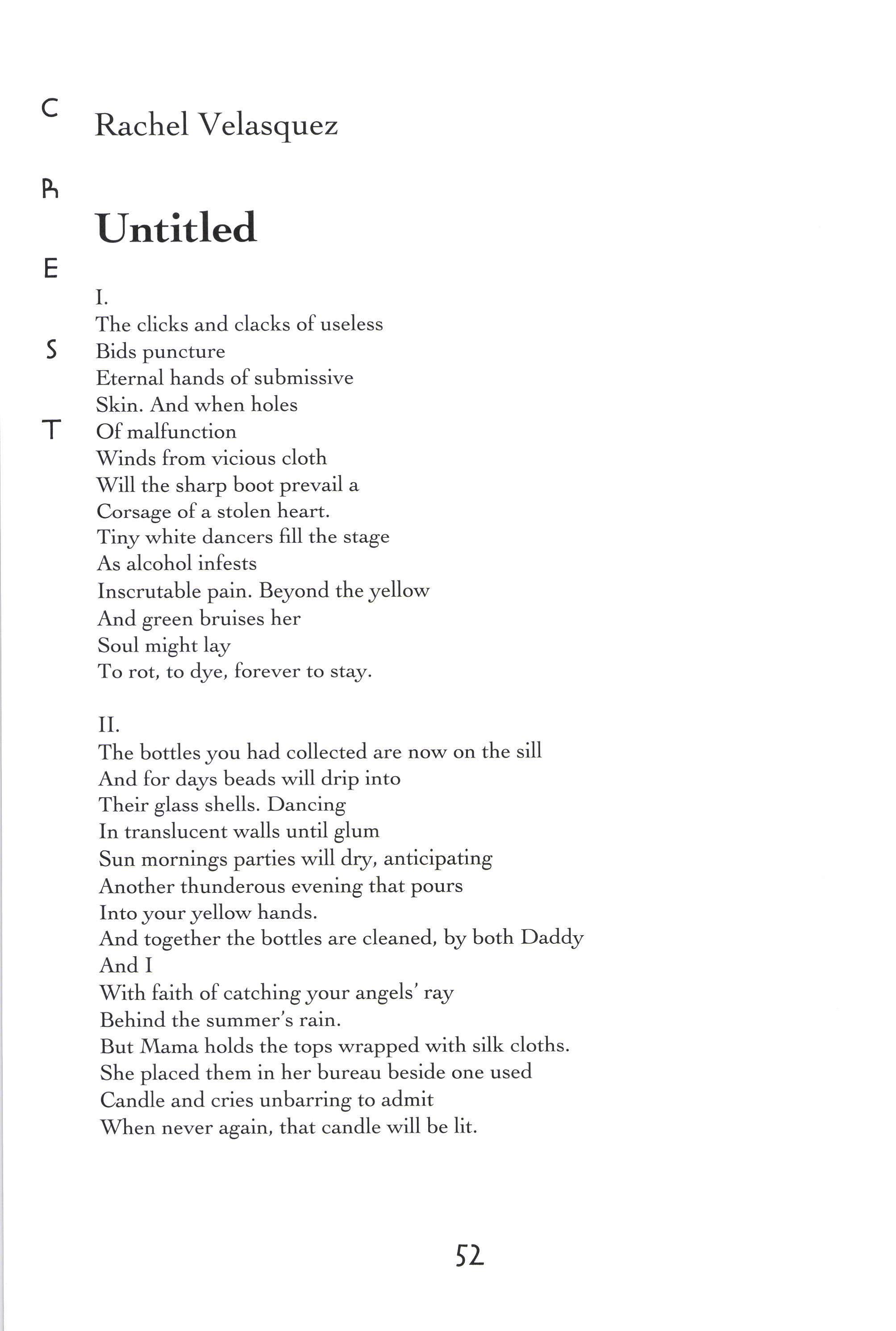
I.
The clicks and clacks of useless S gid. puncture
Eternal hands of submissive Skin. And when holes T Of malfunction Winds from vicious cloth Will the sharp boot prevail a Corsage of a stolen heart. Tiny white dancers fillthe stage As alcohol infests
Inscrutable pain. Beyond the yellow And green bruises her Soul might Iay To rot, to dye, forever to stay.
II.
The bottles you had collected are now on the sill And for days beads will drip into Their glass shells. Dancing In translucent walls until glum Sun mornings parties will dry, anticipating Another thunderous evening that pours Into youryellow hands.
And together the bottles are cleaned, by both Daddy And I 'S/ith faith of catching your angels' ray Behind the summer's rain. But Mama holds the tops wrapped with silk cloths. She placed them in her bureau beside one used Candle and cries unbarring to admit When never again, that candle will be lit.
c A E
5L
ilI.
There with mangled hair and Deep valleyed knuckles of blue, she escapes standing Motionless on
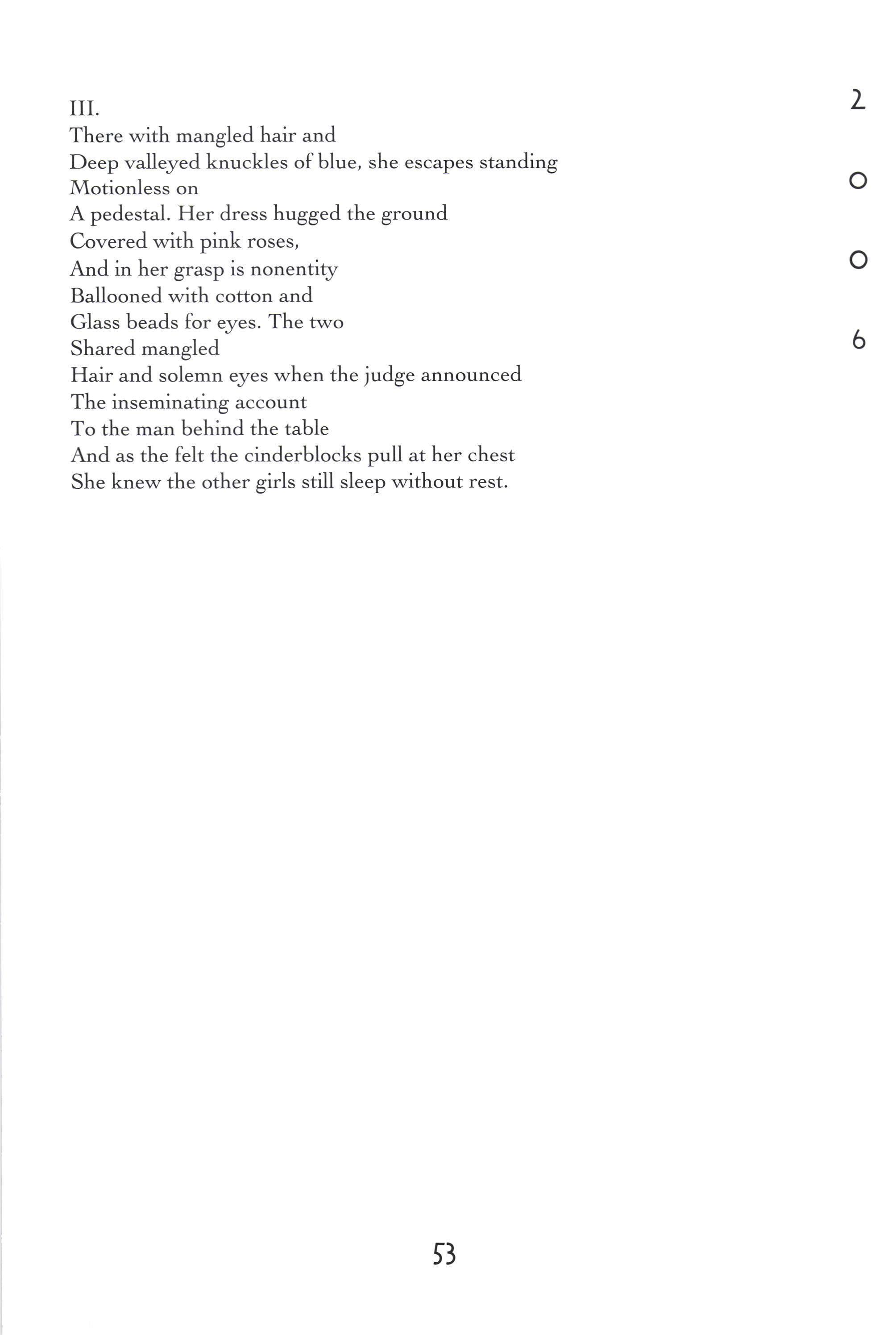
A pedestal. FIer &ess hugged the ground Covered with pink roses, And in her grasp is nonentit;r Ballooned with cotton and Glass beads for eyes. The two Shared mangled Hair and solemn eyes when the judge announced The inseminating account
To the man behind the table And as the felt the cinderblocks pull at her chest She knew the other girls still sleep without rest.
L o o 6 5l
Taylor Feldman h Mercedes Benz
God's Benz high to the sky
Benz UP in the mountains of Israel
E s
Benz in the cold atop the mountain
The luxury Benz
A vehicle so sturdy and mighty
TThe name is given in a strong direction NorthWest, SouthEast, wherever it moves Here you see few Benz roaming about Sleek and beautiful Different styles with different lengths
Some with sunroofs Others without Outside is intimidating Inside is cozy
An automotive like no other that always runs smoothly Over any road
Making you feel safe
As if in the arms of your boy
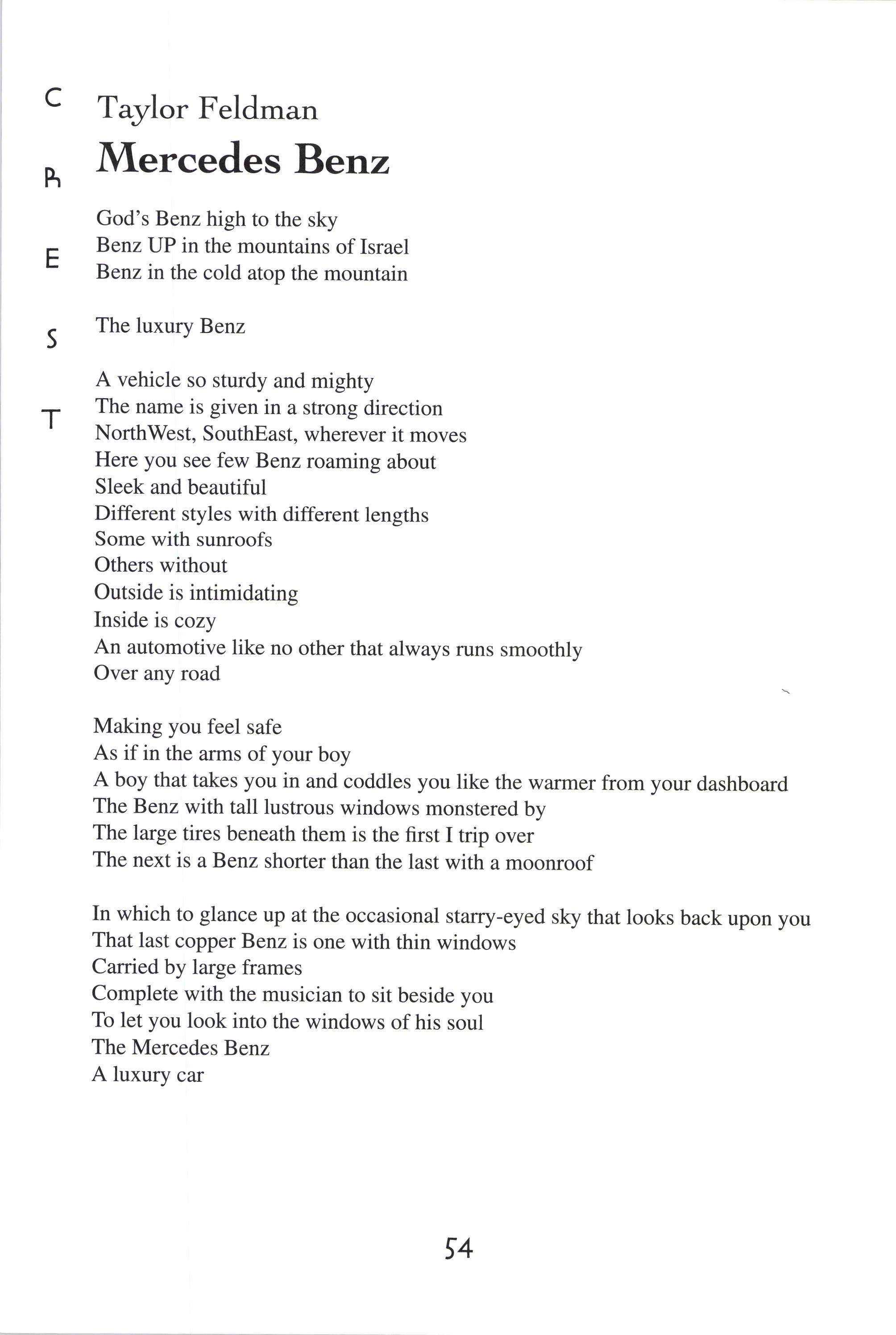
A boy that takes you in and coddles you like the warmer from your dashboard
The Benz with tall lustrous windows monstered by
The large tires beneath them is the first I trip over The next is a Benz shorter than the last with a moonroof
In which to glance up at the occasional starry-eyed sky that looks back upon you That last copper Benz is one with thin windows
Carried by large frames
Complete with the musician to sit beside you
To let you look into the windows of his soul
The Mercedes Benz
A luxury car
c
54
Ben Godfrey high to the sky Ben U-P in the mountains of Israel Ben Burr in the cold atop the mountain
The luxurious Bens
Their vehicle so sturdy and mighty The name is given in a strong direction NorthWest, SouthEast, wherever they move Here you see few Bens roaming about Sleek and beautiful Different styles with different length hair
One with a kippah The others without Their outsides are intimidating Their insides arc cozy They are three boys that run like no other Smoothly Over any trouble
Making you feel safe As if in the seat of your car Your car that protects you and warms you Like the boy that holds you The Ben with lustrous eyes monstered by
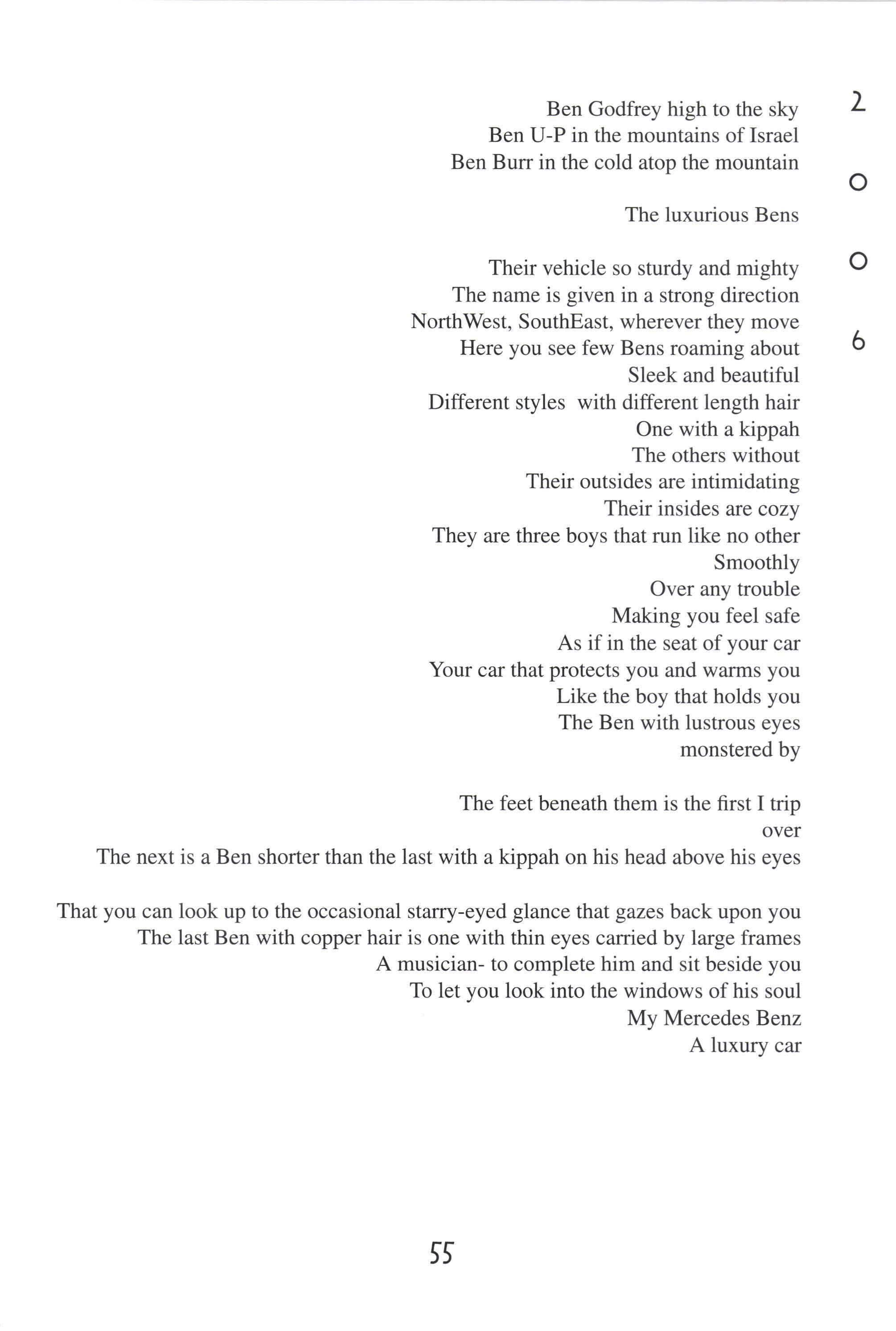
The feet beneath them is the flrst I trip over
The next is a Ben shorter than the last with a kippah on his head above his eyes
That you can look up to the occasional starry-eyed glance that gazes back upon you The last Ben with copper hair is one with thin eyes carried by large frames A musician- to complete him and sit beside you Io let you look into the windows of his soul
My Mercedes Benz A luxury car
55 L o o 6
Caitlin Killion
The Toll Collector
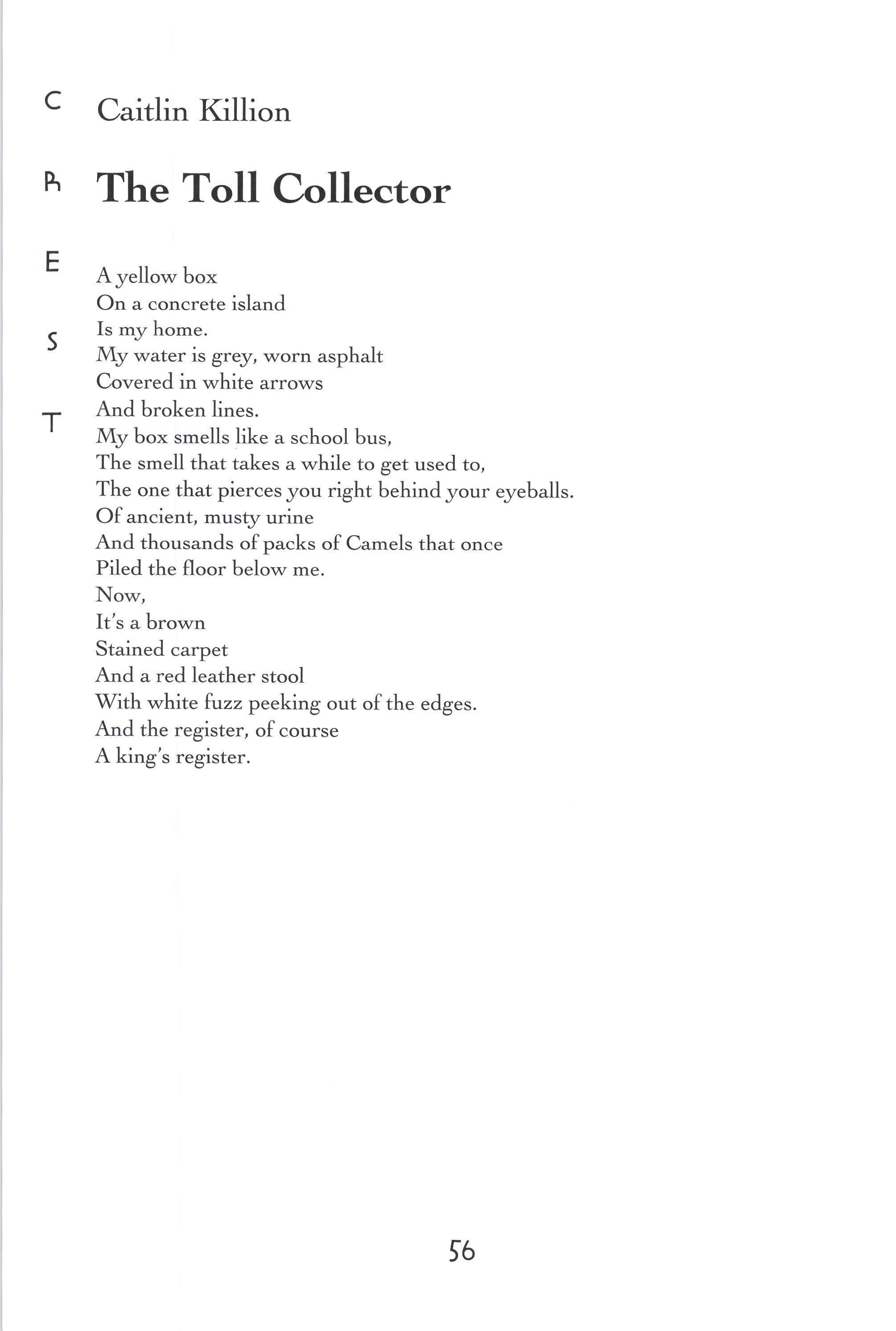
Ayellow box
On a concrete island Is my home.
My water is grey, worn asphalt Covered in white arrows And broken lines.
My box smells lil<e a school bus, The smell that takes a while to get used to, The one that pierces you right behind your eyeballs. Of ancient, must;r urine
And thousands of packs of Camels that once Piled the floor below me. Now, It's a brown Stained carpet And a red leather stool
With white fuzz peeking out of the edges. And the register, of course A king's register.
c B E
5
56
T
Atag'hi
the sky is a burning-cold gas fireplace. skeletons all in bloom alight with charred blackness against the allowed, low light, silver-blue like the glow in their hollowed skulls.
haloed souls flicker, manifesting from the infinite metamorphose of dusky eternit;r.
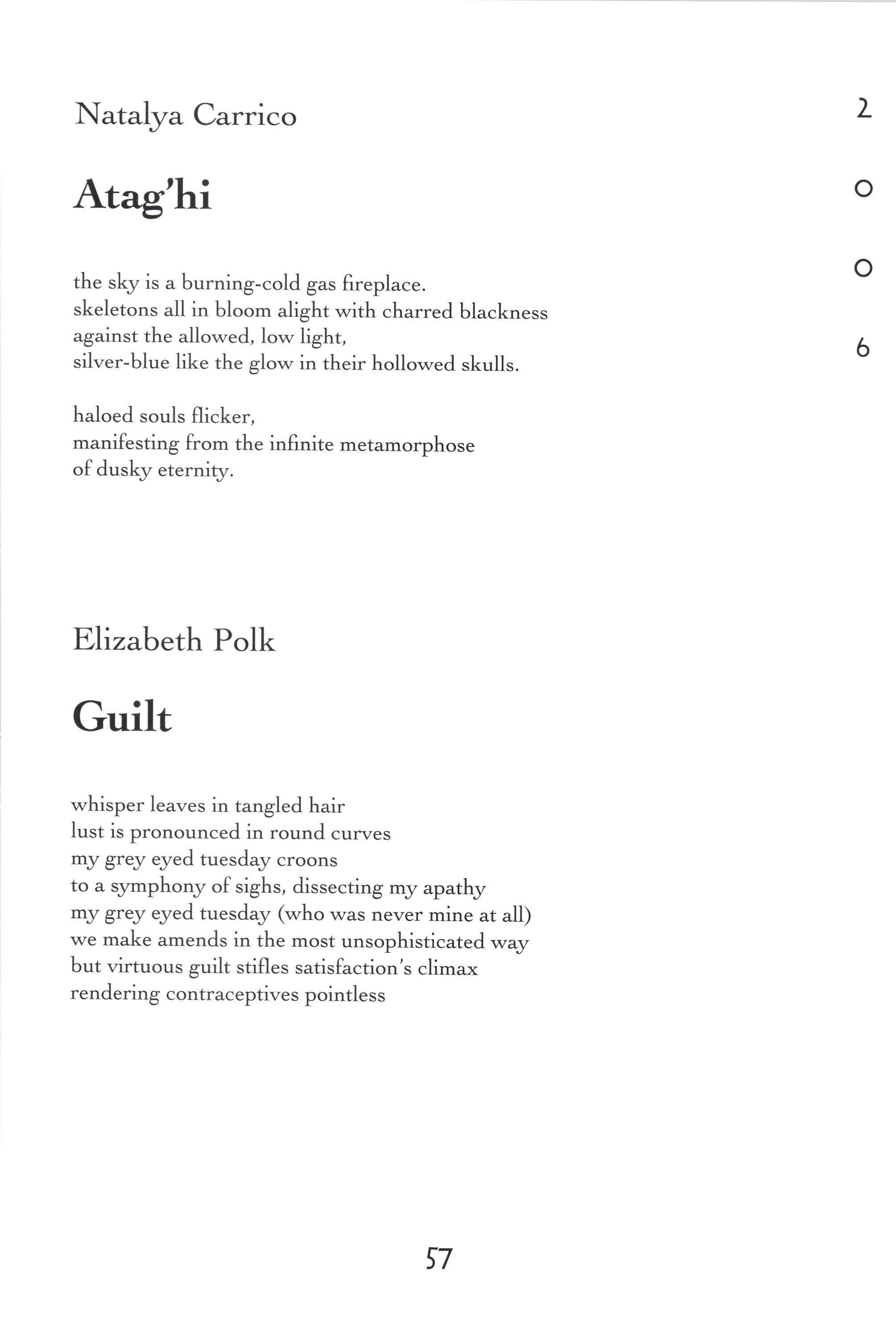 Polk
Polk
Guilt
whisper leaves in tangled hair lust is pronounced in round curves my grey eyed tuesday croons to a s;rmphony of sighs, dissecting my apathy my grey eyed tuesday (who was never mine at all) we make amends in the most unsophisticated way but virruous guilt stifles satisfaction's climax rendering contraceptives pointless
Nata\ra Carrico
Elizabeth
L o o 6 57
Tracy Ewert My Place
The hand twitches around that dying bug. It's my hand, squeezing the life out of that critter. Guts and juices trickle down my lines. Families scream abrzzrng sound. Cool night plays hopscotch on my taste buds, The pungency of graceful flowers and stinking dog crap *afts around me, And the little bugs eyes give me one last pleading look as he light fades from them. Greedily my hands soak up the blood, Tasting sweet when I draw them to my mouth like blood made byLizzy Borden in the white pages of a book. Butyet the pages were stained blue.
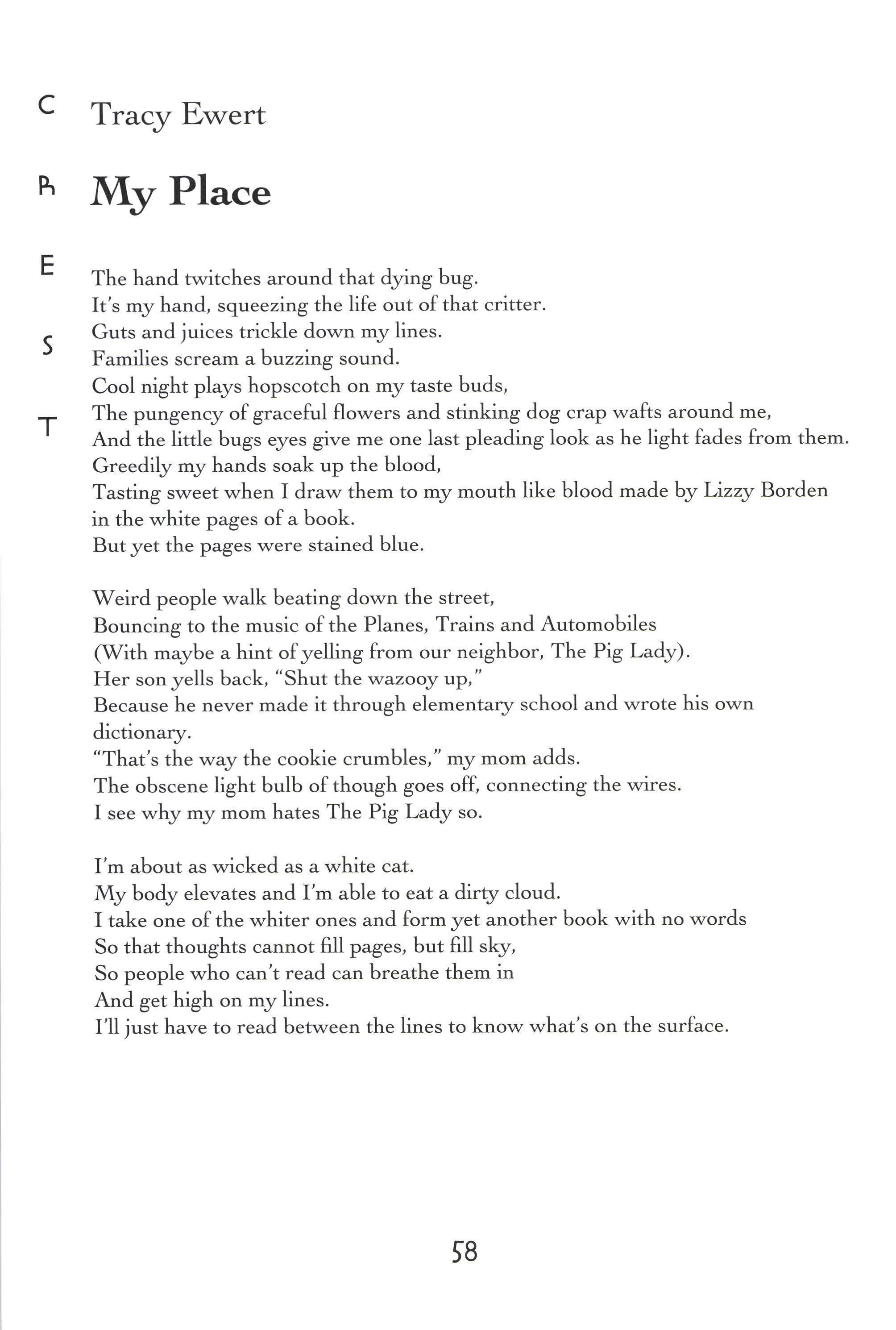
Weird people walk beating down the street, Bouncing to the music of the Planes, Trains and Automobiles (With maybe a hint of yelling from our neighbor, The Pig Lady). Her son yells back, "Shut the wazooy up," Because he never made it through elementary school and wrote his own dictionary. "That's the way the cookie crumbles," my mom adds. The obscene light bulb of though goes off, connecting the wires. I see why my mom hates The Pig Lady so.
I'm about as wicked as a white cat. My body elevates and I'm able to eat a dirqr cloud. I take one of the whiter ones and form yet another book rvith no words So that thoughts cannot fill pages, but fill sky, So people who can't read can breathe them in And get high on my lines. I'll just have to read between the lines to know what's on the surface.
c h E 5
T 5B
Mein Vater, mein Vater. Die id6e ist nicht tot.$
That's what the clouds whispen
Though I would not listen to a cloud. They get high on all that carbon dioxide And make stupid shapes that look different to everyone.
Leaves cascade down in a river
To cover up the black bug's blue blood.
* My father, my father, The idea is not dead.
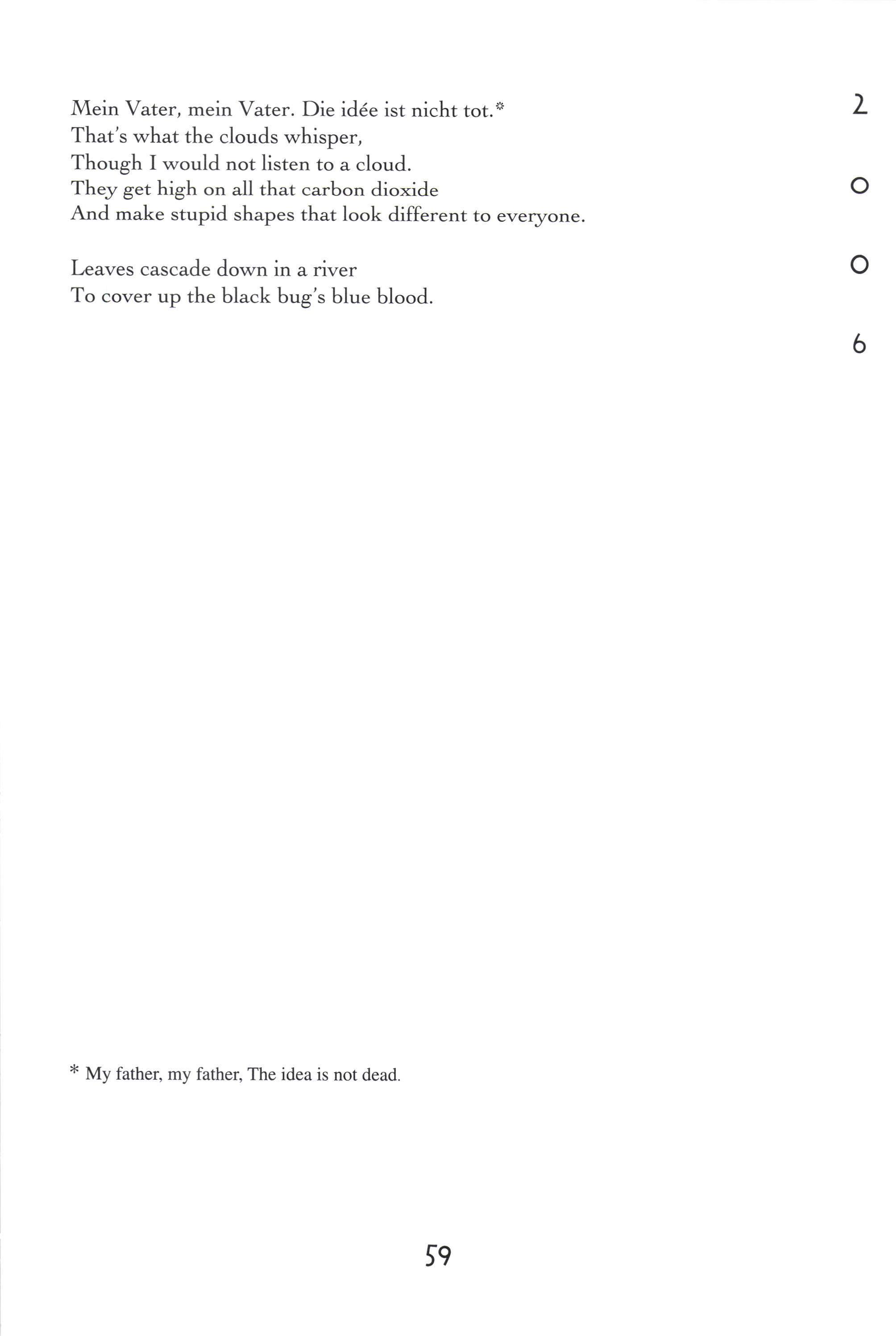
L o o 6 5e
Carl Brozek
Untitled
helped gently awake with soft lids breathing shadows on walls ofa darkened room and quietly alone under cold creased sheets and hollow feather pillolvs and blank faced windows which
gaze at a girl whose cheeks and licked lips roll tears upon palms ofdancers at her hips who gave fun found through sips which brought ethereal eyes and Iaughing, shush, surprise!
Of up-thrown water like parasitic clothes Which won't leave her sight as long as she is cold
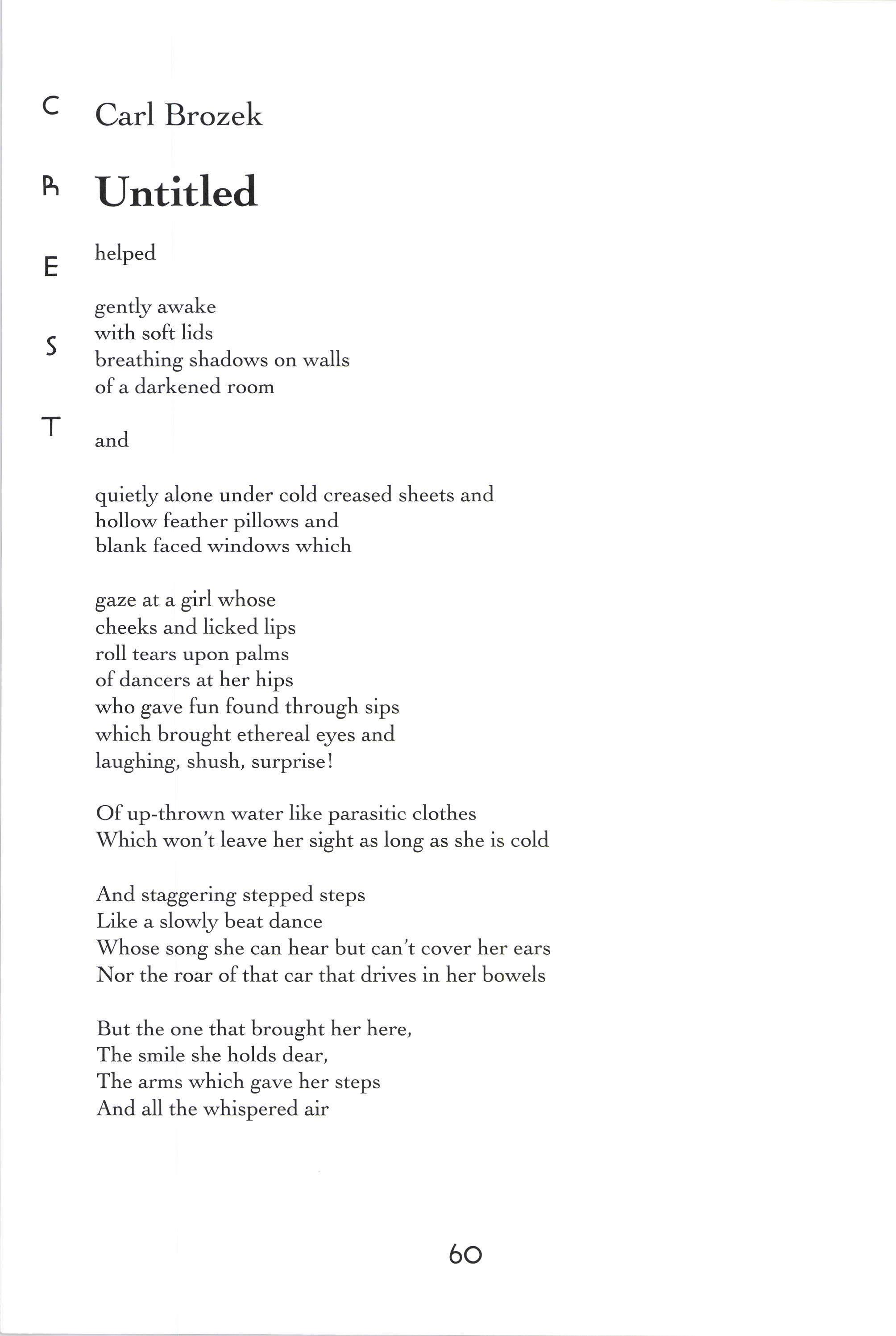
And staggering stepped steps Like a slow\r beat dance Whose song she can hear but can't cover her ears Nor the roar of that car that &iwes in her bowels
But the one that brought her here, The smile she holds dear, The arms which gave her steps And all the whispered air
C h E
s T 60
Make it now so that she's quietly helped under cold creased sheets And rested upon hollow feather pillows And under blank faced windows And she's gently asleep

L o o 6 6l
In Another CountryrA Story of E Damage and Interaction

In Ernest Hemingway's "In Another Country," the American narrator is recovering in Italy after being wounded in World War I. He, along with the others who fought in the war, is detached and numb. He is out of his place and away from his people, though even the Italian soldiers no longer fit in. W'ar has isolated these men, and they need contact with others to rebuild their sense of humaniqr.
The soldiers of Milan seek the fellowship of man, and yet, because they are soldiers, they are set apart. "The people hated [them] because [th"y] were officers, and from a wine-shop some one called out, 'A basso gli ufliciali!"' (Hemingway 268). Ostracized by the villagers, they group together. The American visits a cafe with three Italian soldiers every afternoon, though it becomes clear that "[he] was a friend, but [he] was never really one of them... because...they had done very different things to get their medals" (Hemingway 270). He also regular\r attends rehab sessions at the hospital with a major who injured his hand. even though "there was a time when none of fthem] believed in the machines fused for rehab]..." (Hemingway 271). The narrator goes to the cafe for the atmosphere and the company; it is the one place " [they themsel"es] all understood" (Hemingway 269). Similarly, he wisits the hospital routinely, not primarily for medical treatment, but for the human contact he gains there. The American, seeking human interaction, tries, though ultimately fails to {ind comfort in the humanistic qualities of objects and scenery around him. He walks "home at night through the empt;r streets with the cold lr,ind and all the shops closed, tgnng to keep near the streetlights..." (Hemingway 270). The lights are his guides through the empt;r landscape, and while he may recognize their warmth and seeming hospitality, they are not human, and cannot therefore help him. Indeed, while the Arnerican says, "the electric lights came on, and it was pleasant along the streets..." all they make visible is the powdered snow resting on the carcasses of animals hanging outside the shops, cold and lifeless (Hemingway 267). Without people, the physical world is empfr and discomforting. The narrator talks of the hospital's antiquiqr
5 T C
Mike Murray h
6L
and beaut;r, but then associates it with funerals, effectively the end of human contact (Hemingway 267). He searches not for beau{r, but for comfort, li[e that of the warmth of the chestnuts in his pocket and the frre over which they were roasted. Ho'rvever, any real comfort this warmth gives him is perhaps merely the remembrance of the contact he made with the woman selling the chestnuts (Hemingway 267). Likewise, while the American is comfortable in the Cova, the cafe that is "rich and warm and not too brightly lighted, and noisy and smoky at certain hours..." his comfort derives from the atmosphere created by the people in the cafe, especially the Italian soldiers whom he is with (Hemingway 269). Ultimately, objects alone, like the pictures of rehabilitated hands the doctors show the wounded major, cannot help rebuild these men's sense of humaniqr (Hemingway272).
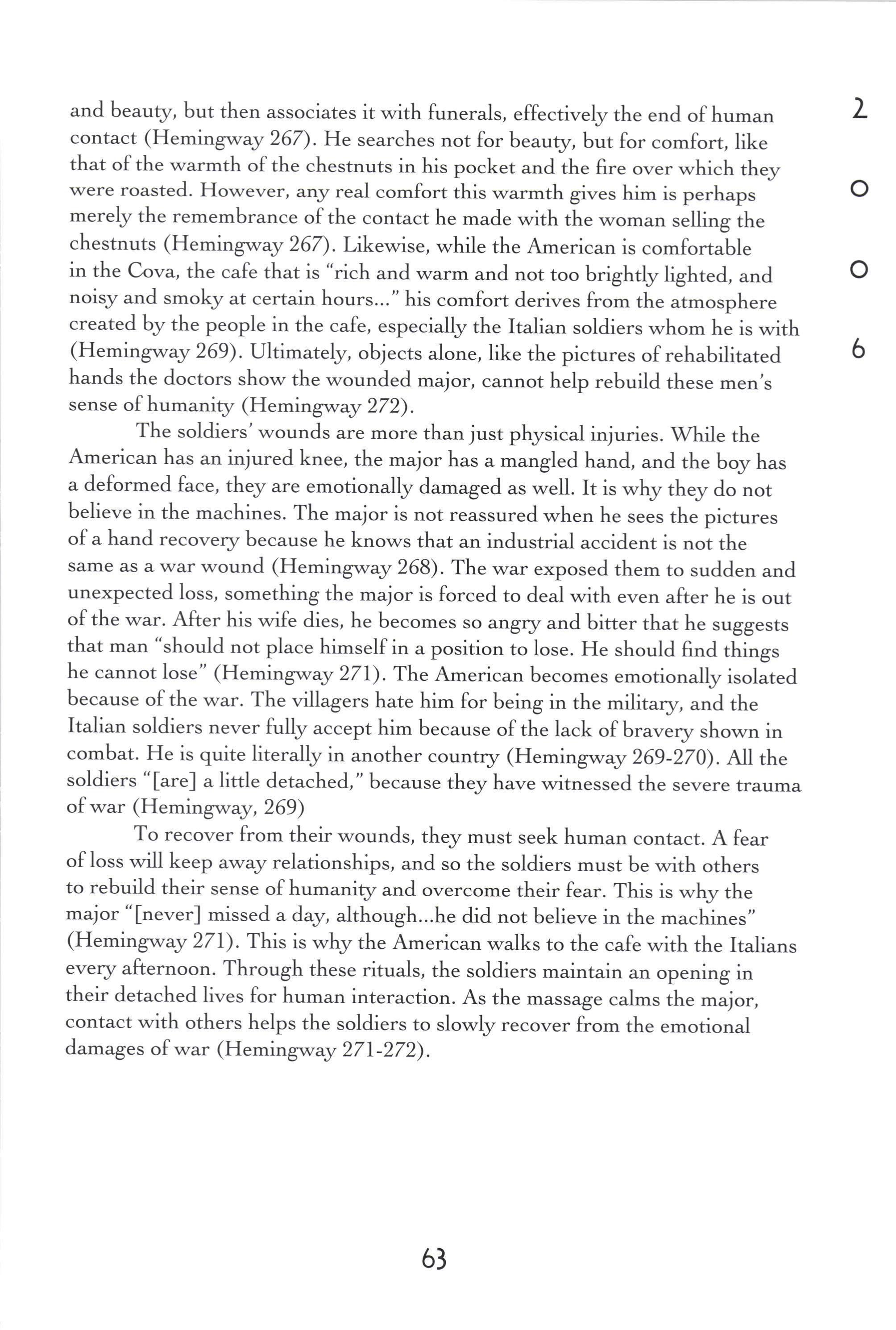
The soldiers'wounds are more than just physical injuries. while the American has an injured knee, the major has a mangled hand, and the boy has a deformed face, they are emotionally damaged as well. It is why they do not believe in the machines. The major is not reassured when he sees the pictures of a hand recovery because he knows that an industrial accident is not the same as a war wound (Hemingway 268). The war exposed them to sudden and unexpected loss, something the major is forced to deal with even after he is out of the war. After his wife dies, he becomes so angry and bitter that he suggests that man "should not place himself in a position to lose. He should find things he cannot lose" (Hemingway 27L). The American becomes emotionally isolated because of the war. The villagers hate him for being in the military, and the Italian soldiers never fully accept him because of the lack of bravery shown in combat. He is quite literally in another country (Hemingway 269-270). All the soldiers "[are] a little detached," because they have witnessed the severe trauma of war (Hemingway,269)
To recover from their wounds, they must seek human contact. A fear of loss will keep away relationships, and so the soldiers must be with others to rebuild their sense of humanit;r and overcome their fear. This is why the major "[never] missed a day, although...he did not believe in the machines" (Hemingway 271). This is why the American walks to the cafe with the Italians every afternoon. Through these rituals, the soldiers maintain an opening in their detached lives for human interaction. As the massage calms the major, contact with others helps the soldiers to slowly recover from the emotional damages of war (Hemingway 27L-272).
L o o 6 6l
Sam Kaplan
Thoughts From The Superdome
ocean undertows crash careful craft but here cities will rebuild with smoothyoung hands to wall the well of ocean under toe.
TToes that now unshoed Fall bare with feet To flooded floors In houses now without Their roofs.
And windows to The outside storm (still violent in its wake) recall the day when ocean winds were soft.
And simple sand tragedies 'Were always without Refugees.
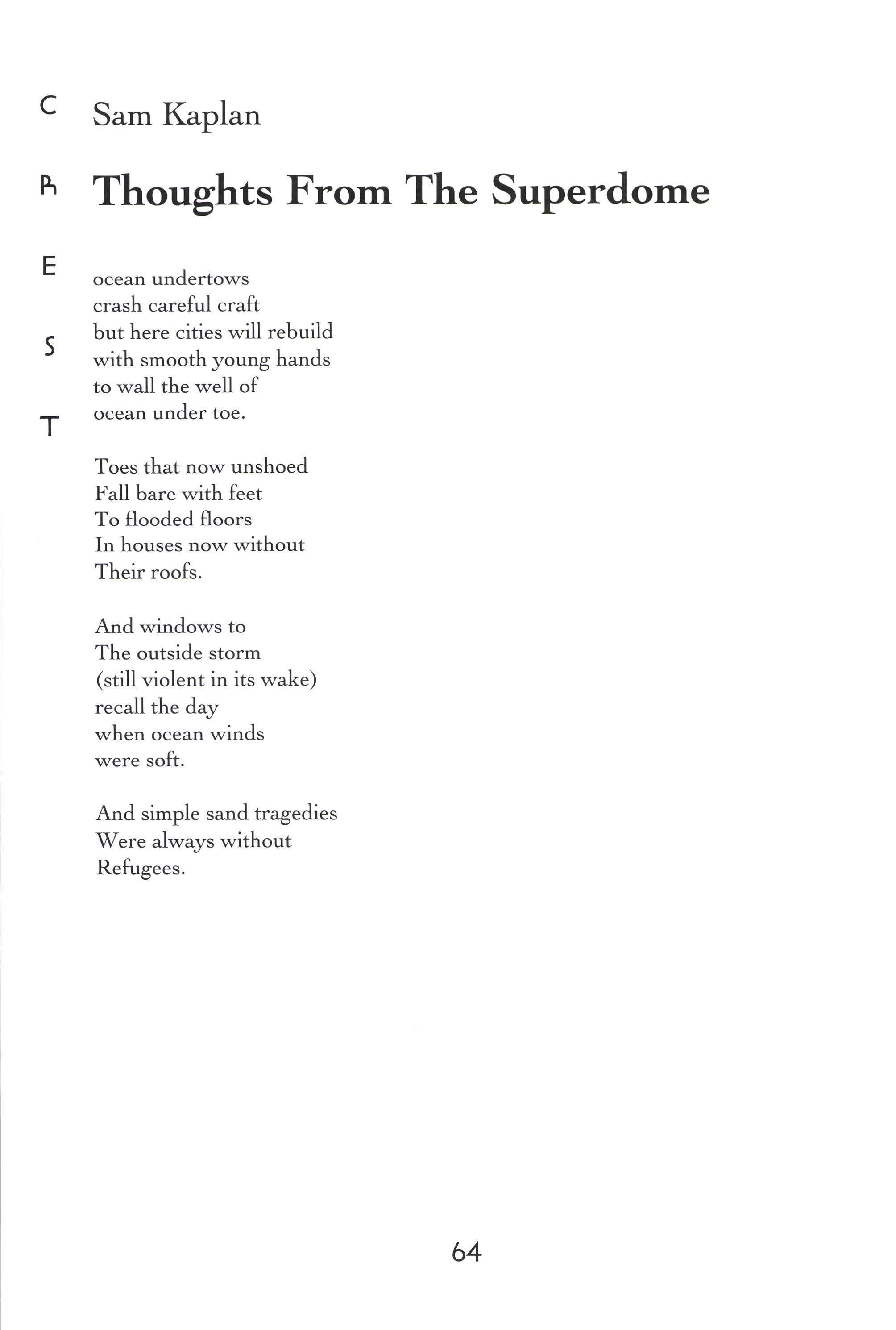
c h E
s
64
Untitled
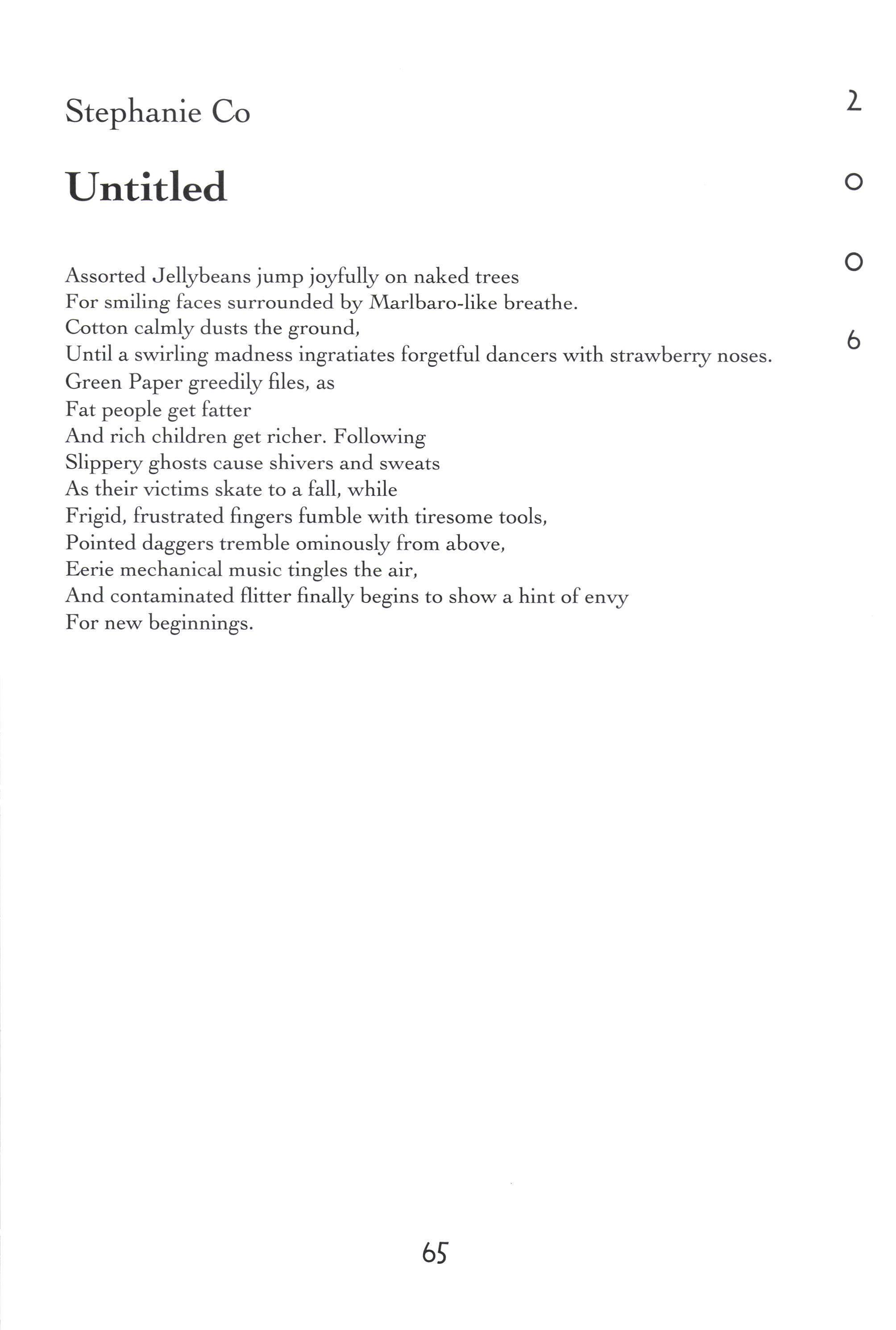
Assorted Jellybeans jr-p joyfully on naked trees
For smiling faces surrounded by Marlbaro-like breathe. Cotton calmly dusts the ground, Until a swirling madness ingratiates forgetful dancers with strawberry noses. Green Paper greedily files, as Fat people get fatter And rich children get richer. Follorving Slippery ghosts cause shivers and sweats
As their victims skate to a fall, while Frigid, frustrated fingers fumble with tiresome tools, Pointed daggers tremble ominously from above, Eerie mechanical music tingles the air, And contaminated flitter fina\r begins to show a hint of enrXr
For new beginnings.
Stephanie Co
L o o 6 65
s T
Hillary Esqueda
Size 0
I see the girls
With the invisible waists Who playwith men
In hummingbird haste.
I see them giggle and laugh and flirt
In too tight top and mini-skirt
And dye hair blond, and tan skin tan And drive in Jaguars not mini vans.
I watch the boys line up to fall
And see the girls push to topple them all.
I see and I wonder why nobody sees
The paint of the girls will peel off with the breeze And what will be left is garbage and waste.
Still, I long to be a girl with an invisible waist.
Sam Kaplan
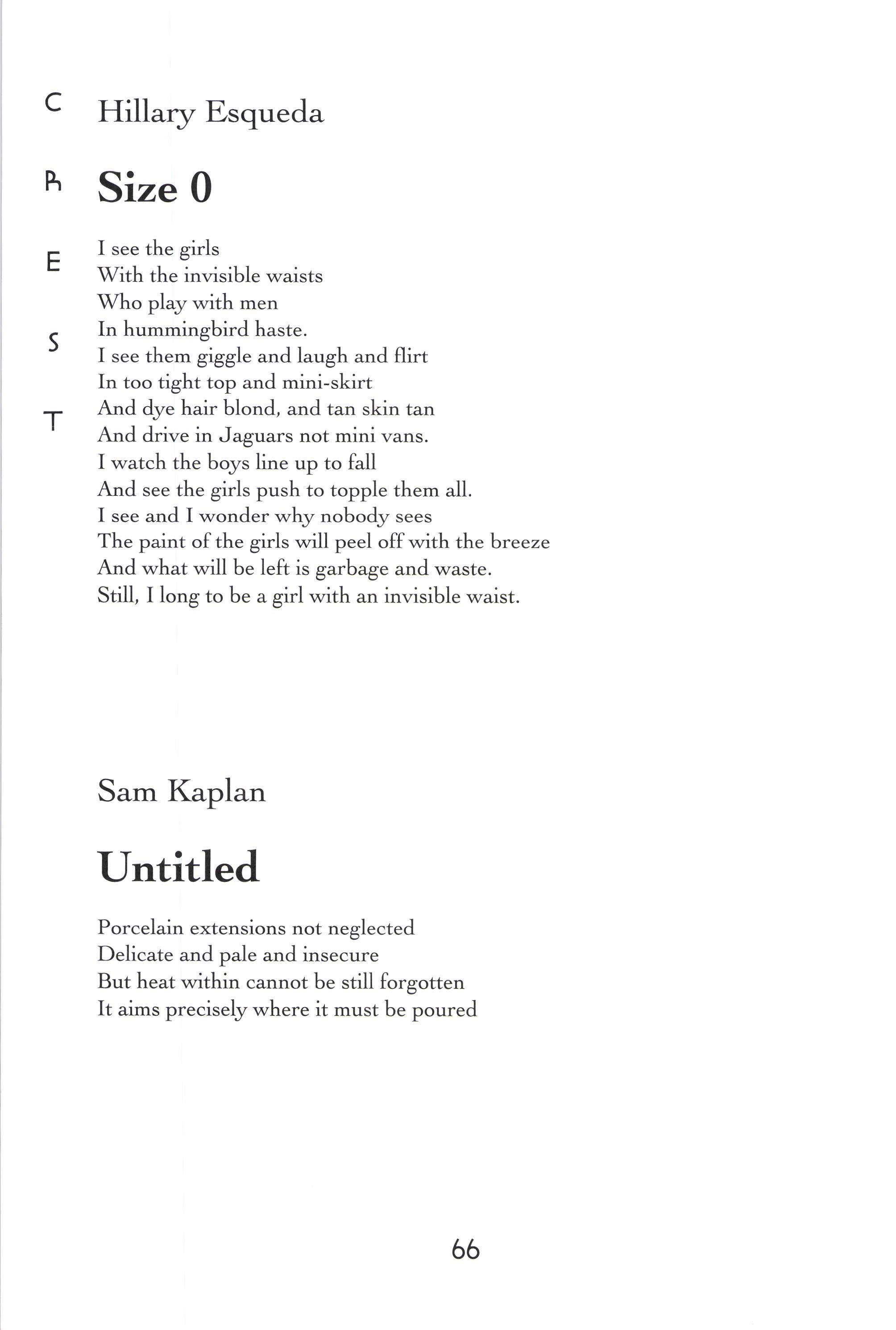
Untitled
Porcelain extensions not neglected
Delicate and pale and insecure
But heat within cannot be still forgotten It aims precisely where it must be poured
c h E
66
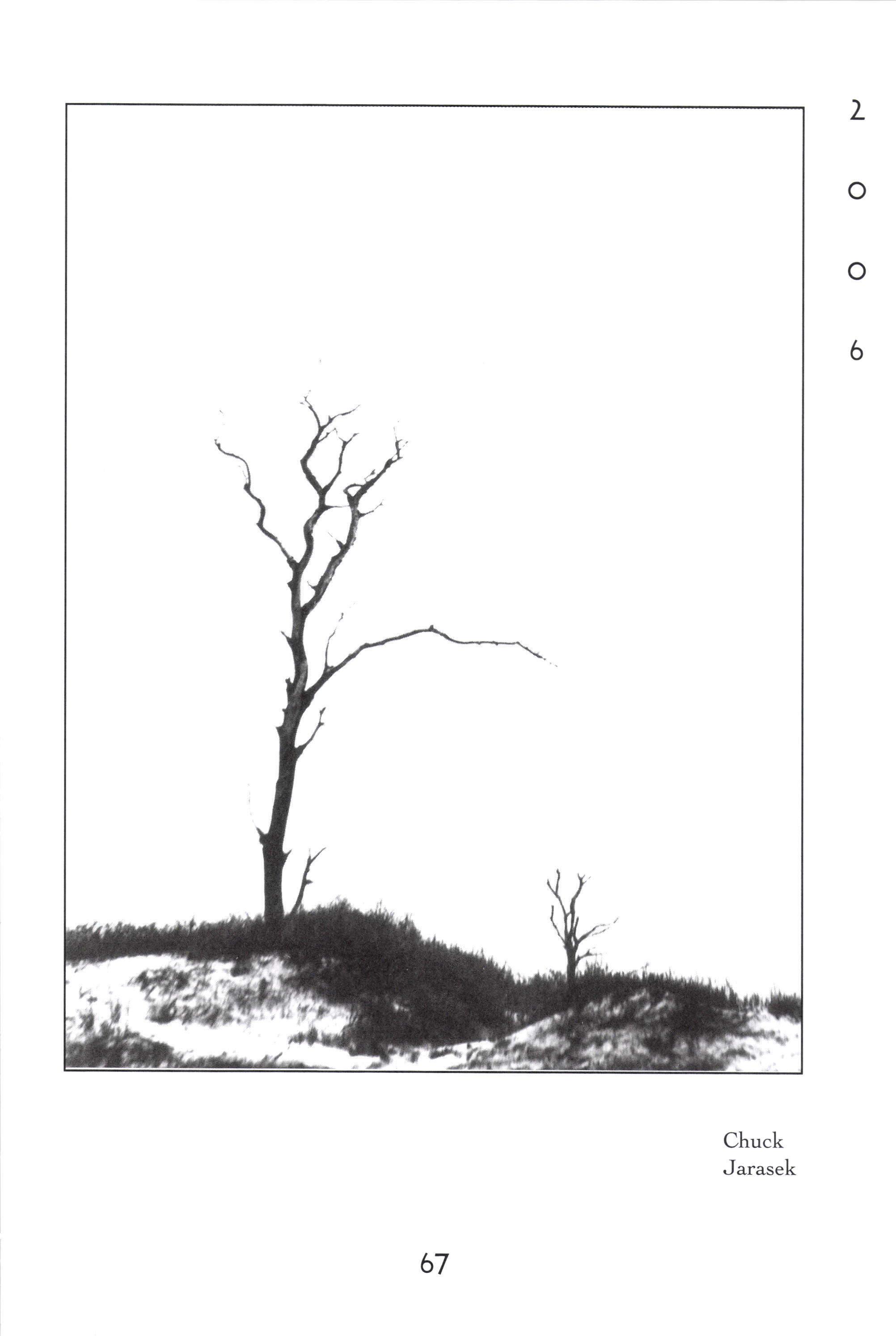
L o o 6
67
) Chuck Jarasek
The Great Hunter Of The Suburbs
you have no idea how wonderful the sounds a drowning squirrel makes there's the squeal as if they can call someone for help there's the wheeze of trying to shove the nose to the top of an upside down cage there's the hiss of the lungs filling with water as the desperation in the eyes fade and gloomy acceptance settles like pulp at the bottom of orange juice unique trophies line my walls out mywindow I see, rvith my hunter's eye, my traps laboriously set with deep intent and just past them a little girl walking home sobbing
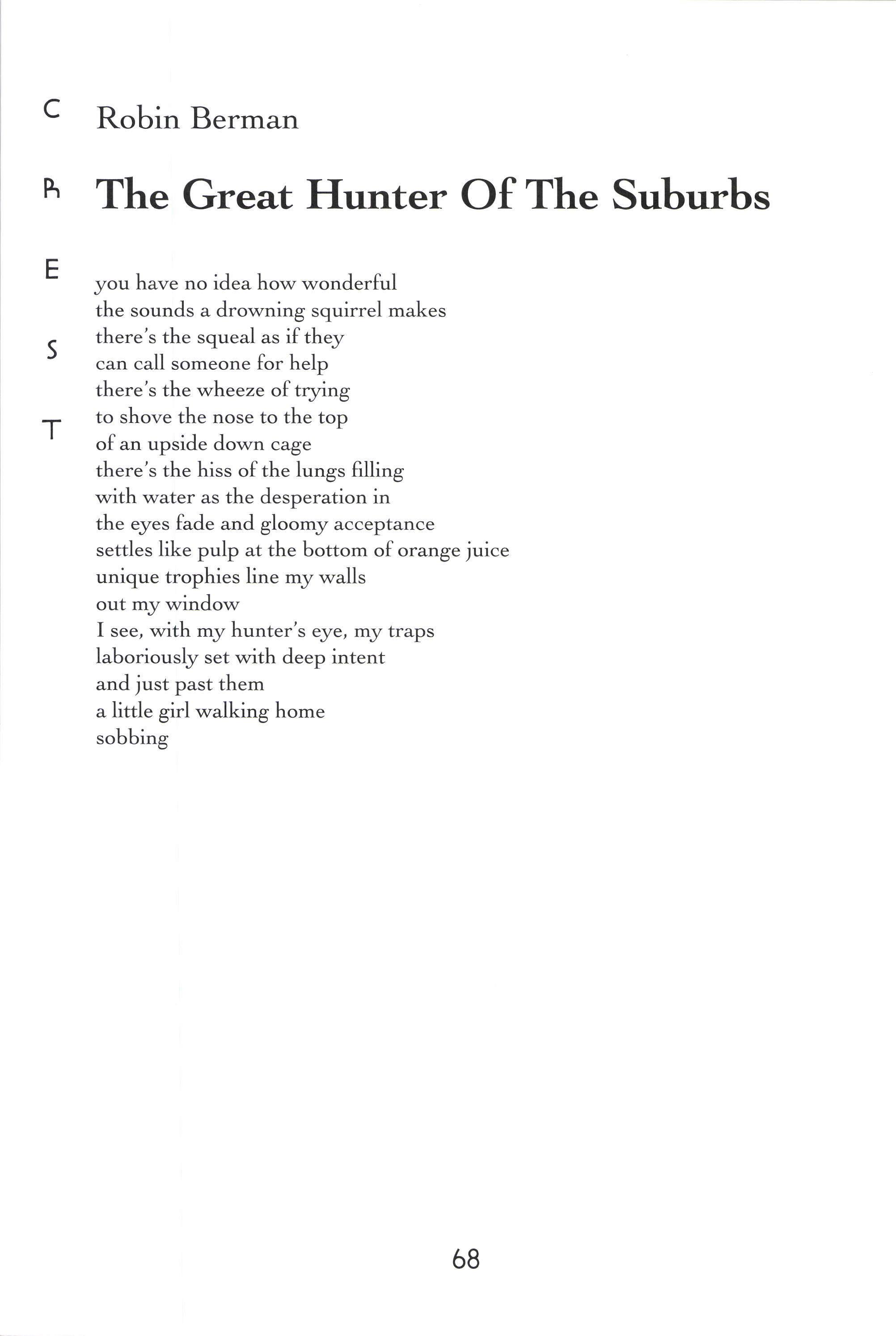
C h E
Robin Berman
5
6B
T
Simon Schneider
To Follow Only Silence
It builds slowly amid the room of crowded people; de$ring meter it builds, every senseless syllable a dripping beat to linger on the tenuous air, hanging every moment up to laugh at time's march forward, as rhSrthm dances out its own time.
And still it builds, rife with aerial cracklings of muted ener5/, restricted to compromised l;rrics; to dictate the measure of unnamable intents, it feebly strikes chords, and wicariously we tumble down, down every beat, content to make nothing of it.
And still it weaves and wallows in its idiosJ,,ncratic meter, each voice a mallet to hammer upon time's unwavering plod, to s;mcopate the rattling tick-tock clop of hangman's pendulum another measure, and sit irresolute amid mock-stock grandeur and forgotten empathy, and surrender to m;rriad cackling thunderclap.
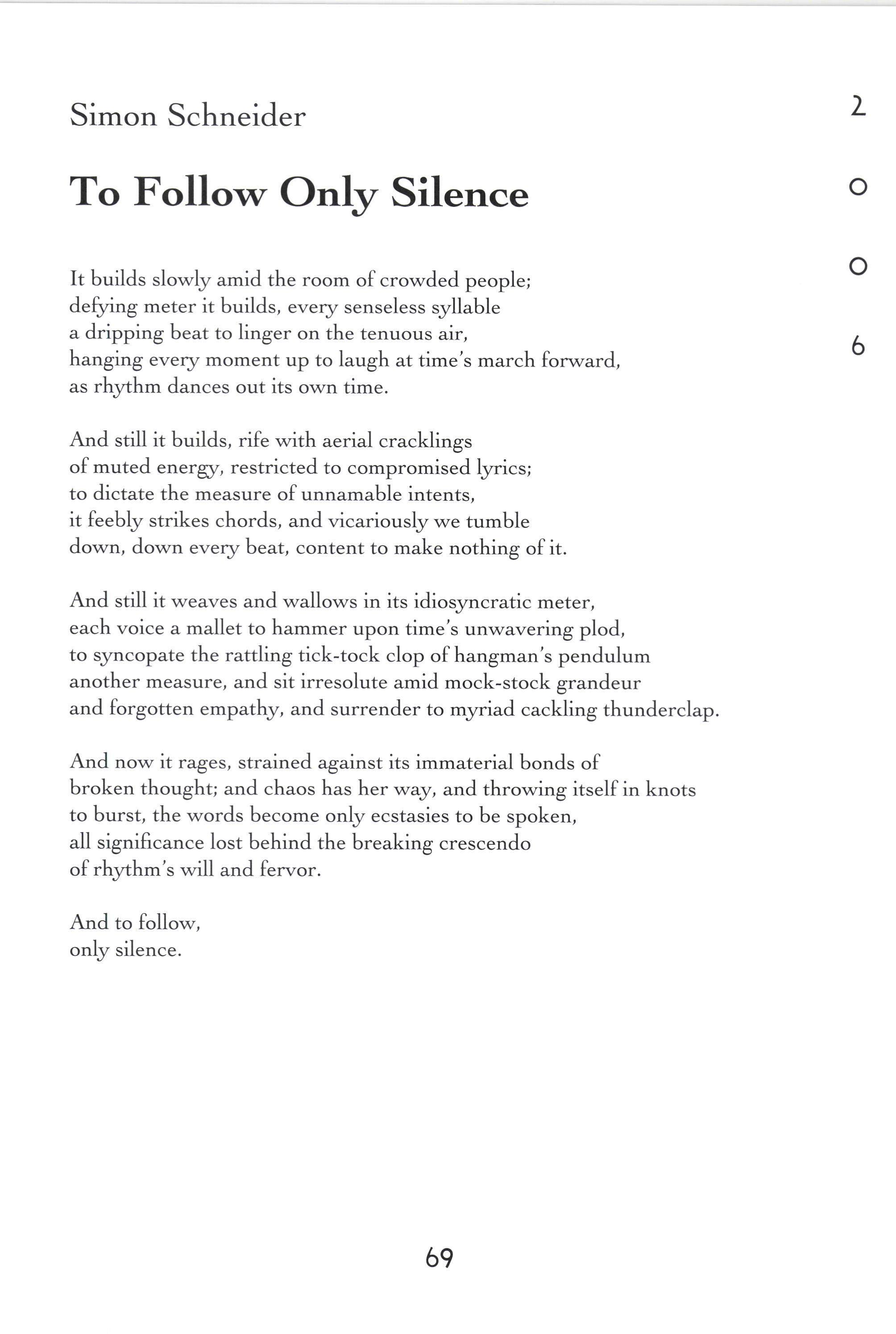
And now it rages, strained against its immaterial bonds of broken thought; and chaos has her way, and throwing itself in knots to burst, the words become only ecstasies to be spoken, all signiflcance lost behind the breaking crescendo of rh;rthm's will and ferrror.
And to follow, only silence.
L o o 6 69
5
Untitled
TI want to have sex in space-skin standing out against bold black background white polka dots alighting me andyou 'windows without curtahs, seeming taboo until I realize-no one can see me up here I'11wonder if it's ever been done before as we slide back and forth weightlessly scoffing at the mile high club nibbling on freeze-dried champagne the earth looking on, tears in her eyes, 'Am I not good enough foryou an;rmore?" she asks "Hunny," I reply, "sex on the earth--it's been done." and I turn to float back into your arms "what's she whining about?" you ask, annoyed, "we did it in a cave just last weekl" I smile and nod and tellyou-all women feel a bit needy sometimes you catch the hint and we continue with scenes far too dirty for this poem.
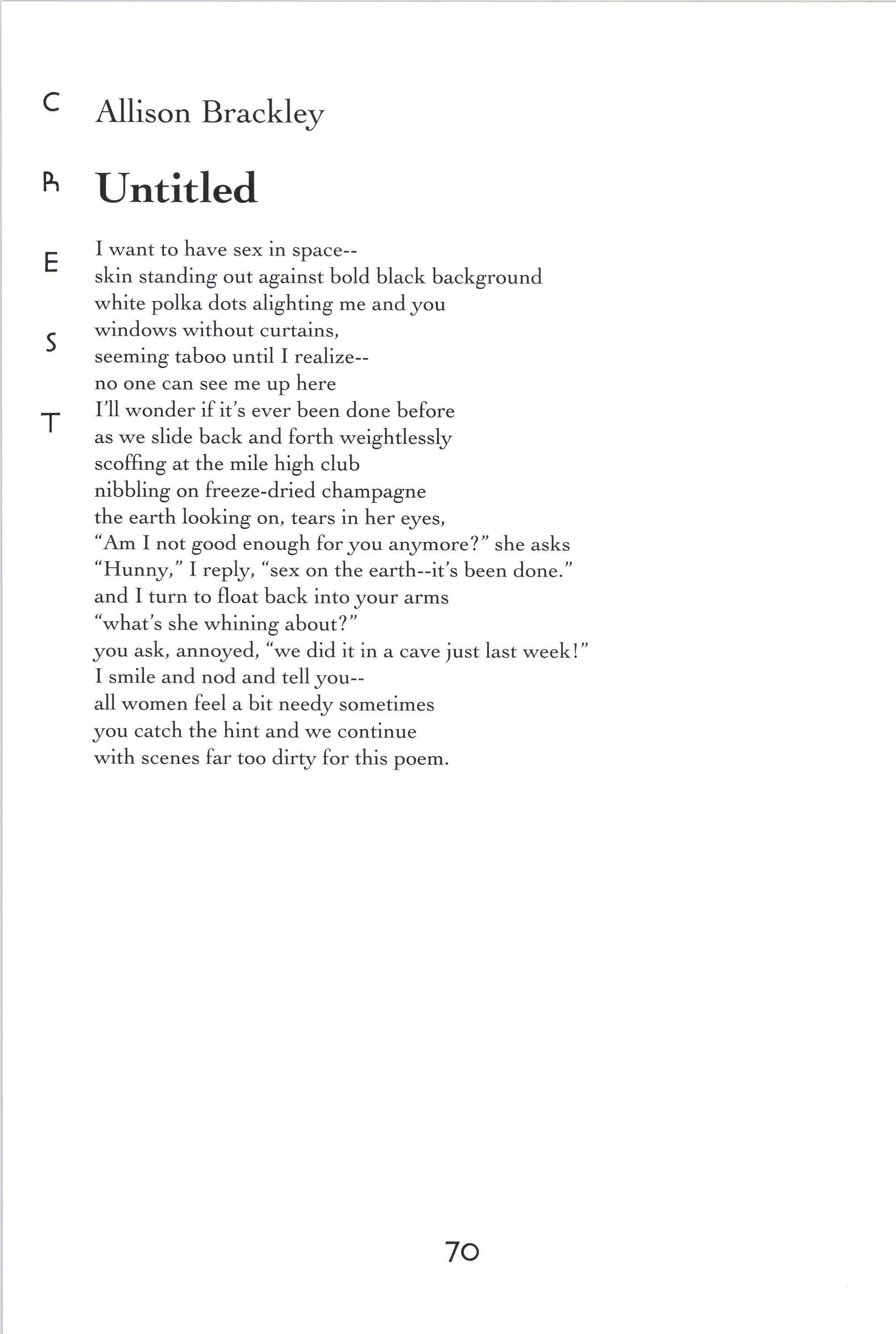
c h E
Allison Brackley
7o
Barbara Chudoba
WakingUp
Sticky with sleep, he drowns realiqz, and enters a world where beaugr is skin deep.
A world painted with sweet oceans and smooth mountains. Where lies don't exist, and no one knows what sadness is.
Happiness breeds in his bones and sadness dissolves into air. In this world he never feels alone.
As the morning sun rises, He shivers at the thought of ever waking up.
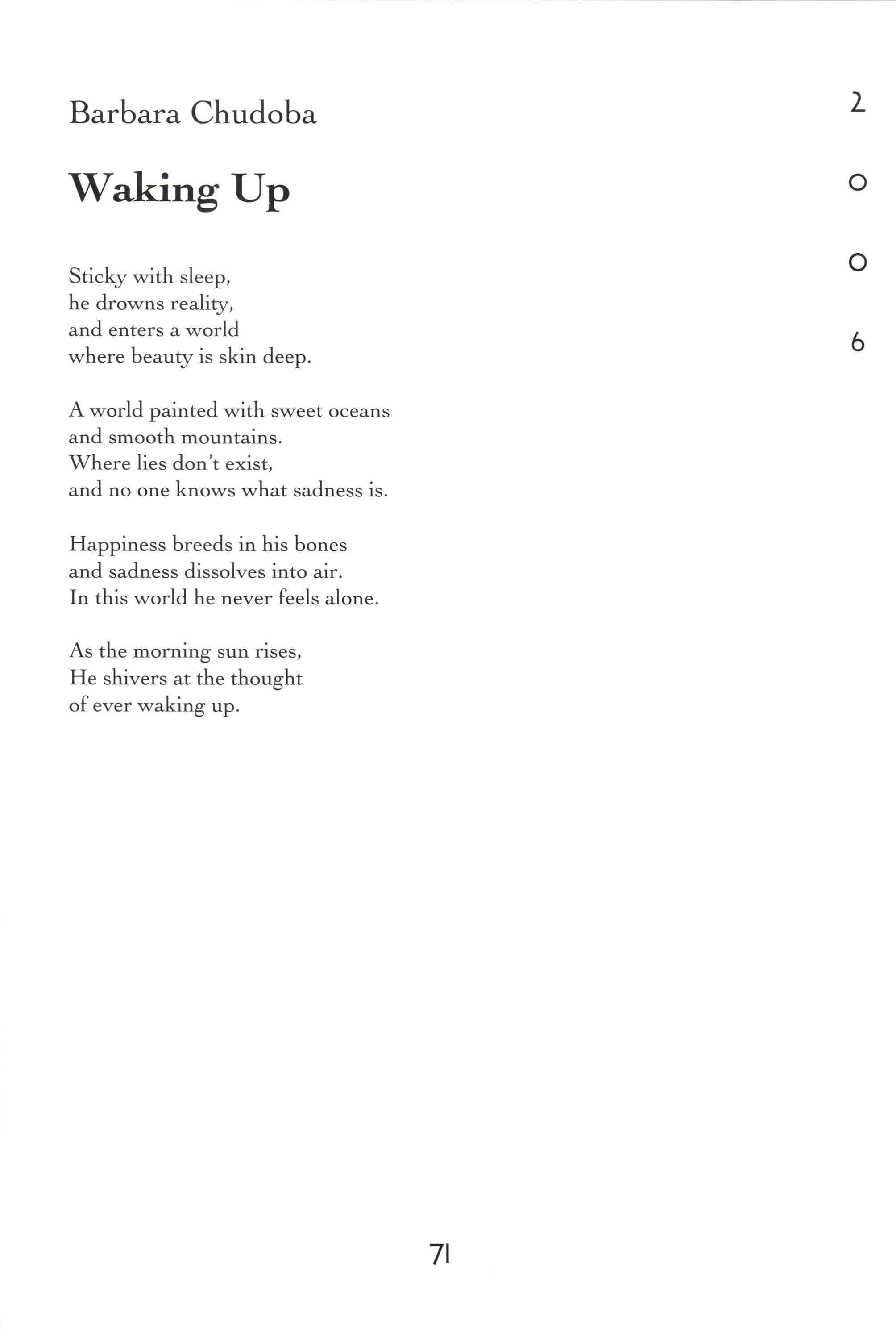
L o o 6 7t
Claire Lombardo
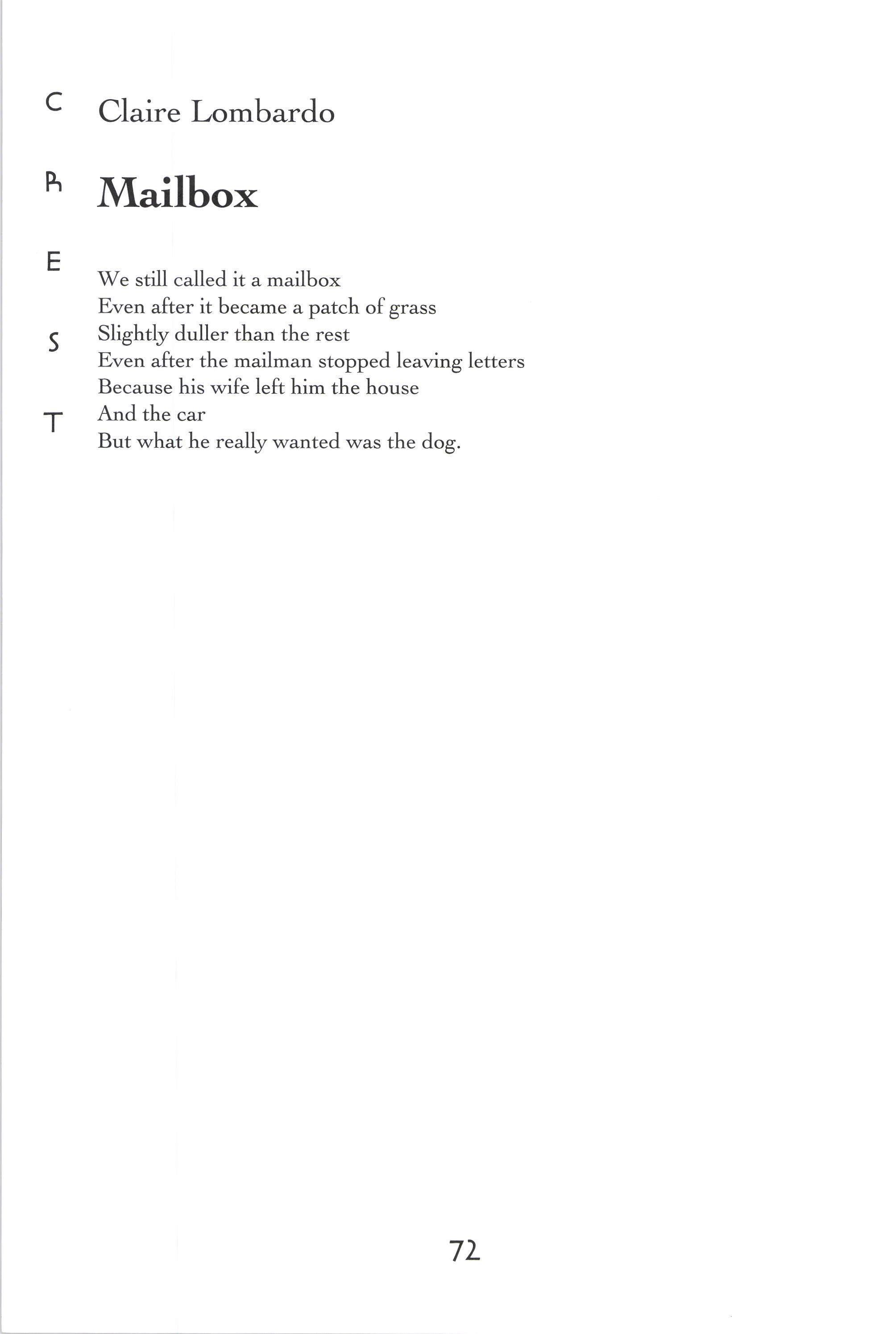
Mailbox
We still called it a mailbox
TEven after it became a patch of grass Slightly duller than the rest Even after the mailman stopped leaving letters Because his wife left him the house And the car But what he really wanted was the dog.
c h E s
7L
For The Park Walk
The Night Before I Die
Cotton hovers on tissue, extending to hips, folding from skin.
I see silver leaves rush like streams their strong purpled veins cry these laments, goodbye!
I see it now my throne of wood. It sits like a bed of bones abouquet ofdecay at my toes.
Breaths, hums leave steady. Give way to meet night air.

Sarah Abarbanel
L o o 6 73
Kendra Zager Midnight Pollution
Yellow murky haze stretches between the walls A thin film covers the house from the midnight pollution
J Settling from scummy lawbreakersLaughing carelessly at shallow stories Feet damp with vile, tainted water
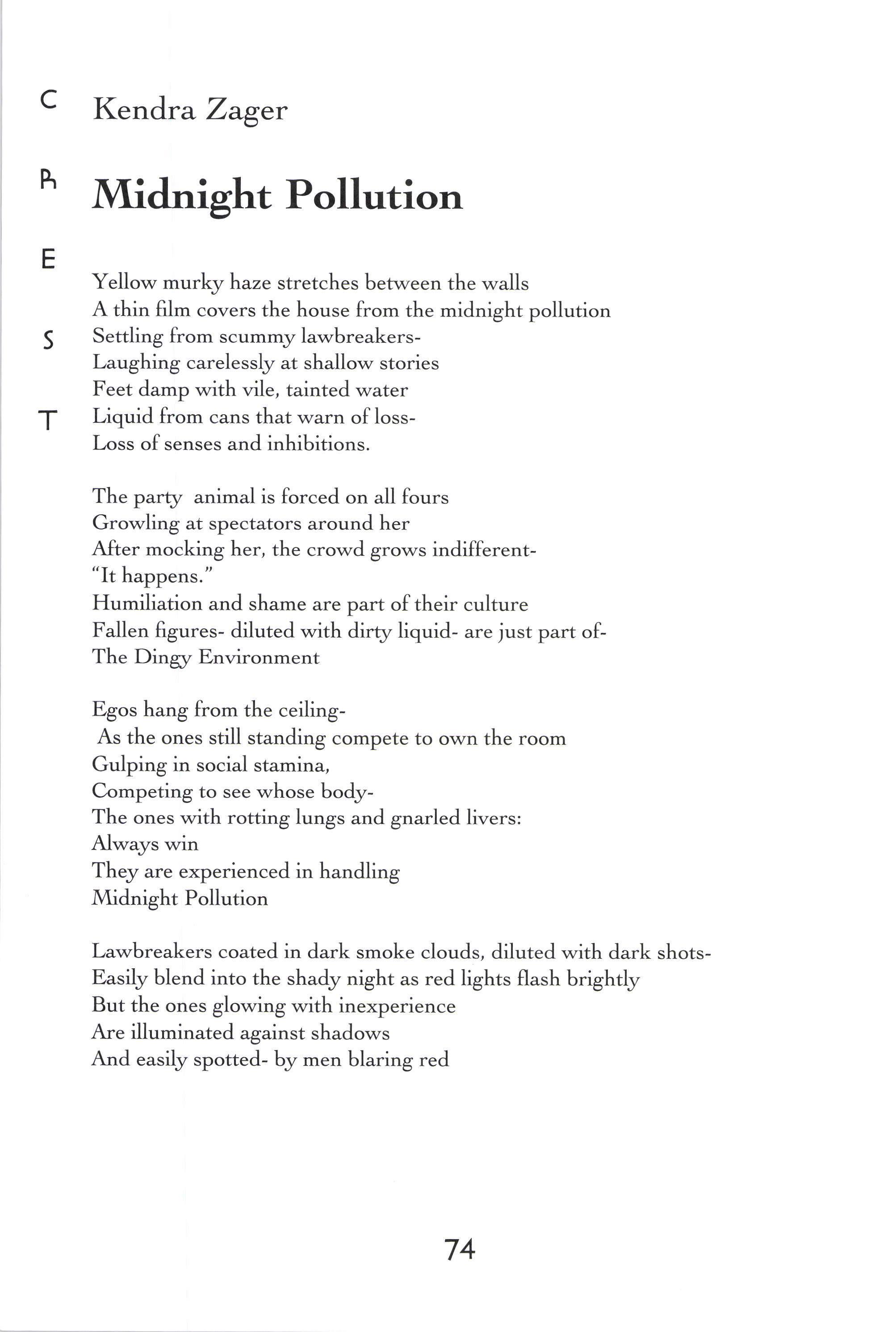
T Liquid from cans that warn of lossLoss of senses and inhibitions.
The part;r animal is forced on all fours Growling at spectators around her After mocking her, the crowd grows indifferent"It happens."
Humiliation and shame are part of their culture Fallen figures- diluted with dirry liquid- are just part ofThe Ding,, Enwironment
Egos hang from the ceilingAs the ones still standing compete to own the room Gulping in social stamina, Competing to see whose bodyThe ones with rotting lungs and gnarled livers: Always win They are experienced in handling Midnight Pollution
Lawbreakers coated in dark smoke clouds, diluted with dark shotsEasily blend into the shady night as red lights flash brightly But the ones glowing with inexperience Are illuminated against shadows And easily spotted- by men blaring red
C h E
74
Carl Brozek
Helped
gently awake with soft lids breathing shadows on walls of a darkened room and
quietly alone under cold creased sheets and hollow feather pillows and blank faced windows which
gaze at a girl whose cheeks and licked lips roll tears upon palms of dancers at her hips who gave fun found through sips which brought ethereal eyes and laughing, shush, surprise!
Of up-thrown water like parasitic clothes Which won't leave her sight as long as she is cold
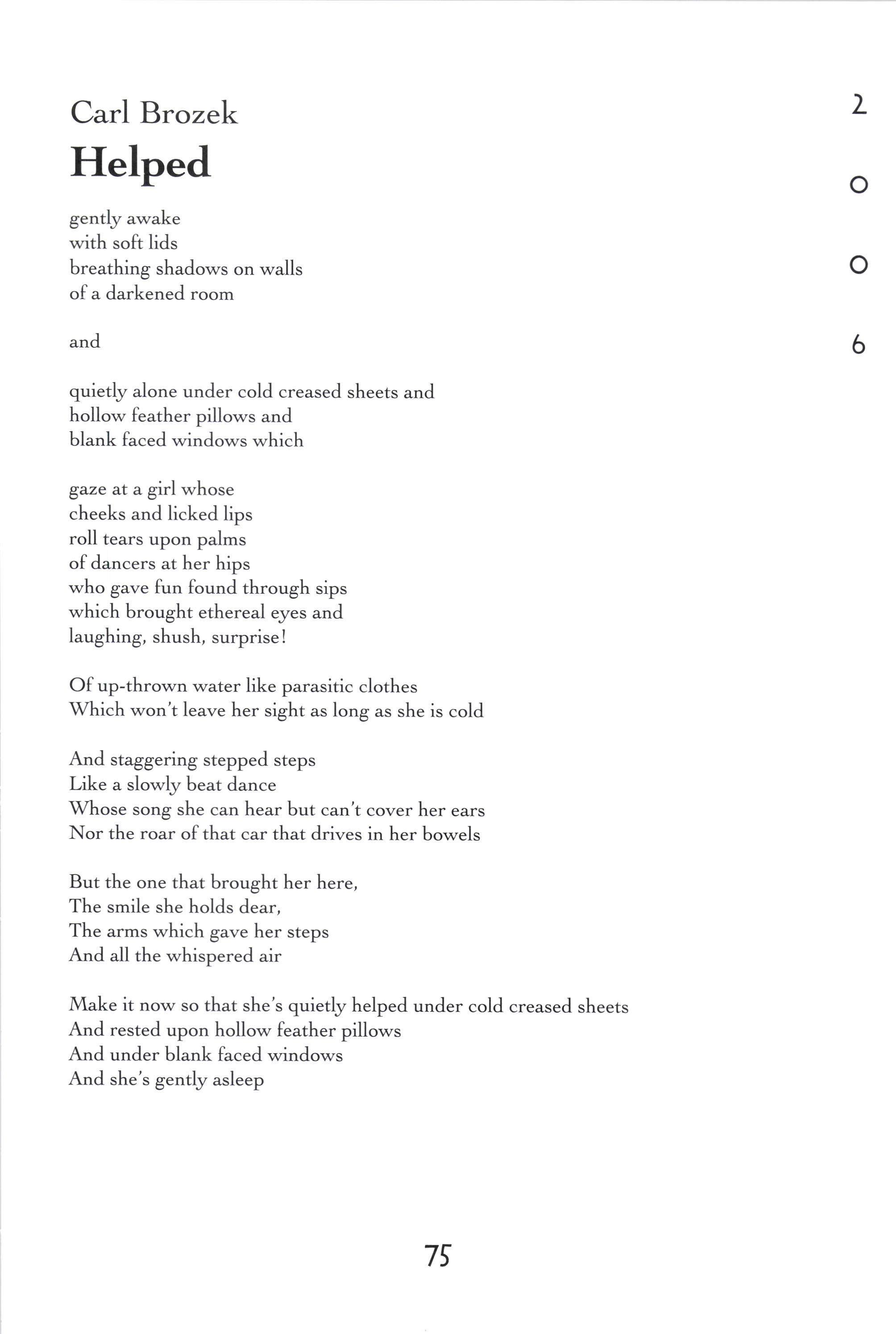
And staggering stepped steps Like a slowly beat dance Whose song she can hear but can't cover her ears Nor the roar of that car that drives in her bowels
But the one that brought her here, The smile she holds dear, The arms which gave her steps And all the whispered air
Make it now so that she's quietly helped under cold creased sheets And rested upon hollow feather pillows And under blank faced windows And she's gently asleep
L o o 6 75
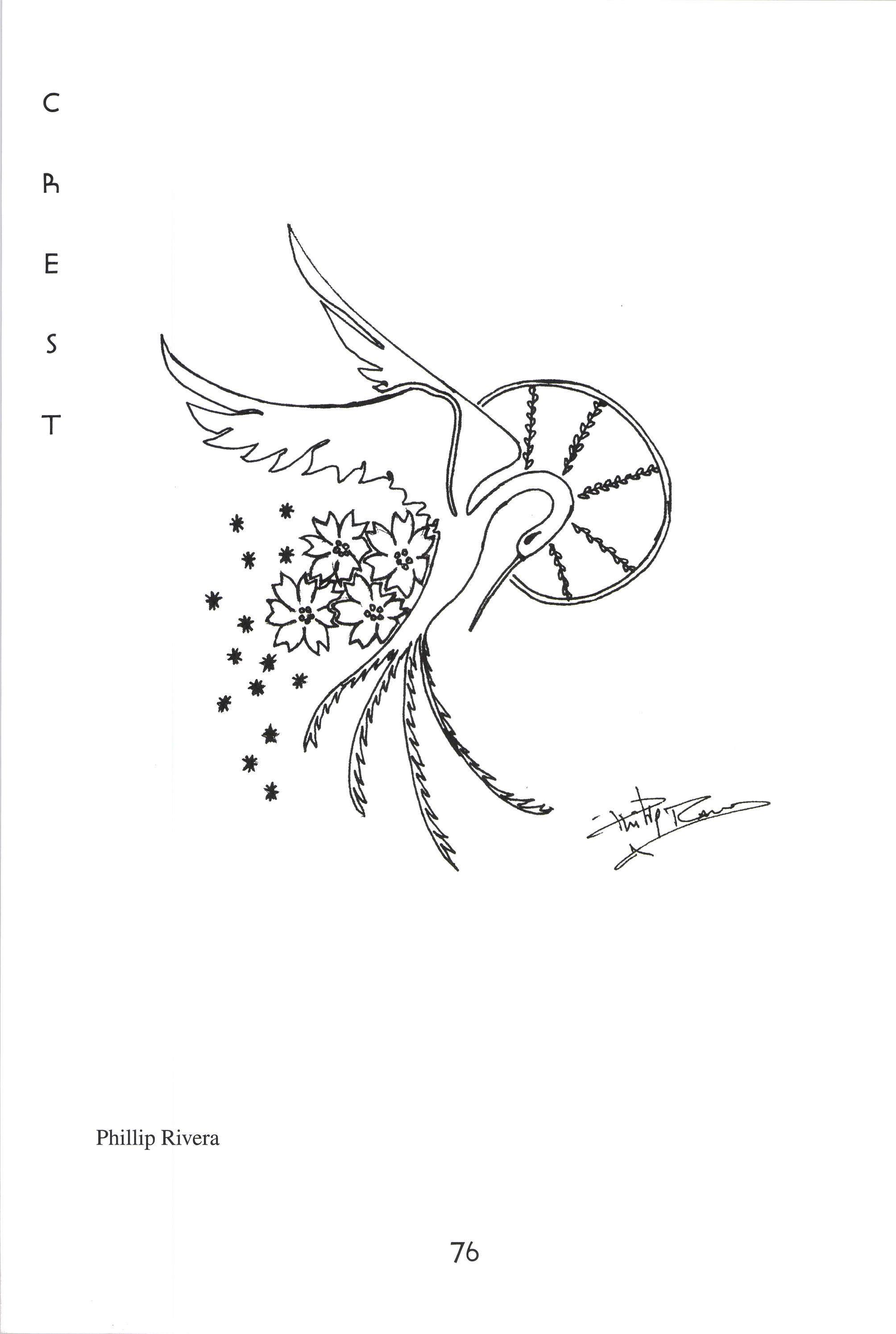
c h E s T ** ** # f* * * * * * * * 76
Phillip Rivera
Distance
Donorica Harris, Brandon I-ong, Maria Weda, Amy Lutz
In our 2-in-l bedroom complimentary arguments resulting in room service for the rest ofthe night sharing one bed kicking, snatching covers morning wake up calls snatched it off both us
our hot pink tube tops, polka-dotted leggings and filas made it impossible to deny relation to you (is that your cousin) - (naw) becoming your new shoe madeyou hide my identiqz underyou heel (I ain'tyour Trena lil) Amy making me "Trena's lil cousin"
looking into ice tea eyes thirsting even more for reflections my skin, overused duct tape that you don't stick to my adhesive isn't strong enough to latchyou
my Loquaciousness your innocent silence keeps us at the same yellow light we've been at foryears every time the light intends to change our distance, miles of stress memories of past year and past time pictures deliver water filled bags mailed stickers of small smiley faces on certification for being
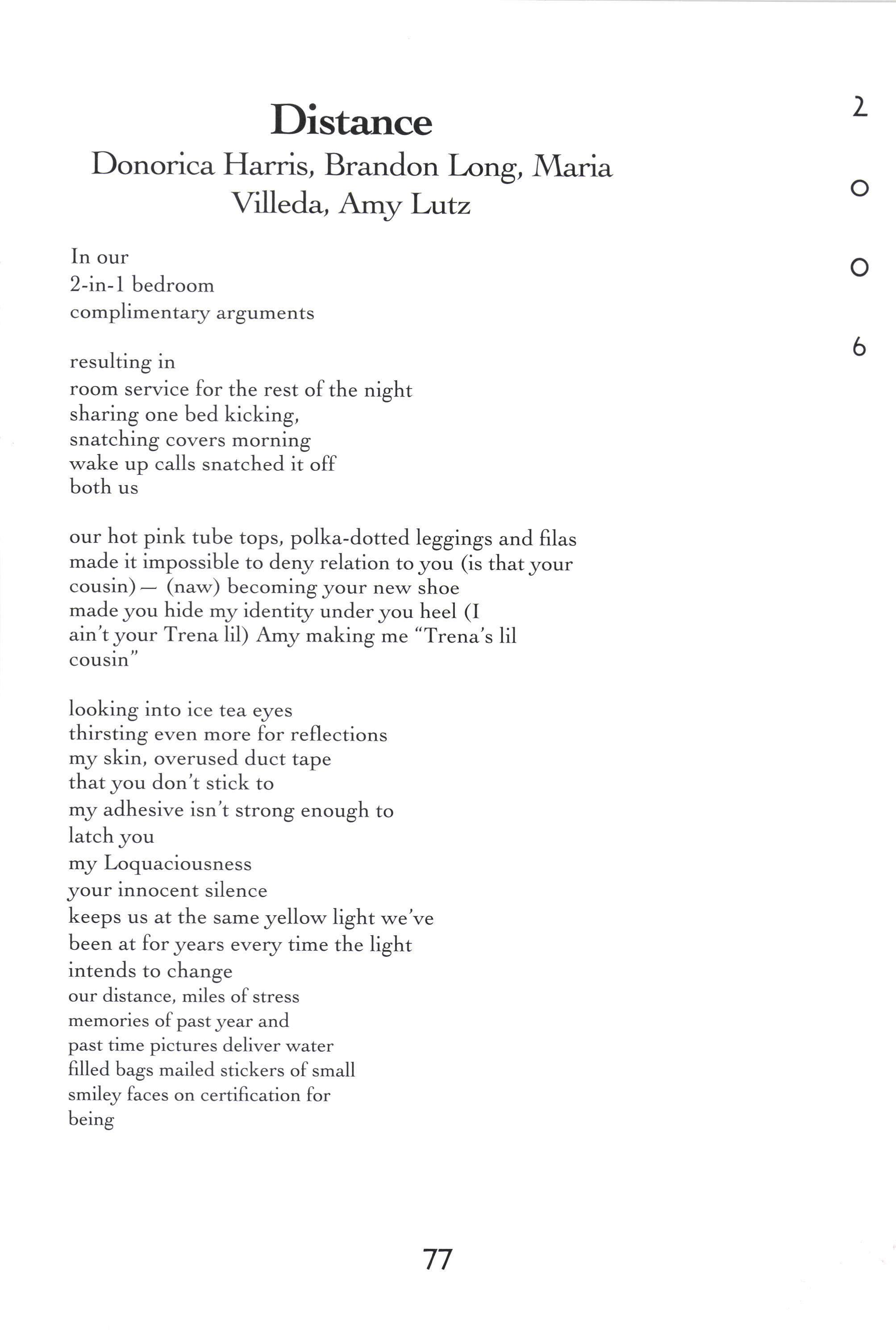
L o o 6 77
C a good cleaner upper" I thought they would smile at you like I wanted too.
h remember how we slid down hill" on your skateboard E bumping on screams of being torn apart leaving scraped knees 5 " constant reminder that you weren't around
Tmy sister and I used to stay up late make beds on our aunt's white carpet and crack jokes yeah Niecey touch up them beed-a-bees we'd share inside concrete stories laugh until joyful tears fell into cement
now we stay in touch through mobile to mobile text messaging phone calls here and there
it as if when summer came around our relationship was drawn in by number 2 lead pencils but fall through spring our pencil turned around, our relation erased
yeah remember we'd askyo mama before playrg ding-dong-ditch talk to foot long refections and ask "whyyou copying me"?
Iast time we unscrewed the light above the pool table we ran from the people under the stairs you were behind me yet the fllight took me to Chicago andyou Mississippi everytime the light intents to change evegrtime the light intends
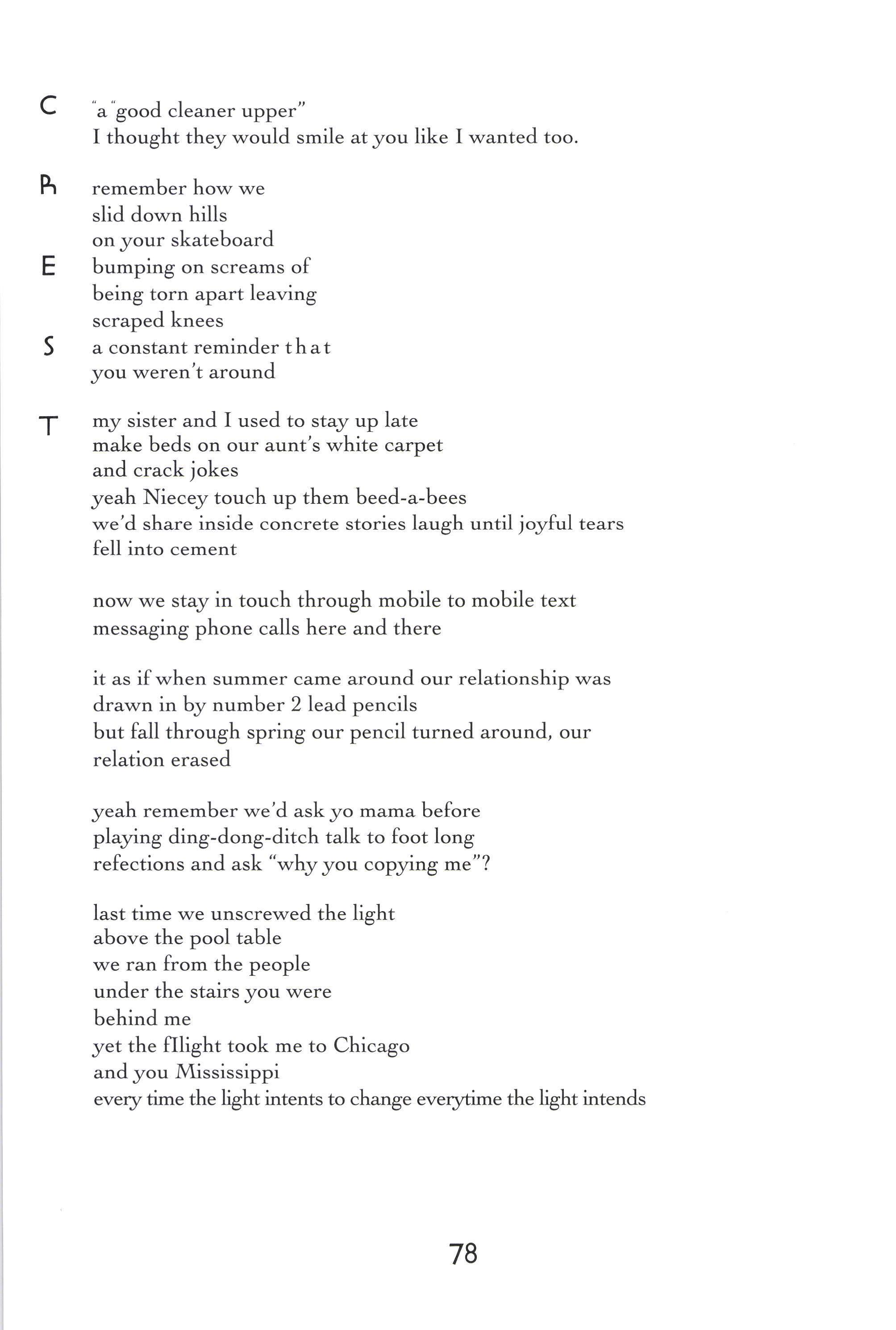
78
to change
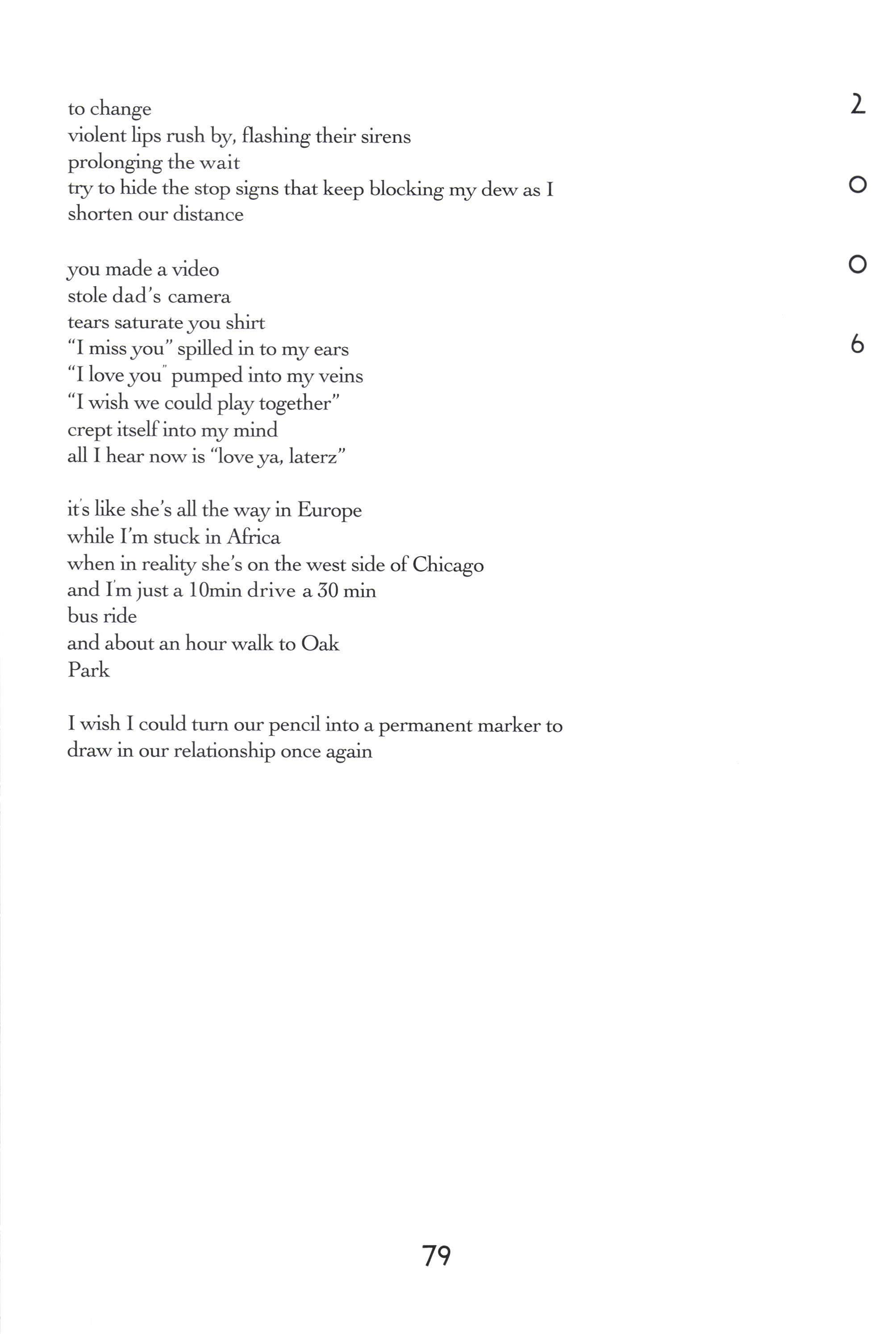
violent lips rush by, flashrng their sirens prolonging the rvait tr;r to hide the stop signs that keep blocking my dew as I shorten our distance
you made avideo stole dad's camera tears saturateyou shirt
"I missyou" spilled in to my ears "I loveyou" pumped into myveins "I wish we could play together" creptitself hto mymind all I hear now is "loveya, laterz"
it's like she's all the way in Europe while I m stuck in Africa when in realiqz she's on the west side of Chicago and Im just a l0min drive a 50 min bus ride and about an hour walk to Oak Park
I wish I could turn our pencil into a permanent marker to &aw in our relationship once again
L o o 6 79
Untitled
Sarah Chambliss, Alicia Ludwig, Julius Cousin, Jasmine Grayer
I LOCKED IN WORDS SWORDS GO DOWN LIKE ROCKS I V/ALKED INTO YOUR BULL'S EYE WET LASHES SHOV/EDMETHE DOOR
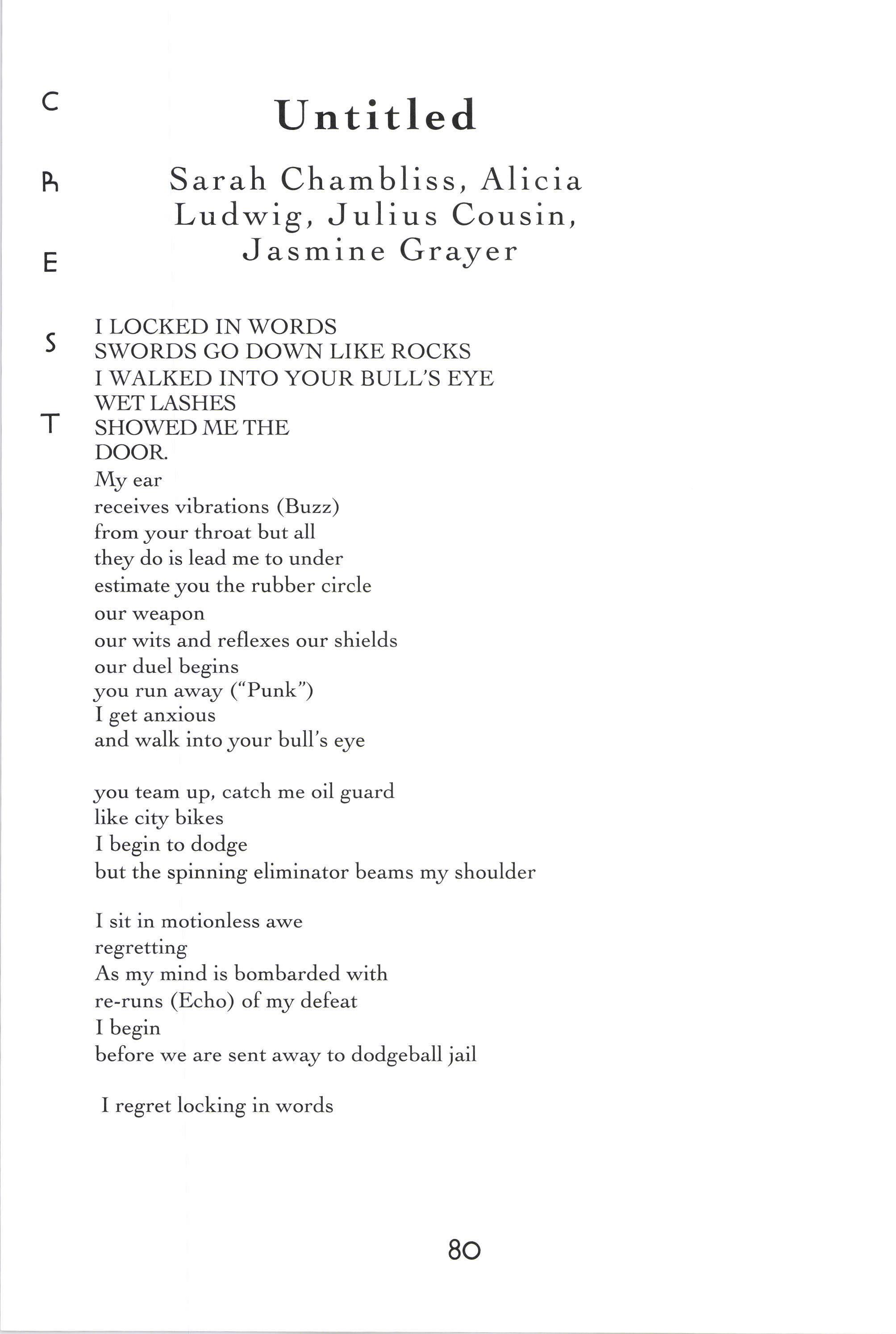
TMy ear receives vibrations (Bvz) from your throat but all they do is lead me to under estimate you the rubber circle our weapon our wits and reflexes our shields our duel begins you run away ("Punk") I get anxious and walk into your bull's eye
you team up, catch me oil guard Iike city bikes
I begin to dodge but the spinning eliminator beams my shoulder
I sit in motionless awe regretting
As my mind is bombarded with re-runs (Echo) of my defeat I begin before we are sent away to dodgeball jail
I regret locking in words
c h E 5
80
like death row inmates
Thinking that'd calm acid reflux feelings gazing off in Cook's Chemistry class thinking of how perfect "Jasmine and Jonn;r" sound together
but the way my heart plays patf;r cake with my chest each time i seeyou or when i forget to inhale while your arms w:rap around me
Nowyou're gone and i miss my body plaJnrg games hearing the manhood inyour voice asyou called me baby Couldn't bring myself to tell you one day i wanted to raise them withyou
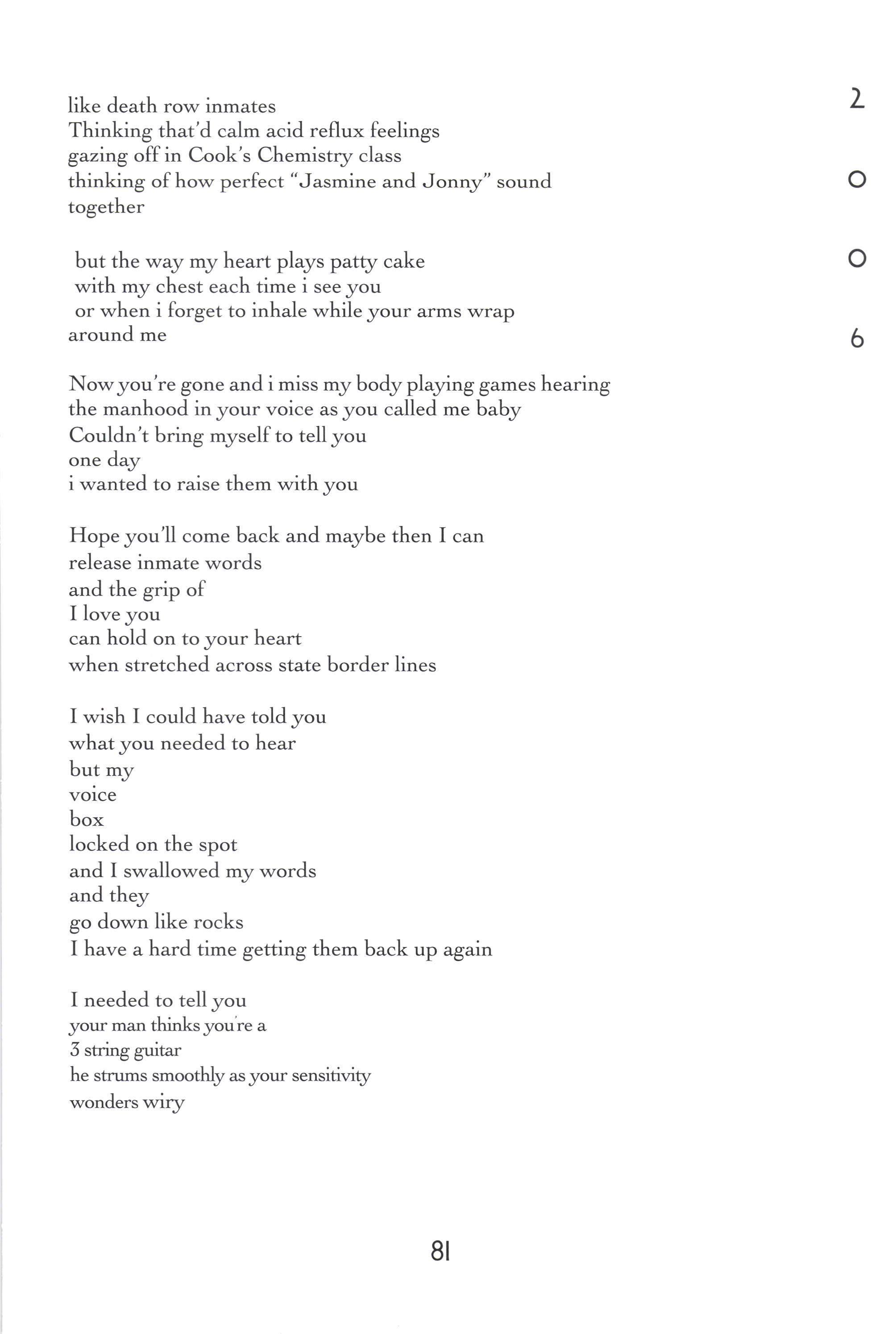
Hope you'll come back and maybe then I can release inmate words and the grip of I love you can hold on to your heart when stretched across state border lines
I wish I could have toldyou whatyou needed to hear buj my vorce box locked on the spot and I swallowed my words and they go down like rocks I have a hard time getting them back up again
I needed to tellyou your man thinksyou're a 5 string guitar he strums smoothly Ersyour sensitivigz wonderswiry
L o o 6 8l
he &dnt answer his phone last night you said mayb he leftiton silent
Though I knewyou sawwhatwas going on Mylips sat still H"pitg truth wouldnt seep through brotten notes fell &omyour cheek making a puddle ofsad melodies inyour Iap I kept silent shhh
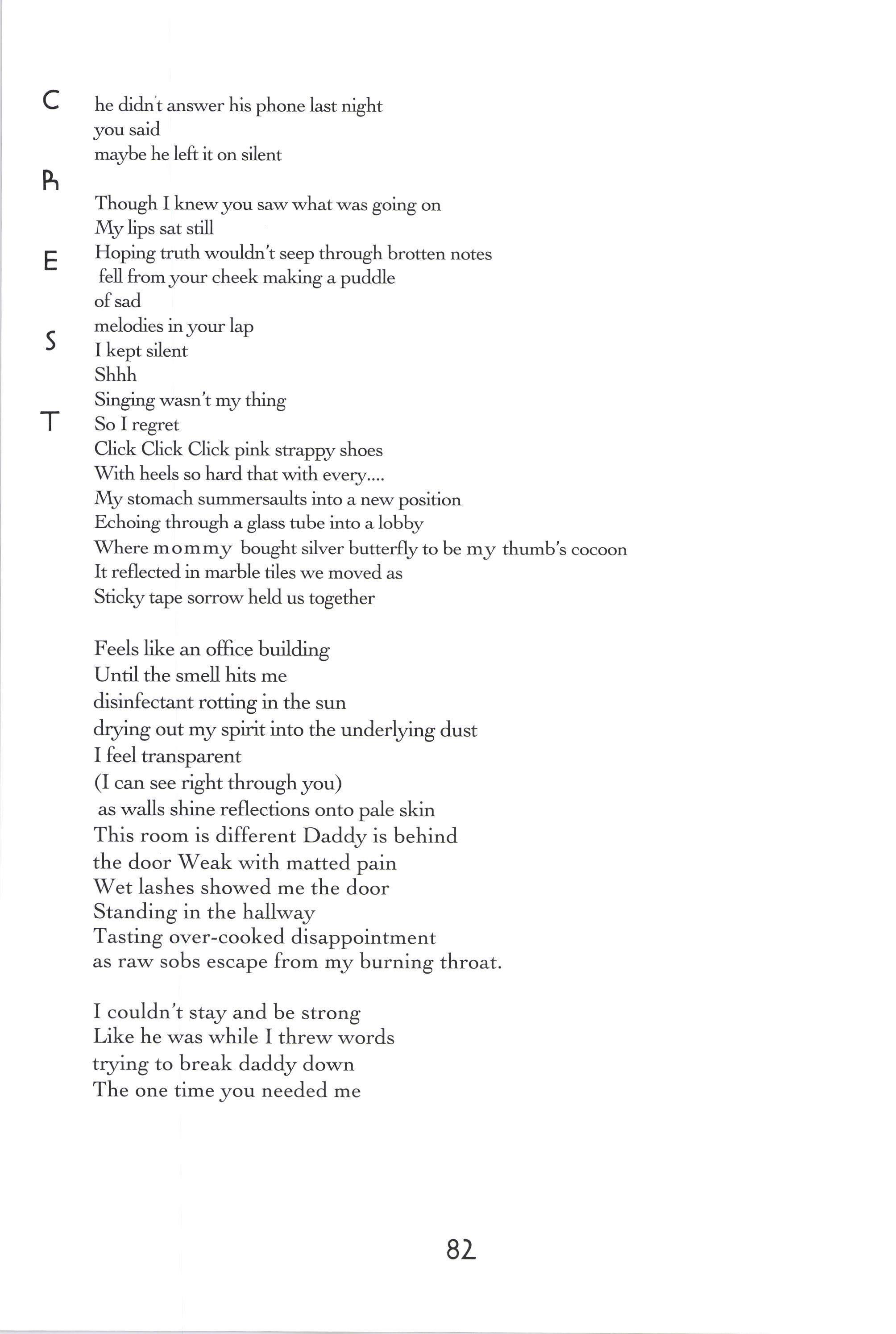
TSinging wasnt my thing So I regret Click Cli& Click pink strappy shoes With heels so hard that with every.... My stomach summersaults into a new position Echoing through a glass tube into a Iobby Where mommy bought silver butterflyto be my thumb's cocoon It reflected in marble tiles we moved as Stidrytape sorrow held us together
Feels like an office building Untilthe smellhitsme disinfectant rotting in the sun drying out my spirit into the underlying dust I feel transparent (I can see right throughyou) as walls shine reflections onto pale skin This room is different Daddy is behind the door Weak with matted pain W'et lashes showed me the door Standing in the hallway Tasting over- cooked disappointment as raw sobs escape from my burning throat.
I couldn't stay and be strong Like he was while I threw words trynng to break daddy down The one time you needed me
C
h E 5
8Z
Likea2yearold, I fell
Orly, 2 year olds can get back up again Now that I've expressed my regrets
Maybe now I can release inmate words now I can dodge like city bikes now I can bring up rocks now I can stay strong because
Daddy is in that room
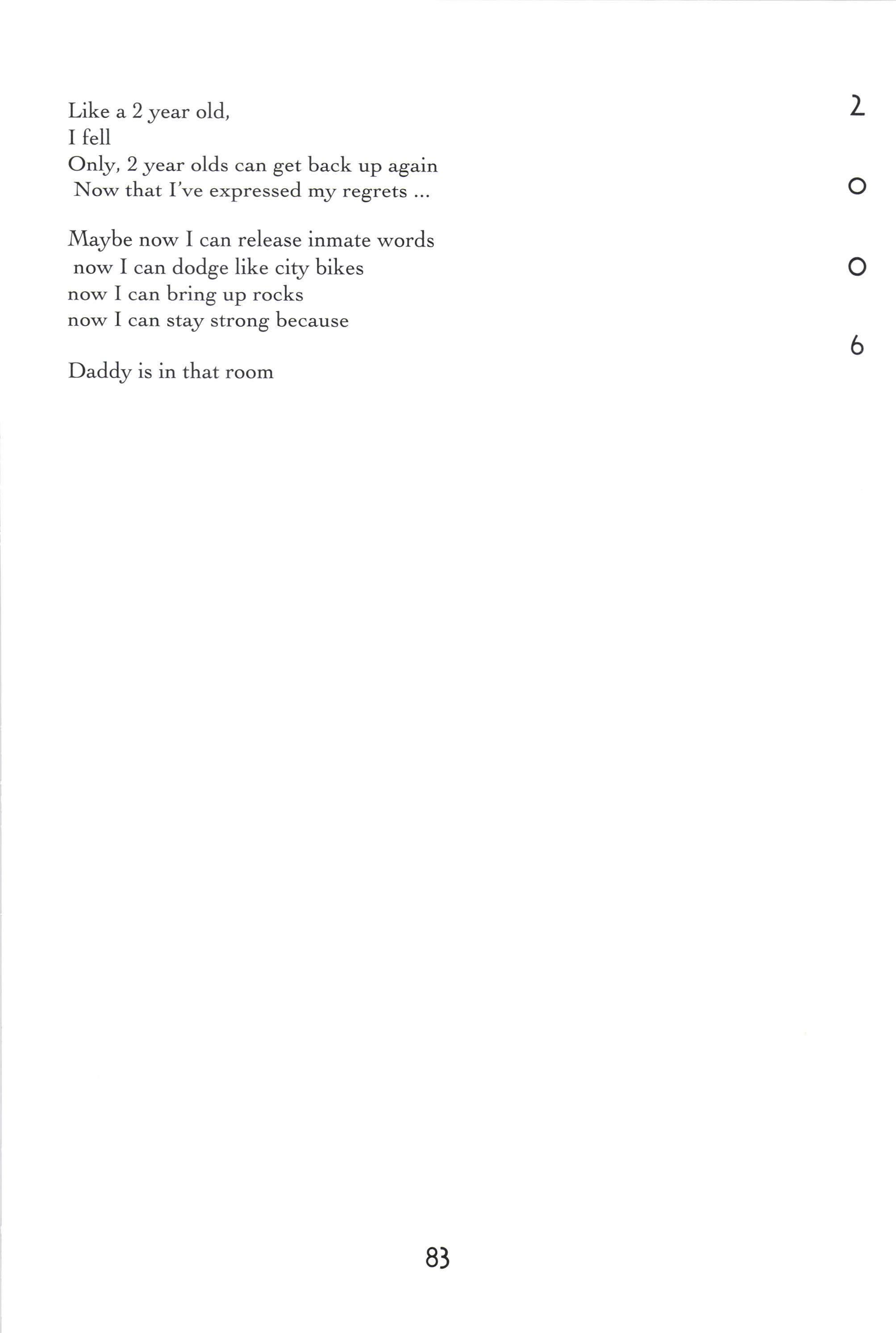
L o o 6 B]
Untitled
Gabrielle Worley, Tabitha Watson, Michael Willis, Jacquanet Goggins
Find me in my playground, a Chicago )azz spot where memories gather like pigeons on apartment windows.
TSaxophone melody fllls the air. fi.ngers whisper "Don't Know W\r" across keys. scat flowing through blood.
A language I can understand. -Woman's voice shaking in my chest. possessed by the vibrato of pain, the Queen of Jazz sings upon her stage.
Lights dim, plano bringing me home again.
W'e grew up in bopsie-twin jumpsuits on ice cream Saturdays.
Whispered laughs behind tall backs that could never tell us apart.
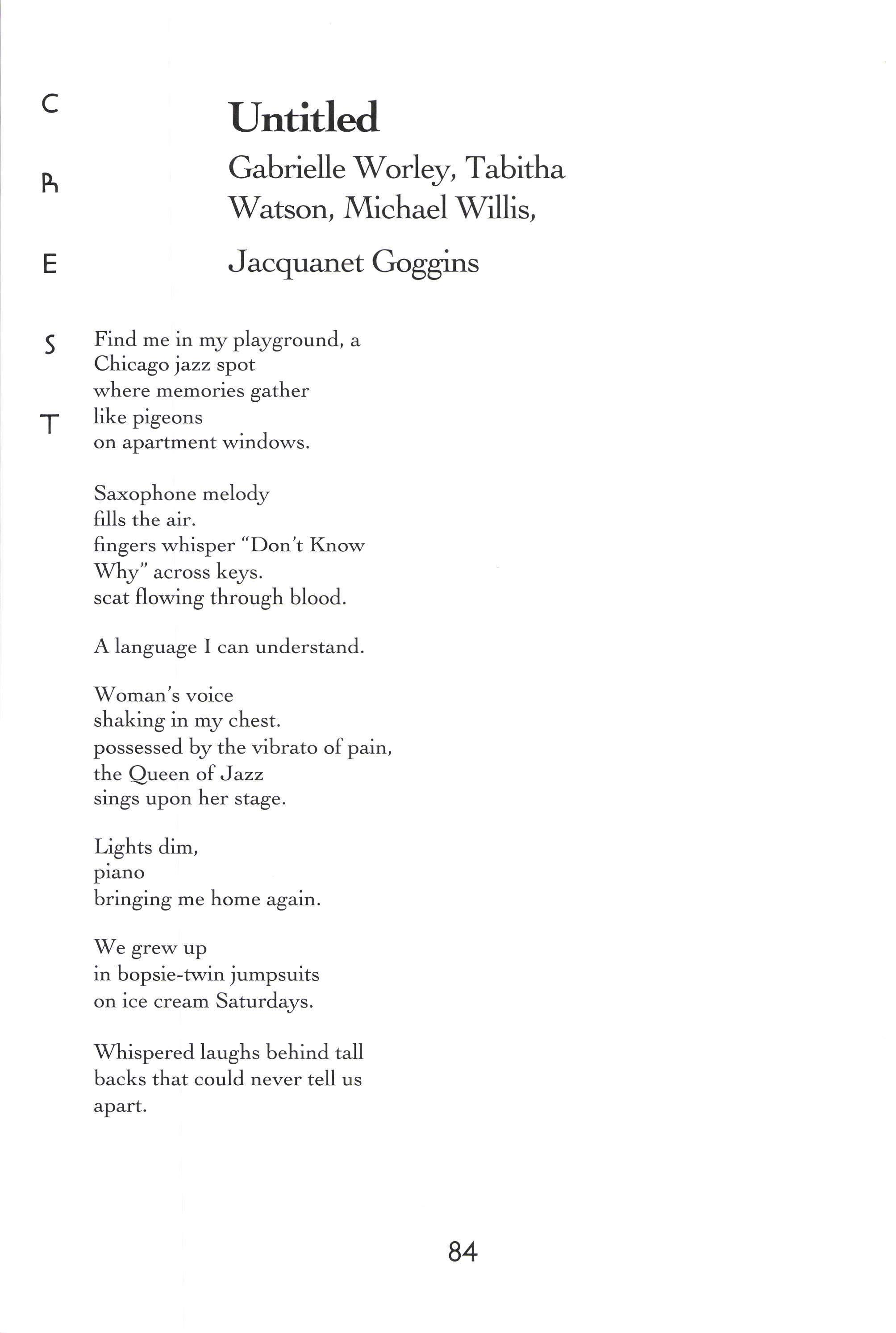
c h E s
B4
We memorized each other like words to our favorite Dr. Seuss book. Imagined all the places we would go together. But our futures weren't meant to rhyme.
Pulled apart by soot;r moving vans makingyou the new kid on the block. 'Were changed by new games of hopscotch. Girl talk through wires.
I no longer see myself in your smile framed on my nightstand We're too old for tweetSr bird sleepowers, to recite favorite bedtime stories...
One flsh, two fish
Last Sunday you were here. We sat in church talked about the man with the metallic gold suit. How the choir was off key.
This Sunday the people and the choir don't matter
I got a call. We rushed toyour side, as you were rushing to God The week's bright colors bled to black
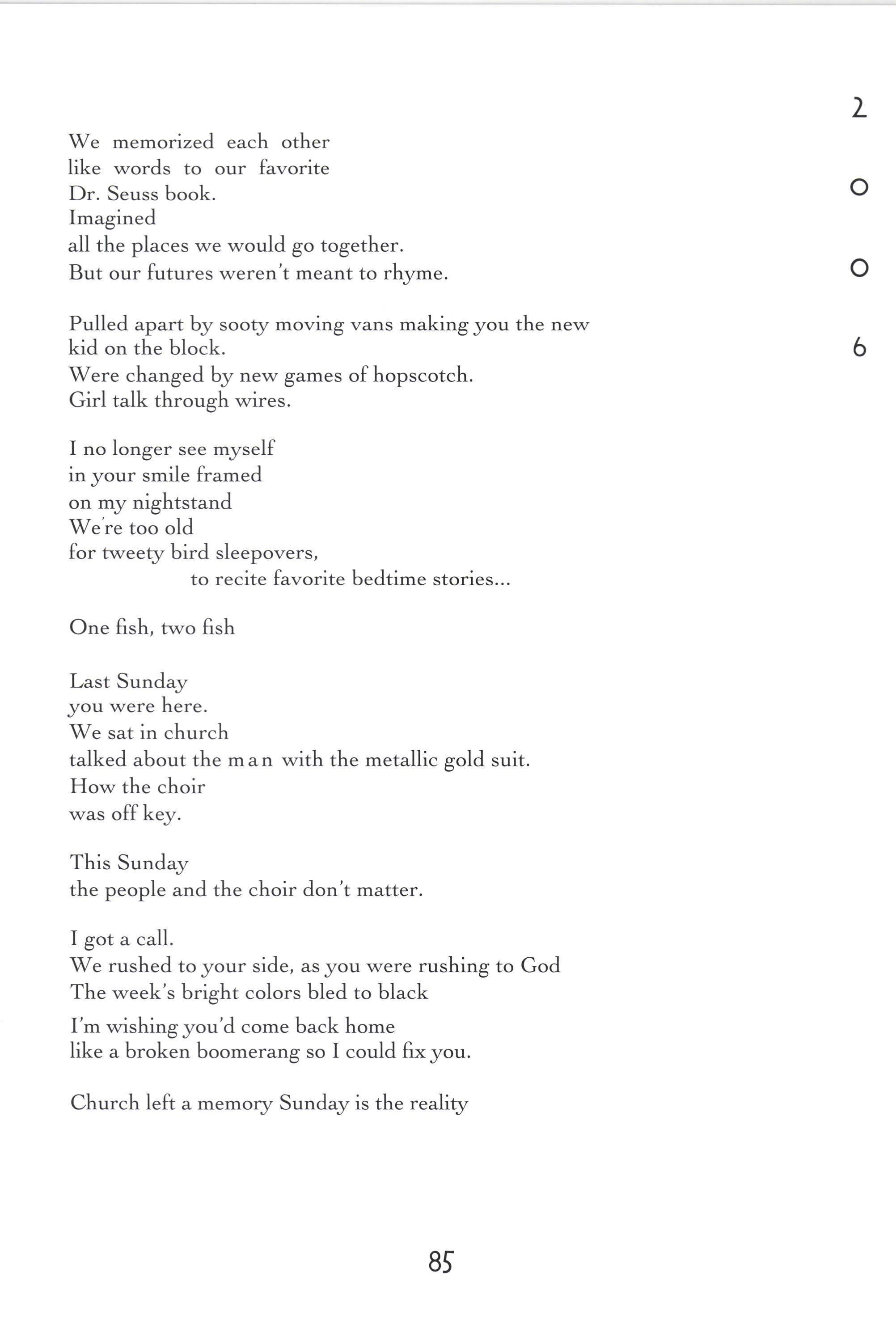
I'm wishingyou'd come back home Iike a broken boomerang so I could fix you.
Church left a memory Sunday is the realigr
L o o 6 85
h E
You're not coming back.
I promised I wouldn't come back without flowers. Grandma swore ground had swallowed winter concrete, not even weeds could grow.
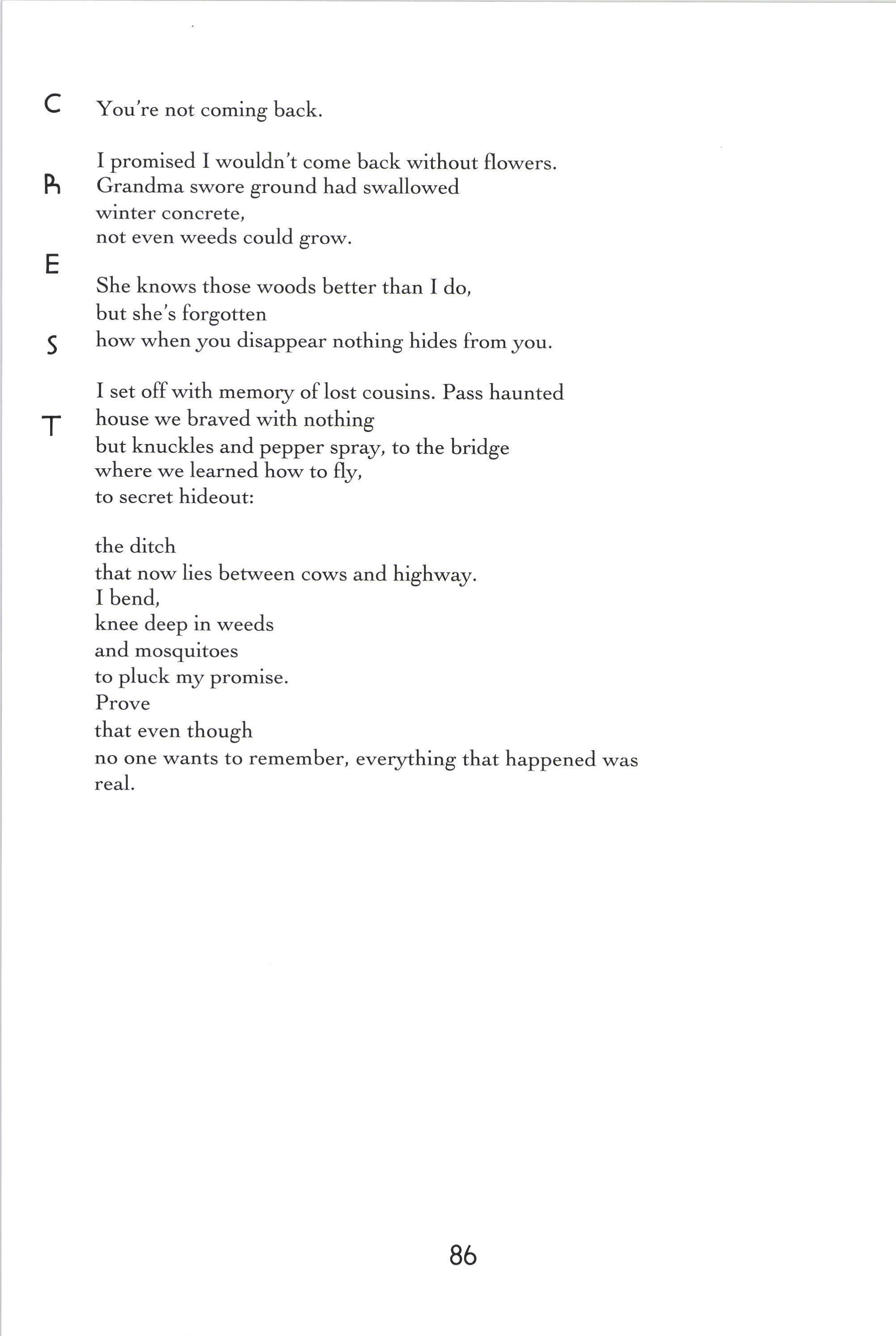
She knows those woods better than I do, but she's forgotten 5 how when you disappear nothing hides from you.
TI set off with memory of lost cousins. Pass haunted house we braved with nothing but knuckles and pepper spray, to the bridge where we learned how to fly, to secret hideout: the ditch that now lies between cows and highway. I bend, knee deep in weeds and mosquitoes to pluck my promise. Prove that even though no one wants to remember, everlrthing that happened was real.
C
86
Untitled
Alison Barthwell, Yasmin Abdalla Iman Shumpert, Fanisha Calvert
Familiar smiles memories rise from the kitchen laughter flying past getting yelled at by the one who loved to hurl daggers; putting an end to the fun. I can still hear the sound of adoration: "James let the children be children." The soft scent of her voice carried to us not knowing we were fast forwarding through time speeding to the end we'd soon come to find. running through a forest of legs speaking loudly without real words. With lowered eyelids, we ran face forxrard bang into adoration's last page! Hiding identities under ski masks, their truths became realiqr and loving people became a fantasy. Now eggshell paint, peeling from the walls speak of truth. One life led into heaven results in family broken forever
Between Spread Fingers, there's comfort in the space
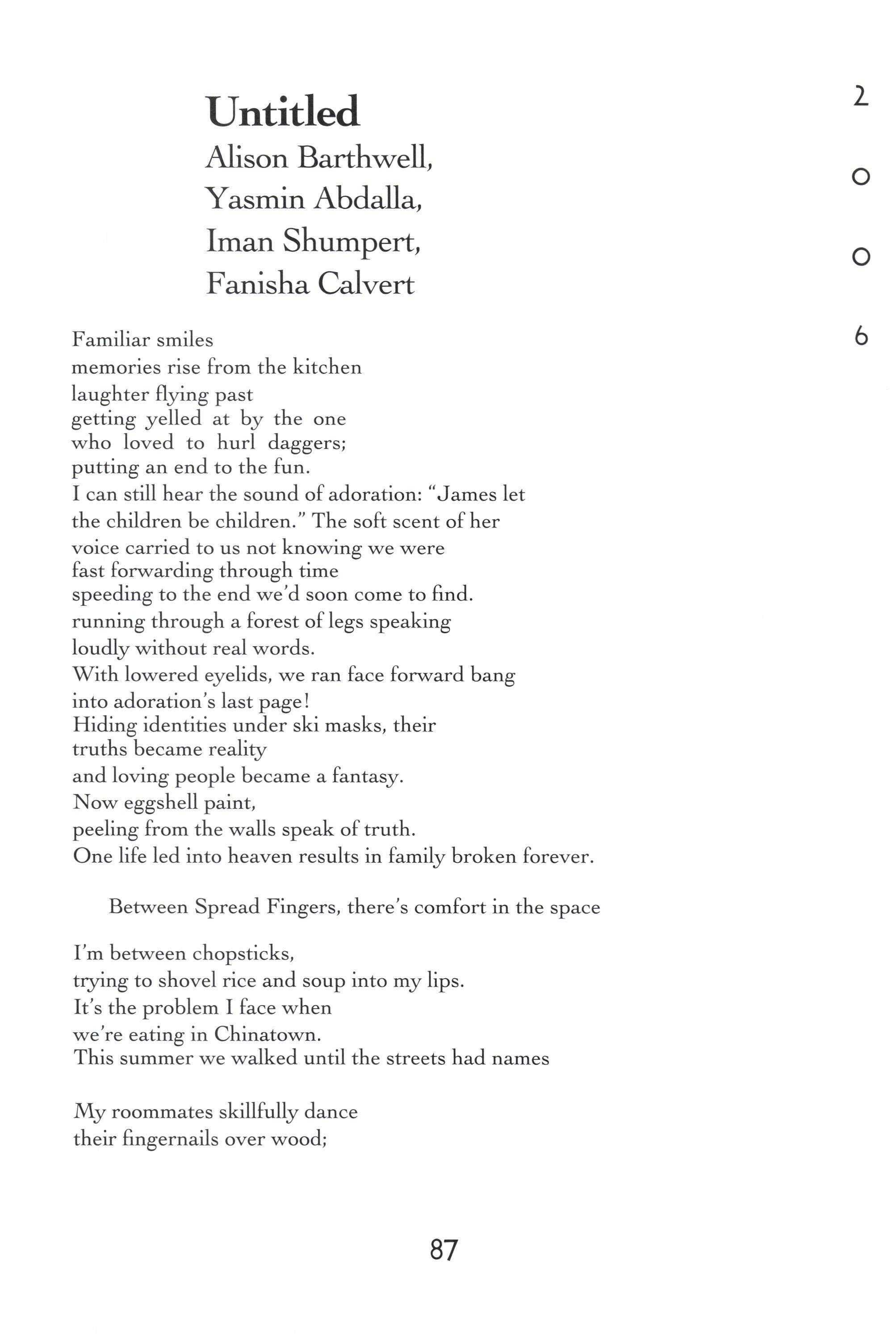
I'm between chopsticks, trynng to shovel rice and soup into my lips. It's the problem I face when 'we're eating in Chinatown. This summer we walked until the streets had names
My roommates skillfully dance their fingernails over wood;
L o o 6 87
turning twigs into cutlery. I'm offered lessons from her fingers.
I watch her hands w:rap around themselves. My hands wrap around her gaze, approving, Steady. I'm suddenly living between her eyelashes when she's been living between m5r heartbeats.
s 'We share flashes of dumplings and overflowing rice. T "-l\A5r name is Shed Jackson..." "'We know your name is Shed."
Games of dominoes, our memory me and the elder of my family inyour bedyou depend on me you leaving for infinit;r each shallow breath is sending me to the table that we'd normally be but our games of dominoes are dead. I adjust the pillow underyour head andyou harass us foryour meds. Anger has poisonedyou like lead and twists the words that are said. It kills me to watch you go 84 years tal<es its toll. White and black makes graywhen they roll. Your flesh is an empqr hole. If I could paint one picture it would show, Me and my granddaddy...playing dominoes.
What I see is an epiphany. Its blurriness makes it interesting. so hurry to spit l;rrics 'for words become vomit! 'We see it politically but music is clear. Last blackhead they had to deal with since they looked in the mirror.
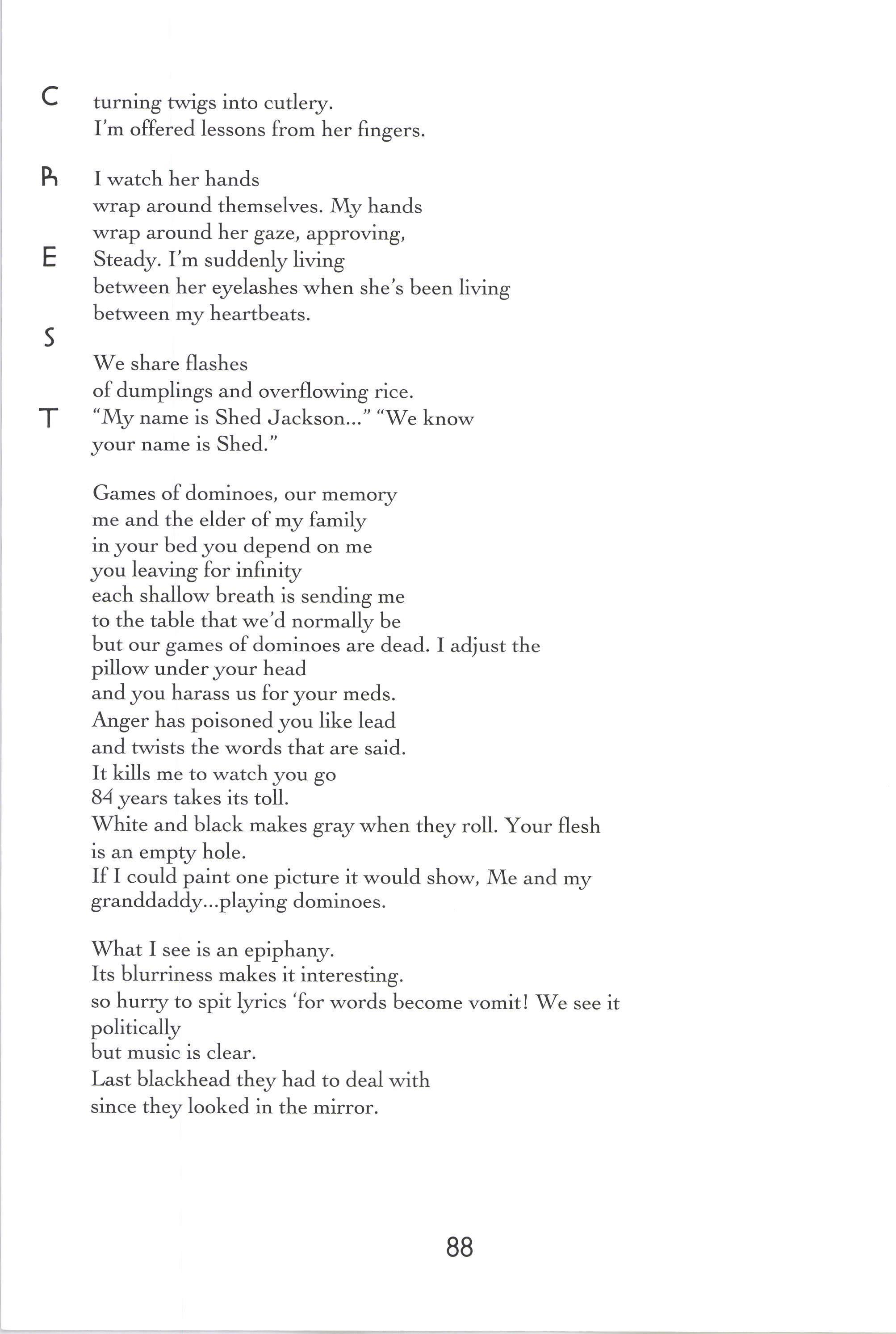
h E C
8B
It's meant to be.
Images force s;rmpathy. No utensils
I get the stoly out through assembly. H*g me on the wall with a caption of the truth. Put pen to paper and ball to hoop, a loss toyou is awin for me. The museum got it in for me, It's kin to me!
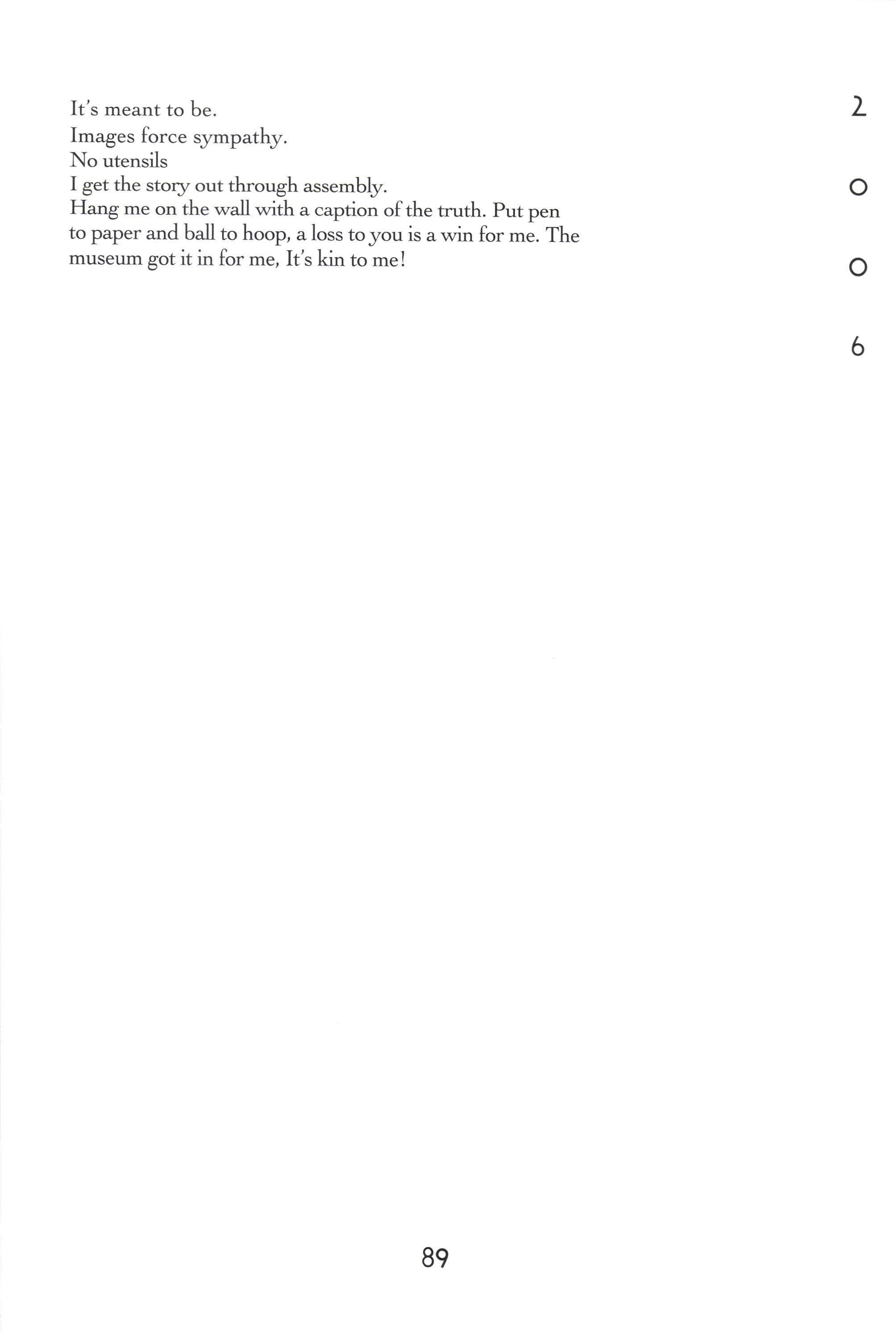
L o o 6 B9
Stephanie Lee
A Joke On A Drunken Beggar
Many plays and movies employ characters who embody the parallel 5 relationships between the text(authoriqr) and the performance(agency), as well as between the actor(authority) and the audience(agency'. But Shakespeare, master of all drama, takes these parallel allegories further by creating the T relationship between the disguised and the deceived, where the authorigr is the disguised, and the agency is the deceived. Disguise has a dependant connection with audience, which creates a parallel between the disguisers and actors, as well as between the audience and the deceived: "the personator rvill be required to interact with other people; disguise is pointless rvithout an audience" (307 Baker). Looking at the relationship between the disguised and deceived in Shakespeare's plays can help answer the question of what "audiences assumed about human interactions, about what people needed or wanted to know about each other" (304 Baker), helping us understand a play's theme. Disguise in Shakespeare's plays embraces the idea that role-playing helps reveal truths. Characters who disguise physically are "loyal" to those who are masking themselves psychologically, which is another instance of the relationship between authoriqr and subjection. These characters, by disguising themselves, help to remove the binding and oppressive facade that their leaders put on because personators are "created for a limited and determinate audience and for a limited period of time... such one-off personations can be thought of as task-oriented" (508 Baker). Meaning that when a character disguises his/herself they have a motivation, whether it be wanting to protect a Ieader, eavesdropping, or getting closer to suitor. Shakespeare's use of disguise develops a new complexiqr to his plays because it "involves a change in rank and hence in automatic power" (516 Baker). Most of his characters, while in disguise, reverse their roles, whether it is a simple change in authorit;r, or it is a change in rank, such as Viola in Twelfth Night, Richard in Richard II, Henry's counterfeit kings at the end of Henry IV Part I, Falstaff in The Merry Wives of Windsor, or Vincentio in Measure for Measure. A disguise is, technically, a form of lie or trickery, but Shakespeare reverses the utility of the disguise for his characters to reveal that people should be careful not to take things at face value because underneath the mask we can discover the truth. Two quite different plays where he makes this particularly striking are The Taming of the Shrew and King Lear.
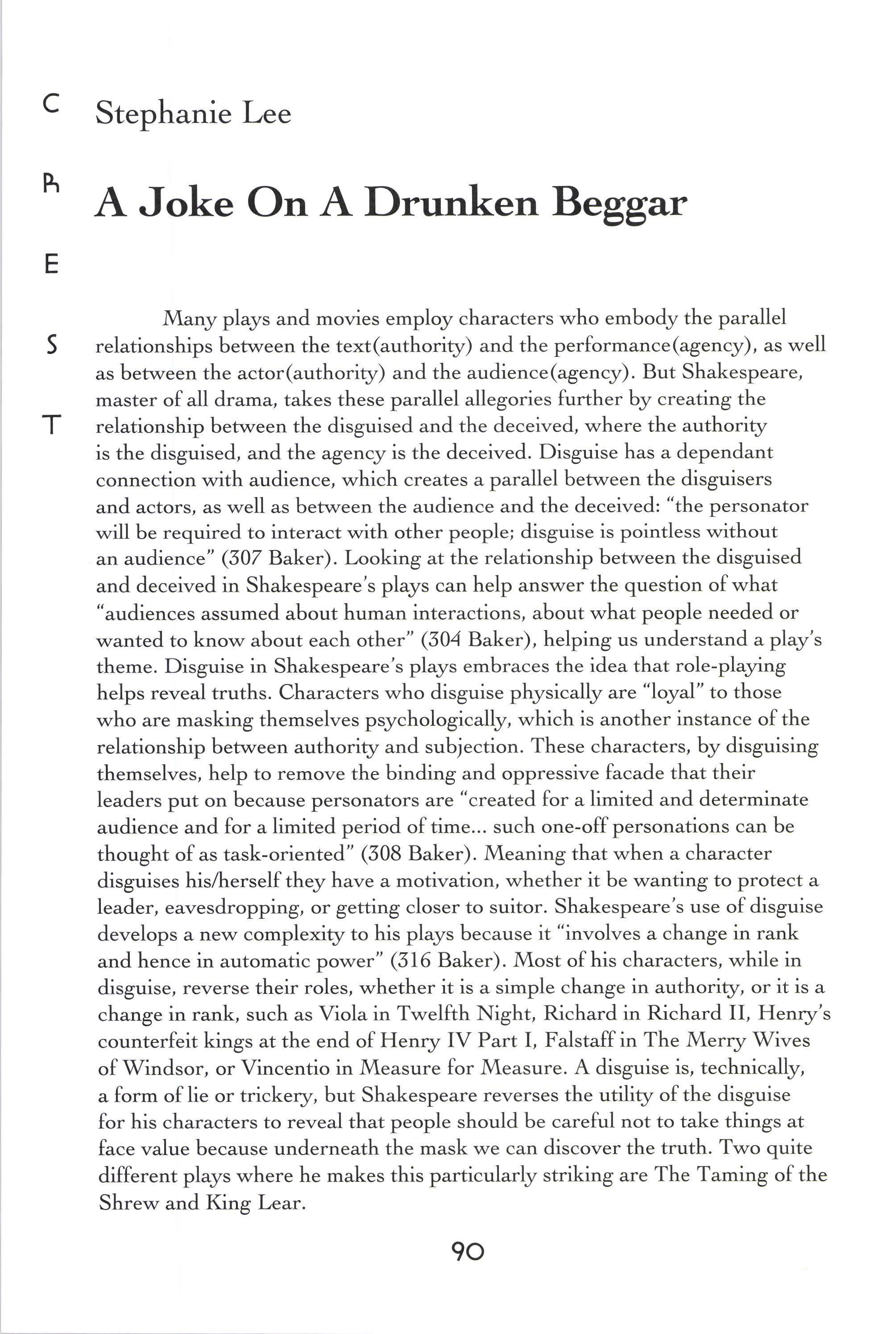
c h E
90
Disguise in The Taming of the Shrew is introduced by the Lord to the players immediately, in the Induction:
What thinkyou, if he were convey'd to bed, Wrapp'd in sweet clothes, rings put upon his fingers, A most delicious banquet by his bed, And brave attendants near hirn when he wakes, Would not the beggar then forget himself?
(1.37-4r)
As shown, the Lord instructs people to play a joke on a drunken beggar, making him think that he is rich. These seemingly simple words not only change his rank, but they also set the context for the story about to unfold, to clue spectators into one of the play's main themes: role plarng. In Shrew, Shakespeare provides disguises of all shapes and forms, from obvious physical disguises to more subtle psychological ones, and, in the confrnes of a play within a play, he allows us to see a world which, not unlike our own, is teeming with role players and disguisers.
Physical disguise in these plays is icing on the cake; it doesn't reveal an;rthing profound about the characters, but it surrounds the entire idea. In The Taming of the shrew, Hortensio and Lucentio disguise themselves as Bianca's tutors. Hortensio impersonates a musician and convinces Petruchio to present him to Baptista as a music tutor. Thus, Lucentio and Hortensio, pretending to be teachers, woo Bianca behind her father's back. In this situation it is true that Bianca is the powerless because she is so passive and polite, whereas Lucentio and Hortensio are the authoriqr. But it is very different for her sister Kate. Although Kate does not disguise her self physically, disguises "are not limited to the wearing of physical masks" (178 Holly). Kate takes on a psychological disguise as the shrew, and later is transformed into a dutiful wife. Her behavior is the form of disguise; she creates a devilish facade for herself so she can more easily deal with the world around her. This makes her the authoriqr because she is able to run off any unwanted suitors who might not be willing to fight for her love as Petruchio does.
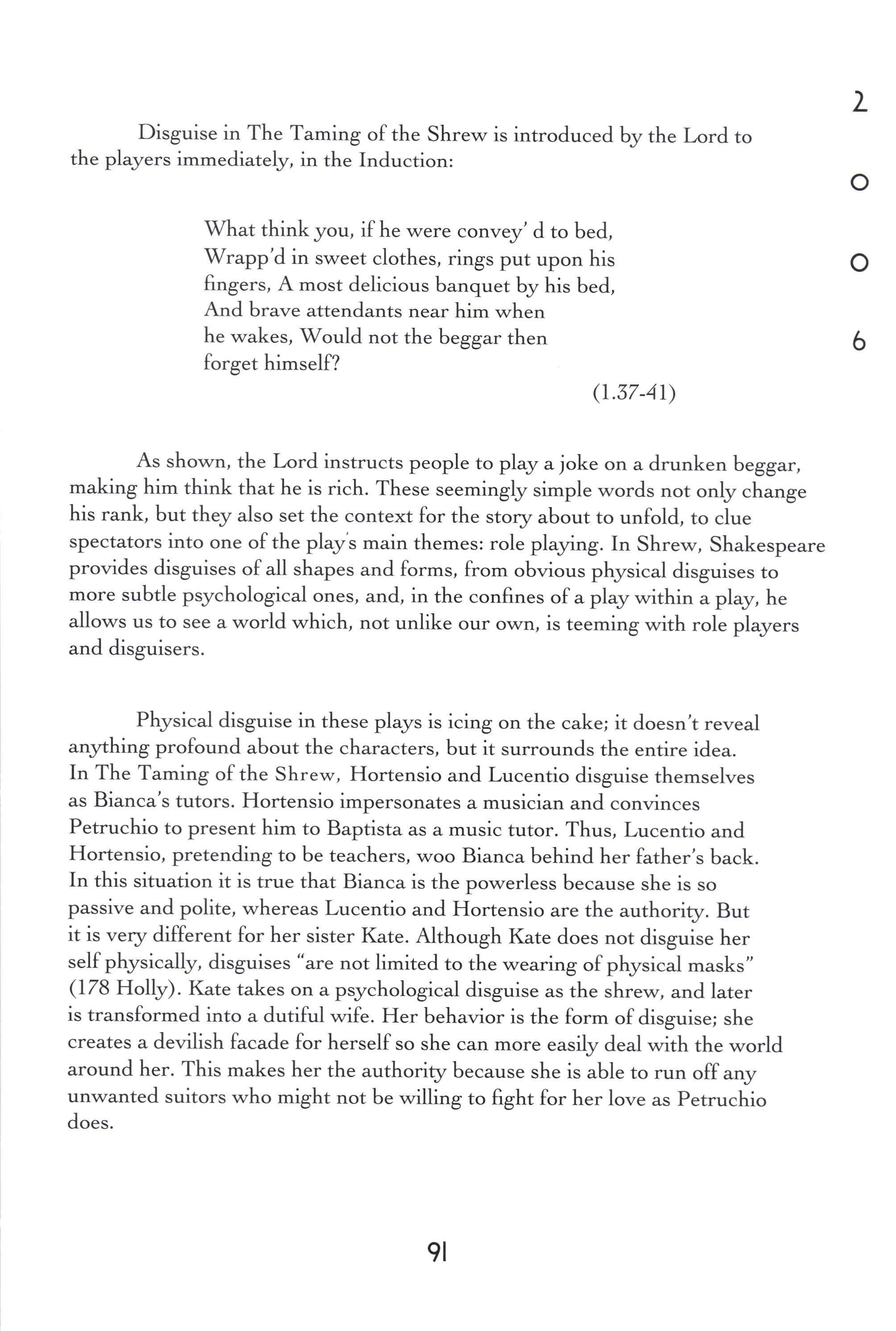
L o o 6 9l
TAlthough Hortensio and Lucentio are the physical disguisers in The Taming of the Shrew, Bianca psychologically disguises herself as well; the rest of the world, even the audience watching the play, is deceived. Her disguise is removed once she is safely married. Although she appears initially as a demure and pure soul, by the play's end we see that is not the case. As the play draws to a close, we see more and more of Bianca's true disposition and learn that, ironically, it is Bianca, not Kate, who really is the shrew. In her case, her psychological disguise provides her the opportuniqr to appear better than she really was. Bianca, therefore, is able to find a suitor. This, although far from revealing any deep truths about any of the characters, allows Bianca to find her true love. As the story develops, more physical disguises are employed as well. Lucentio, in order to marry Bianca, lies to her father, who has become deceived by both Bianca and Lucentio. Lucentio tells him that his father owns more land and money than he actually does. When Lucentio finds himself in this predicament, he realizes that he has to locate someone to be the father that he has made up in Act II Scene l: "suppos'd Lucentio/ Must get a father, call'd suppos'd Vincentio" (ll.r. 407-408). By Act IV Scene 2, he finds a Pedant to play the part. This reverses the roles between parent and child, because traditionally the parent is the authorit;r where the child is the one who is the subjection, but Lucentio and Bianca quickly fool him and are able to receive what they want: a marriage. King I*ar, atragedy, and a much different play than The Taming of the Shrew, takes Shakespeare's disguises to a deeper level. Kent, a loyal follower of Lear, is doomed to banishment by Lear, but because he is completely devoted and dutiful, he is determined to stay with his master. He remains with Lear by disguising as a servant, Caius, so he can protect him, putting himself "between the Dragon and his wrath" G.i.l24). But, strangely, Kent retains his disguise "beyond the point where it would appear to be necessary; and Shakespeare seems almost to call attention to this fact toward the end of Act IY" (49 Maclean): Be better suited. These weeds are memories of those worser hours. I prethee put them offPardon, dear Madam Yet to be known shortens my made intent. My boon I make it thatyou know me no Till time and I think meet.(IV. vii. 6-11)
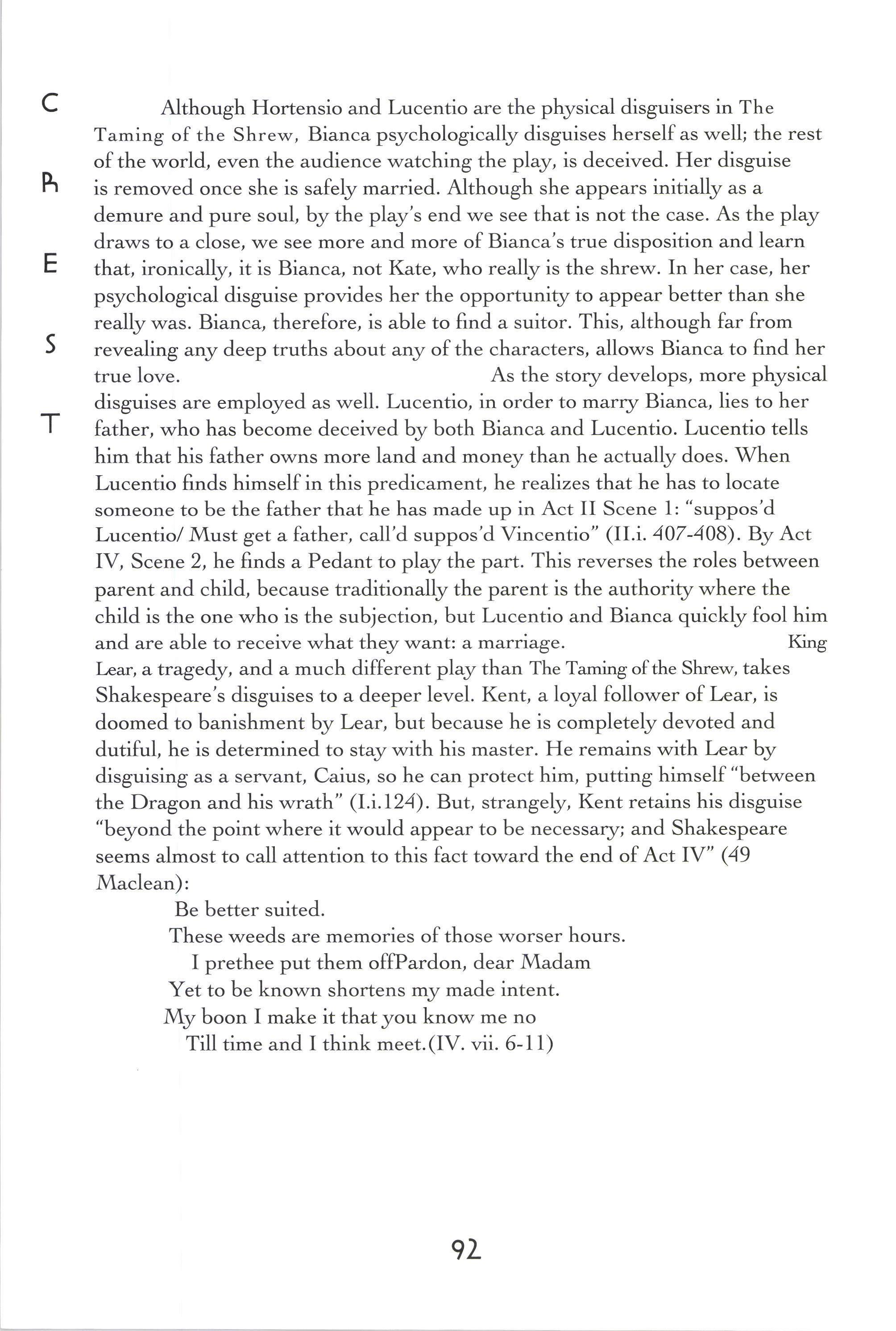
C h E s
9L
Another character in King [.earwho disguises himself is Edgar, one of Gloucester's sons. Gloucester is also one of Lear's loyal followers, and is tricked by his younger illegitirnate son Edmund to think that Edgar is set out to kill him. Edgar flees, thinking that his father Gloucester will punish him for wanting to kill him, then disguises as an insane and impoverished, Poor Tom. When Gloucester finds out that Edgar is the one that truly loved him, and was disguising all along, he feels horrible for believing Edmund's lies, especially because Erlmund has betrayed him and blinded him, literally and metaphoricall;r. Gloucester isn't actually able to see the truth of the loyalt;r of his two sons until he was literally blinded. Edgar's Tom and Kent's Caius entail s;rmbolic importance as the emblems of truth and regeneration in the play. Physical disguises are fairly easy to detect and defuse, but psychological disguises are quite a different and are a more complicated matter. In King Lear there also are psychological disguises. When Edgar is disguised as a bum, calling himself Poor Tom, he acts insane ar,d crazy sa.J ng things like "Pillicock sat on Pillicock Hill. Alow, alow, loo,loo." And "Tom's a-cold." And he starts tearing off his clothes. (III.iv.) When Lear sees Tom, he becomes sentimental toward the poor, regretting how he had never noticed their needs. Edgar's disguise helps Lear finally come to his senses and see the truth about his own people. Ironically, Lear grows more insane during this scene. Even Eclgar, dressed as Poor Tom, who speaks irrationally, is surprised by the words that Lear utters. The comparison of the two personalities sets up a backdrop for how insane Lear really is becoming. Edgar is useful in discovering the truth of Lear's madness. Two other characters in King Lear, Goneril and Regan, disguise themselves psychologically to their father to make him think that they love him. Although they are not truly loyal to their father, their disguise in the end allows Lear to realize how much his other daughter Cordelia truly loves him, helping him discover the truth about love. The character whose disguise is most interesting an compelling, yet the hardest to see is Lear's. Lear, unlike the other characters, is "disguised without know[ing] rt" (3I1 Baker). f,ear's disguise is his madness; he does not obtain a physical disguise, but he recognizes realiqr at the same moment so long as "he retains his disguise, and he accepts the truth of his status. He insists, when still mad and bedecked fantastically with flowers, 'I am the king himself,'he also accepts the realization that'Nature's above the art in that respect,'...he accepts his royal position just as he accepts the truth of himself as old and foolish even when his saniqr returns. Thus when he is rid of his disguise (his madness), he retains his understanding of himself'(178 Holty).H" is the
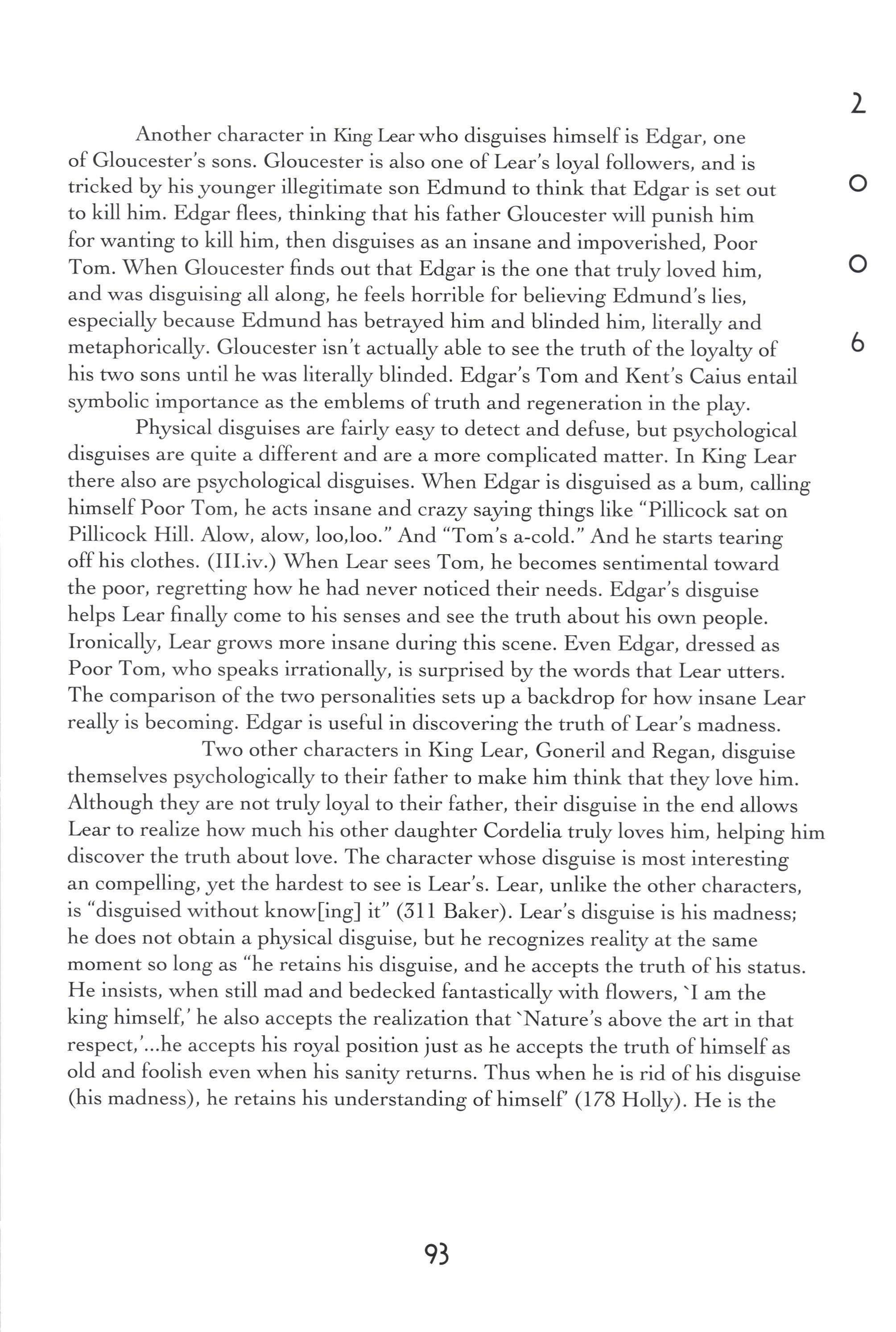
L o o 6 e3
authoriqr and subject at the same tirne; he is the disguised and the deceived; he is the actor and the audienceDisguise helps develop and uncover a theme in many of Shakespeare's plays. In The Taming of the Shrew, disguise shows that nothing is as it seems and that we are continually surrounded by people who may just be acting a part in order to obtain a desired outcome. In King Lear, I*ar comes to a realization when Kent reveals he was disguised all along that loyalqr and revering flattery are not connected. Historical elucidation that draws upon class conflict, which Shakespeare chooses to show through the conduct of his disguised character, is stressed. The actors of the play tatr<e on a parallel role, because they are also in disguise. As the characters reveal realism through disguise about the play, the actors reveal realism through disguise about the world. They both show their truths by having the disguised characters want something, which is the reason they decide to mask themselves in the first place. In the end, those whom we least expect can help us remove a costume that we use to hide who we truly want to be.
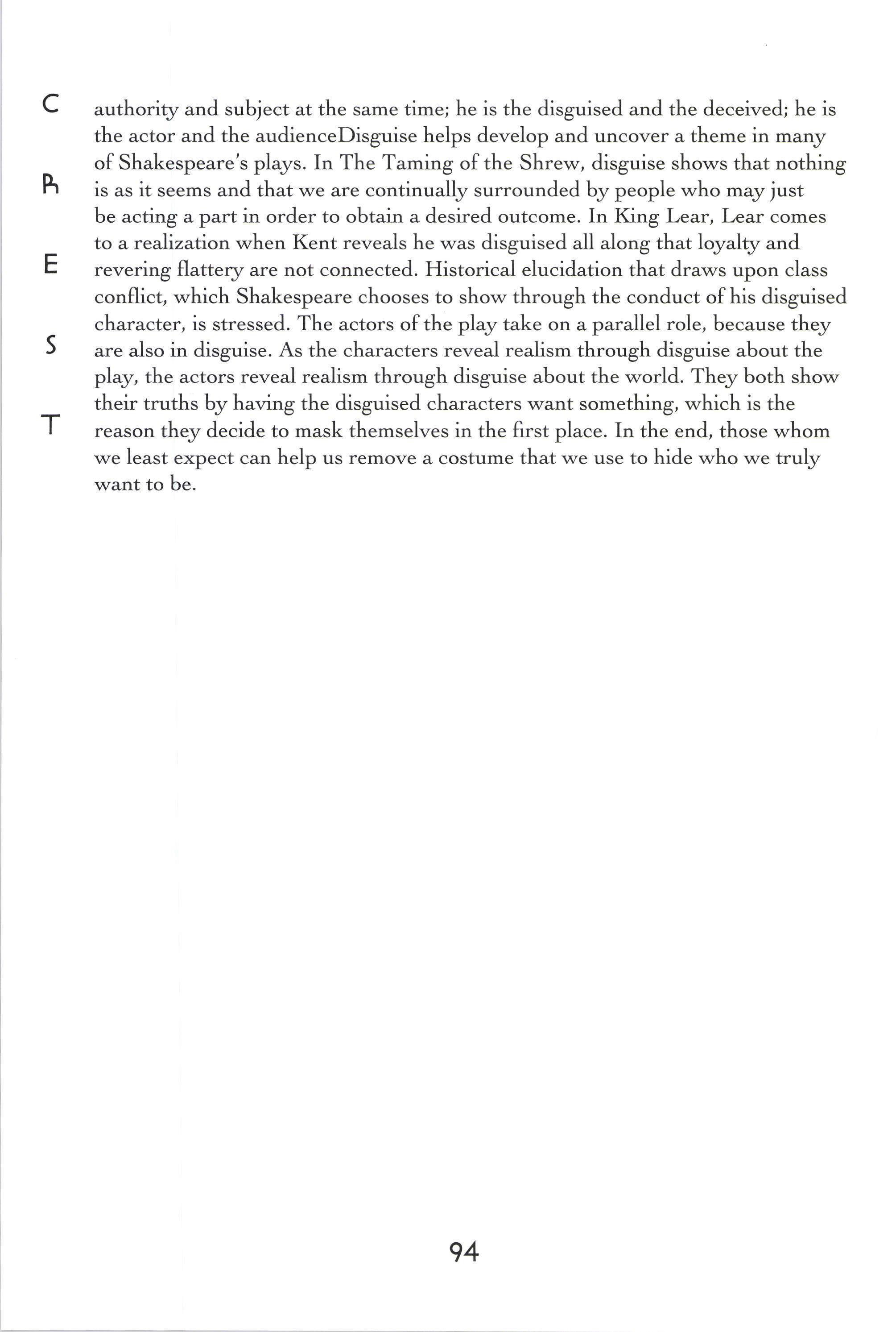
c h E
s T 94
Sarah Leitson
Five Hundred Eighty Seven
In between the cigarettes and bonbons You found time to rearrange Every record in your collection Each category containing Five-hundred and Eighty Seven ways to prevent Disaster
It was around the same time you Bought that fake gold ring From the pawn shop on the corner, Brushing off the blanket of dust Asyou slipped it ontoyour pinky With an air of satisfaction
It was the little things, You said, mouth stuffed vrith apple pie Casting away the inquisitive glances Before averting your eyes to yesterday's Rescued issue of the New York Times The one located squarely on the abandoned Subway seat, Two feet away
You never did ask me, But I too like my Monday Morning news On a Tuesday Afternoon
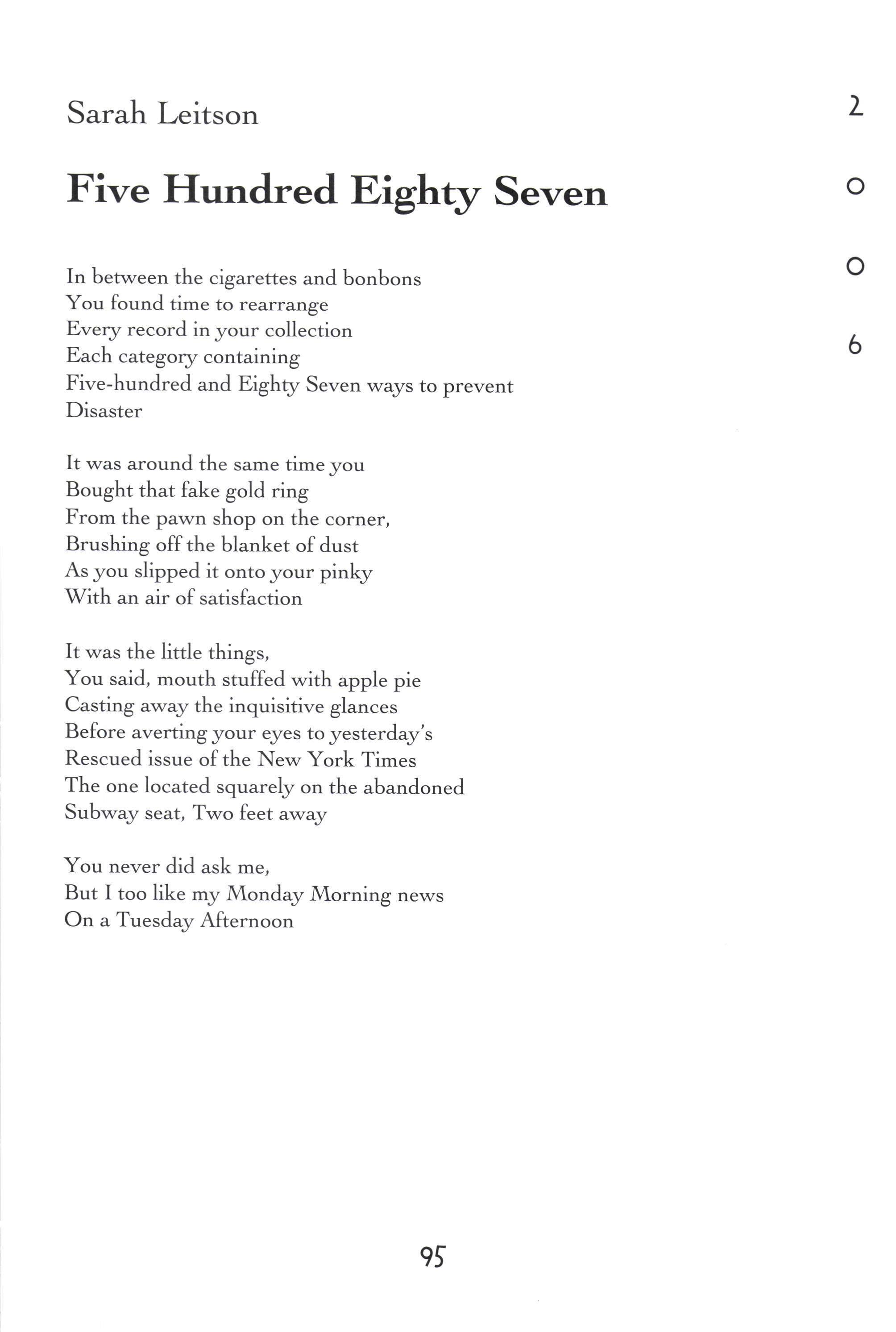
95 L o o 6
Kirsten Rusinak
Mr. Weatherman
Mr. Weatherman, I am askingyou to do me a favor.
TEach evening I watchyou on the 10 o'clock news. One depressing story after another and then comesyou. You are what we live for, the only reason one would ever tune in. My mind encodesyour 5 day forecast. 5 days is safe. A superior amount of time for the expectedness shaping your career.
I will blame that same "expectedness" for my Seasonal Affective Disorder. Diagnosing even the most joyful of plump men. Hoist up your globe and radiate my world, so it is never
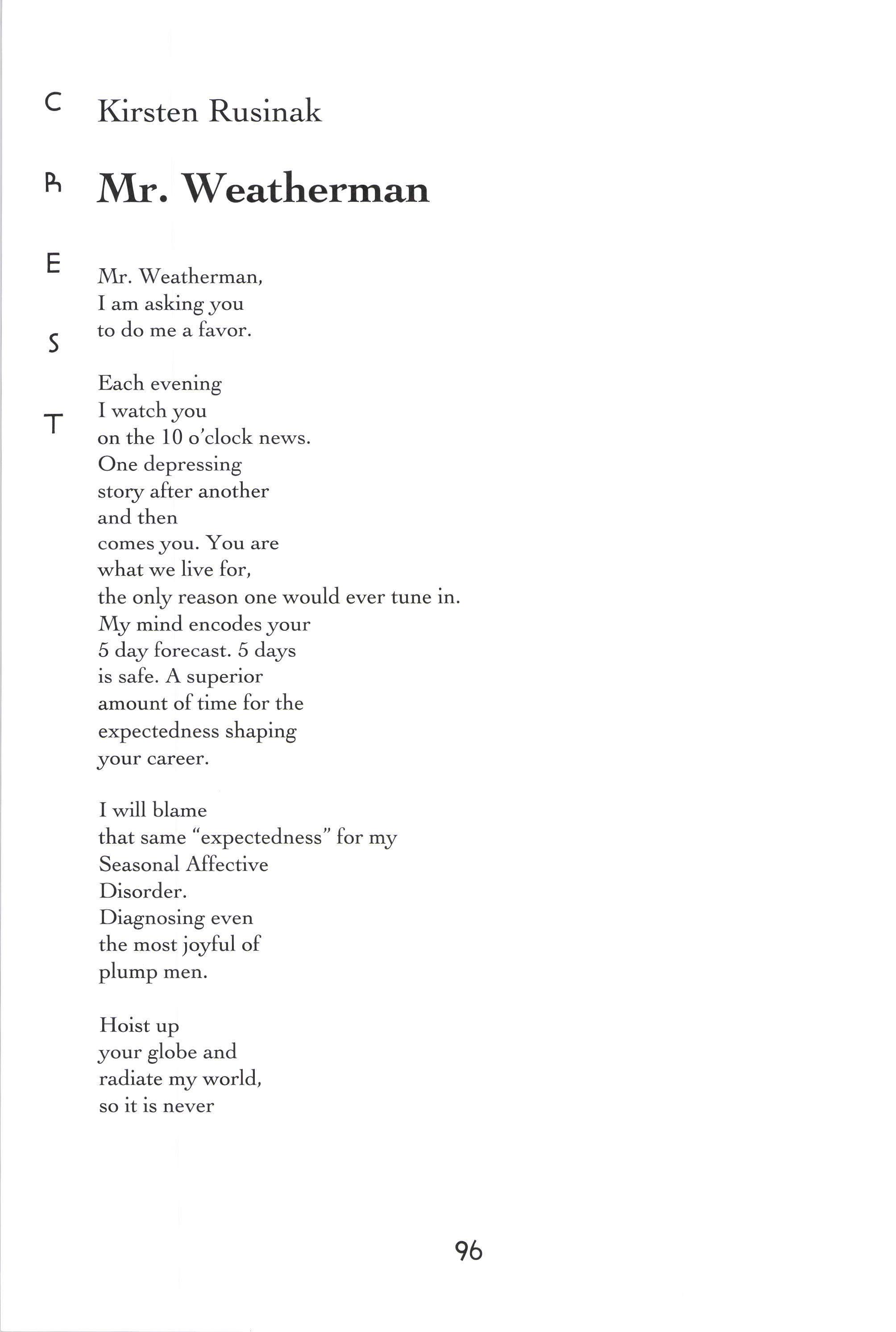
c h E s
96
overcasit with discoloration, cold fronts and outsides thunderheads. Tilt it just so that sunshine floods the atmosphere, supplying undernourished inhabitants with Vitamin E.
I want eyes to squint so hard and adolescent girls to have the motivation to actual\r shave their hidden legs.
Sometimes I think about the sun And sometirnes I think about that other incandescent creature. The one who wanns me just as much with a single touch of my goose bumped skin.
Let hold our planet. I ve found another mefium. Staywith those calculations. You won't have to change the weather
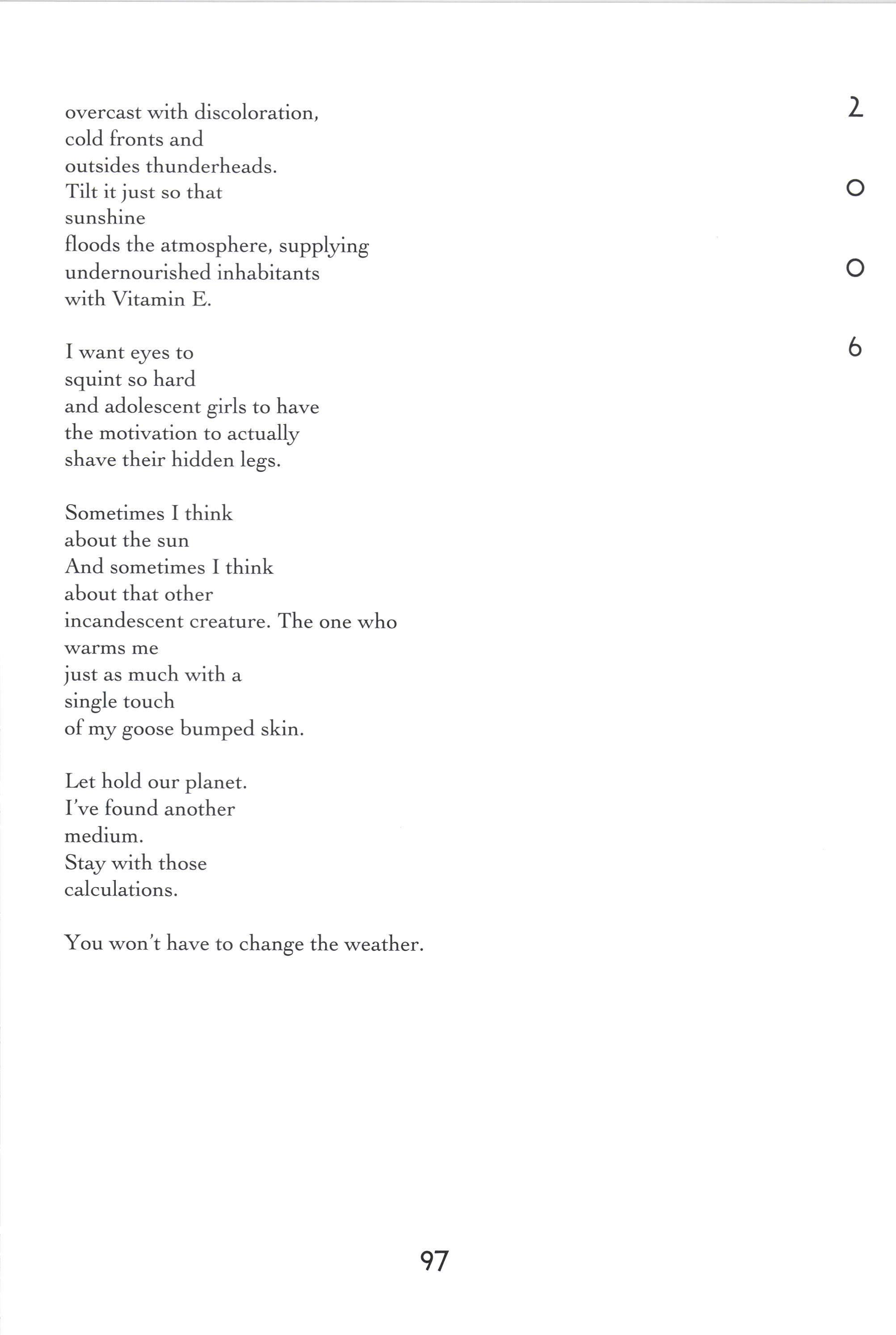
L o o 6 97
T
Sky Pickren
Suffocate The Silence
Your mistakes are now the brakes
To my car crashed in a lake Dark waters surround my legs Enclosing, nowyou beg.
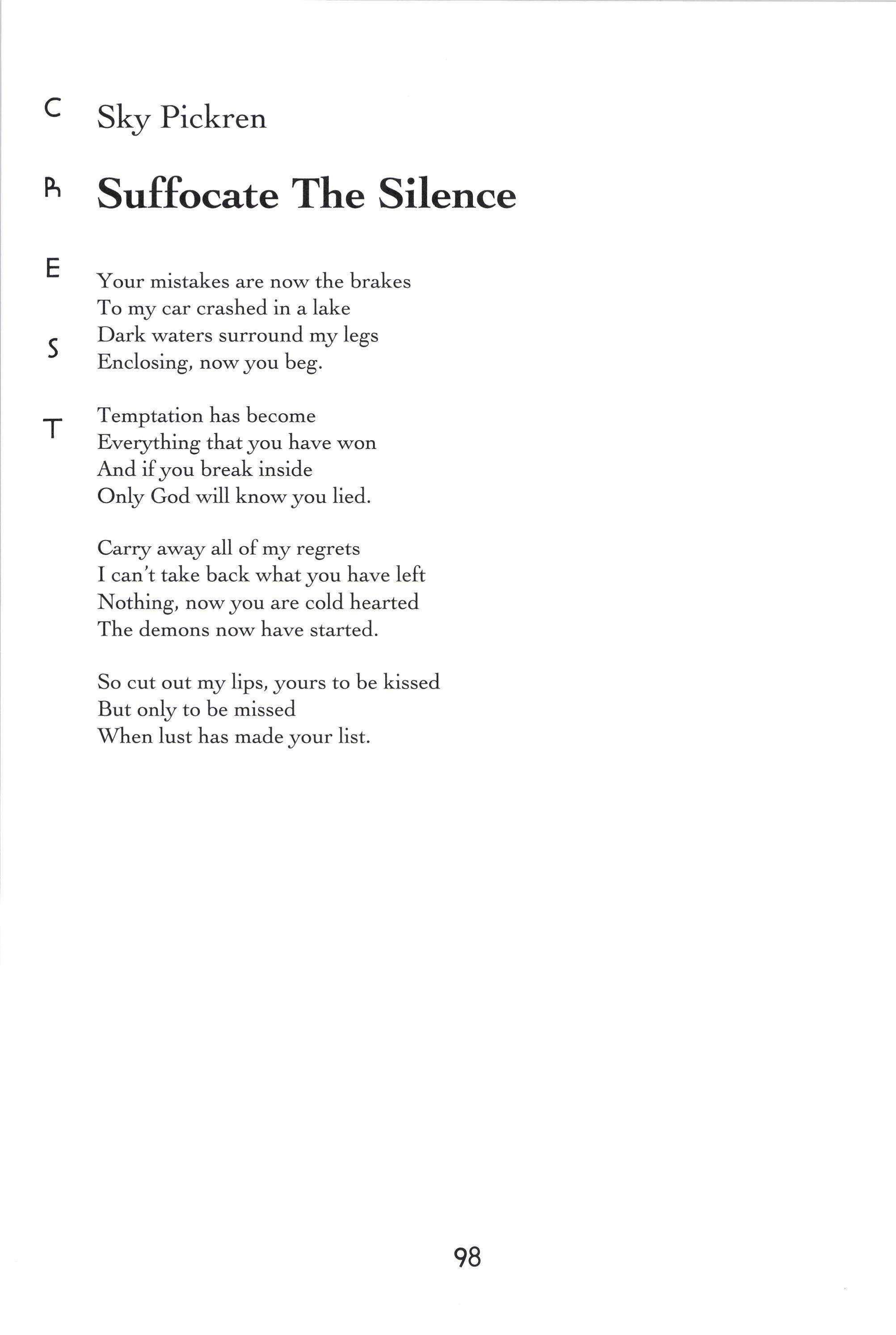
Temptation has become Eveqrthing thatyou have won And ifyou break inside Only God will knowyou lied.
Carry away all of my regrets I can't take back whatyou have left Nothing, nowyou are cold hearted The demons now have started.
So cut out my lips, yours to be kissed But only to be missed When lust has madeyour list.
c h E s
98
Teddy Swenson
Solo
if i could sing there would be slender egrytian cr:ures draped in the sanctitSr of each other's unknown wdtzing:rs one to tqrilight church bells outstretched to reach through shattered stained glass windows creating a kingdom of Pearl with trvo borrowed brown pebbles
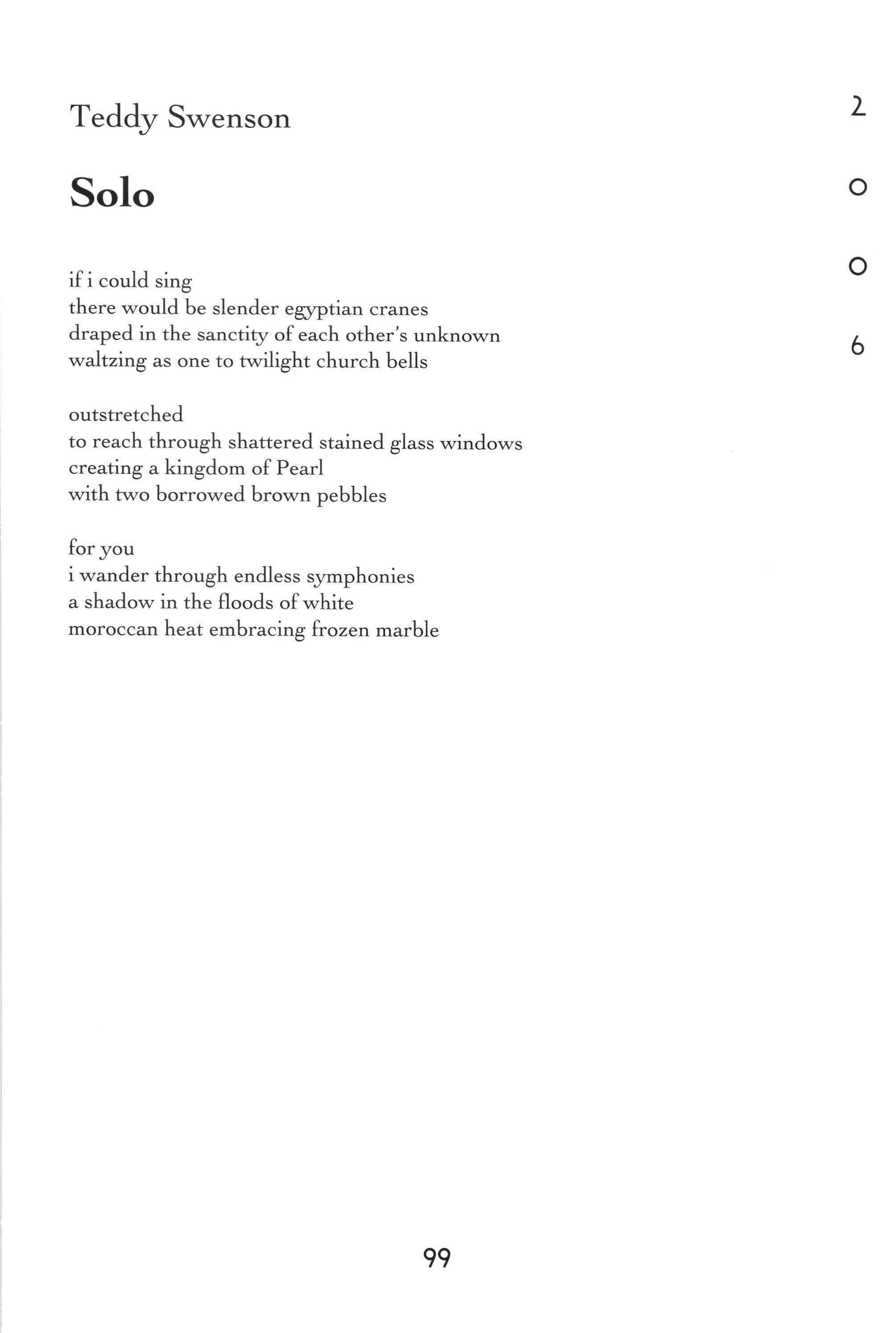
foryou
i wander through endless s;rmphonies a shadow in the floods of white moroccan heat embracing frozen marble
z o o 6 99
I-etter To Dr. Martin Ltrther Kine Jr.
Alex
MacMillan
Dear Reverend Dr. Martin Luther King Jr.,
Upon hearing of your current plight I strongly feel that I should send you a letter. Normally I do not send letters to others. It is much too time consuming. But now that I have plenqr of free time I can. I also want to write to you because both of us have so much in common.
I have been imprisoned by King Kreon in a cave far away from an;rthing I have ever known. I am slowly waiting for hunger and thirst to kill me. After my death my body will be left as carrion for the rats and vultures.
I am imprisoned here because I thought that something I took for granted became restricted. My brothers both died in combat. One was a hero, the other a traitor to the country. Eteokles was buried with just and lawful honors. However, Kreon proclaimed that Pol;,'neices body rvould stay unburied. No mourners, no tomb, no tears, a meal for wultures. I disobeyed Kreon's law and buried Polyneices. I fully admit to my "crime." If I die for doing that, good. I will stand with my brother and my crime will be devotion.
I absolutely disagree with King Kreon's inhuman beliefs. He is casting out principles humans and the gods themselves honor! The King cannot keep me from my brother, and he cannot keep the people from the rights they deserve. He proclaimed an unjust and immoral law that offends societ;r.
I have heard aboutyour current plight. How odd that our circumstances are so alike? You are trapped in a prison much like mine. Solitary confi.nement prevents you from callingyour lawyer or family. Leaders who oppose justice leave you inyour own cave, hoping that you will rot away. They fear that the justice you preach will prevail.
I immediately noticed that rve share the same beliefs about justice. You wrote "Injustice an;,'where is a threat to justice everS,,where" and it inspired me. We both are fighting for justice because we are afraid that injustice, no matter how small, will spread if action is not taken.
You and I are both alil<e. Both of us hold respected places in our communiqr, you a pastor and I of royaltSr. However, hierarchy does not keep us from fighting for what we believe in and being punished for it. We are wamiors of justice, flghting against power and conformiqr for justice and equaliqr. 'We are both ready to suffer any hardship, be it humiliation, segregation, imprisonment, or death.
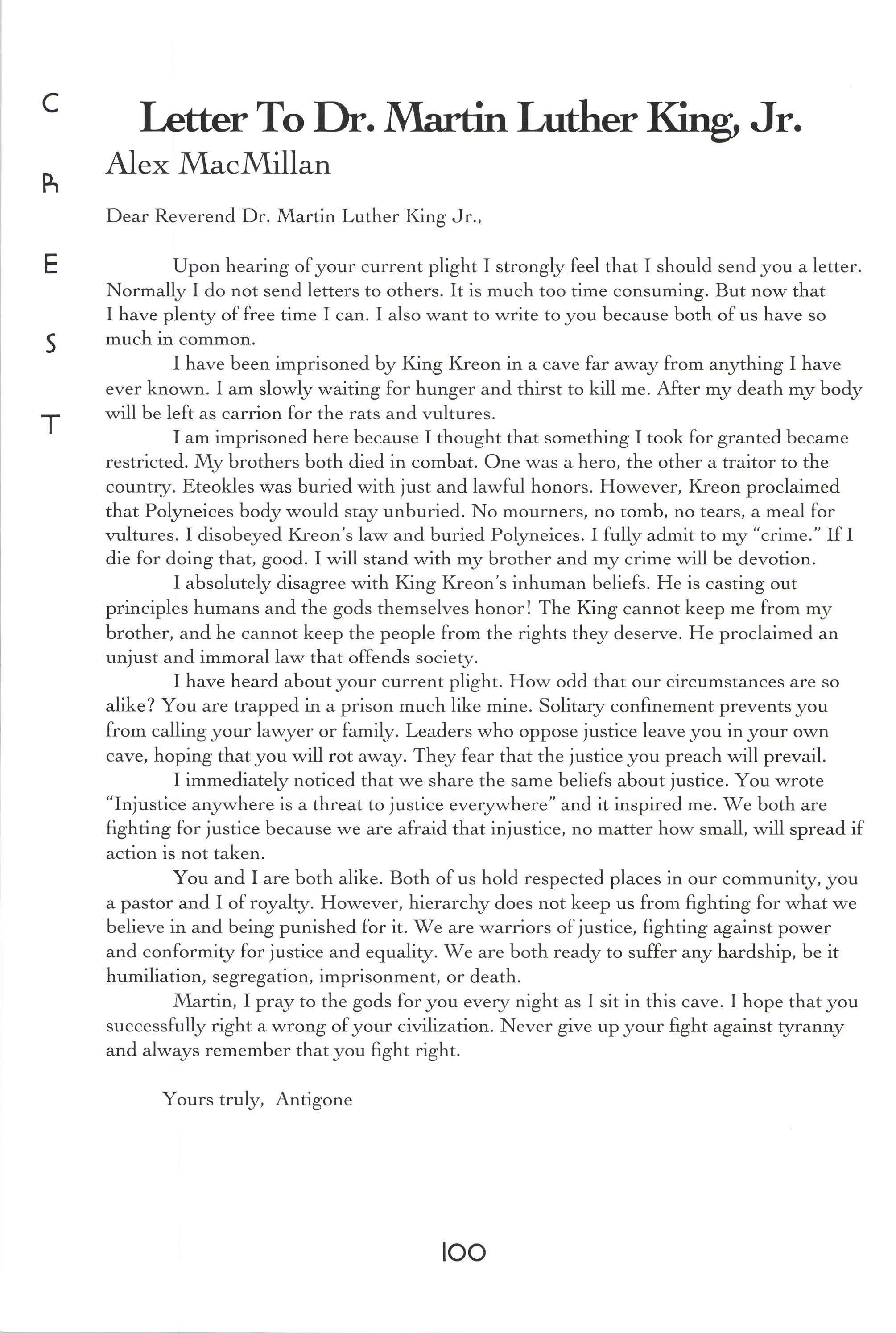
Martin, I pray to the gods for you every night as I sit in this cave. I hope that you successfully right a wrong of your civilization. Never give up your fight against $rranny and always remember thatyou fight right.
Yours truly, Antigone
c h E
s T
loo
P.S. - Please reply to my letter. I am eager to get any information from the outside. If I don't receive a letter soon, I think I might just kill myself.
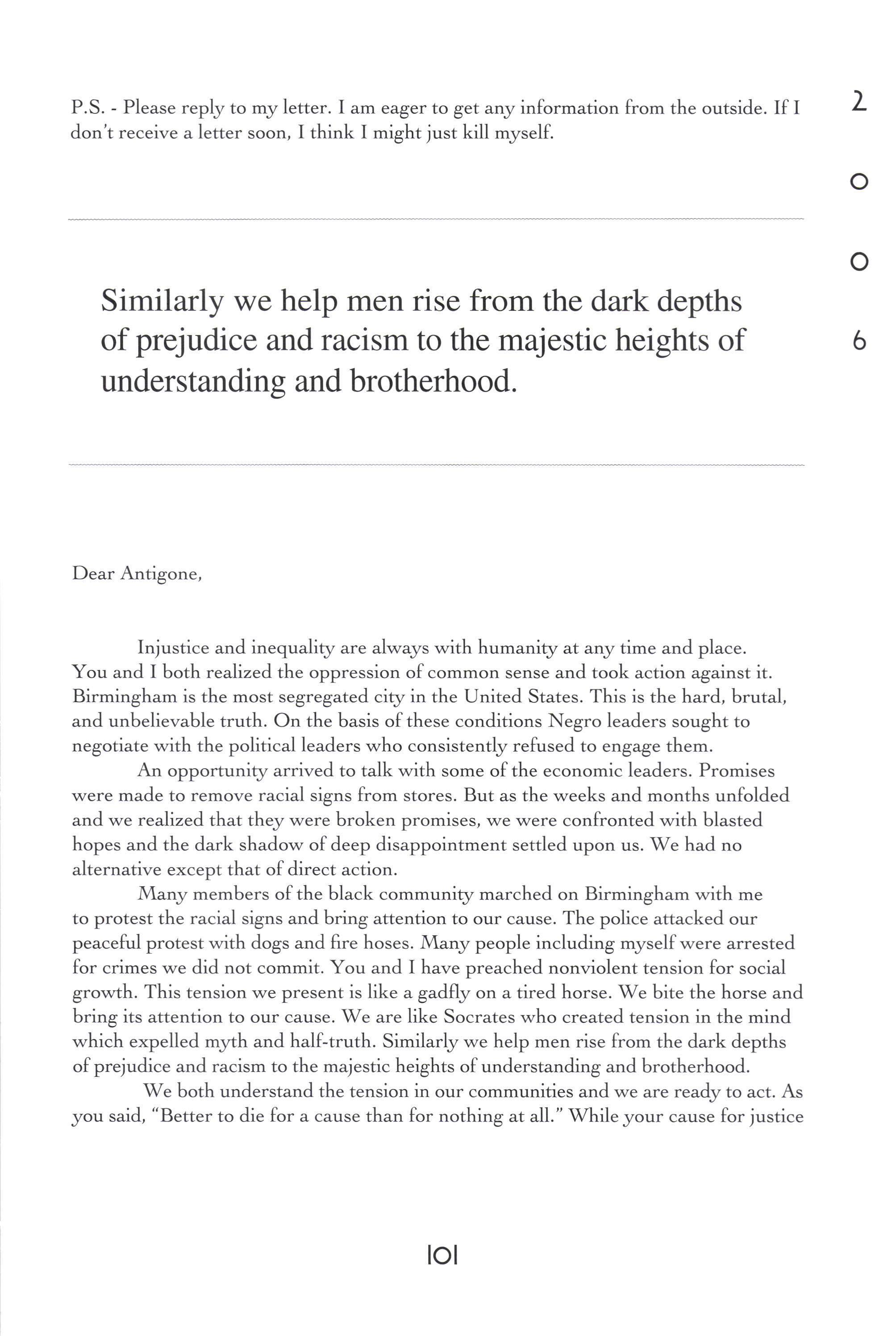
Dear Antigone,
Injustice and inequaligr are always with humanigr at any time and place. You and I both realized the oppression of common sense and took action against it. Birmingham is the most segregated ciqr in the United States. This is the hard, brutal, and unbelievable truth. On the basis of these conditions Negro leaders sought to negotiate with the political leaders who consistently refused to engage them.
An opportunity arrived to talk with some of the economic leaders. Promises were made to remove racial signs from stores. But as the weeks and months unfolded and we realized that they were broken promises, we were confronted with blasted hopes and the dark shadow of deep disappointment settled upon us. We had no alternative except that ofdirect action.
Many members of the black communiqr marched on Birmingham with me to protest the racial signs and bring attention to our cause. The police attacked our peaceful protest with dogs and fire hoses. Many people including myself were arrested for crimes we did not commit. You and I have preached nonviolent tension for social growth. This tension we present is like a gadfly on a tired horse. We bite the horse and bring its attention to our cause. We are like Socrates who created tension in the mind which expelled myth and half-truth. Similarly we help men rise from the dark depths of prejudice and racism to the majestic heights of understanding and brotherhood.
We both understand the tension in our communities and we are ready to act. As you said, "Better to die for a cause than for nothing at all." While your cause for justice
Similarly we help men rise from the dark depths of prejudice and racism to the majestic heights of and brotherhood.
L o o 6 lol
involves conformit;r and passiveness, mine involves segregation and assertiveness. There came a time for both of us when our patience and tolerance was no Ionger responsible, and we were forced to consider an;rthing to avoid the blackness of corroding despair. We do not care that we have broken laws that are unjust. As Saint Augustine said, "An unjust law is no law at all." Whatyou broke was the obstacle to harmony of the moral, eternal, and natural laws we humans stand for.
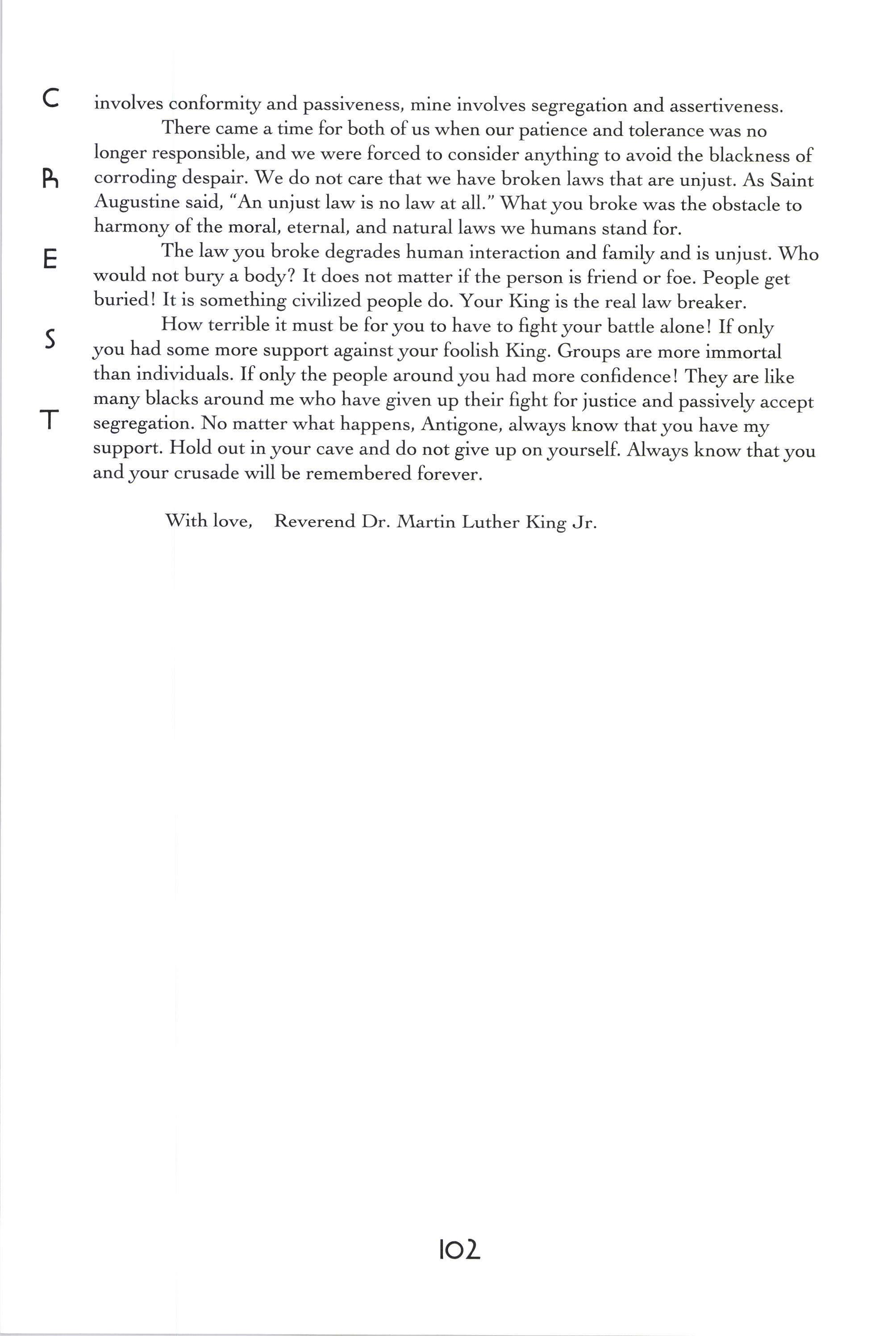
The lawyou broke degrades human interaction and family and is unjust. Who would not bury a body? It does not matter if the person is friend or foe. People get buried! It is something civilized people do. Your King is the real law breaker.
How terrible it must be for you to have to fight your battle alone I If only you had some more support againstyour foolish King. Groups are more immortal than individuals. If only the people around you had more confidence ! They are like many blacks around me who have given up their fight for justice and passively accept segregation. No matter what happens, Antigone, always know thatyou have my support. Hold out in your cave and do not give up on yourself. Always know that you and your crusade will be remembered forever.
With love, Reverend Dr. Martin Luther King Jr
c h E
5 T loz
Peter Kahn
Ice
1980. The mighty Russians-Polar Bears urith sticks -wer€ gonna knock our white teeth to dark gaps. American blood wa:<ing the rink red-the only color we'd show other than scared.
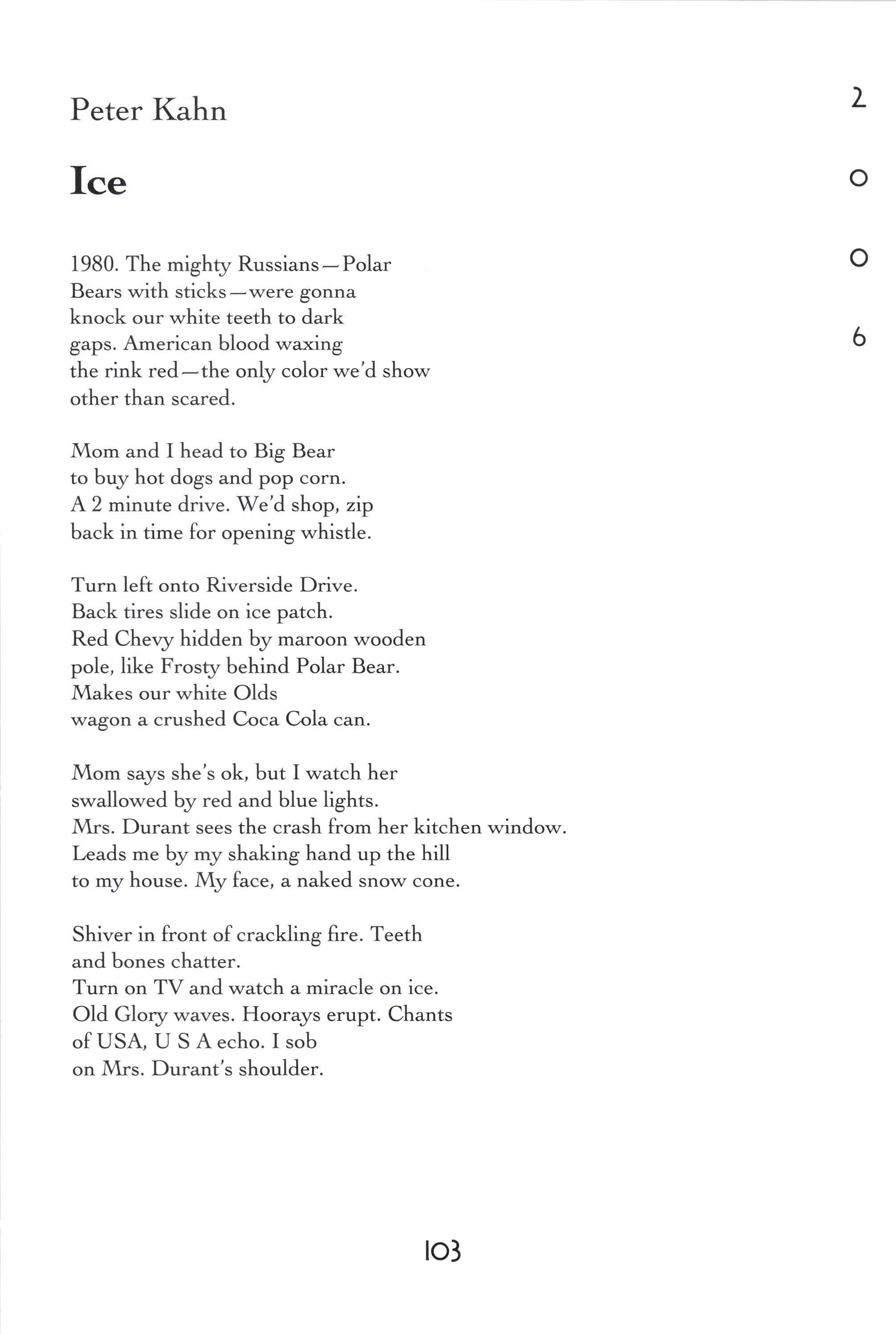
Mom and I head to Big Bear to buy hot dogs and pop corn. A 2 minute drive. We'd shop, zip back in time for opening whistle.
Turn left onto Riverside Drive. Back tires slide on ice patch. Red Chevy hidden by maroon wooden pole, like Frost;r behind Polar Bear. Makes our white Olds wagon a crushed Coca Cola can.
Mom says she's ok, but I watch her swallowed by red and blue lights. Mrs. Durant sees the crash from her kitchen window Leads me by my shaking hand up the hill to my house. My face, a naked snow cone.
Shiver in front of crackling 6re. Teeth and bones chatter. Turn on TV and watch a miracle on ice. Old Glory waves. Hoorays erupt. Chants ofUSA,USAecho. Isob on Mrs. Durant's shoulder.
L o o 6 ro3
No Longer A Sonnet
Primat instincts Rarely include Overachieving, and Sometirnes The Itch to live over Throws my pride. Under Thousands ofboys I learn the Often graceless art taught Near crackling sheets.
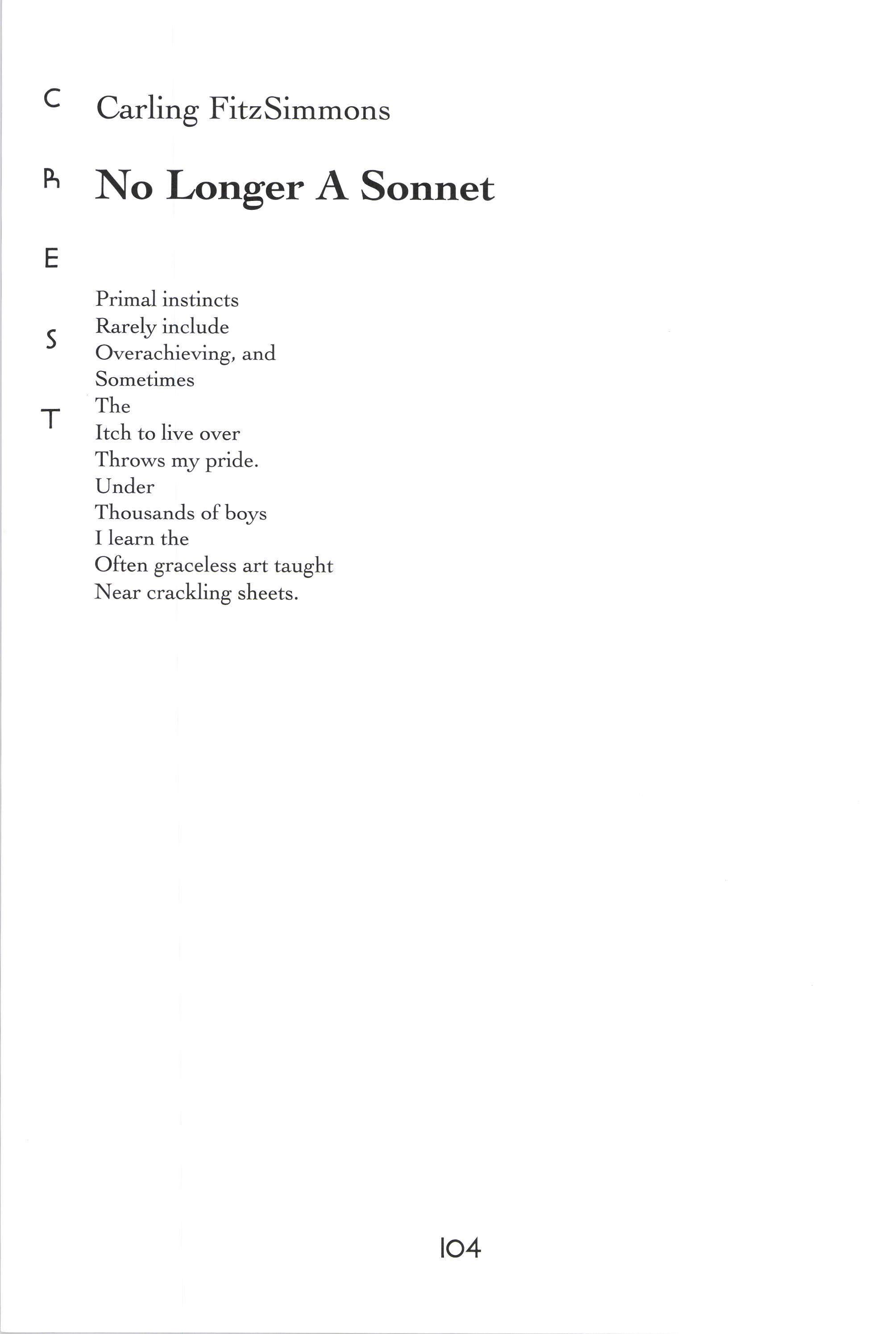
c h E Carling FitzSimmons
5 T lo4
Peter Kahn
P"ppered
SaItSr smoke peppered the air inciting his asthma, anger. Breath, like his life, never natural now antagonized, belabored.
His mother died pre-labor salqr smoke peppering the air their taxi mangled by a knotted oak tree, a gash revealing
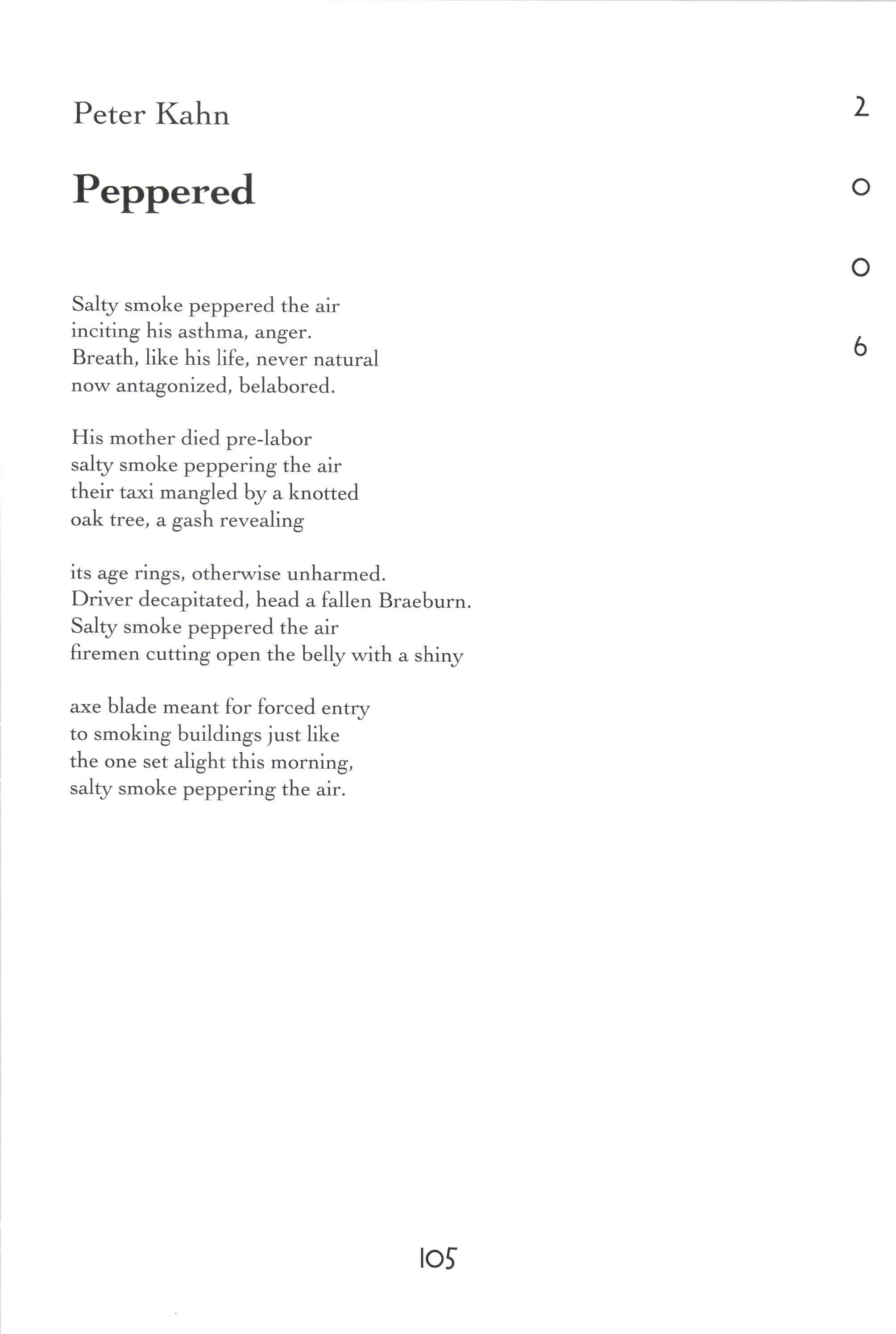
its age rings, otherwise unharmed. Driver decapitated, head a fallen Braeburn. Salqr smoke peppered the air firemen cutting open the bellywith a shiqy
axe blade meant for forced entrlr to smoking buildings just like the one set alight this morning, salqr smoke peppering the air.
L o o 6 to5
Play'Fightirg
When I was smaller, I fought.
I didn't punch aqyone At least, not to hurt. P""ry because I knew That it causes your hands (Jnnecessary wear and tear, And partly because I couldn't throw a punch To save my life, really.
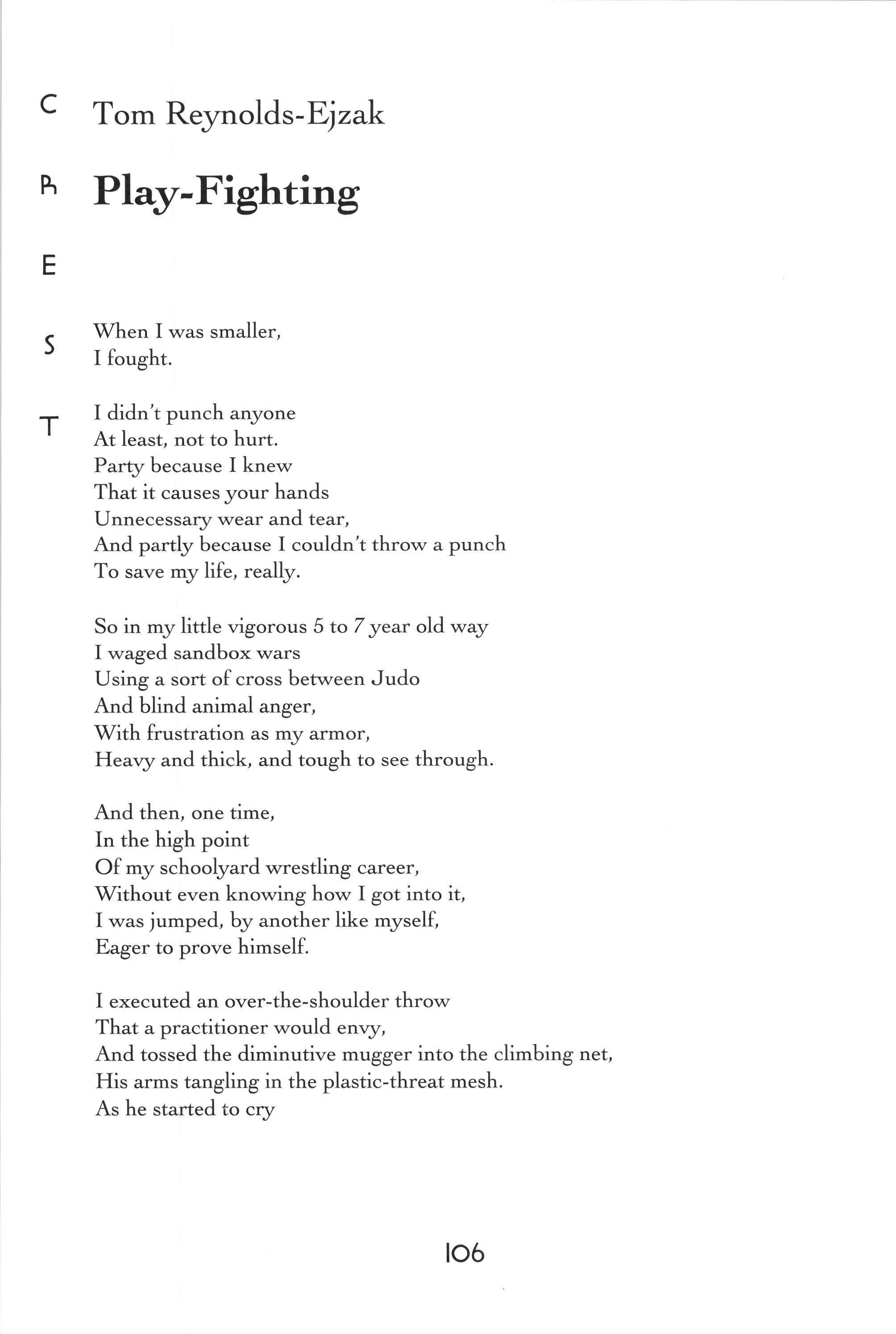
So in my little vigorous 5 to 7 year old way I waged sandbox wars Using a sort of cross between Judo And blind animal anger, With frustration as my axmor, HearSr and thick, and tough to see through.
And then, one time, In the high point Of my schoolyard wrestling career, 'Without even knowing how I got into it, I was jumped, by another like myself, Eager to prove himself.
I executed an over-the-shoulder throw That a practitioner would enr5r, And tossed the diminutive mugger into the climbing net, His arms tangling in the plastic-threat mesh. As he started to cry
c h E
Tom Re;rnolds-Ejzak
s T lo6
I apologized profusely, in a continuous, panicked, half-comprehensible flow Begging my unfortunate attacker
To forgive me.
He got up and I gave up, And walked away.
I did not fight after that. Much.

L o o 6 to7
Richard Zabran ky
Intelligent Elephant
We hold our breaths as that hot dog wrapper, carelessly let loose, floats beneath the bass drum hoof. Could it be a trick played by the eyes that makes it fly like a soiled sparrow just before the weight comes down?
And what of the instant's hesitation when the creature seems to sense delicacy underfoot, like a brutish lover touching without touching lips to lids?
The trainer, ayoung man in pon;rtail, brings them round, trunk to tail, in the dumb march that re-traces common ground as, carefully, we strip cotton candy off the shaft and wait to split the air with our applause.
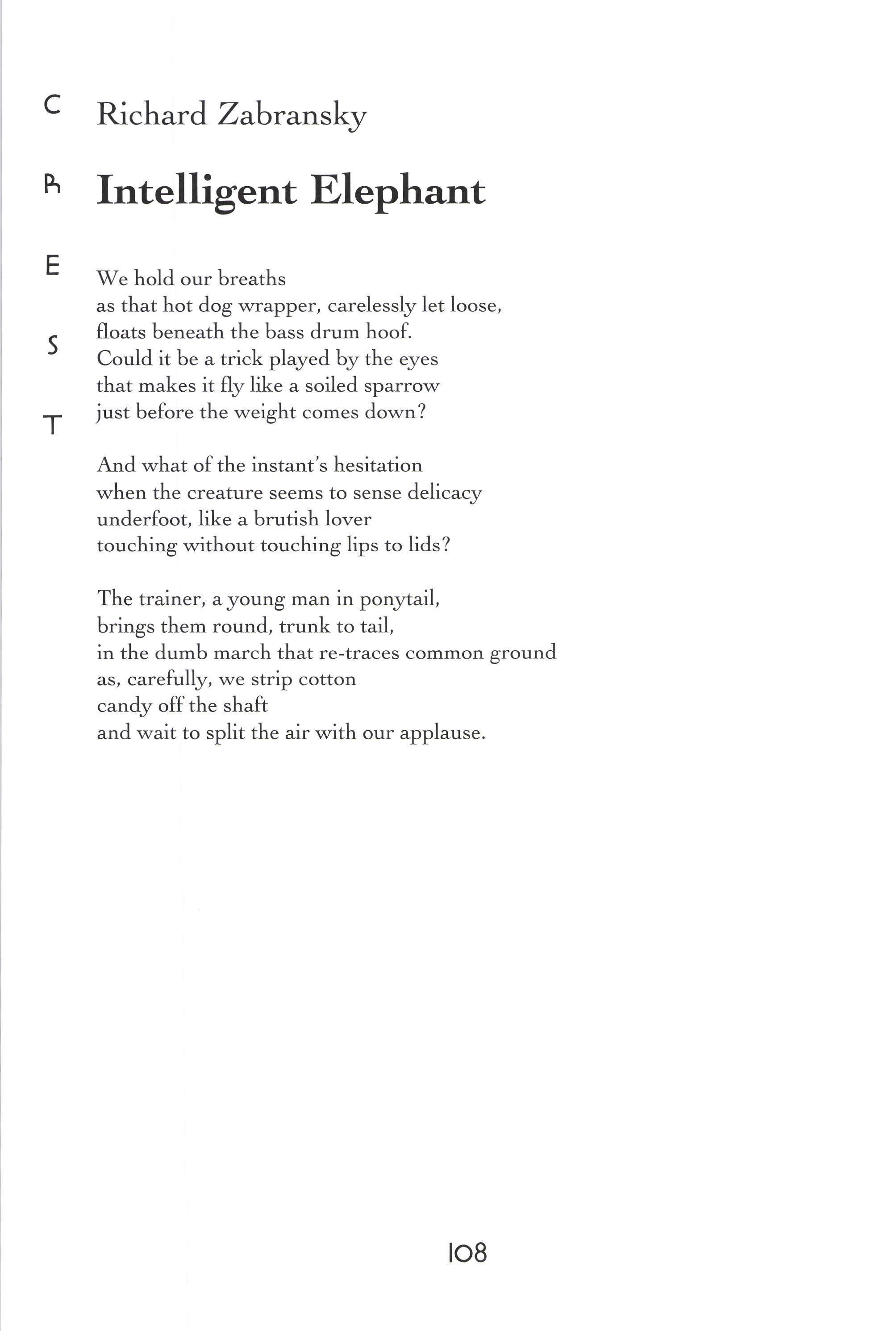
c h
E s T loB
Claire Lombardo
The Cars
It had always been hard for her to believe that someone who had once had such an ardent desire for wealth could end up working in a convenience store. Nevertheless, there he was, forqr-five and apron-clad, leaning half-asleep against the cigarette cabinet behind the counter. He hadn't noticed her come in; the jingling of the bells tied to the door hadn't been loud enough to pull hirn from his slumber. Suddenly she felt afraid of him because she barely recognized him. She shouldn't be the one doing this. Her large black car was seriously invading the space ofthe pickup truck parked next to her and she thought ofgoing back outside to move it in order to avoid an altercation with the ancient fisherman who was inevitably the driver. She would tell them there was nowhere to park; that someone else could tell David when he got home later on. The plan wasn't foolproof but she didn't particularly care. She reached for the door handle and the bells shook again. This time Dawid jolted awake and she froze, feeling his eyes on her back.
"There something I can help you with?"
She turned to face him slow\r, anticipating shock, but nothing on his face registered any trace of recognition.
'David..." He looked a little confused and leaned forward a bit. "Yes?" It couldn't have been that long. She couldn't have looked that different. An old man wandered out of one of the aisles and faced David in front of the counter. She stood awkwardly as David rang up a half-gallon of milk and a box of Kleenex. "Four-twelve," David said, and cocked his head to look at her over the man's shoulder.
"I have to move my car," she spat out quickly before ducking out the door. She got in and carefully backed out, shifting to park along the side of the lot. A minute later the Kleenex man exited the store and climbed into the pickup. She thought ofthe car parked in front ofher parents'house, silver and shiny and out-of-place in front of the house that always seemed very dusqr. She had bought them a car as a sorry-your-daughter-died gift. She wasn't entirely sure that such a gift was necessary-she wasn't sure what the occasion called for. Maybe nothing. Wine seemed too dangerous, possibly too supportive of the resorting to of questionable coping mechanisms. She considered what she would want as a sor{yyour-sister-died-even-though-you-didn't-know-or-particularly-like-her gift and couldn't come up with anything, primarily because she didn't think she deserved
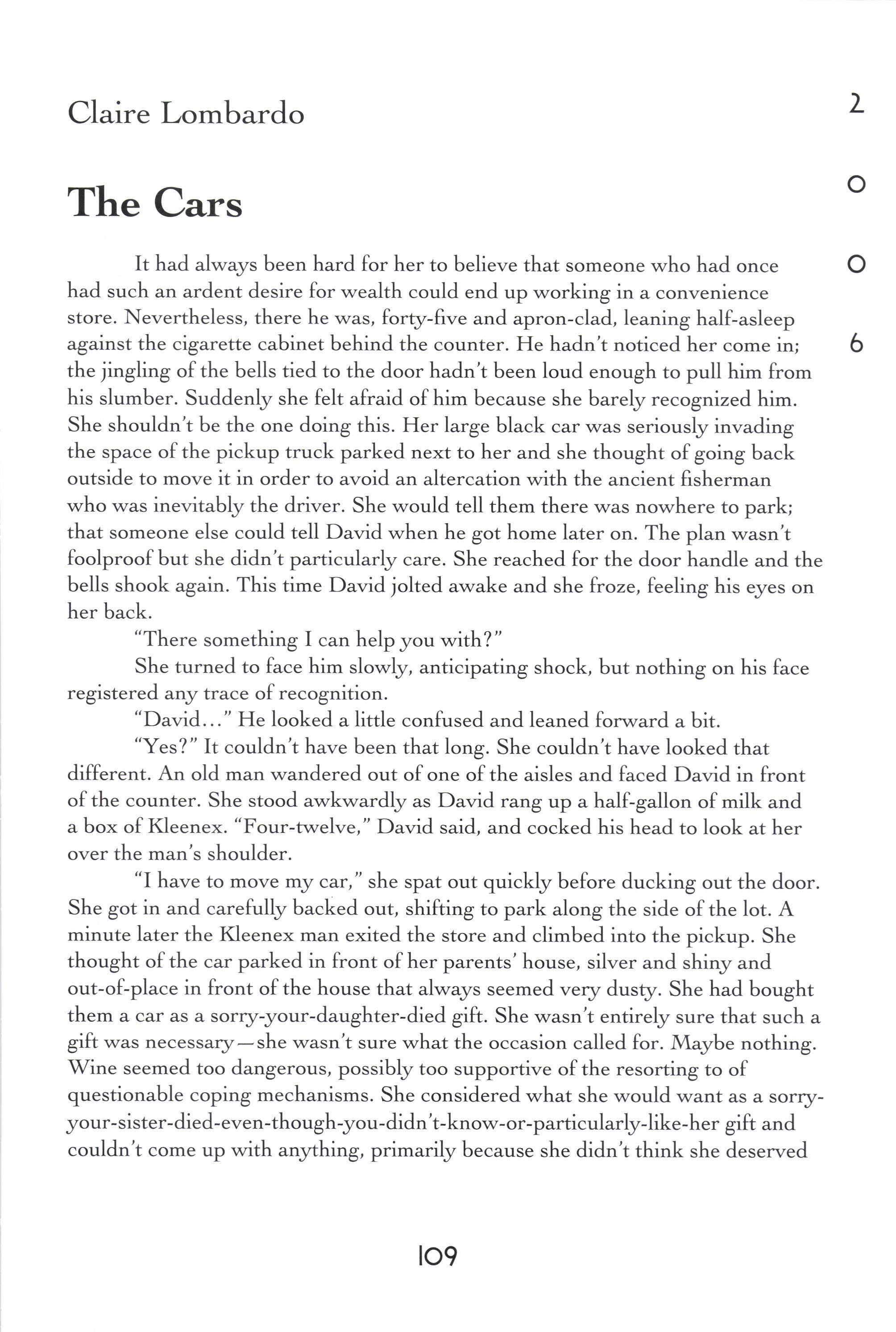
L o o 6 Io9
anyhing because she wasn't technically suffering and didn't even want to be there in the first place.
"It's too much," her mother had said, and then patted her shoulder and asked her to go to Dawid. And that brought her there, to the moment of genuinely considering flooring it and leaving the lot, then the town, then eventually the state. She pulled into the vacant spot and got out agarn/ Now David had moved from behind the counter and was watching her from the entrance. His face changed slightly, she saw, as she approached him. He reached and held the door open for her.
"You could have just seriously screwed with me," he said, grinning selfconsciously. "Tried to hold up the store or something. You would have had me going." She laughed because he sounded the same was he did when he was sixteen and she was relieved that there wasn't a surly personaligr to accompany his gruff, faded exterior.
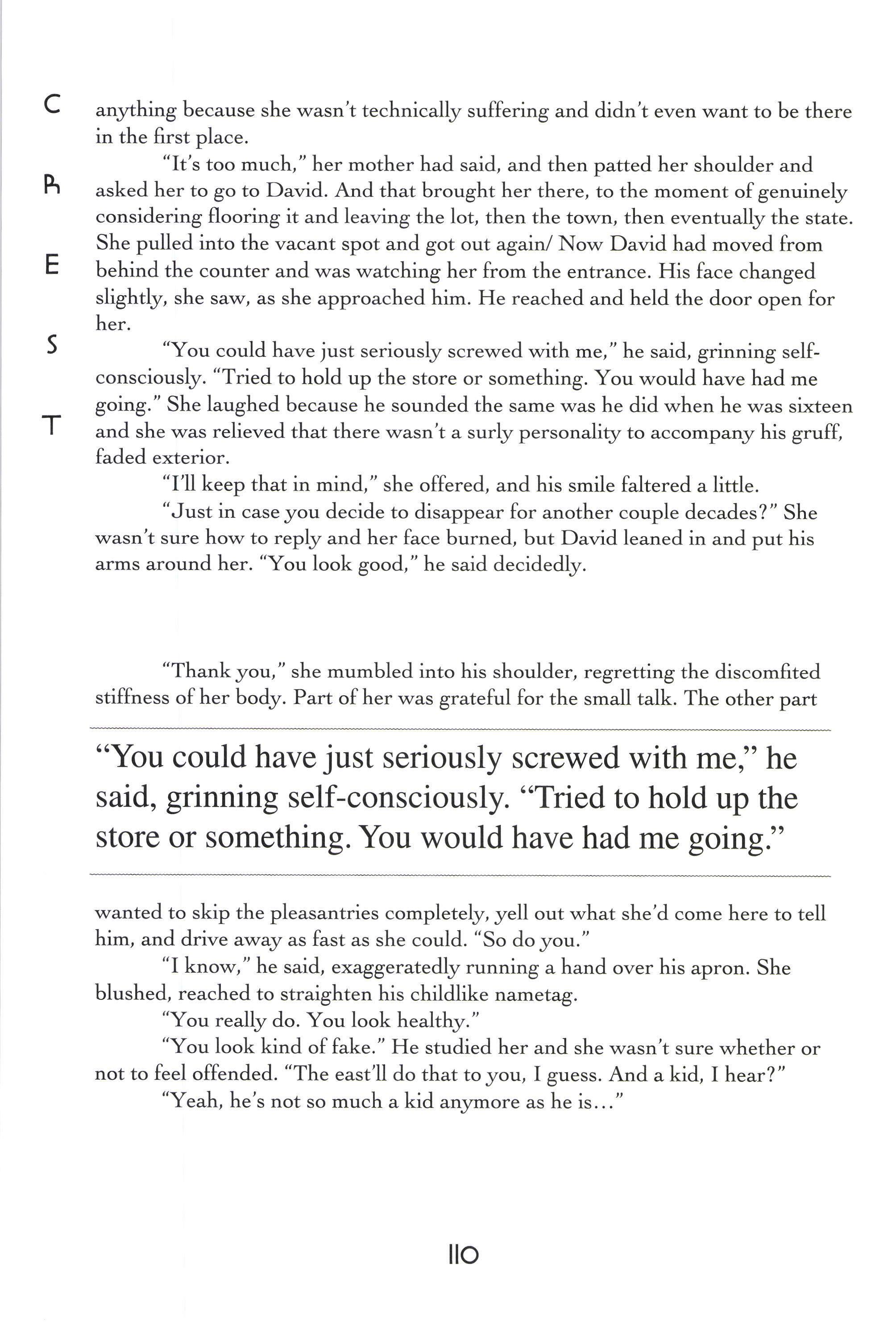
"I'll keep that in mind," she offered, and his smile faltered a little.
"Just in case you decide to disappear for another couple decades?" She wasn't sure how to reply and her face burned, but David leaned in and put his arms around her. "You look good," he said decidedly.
"Thankyou," she mumbled into his shoulder, regretting the discomflted stiffness of her body. Part of her was grateful for the small talk. The other part
"You could have just seriously screwed with me," he said, grinning self-consciously. "Tried to hold up the store or something. You would have had me going."
wanted to skip the pleasantries completely, yell out what she'd come here to tell him, and drive away as fast as she could. "So do you."
"I know," he said, exaggeratedly running a hand over his apron. She blushed, reached to straighten his childlike nametag.
"You really do. You look healthy."
"You look kind of fake." He studied her and she wasn't sure whether or not to feel offended. "The east'll do that to you, I guess. And a kid, I hear?"
"Yeah, he's not so much a kid anJ,.rnore as he is..."
c h E
5 T llo
"Seventeen?" She smiled, nodding. 'Yeah. Sean? Kid gets a surprising amount of attention from Mom and Dad considering they've never met him."
She paled and reached aggressively for her wedding band, twisting it around her finger again and again-a nervous habit she'd had forever, except it used to be an ornate plastic ring from a cereal box, and then a hideous gold monstrosiqr from Peter, her high school boyfriend.
"I've been busy. W'ork is insane."
"And gratifJ.irg, apparently. That's some caryou've got out there. I bet you it cost more than my house." She couldn't decide whether to laugh or not, and by the time she decided that she probably should, an awkwardly long period of time had passed, so she didn't, and then he looked sort of offended. "So, " he said bluntly. "Anna's dead, huh?" She felt her breath catch in her throat and she nodded slowly.

"You know."
"Of course I know. I know everyrthing that happens around here."
"Okay." The relief she felt over not having to play Grim Reaper was almost delightful.
"I kind of had a bet going with myself about whether or not you would show. If I did, I had to buy myself a beer."
"And if I didn't?"
"I had to buy myself a beer," he deadpanned, shrugging. She breathed something that sounded Iike a laugh. "So you're here."
"I'm here," she whispered. He stepped back behind the counter, untied his apron.
"Long overdue."
"Yeah."
"Well," he slowly unpinned his nametag and stuck it on the bulletin board behind him. "It was about time for a reunion."
L o o 6 ilt
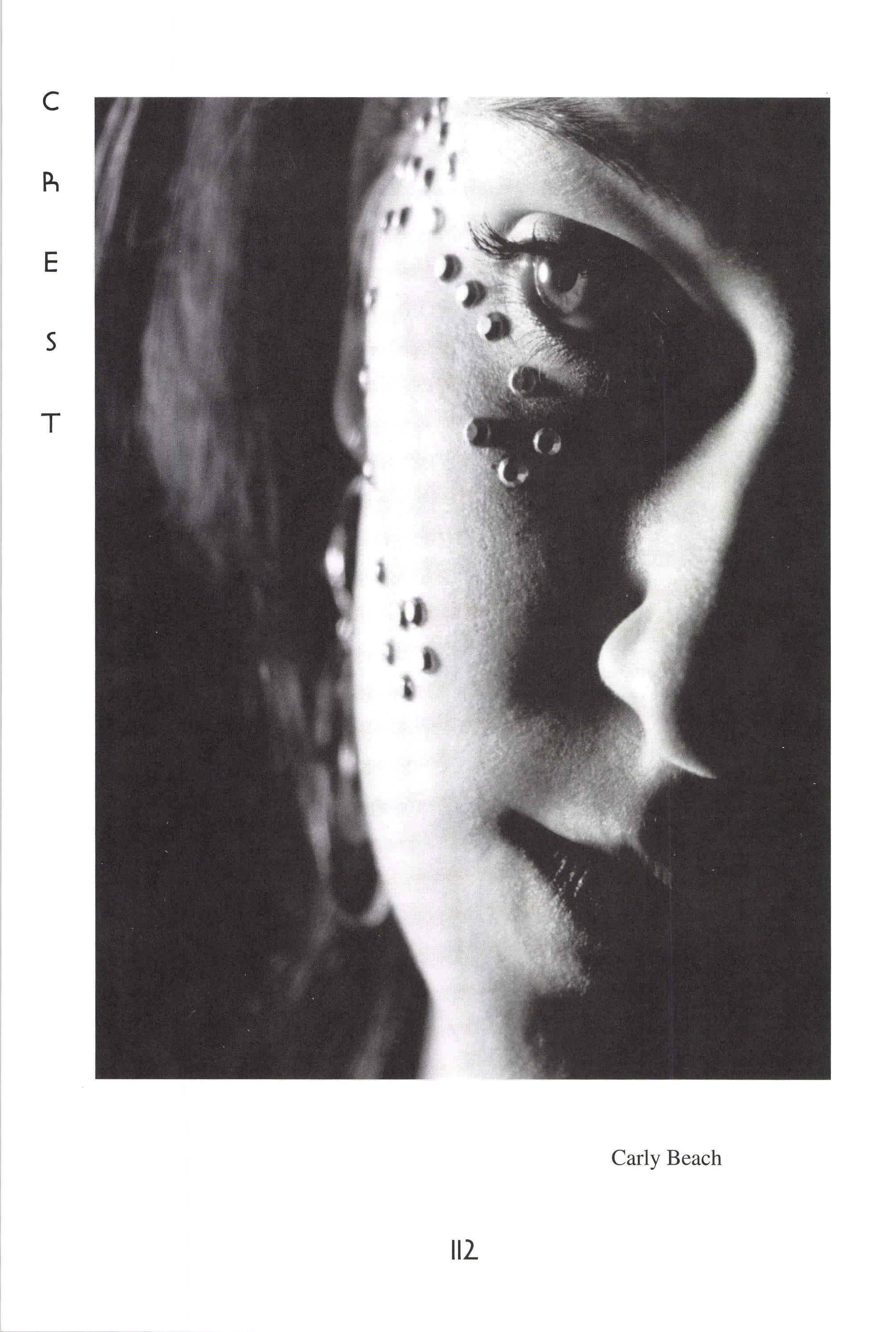
C H E s T
ilz
Carly Beach
Alexis Sage
The Love Laws of fndia
In most vzorks of literature the author takes a stand on a particular issue, or seems to respond to a certain topic throughout the novel in hopes of enhancing the readers' understanding of the novel. Critic Roland Barthes has said, "Literature is the question minus the answer." This idea is wholly articulated in Arundhati Roy's The God of Small Things. Throughout the novel, Roy answers how Love Laws affect relationships and influence how people act in their relationship. Roy states, "That it all began in the days when the [,ove Laws were made. The Laws that lay down who should be loved, and how. And how much." (p53) She suggests that the longstanding tradition of the love laws affects many people. There are several examples all through the book including relationships that were forced, destroyed, or were not permitted because of the Love Laws of India. Roy illustrates the influence that these laws can play. Some of these examples include the relationships between Pappachi and Mammachi, Ammu and Baba, Ammu and Velutha, as well as the union between Rahel and Estha. All of these relationships answer the question, how do love laws affect relationships? Each answer contributes to the central meaning of the work, that love is constrained and overpowered by the love laws of socieqr. Answering this question allows the reader to further understand the power that love laws can
possess
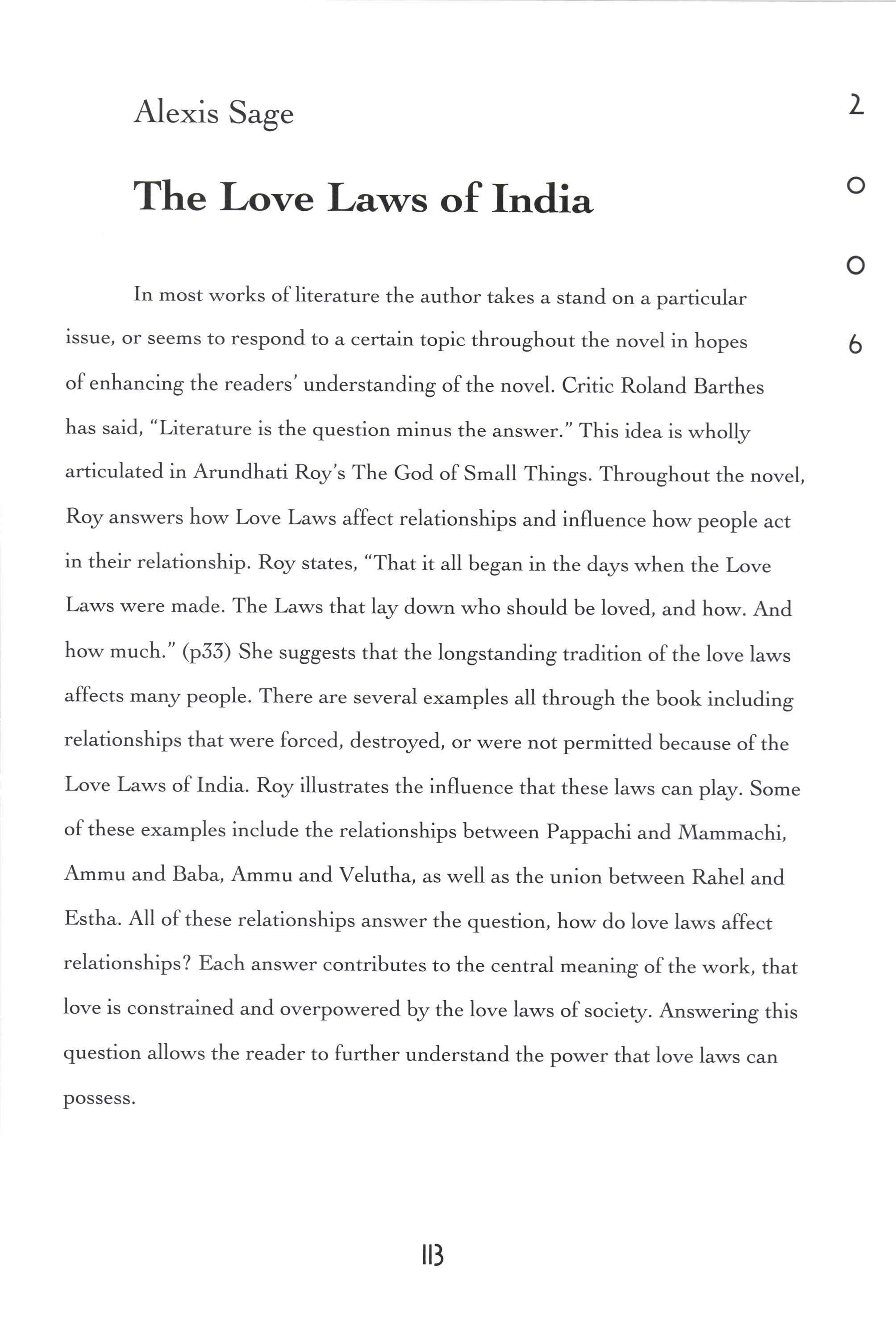
L o o 6
il]
The relationship between Mammachi and Pappachi was permitted by the love laws, but also strictly governed by them. Pappachi was an Imperial
B Entomologist and wasgreatly disappointed when a moth he discovered was not named after him. As a result, he was very resentful, and experienced "black E moods and sudden bouts of temper" (pa8). Mammachi was the recipient of most
S of these angry outbursts and "every night he beat her with a brass flower vase" $a7). After Chacko, their son, told Pappachi to never beat Mammachi again, he
T never spoke to nor touched Mammachi once more. Mammachi and Pappachi did not seem to feel any love for one another at all, although they remained by each other's side until Pappachi's death. Mammachi remained loyal to her husband only because of the eternal bond of the love laws. If she chose to get a divorce she would ruin her family's name, and thus was forced to remain in an unhealthy relationship.
At Pappachi's funeral, "Ammu told the twins that Mammachi was cr1nng more because she was used to him than because she loved him" (p 49). Roy shows that even though their relationship was not based on love they remain together because their fate was sealed by the law. Another example Roy uses to illustrate how Iove laws affect relationships is the marriage of Ammu and Baba. Pappachi did not have enough money to raise a suitable dowry for Ammu, and consequently no proposals were offered to her. The Love laws greatly affected Ammu and placed a lot of pressure on her to find a husband. Ammu became desperate, and while visiting her distant aunt in Calcutta, she began dating a man named Baba. Ammu realized that she did not
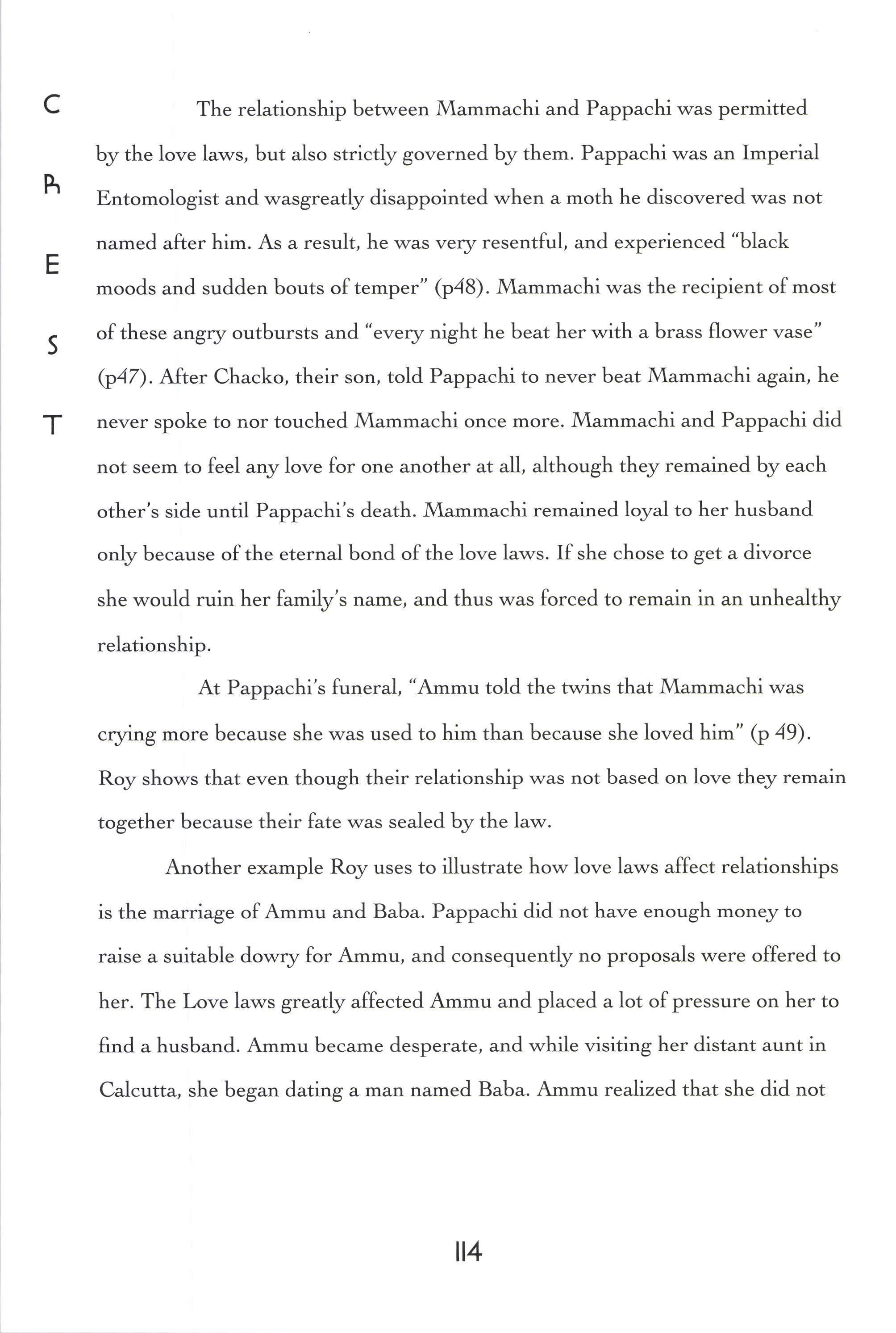
C
t4
feel true love for Baba, but weighed the pros and cons, and decided to many him. Ammu uses love as an escape "She thought that an;rthing, anyone at all, would be better than returning to ,\remenem" (p58). Love laws seem to erase what the true meaning of love and marriage are. Baba became an alcoholic who beat her and their trvin children and was willing to allow his boss to treat Ammu like a prostitute. Unlike Mammachi, Ammu chose to get a divorce. Both choices seem to lead to a lose-lose situation, because Amrnu also had to suffer consequences. Ammu was able to get out of a dangerous relationship, but because she chose to break the traditional love laws of India, she became marked for life, forever maintaining the dishonoring stain of divorce. Ammu realized that "She had one chance. She made a mistake. She married the wrong man" (pg8). She was now a "damned woman" @a0. The power of the love laws forced Ammu into a reckless relationship, and punished her when she broke free from her abusive husband. In addition, the relationship between Ammu and Velutha further answers Roy's question regarding the affects of Iove laws and their consequences. Their relationshiP was different from the previous ones in that it was built from true love. They knew very well that their relationship was not permitted by the love laws nor accepted in socieqr; Ammu being a Touchable and Velutha an Untouchable. In spite of this, they continued to meet each at the History House under the cover of night. Roy uses the s;rmbol of the History House to further illuminate the control that the laws can hold. The History House represents a place where you can love whomever you want, without the past or laws to interfere. "Where dreams are captured and re-dreamed... Swaddled in silence" (p2e0).
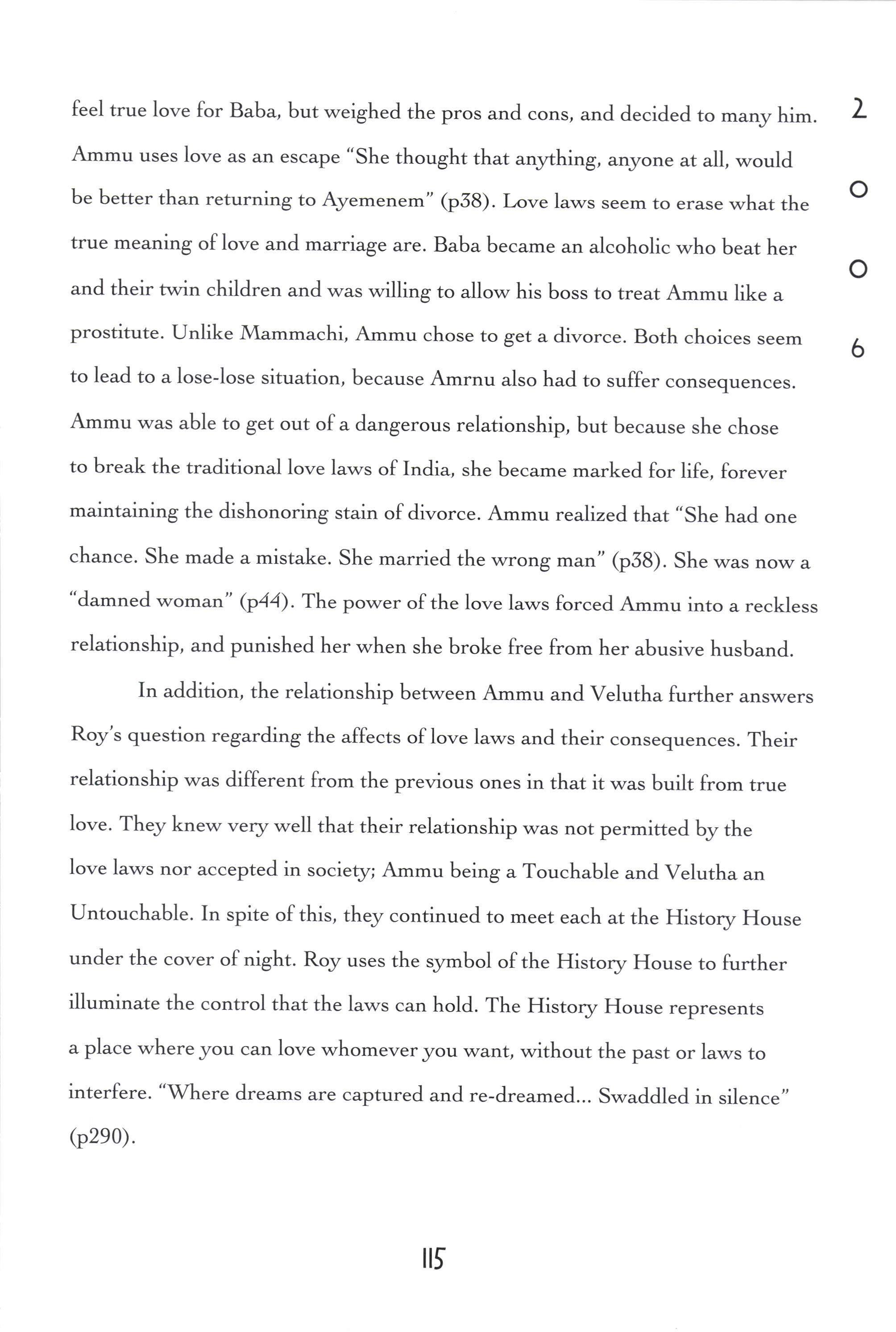
L o o 6 il5
Unfortunately, the History House is the only place where their love is acceptable. When other members of the town discovered their secret love affair, the consequences of the broken laws immediately ensued. Baby Kochamma, Ammu's aunt, lied to the police officers and said that Velutha had forced himself on Ammu, hoping that this lie would save the family from a ruined reputation. She also coerced her nephew into lying to the police officer, while holding the twins responsible for the whole situation. Baby Kochamma was willing to lie and manipulate others in hopes of saving herself and family from the consequences of breaching the Love Laws. This untruth ultimately led to the rnurder of Velutha. Roy uses this example to show how commanding the Love Laws are, even prevailing over the power of true love. Follorwing this incident, Ammu and the twins were separated from the family at the funeral, Estha had to be returned to Baba, and Ammu and Rahel were forced to leave the Ayemenen house. All of these unfortunate events began "in the days when the Love Laws were made. The laws that lay down who should be love, and how" (p55). Roy shows that despite this rigid system, Iove can be experienced.
The severe repercussions of Ammu and Velutha's relationship also affected the special bond between Estha and Rahel, Ammu's twins. They "thought of themselves as me," and had the abilities to know each other's thoughts and feelings. Both twins were emotionally damaged by Sophie Mol's, Velutha's, and Ammu's death. Afterwards, they were then separated from each other for twen$r three years. When the twins were reunited at age 5L, the age that Arnmu died, the twins felts intense sorrow and desperation for one another.
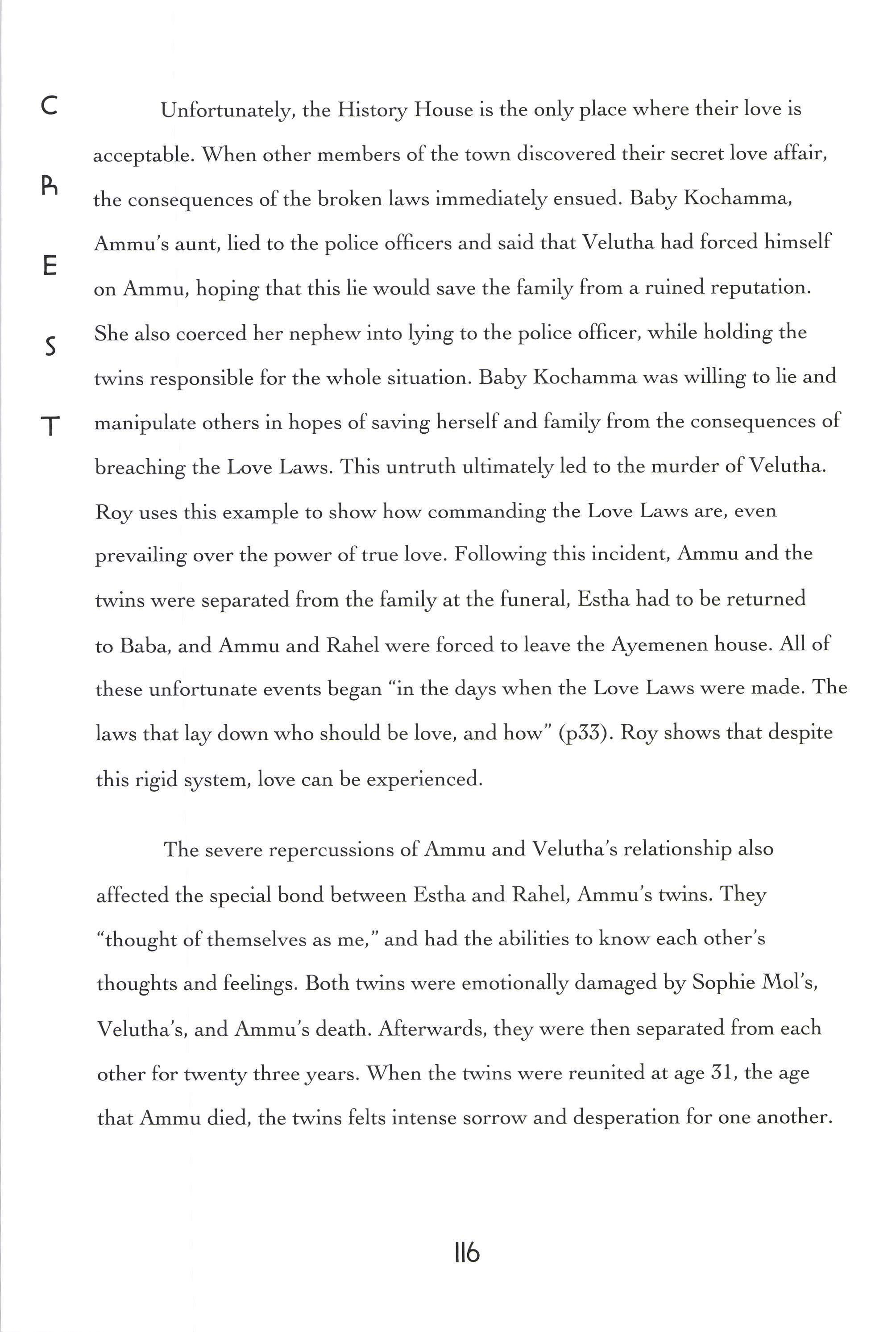
c h E s
il6
T
That night they broke the very taboo law against incest. It was not a conscious
choice of the twins, "orly that what they shared that night was not happiness, but hideous grief." (p5l 1) Rahel and Estha did not know how to deal rvith their
unhappiness. Roy uses their incestuous friendship as a comparison to that of
Velutha and Ammu's relationship to demonstrate just how extreme the [,ove Laws are. one relationship of true love is judged with the same scorn in the
Indian societ;r as an act of incest. Through all of these instances, Roy answers the question rvithout ever hawing to formally mention it. She uses the affects of Love Laws and their consequences as a central theme of the novel to create a d;rnamic and intricate plot. All of the different examples of relationships help the reader understand the essential idea, that Love Laws are extremely powerful and when broken can have extreme consequences.
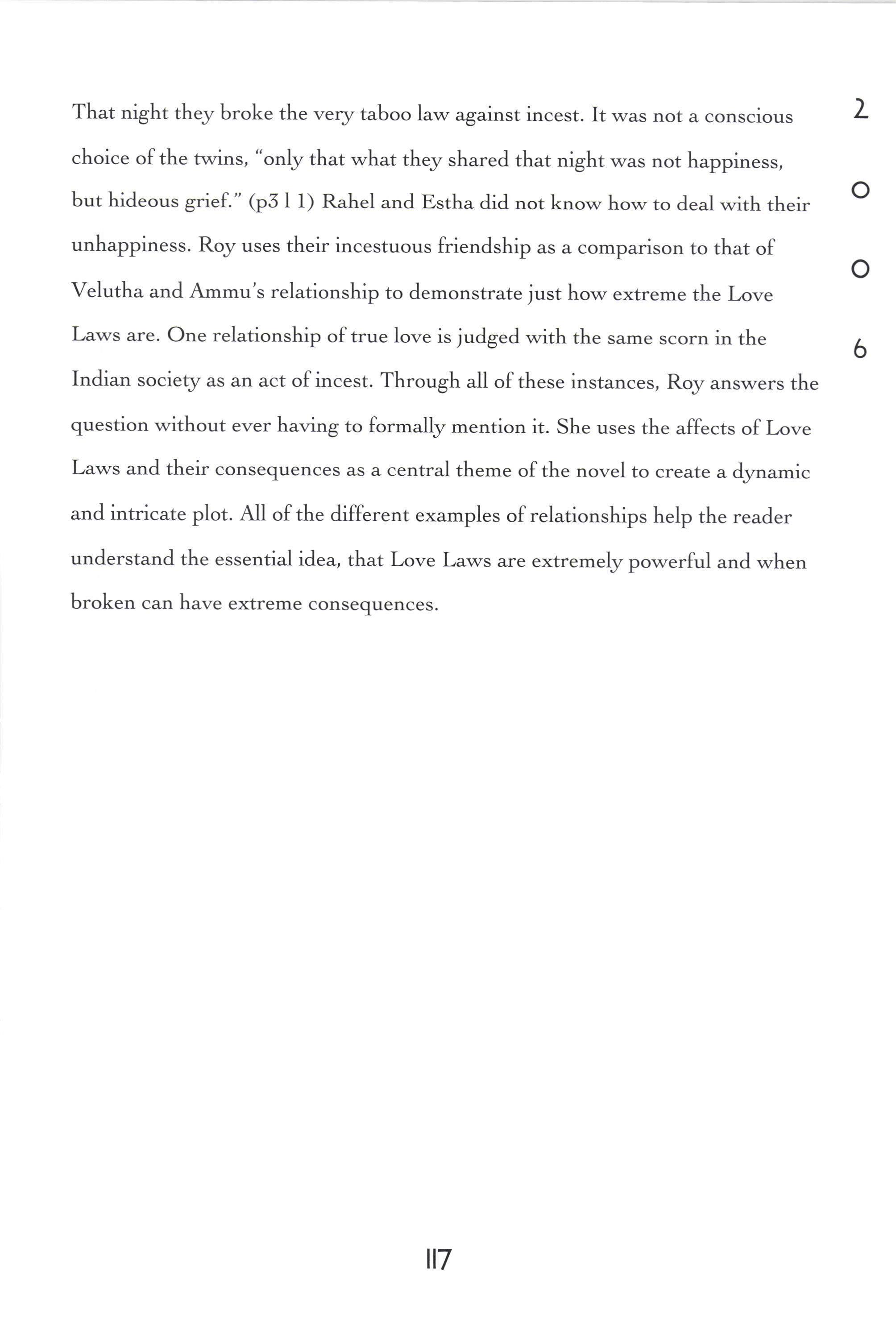
L
O
o
6
17
T
Rachel Johnson
a
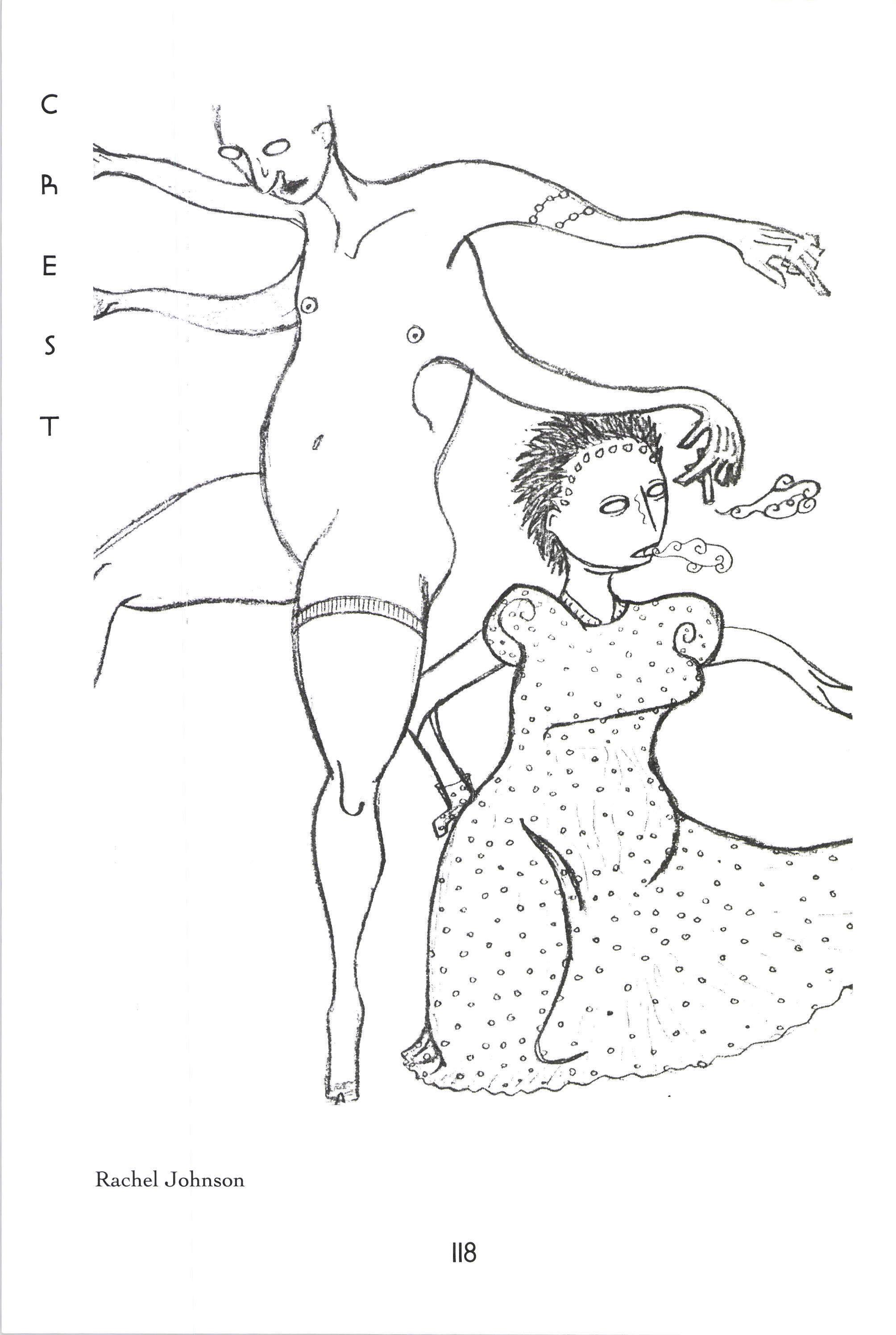
o
f oo o 0 o
o
o OO
o
o o o o o
oo (, b
o 0 o o ,b
o' i'. o a o.
o qo 0 o o 6 6 6
, 6 o 0
o o o s
o o
o of' QO o o CT
io C Q
oo o9 ilB
I ao c o o a. q
o o .t
a o o 5 G o a a
c h E !
o 5
oq o
(t co
A Discussion of The God of Small Things
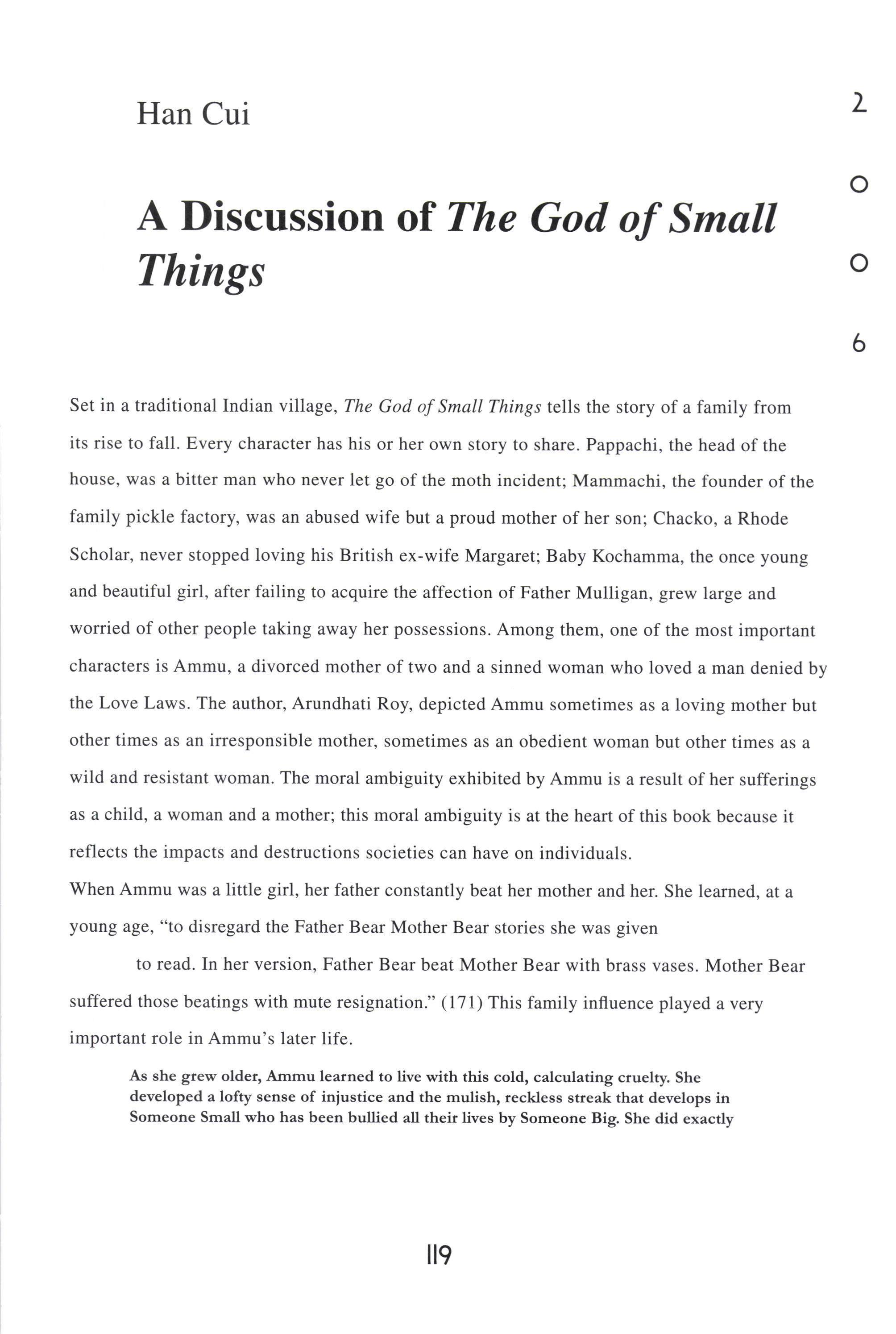
Set in a traditional Indian village, The God of Small Things tells the story of a family from its rise to fall. Every character has his or her own story to share. Pappachi, the head of the house, was a bitter man who never let go of the moth incident; Mammachi, the founder of the family pickle factory, was an abused wife but a proud mother of her son; Chacko, a Rhode Scholar, never stopped loving his British ex-wife Margaret; Baby Kochamma, the once young and beautiful girl, after failing to acquire the affection of Father Mulligan, grew large and worried of other people taking away her possessions. Among them, one of the most important characters is Ammu, a divorced mother of two and a sinned woman who loved a man denied by the Love Laws. The author, Arundhati Roy, depicted Ammu sometimes as a loving mother but other times as an irresponsible mother, sometimes as an obedient woman but other times as a wild and resistant woman. The moral ambiguity exhibited by Ammu is a result of her sufferings as a child, a woman and a mother; this moral ambiguity is at the heart of this book because it reflects the impacts and destructions societies can have on individuals.
When Ammu was a little girl, her father constantly beat her mother and her. She learned, at a young age, "to disregard the Father Bear Mother Bear stories she was given to read. In her version, Father Bear beat Mother Bear with brass vases. Mother Bear suffered those beatings with mute resignation." (171) This family influence played a very important role in Ammu's later life.
As she grew older, Ammu learned to live with this cold, calcularing cruelty. She developed a lofty sense of iniustice and the mulish, reckless streak that develops in Someone Small who has been butlied all their lives by Someone Big. She did exactly
Han Cui
L o o 6
il9
nothing to avoid quarrels and confrontations. In fact, it could be argued that she sought them out, perhaps even enjoyed t}nern. (172-3)
TIndeed, her abusive childhood explains why she was so desperate to escape "from Ayemenem and the clutches of her ill-tempered father and bitter, long - suffering mother." (38) Thus, when she encountered her future husband in Calcutta, she "didn't pretend to be in love with him. She just weighed the odds and accepted. She thought anything, anyone at all, would be better than returning to Ayemenem." (39) However, Ammu's marriage did not make her life better but worsened it. Her husband was "a full-blown alcoholic." (40) When Ammu gave birth to Estha and Rahel, her husband "stretched out on a hard bench in the hospital corridor, was drunk." (40) When her husband violently abused her and then badgered her to save his career and do what his boss, Mr. Hollick, suggested, 'Ammu left her husband and returned, unwelcomed, to her parents in Ayemenem. To everything that she had fled from only a few years ago. Except that now she had two young children. And no more dreams." (42) Ammu was too passionate a person to be restrained by the rules of the family and the traditions of the society. "Within the first few months of her return to her parents' home, Ammu quickly learned to recognize and despise the ugly face of sympathy." (43) She would rather spend "hours on the river bank with her little plastic transistor shaped like a tangerine." (43)
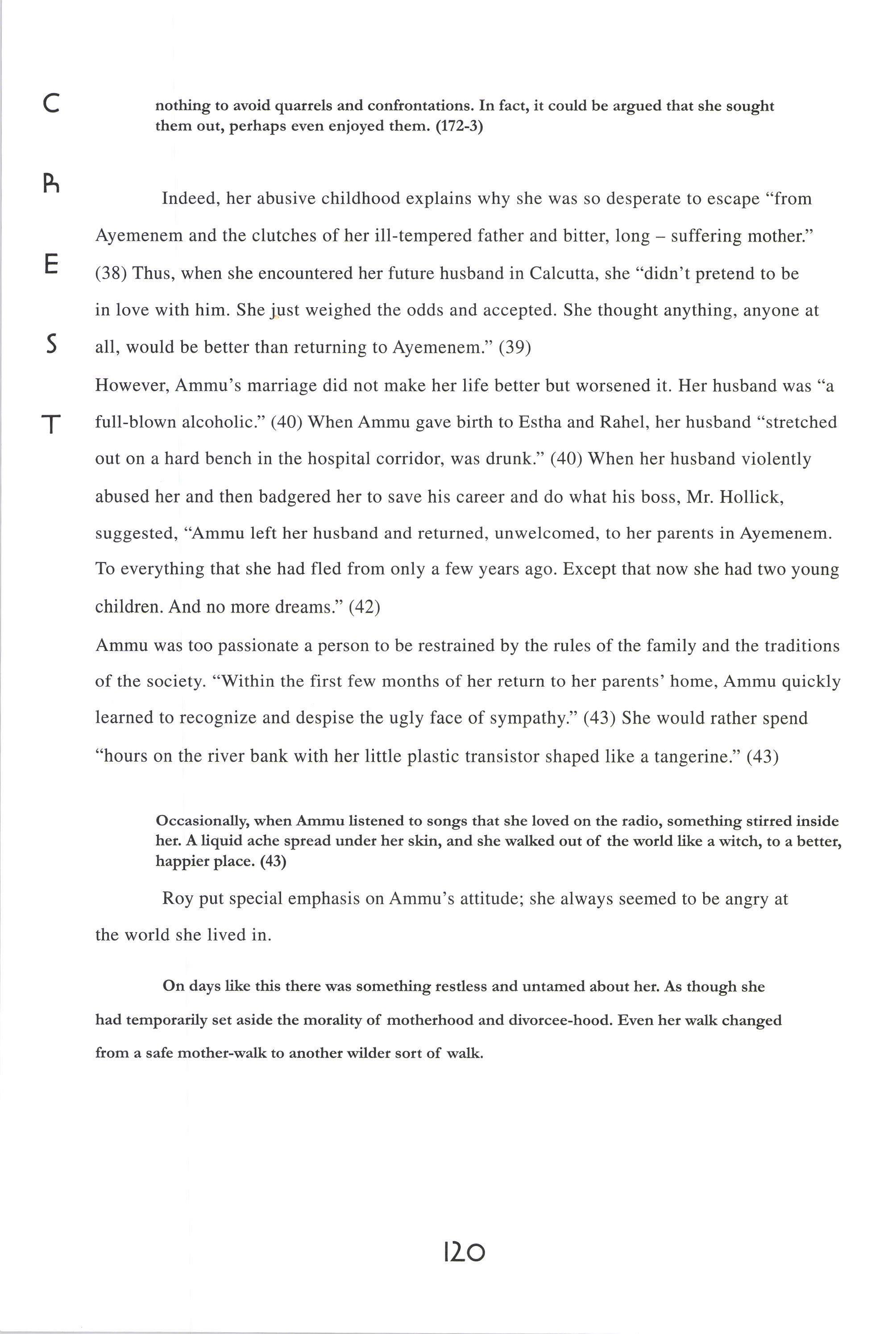
Occasionally, when Ammu listened to songs that she loved on the radio, something stirred inside her. A liquid ache spread under her skin, and she walked out of the wodd like a witch, to a bettet, happierplace. (43)
Roy put special emphasis on Ammu's attitude; she always seemed to be angry at the world she lived in.
On days like this there was something restless and untamed about her. As though she had temporarily set aside the morality of motherhood and divorcee-hood. Even her walk changed from a safe mother-walk to anothet wilder sort of walk.
C h E s
lzo
Ammu's resentful attitude toward the rules of society made her even more "dangerous" and more excluded by other people. Sometimes Ammu found consolation in Estha and Rahel; but other times, she had to hide her pain from her little ones to protect them. 'Ammu loved her children (of course), but their willingness to love people who didn't really love them exasperated her and sometimes made her want to hurt themjust as an education, a protection." (42) Sometimes she had to teach them things that she held against. When Margaret Kochamma and Sophie Mol arrived, she had to make her children to participate in the "Indo-British Behavior Competition," (139) while she felt "reluctant to return to" (3 12) the play, "where the conversation circled like a moth around the white child and her mother as though they were the only source of light. Ammu felt that she would die, wither and die, if she heard another word." (312) When Ammu's affair with Velutha was discovered, her family locked her away. Ammu was outraged "at what was happening to herat being locked away like the family lunatic in a medieval household." (239) Her rage and frustration exploded when her twins "came to her bedroom door and asked her why she had been locked up." (239) That was when she said "the careless words that she hadn't meant. 'Because of youl'Ammu had screamed. 'If it wasn't for you I wouldn't be here! None of this would have happened! I wouldn't be herel I would have been free! I should have dumped you in an orphanage the day you were bornt. You're the millstones round my neck!"' (240) Those were the words that she said to her twins, the words that made the twins think that their mother did not love them anymore, the words that made them flee from home on the boat across the river that Sophie Mol drowned, the words that sent them to the History House where they witnessed the beating of their and their mother's love, Velutha. The History House was an allusion to the Heart of Darkness; Roy portend used this literary device to portend calamity.
Ammu suffered throughout her life as a daughter, a woman, a wife and a mother. She was deprived of her true love, Velutha, and one of her twins, Estha. She was banned from true

L o o 6 lzt
happiness by the love laws, by the male dominance, by her own family and by the society. Ammu died young and alone at the age of thirty-one. During her short and suffering life, she resisted to the pressures imposed on her by the external world, and like Velutha, she hung on to the small things in life, the small hopes that "Naaley/ Tomorrow" (321) would be better. Through characters such as Ammu, the author Roy portrayed how people behave ambiguously in an intolerable society. Roy said in her interview with David Barsamian that "The God of Smatl Things is a book where you connect the very smallest things to the very largest: whether it's the dent that a baby spider makes on the surface of water or the quality of the moonlight on a river or how history and politics intrude into your life, your house, your bedroom." (Packet 3) In poetic and figurative language and through uses of repetition and imagery, Roy told us a story of a young woman, who, though she was a small human being living in a chaotic world, she lived with hope and pursued big dreams.
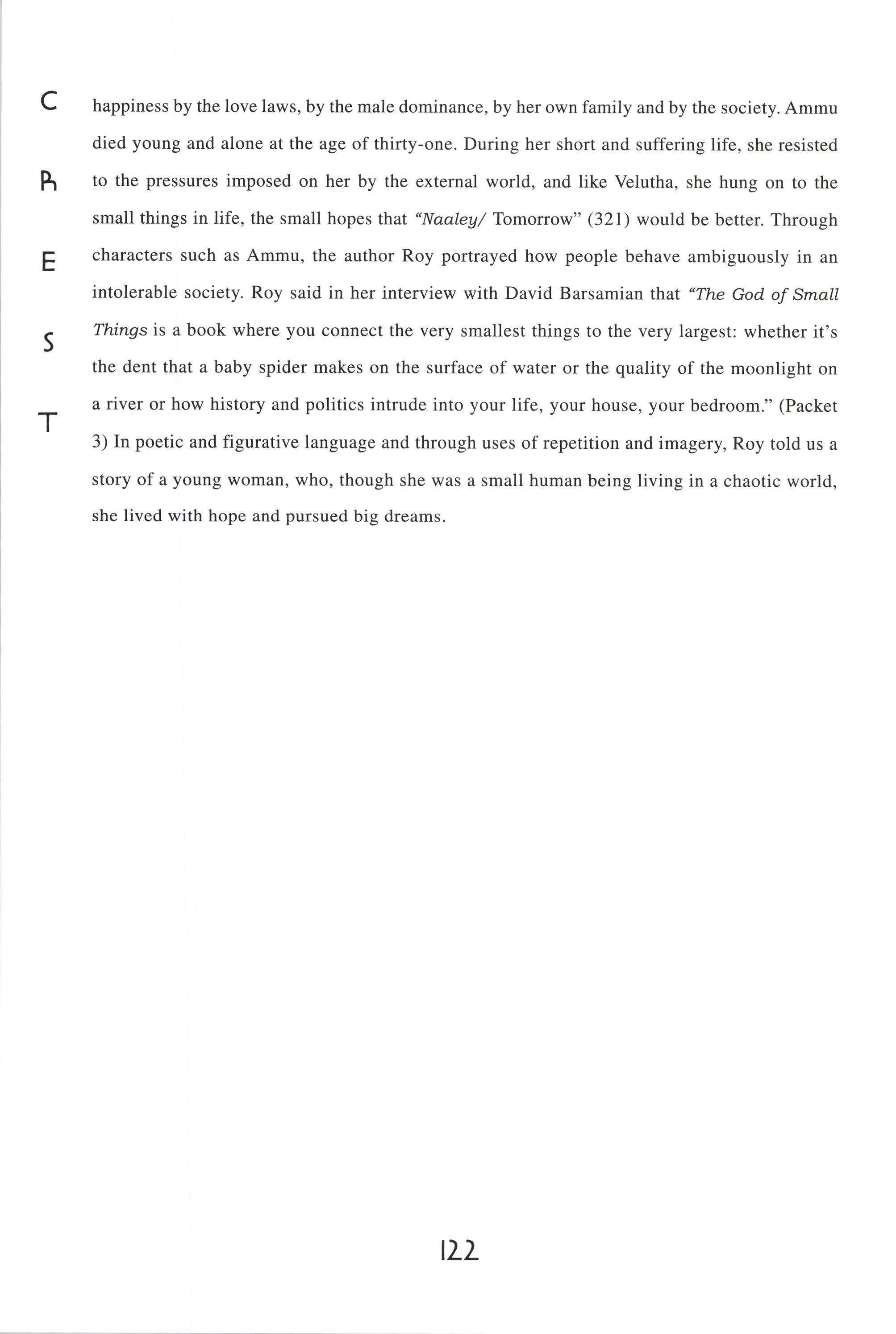
c h E
s T ILL
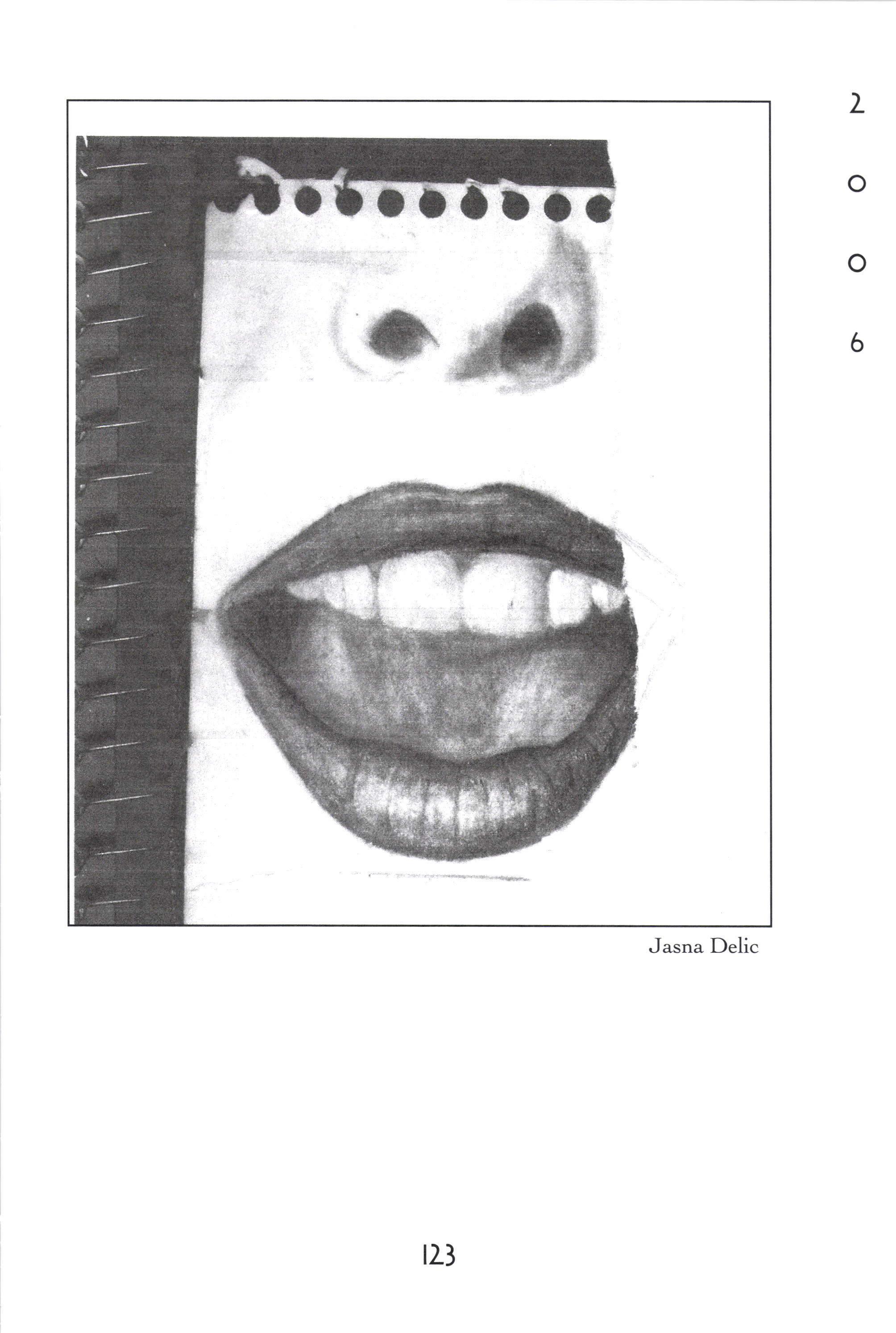
tirf i,,{j. ,i.
L o o 6
;t
tz3
Jasna Delic
Tom Re;molds-Ejzak
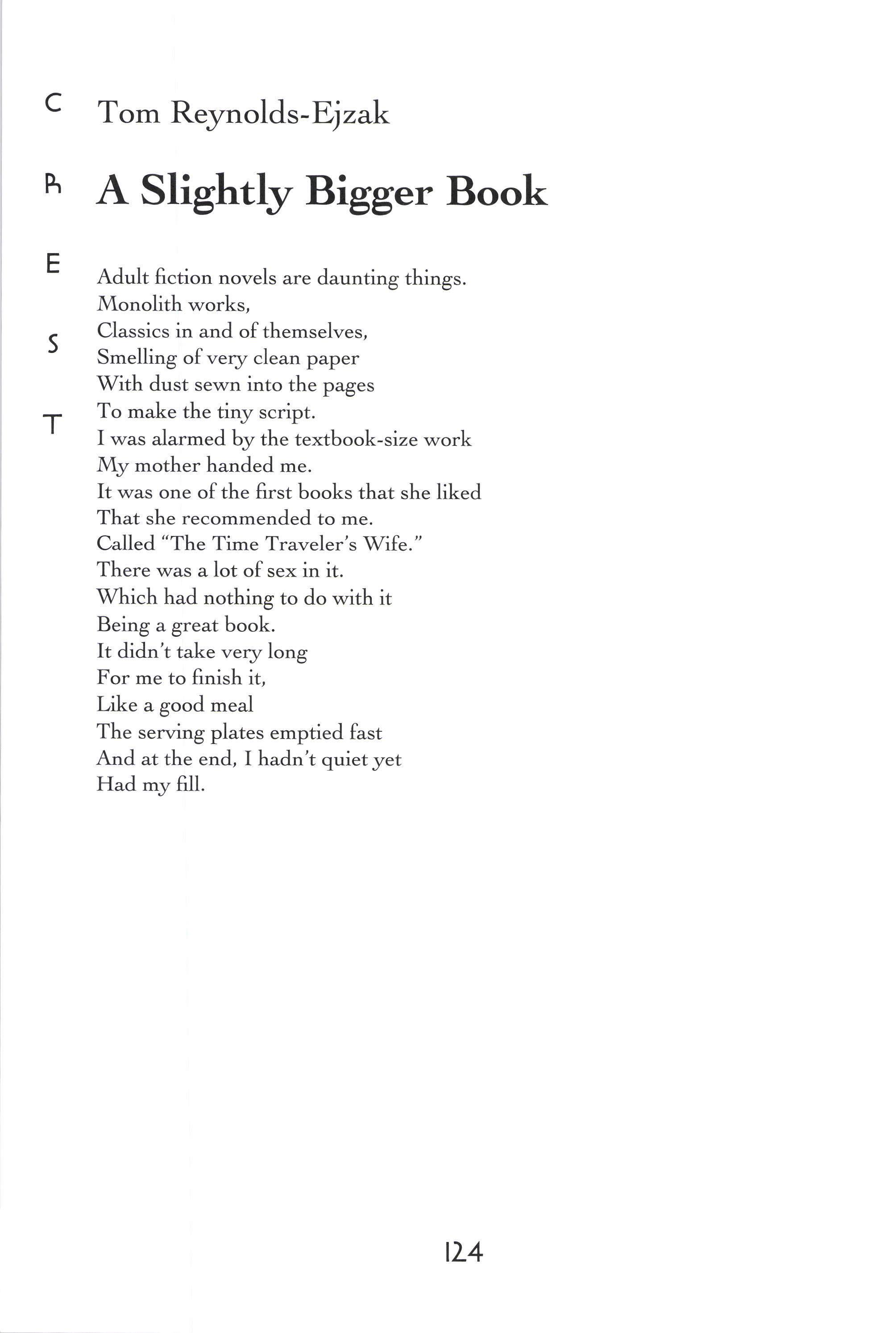
A Slightly Bigger Book
Adult fiction novels are daunting things. Monolith works, Classics in and of themselves, Smelling of very clean paper With dust sewn into the pages To make the tiny script. I was alarmed by the textbook'size work My mother handed me.
It was one of the first books that she liked That she recommended to me.
Ca]led "The Time Traveler's'Wife." There was a lot of sex in it. Which had nothing to do with it Being a great book. It didn't take very long For me to finish it, Like a good meal
The serving plates emptied fast And at the end, I hadn't quietyet Had my fiIl.
c h E s
T
tL4
Cracked
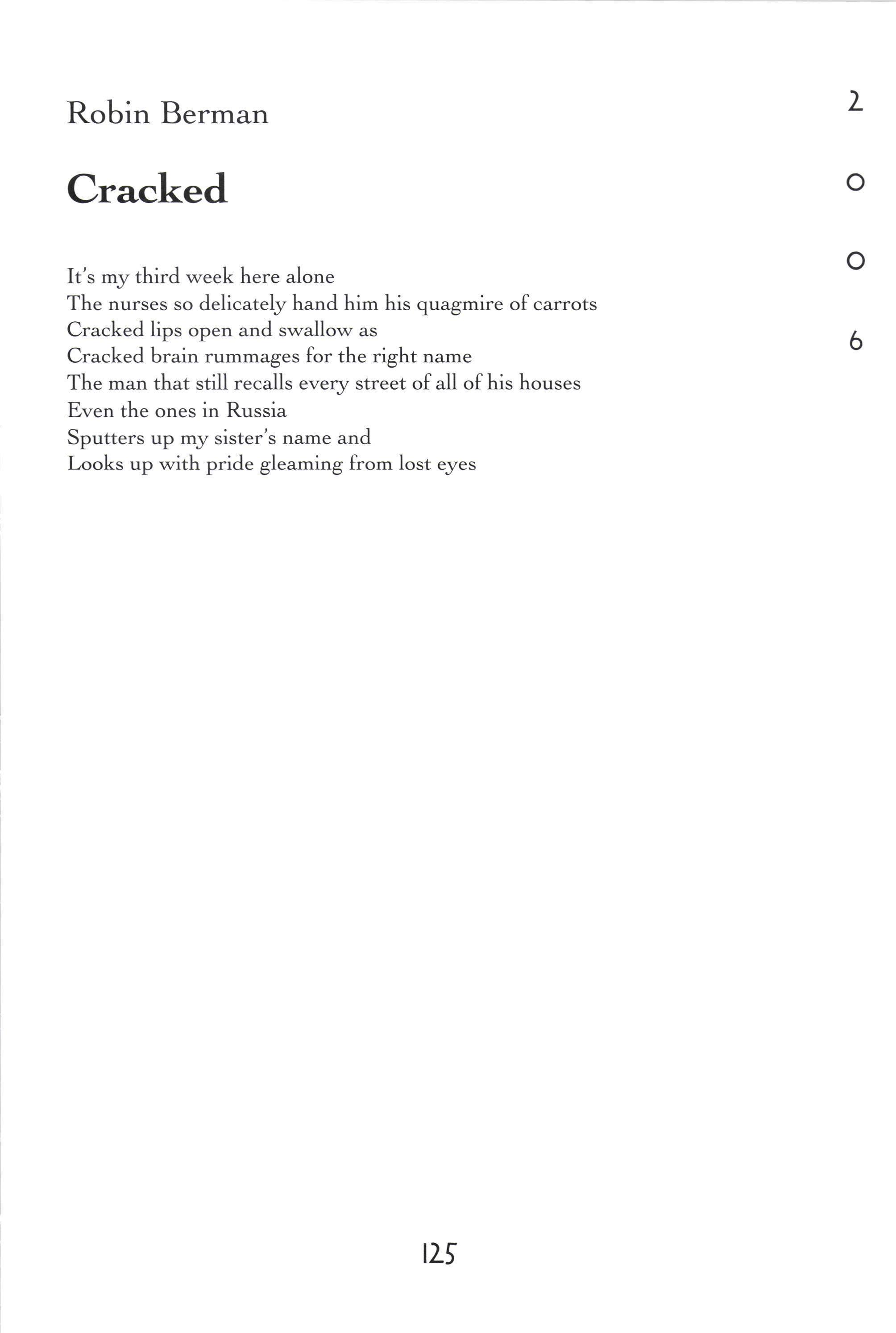
It's my third week here alone
The nurses so delicately hand him his quagmire of carrots
Cracked lips open and swallow as Cracked brain rummages for the right name The man that still recalls every street of all of his houses
Even the ones in Russia Sputters up my sister's name and Looks up with pride gleaming from lost eyes
Robin Berman
L o o 6 rz5
Jake Linne
Untitled
I sense the openness of the waves inside Pulling me closer to the space beyond The sea creatures projected along the highway billboards The video on the built in television screen The dolphins swimming in the lanes
TA hontrr of a horn mimics the whales spray 'Water splashes on my face of wiper fluid
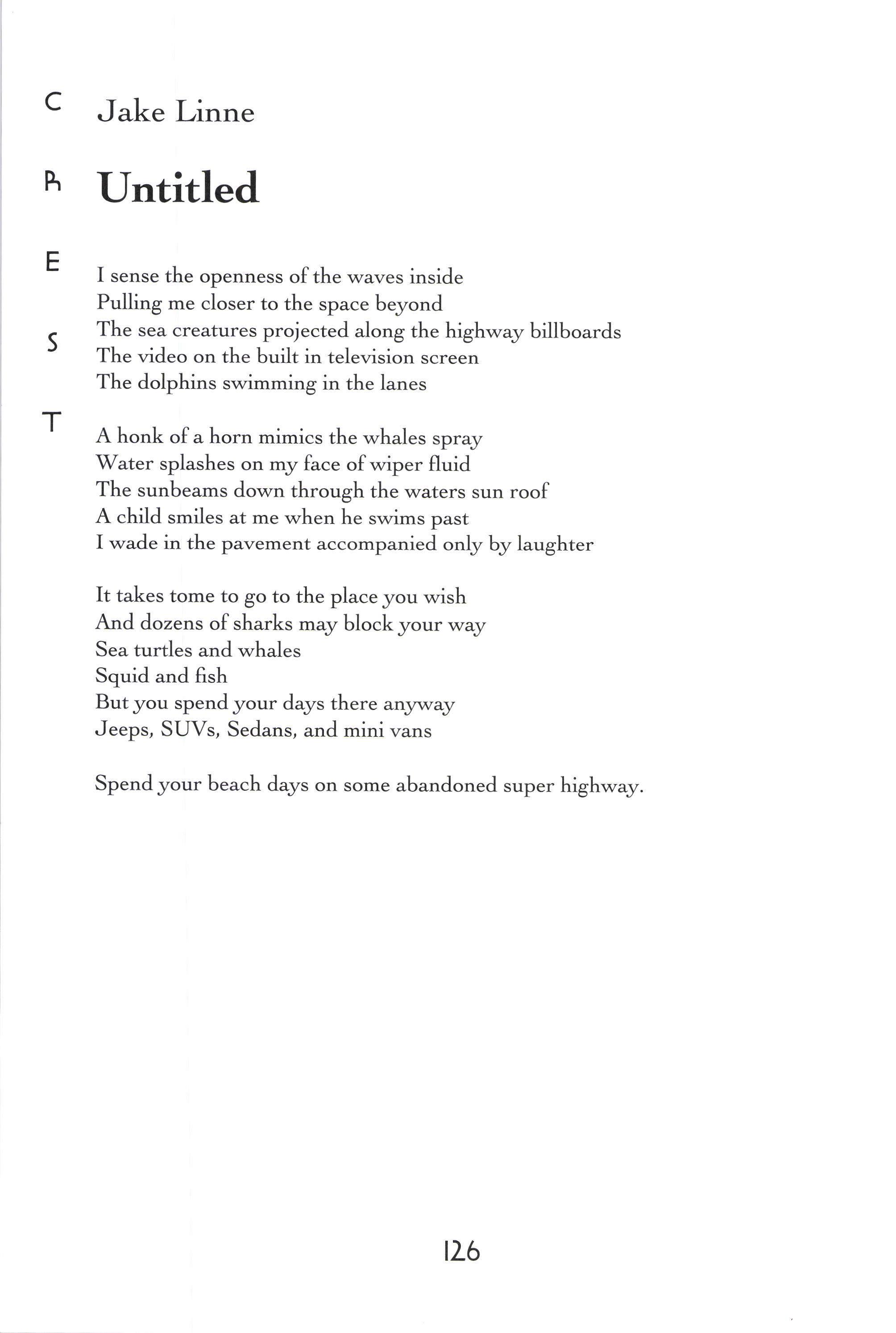
The sunbeams down through the waters sun roof A child smiles at me when he swims past I wade in the pavement accompanied only by laughter
It takes tome to go to the place you wish And dozens of sharks may blockyour way
Sea turtles and whales
Squid and fish
Butyou spendyour days there anyway Jeeps, SUVs, Sedans, and mini vans
Spendyour beach days on some abandoned super highway.
c h
E s
tL6
Alex Mufson
LDYNBLU
I see her every morning. Never her face, only her bumper. 'Without fail, her Mercury Grand Marquis LS falls into place in front of me each day. 'W'e turn right together onto Pershing, me going to work, her going to wherever someone with a Iicense plate that bares her soul goes at 7:45 in the morning.
I imagined her an old lady, with silver hair and frail bones. Skin almost see through but with eyes that would scare even the thirq,'-five-year-old Mexican man we pass every morning as he screams at his neighbor over a newspaper.
I figured she met her friends for coffee each morning at eight o'clock sharp at the local diner. I pictured her and the other ladies sipping coffee and complaining about their retired and bored husbands, bragging about their children. Calling the waitress prett;r-young-thing. I guessed that, despite her complaints, she only stayed an hour. Her retired and bored husband still needed to eat after all.
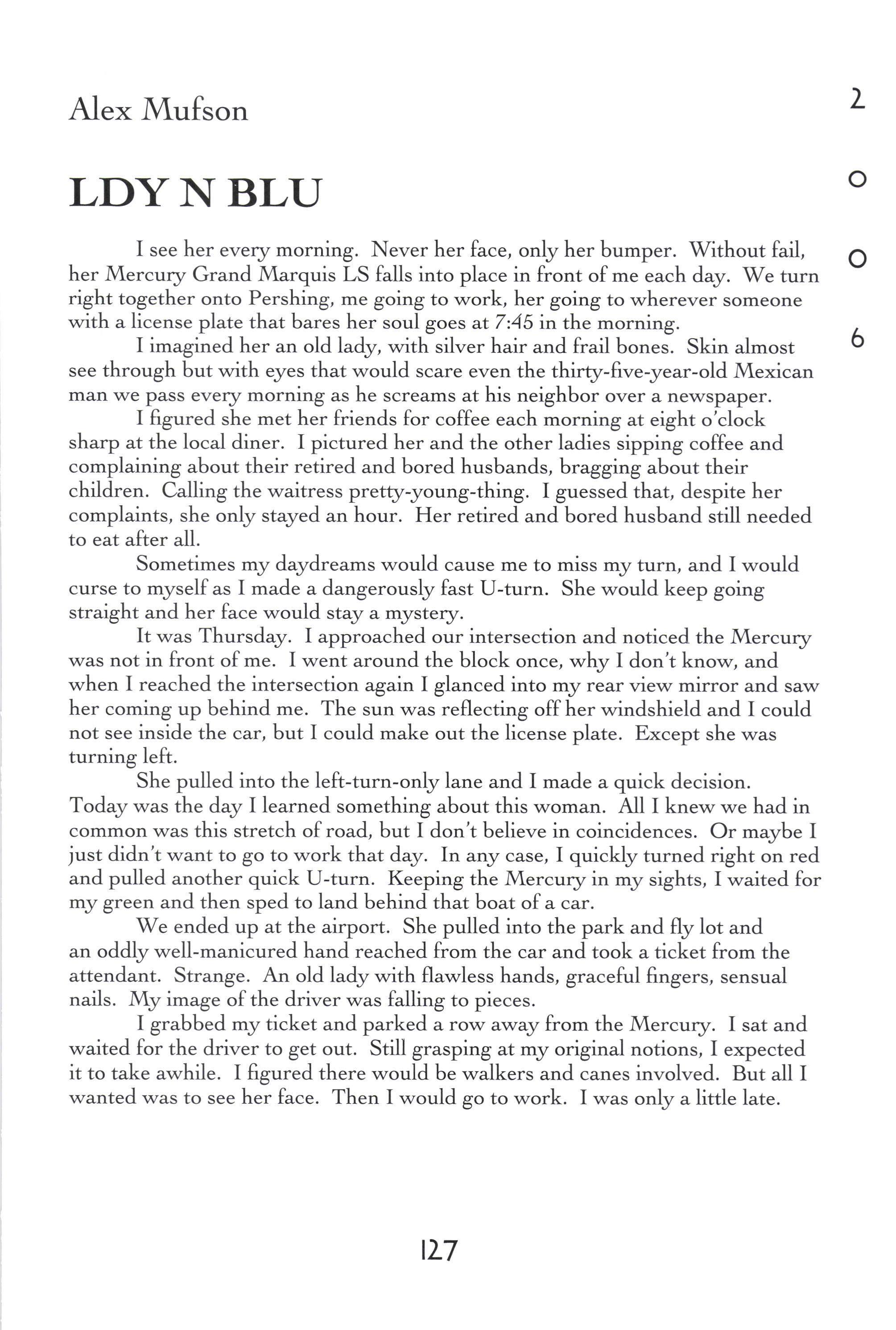
Sometimes my daydreams would cause me to miss my turn, and I would curse to myself as I made a dangerously fast U-turn. She would keep going straight and her face would stay a mystery.
It was Thursday. I approached our intersection and noticed the Mercury was not in front of me. I went around the block once, why I don't know, and when I reached the intersection again I glanced into my rear view mirror and saw her coming up behind me. The sun was reflecting off her windshield and I could not see inside the car, but I could make out the license plate. Except she was turning left.
She pulled into the left-turn-only lane and I made a quick decision. Today was the day I learned something about this woman. All I knew we had in common was this stretch of road, but I don't believe in coincidences. Or maybe I just didn't want to go to work that day. In any case, I quickly turned right on red and pulled another quick LJ-turn. Keeping the Mercury in my sights, I waited for my green and then sped to land behind that boat of a car.
We ended up at the airport. She pulled into the park and fly lot and an oddly well-manicured hand reached from the car and took a ticket from the attendant. Strange. An old lady with flawless hands, graceful fi.ngers, sensual nails. NlSr image of the driver was falling to pieces.
I grabbed my ticket and parked a row away from the Mercury. I sat and waited for the driver to get out. Still grasping at my original notions, I expected it to take awhile. I frgured there would be walkers and canes involved. But all I wanted was to see her face. Then I would go to work. I was only a little late.
L o o 6 tL7
Almost immediately she stepped out. Ayoung woman. She was elegant, yet with an air of defiant grunge. There were no streaks of silver to be found; yet her eyes pierced the air just as I had imagined. She wore a slightly oversized army jacket with pastel colored flowers stenciled on the back. Her hair was clipped carelessly back, but fell so perfectly that I couldn't have reconstructed it if I tried.
She walked quickly and confidently toward the entrance to the airport, and on a whim I followed. I don't know what I was planning to do at that point. I knew there would be securiqr involved and I had no ticket, but something made me follow. After all, she didn't have any bags either.
TWe walked into the airport and she approached the ticket counter. She pulled her ticket out of her frayed black purse and handed it to the man behind the desk. He smiled and mumbled something about Boston during Christmas time. She said something back about her famiJlr, and that no, she had no bags to check. Then the man pointed towards the securit;r line and said that once she got through there, gate Gl4 would be on her right. She thanked him and Ieft.
Suddenly he called next and I found myself at the counter. What's your cheapest one-'way flight, I asked, only remote\r sounding like a terrorist. Tampa, handing Florida. Forr;r-nine ninet;r-nine one-way. Next thing I knew I was him my credit card. Gate Kl7. I had never been to Tampa.
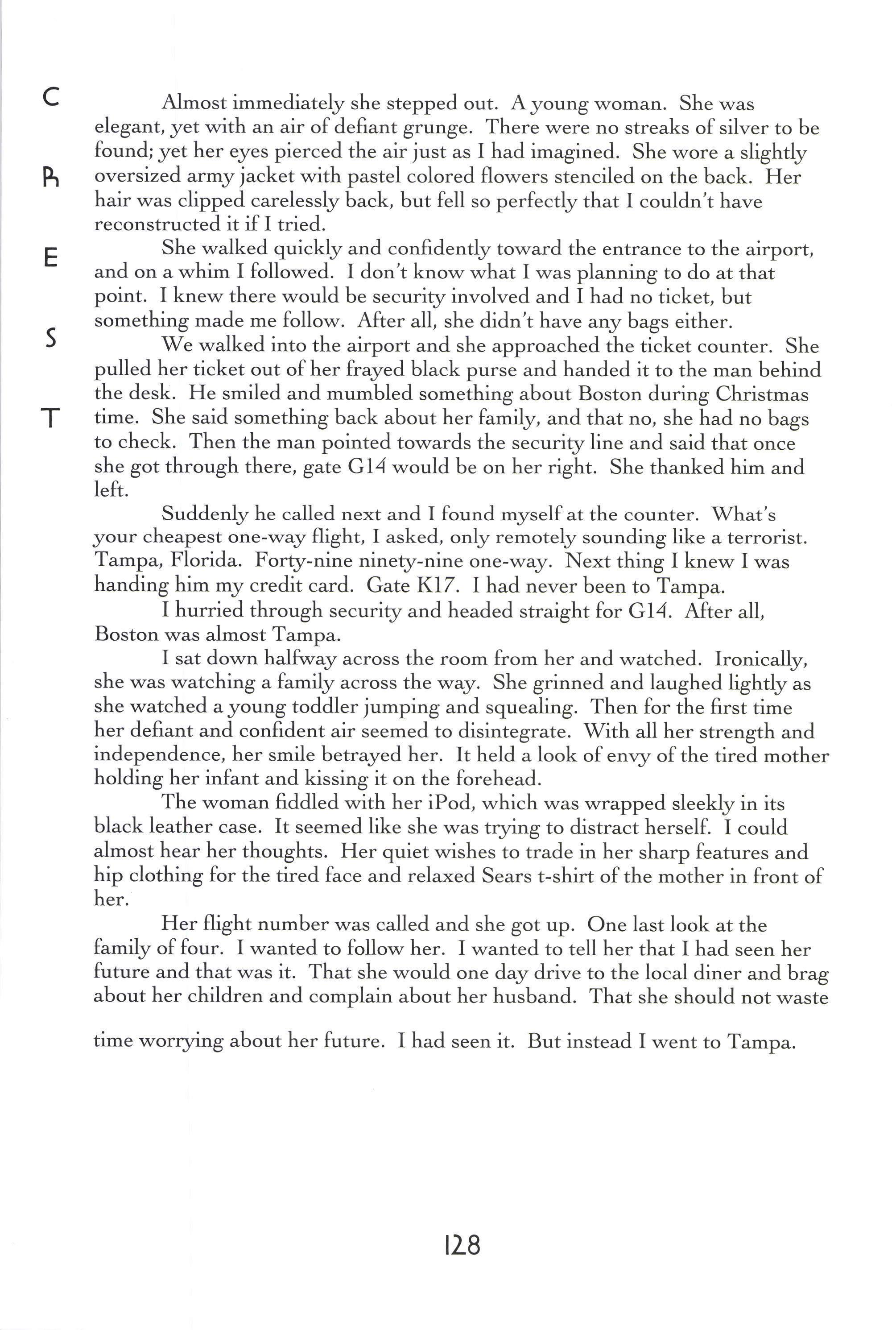
I hurried through securiqr and headed straight for Gl4. After all, Boston was almost Tampa.
I sat down halfway across the room from her and watched. Ironically, she was watching a family across the way. She grinned and laughed light$ as she watched ayoung toddler jumping and squealing. Then for the first time her defiant and confldent air seemed to disintegrate. With all her strength and independence, her smile betrayed her. It held a look of en'qr of the tired mother holding her infant and kissing it on the forehead.
The woman fiddled with her iPod, which was wrapped sleek\r in its black leather case. It seemed like she was trying to distract herself. I could almost hear her thoughts. Her quiet wishes to trade in her sharp features and hip clothing for the tired face and relaxed Sears t-shirt of the mother in front of her.
Her flight number was called and she got up. One last look at the family of four. I wanted to follow her. I wanted to tell her that I had seen her future and that was it. That she would one day drive to the local diner and brag about her children and complain about her husband. That she should not waste
time worrying about her future. I had seen it. But instead I went to Tampa.
c h E 5
IZB
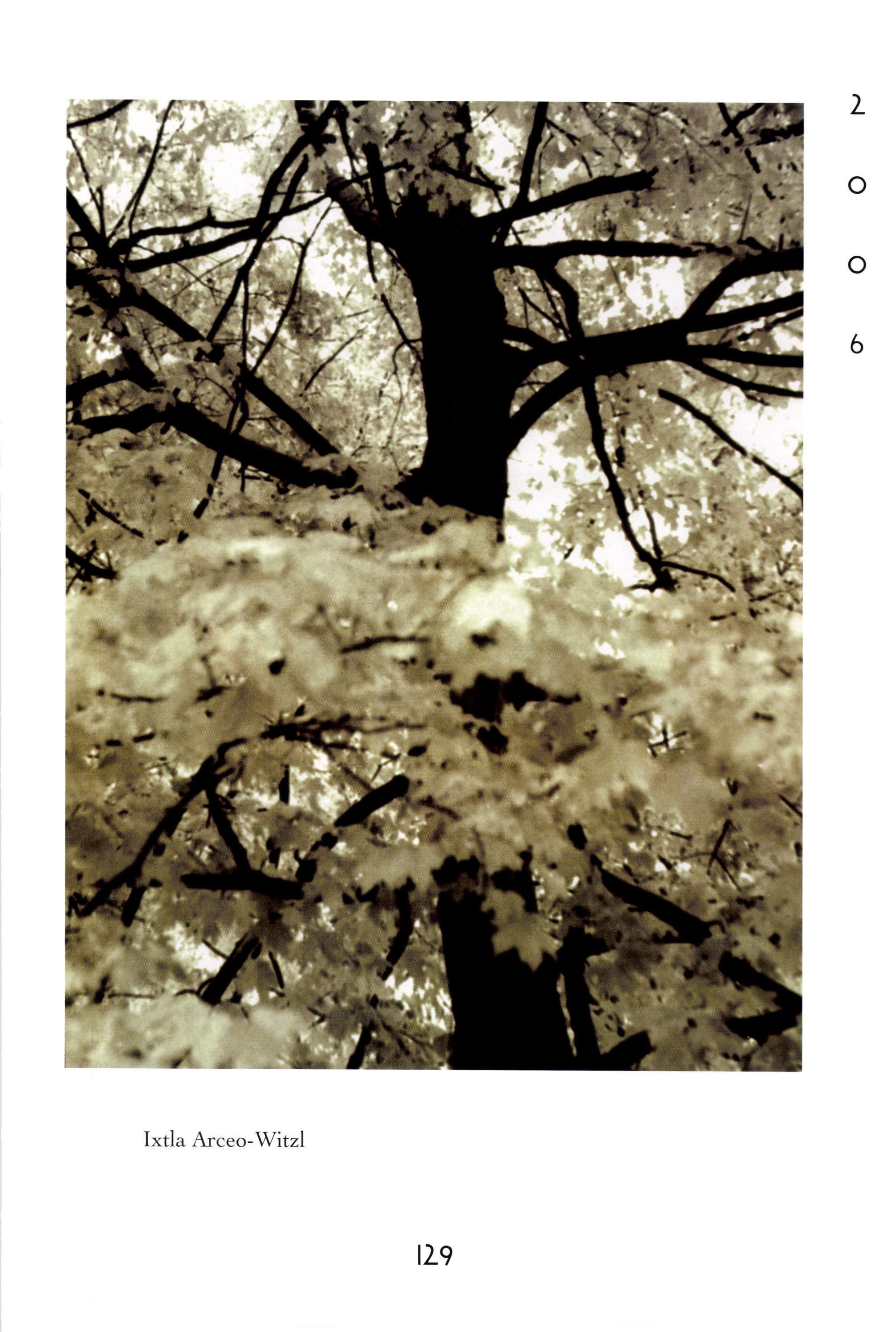
L o o 6 rei '\ ,\ r,. t "\r'\\a,. \ t t ./ t t. \ ,a9 \ I + --J .F t/ C a rl ):, \ ..}-ts * '- '. '(} I a ,* :tl .Il * ,*e * # .A \ t 4 I t* # , *F , I rtlrL .\r't co-\\'irzl a tL9
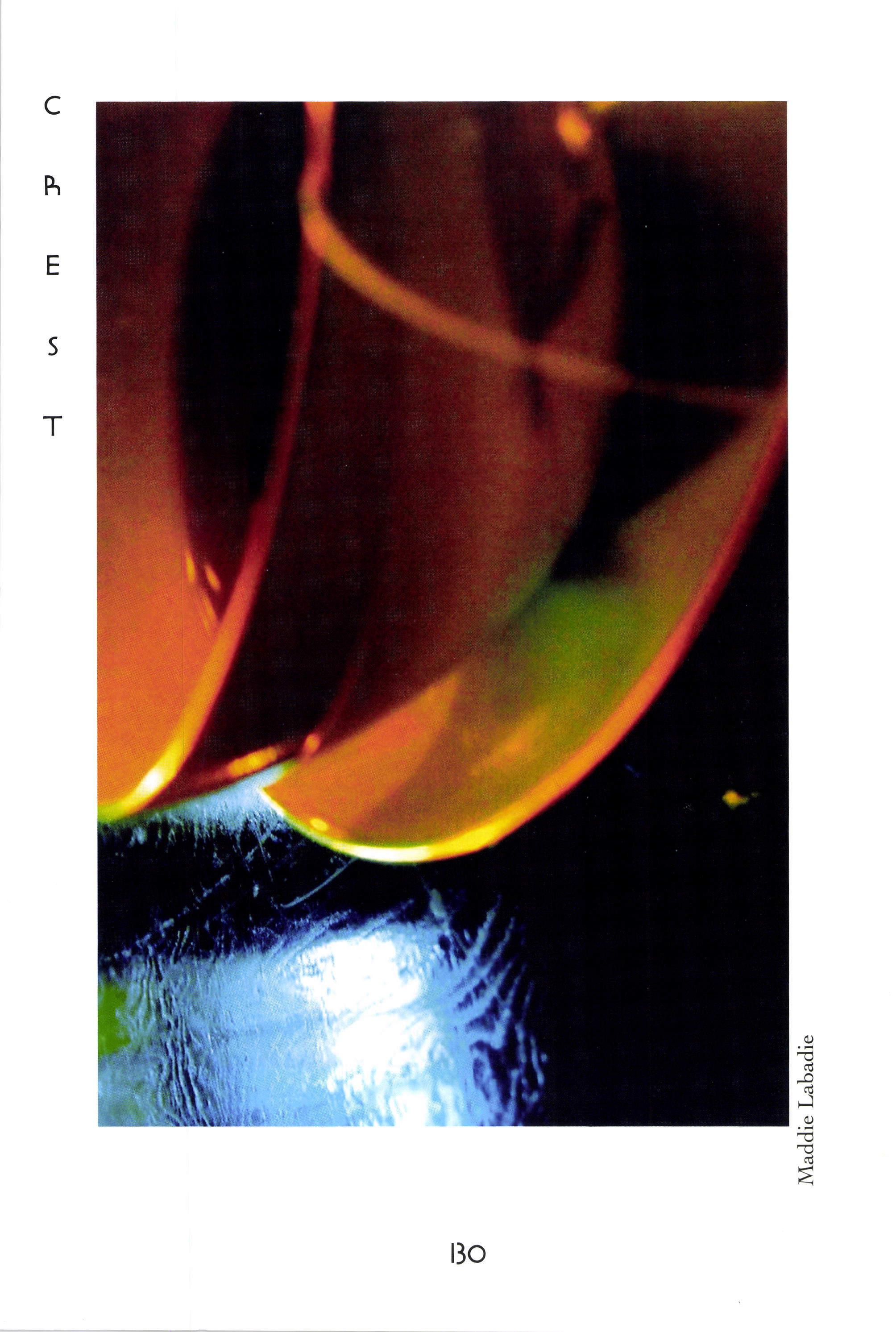
C H E s T d l 0) Bo

L o o 6 P i. o n o op rlr
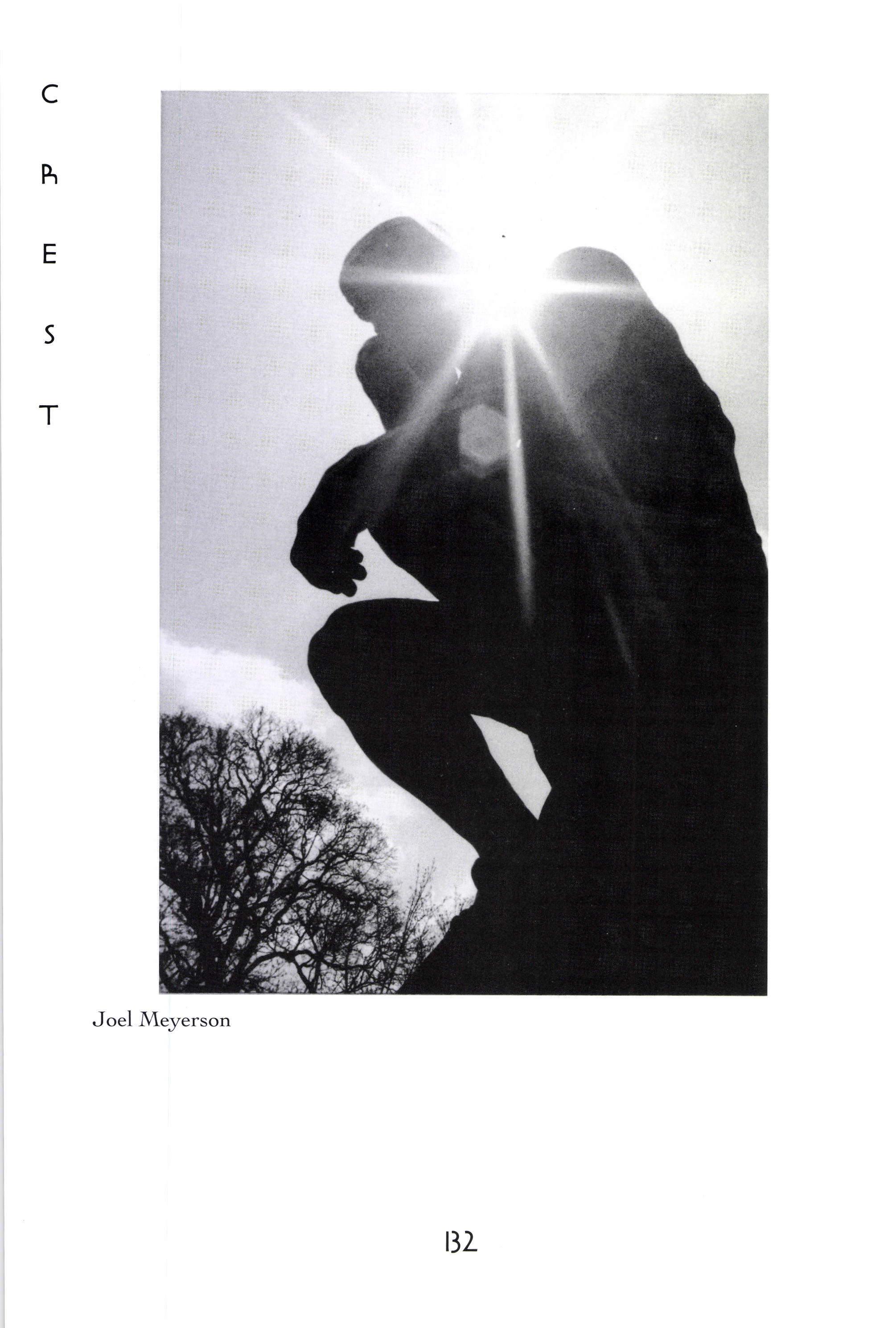
C h E s T
lL
Joel Meyerson
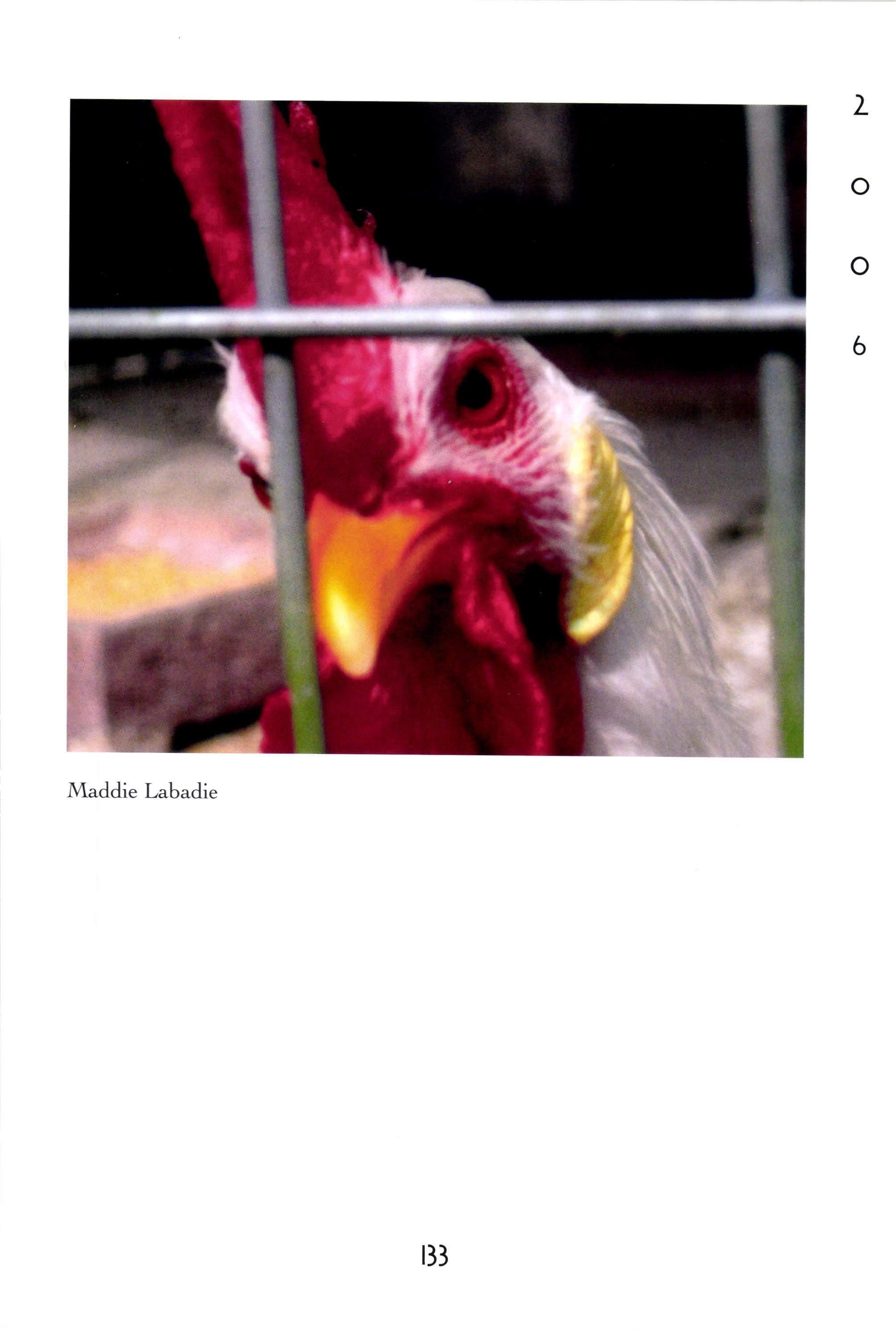
L o o 6
Bl
Maddie Labadie
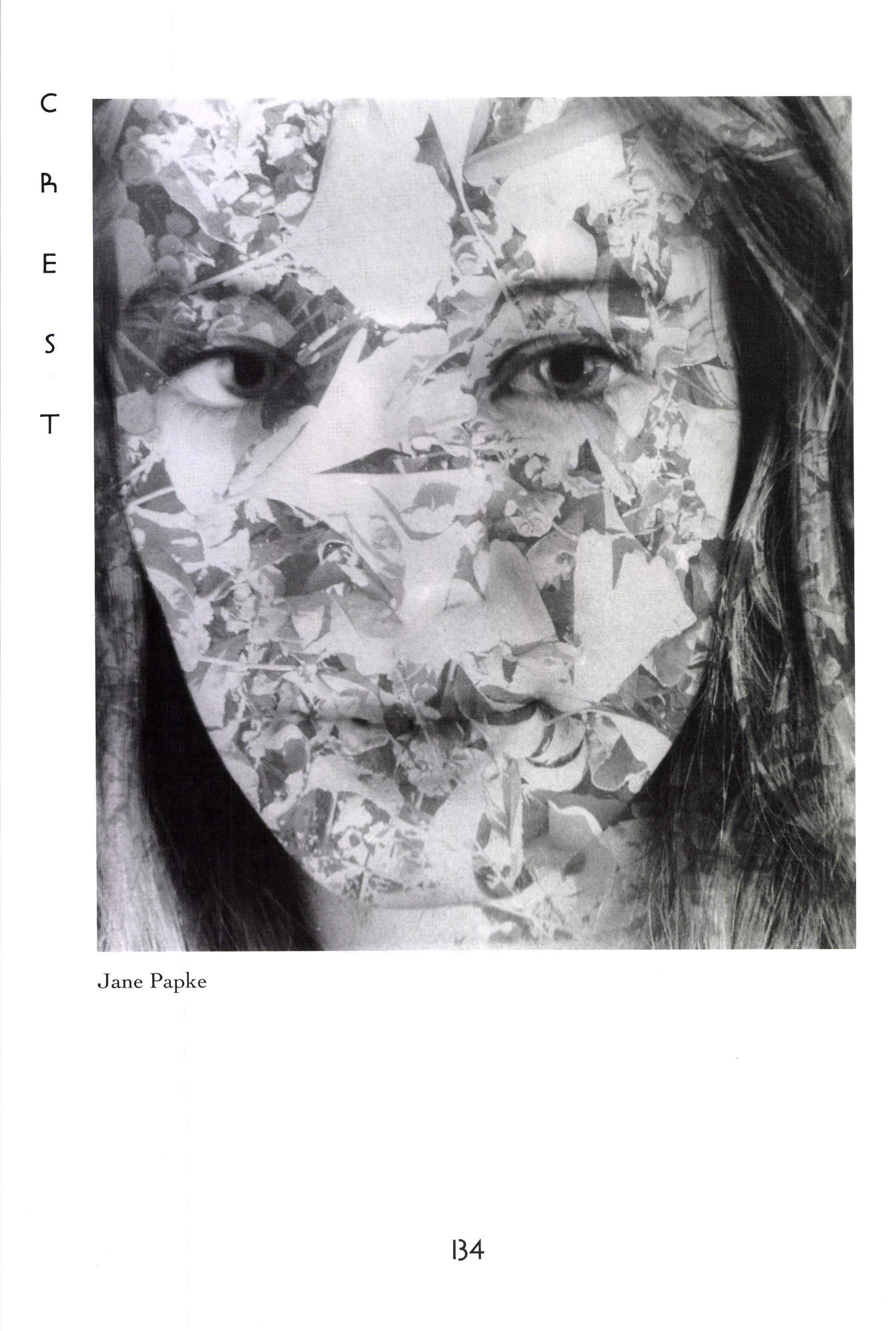
C h E s
T
134
Jane Papke
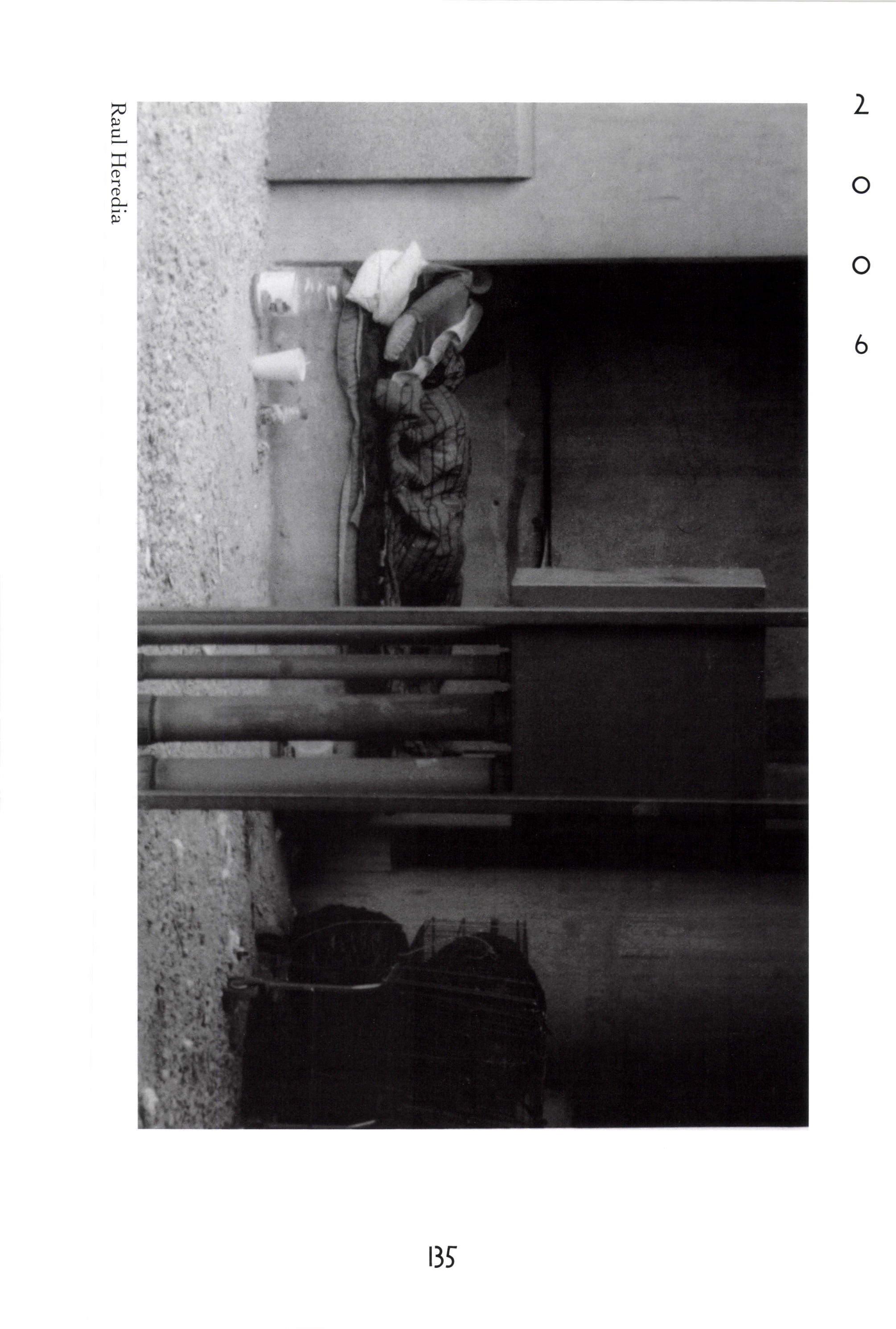
p ; o '1 rD oL o o 6 ll5

C B E s T
B6
!
Joel Meyerson
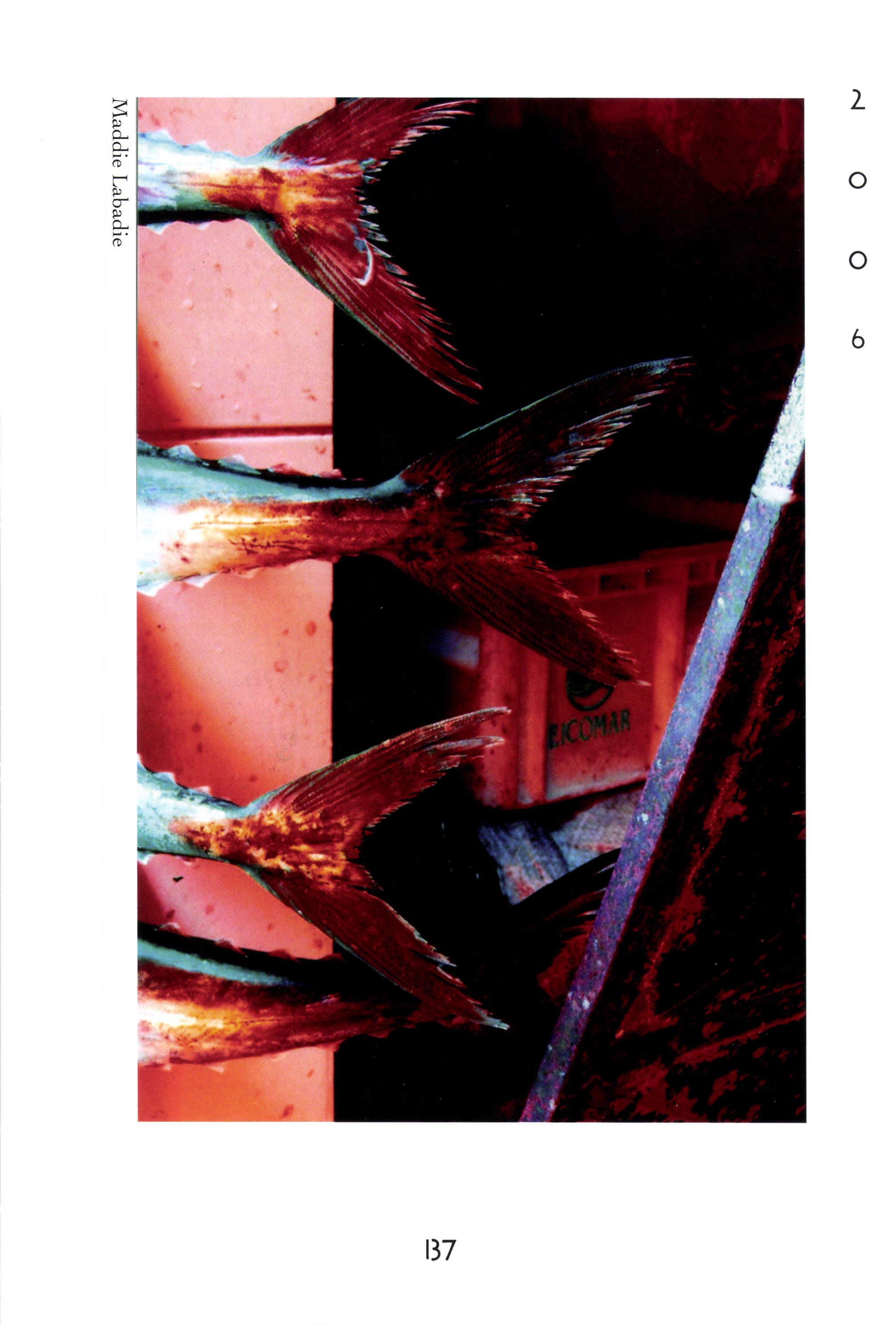
L o o 6 ? oo p ot\7
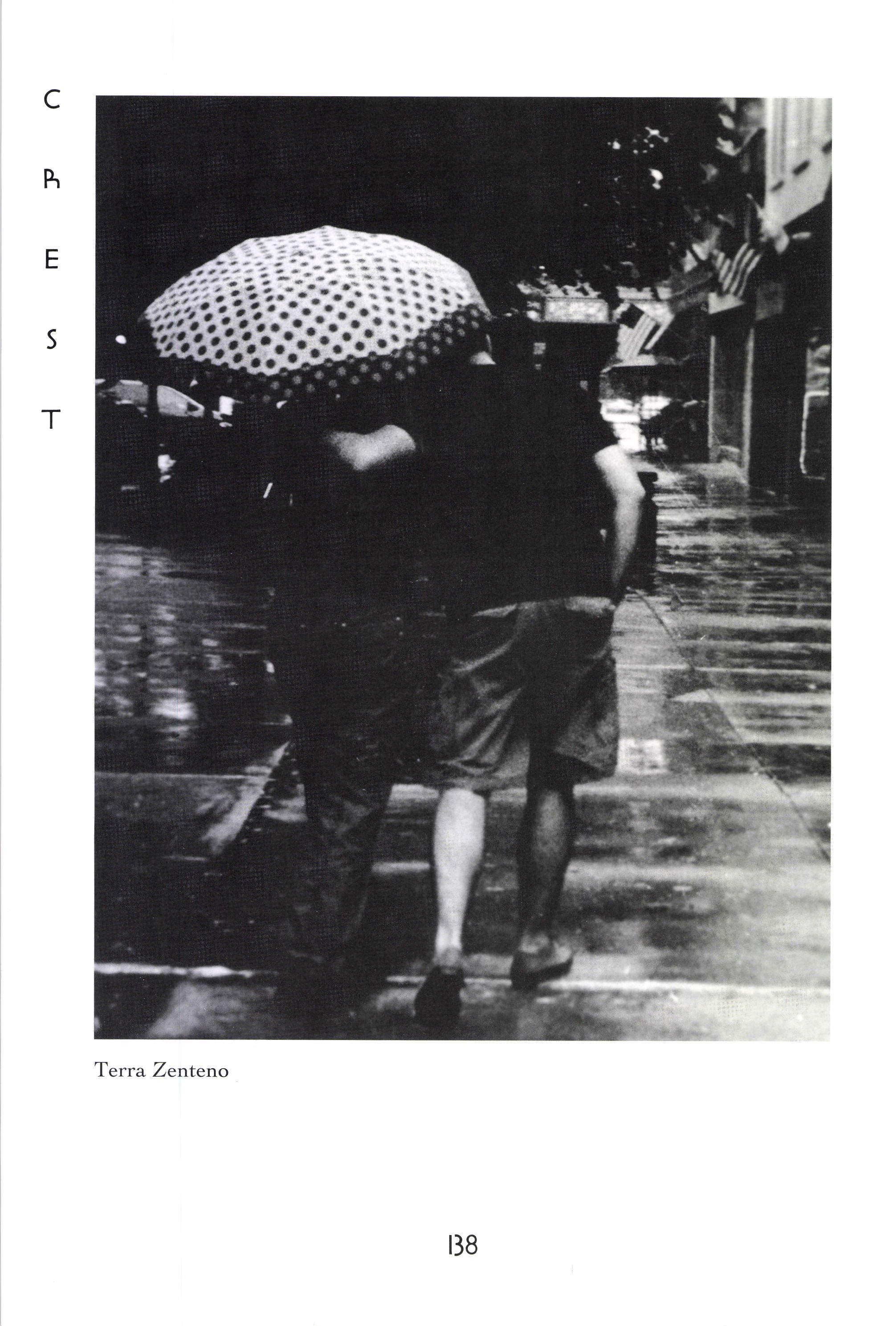
c h E s
rlB
T
Terra Zenteno
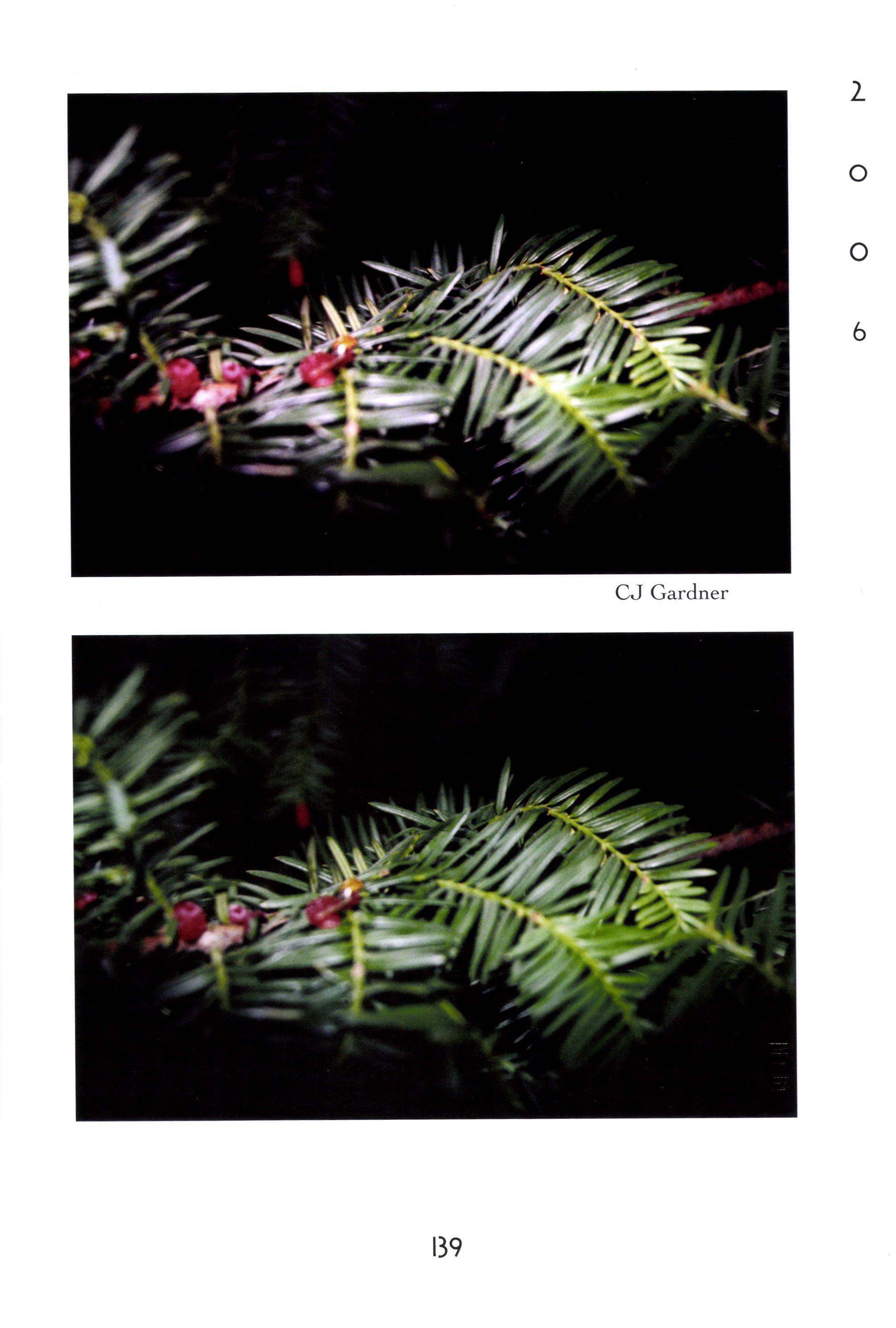
L o o 6
I \ G'' \ , \ J FjG *La r]e
CJ Gardner ,
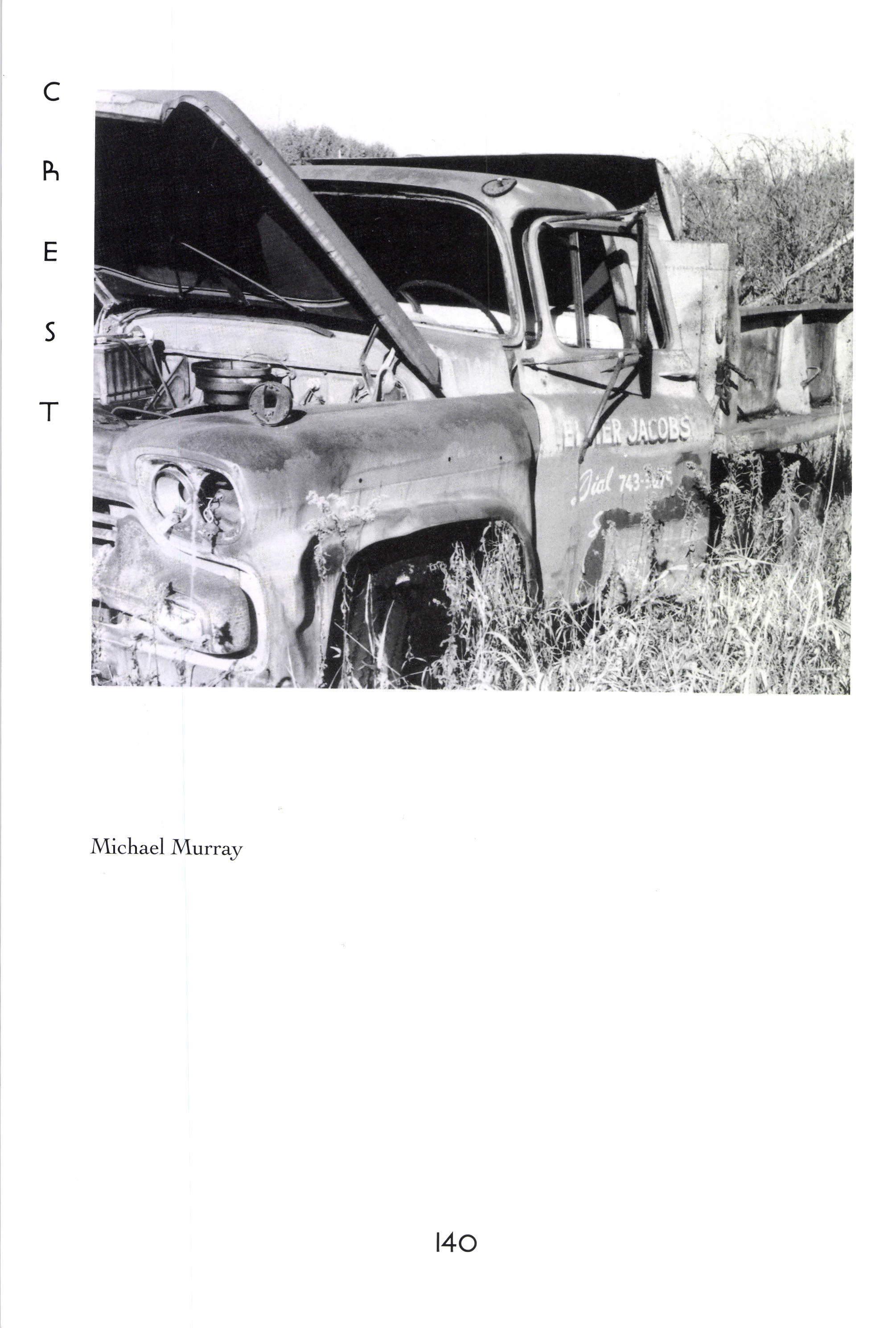
.a,. -. t'!!.*r-! C h E 5 T -i' *1,. ts !:r bii .rr!D-. ;!.{,: '.' t +. l:, l r!*f, .,1 d *r-dJ '*{ ..i' i t; I 'i
14C.
Michael Murray
Maddie Labadie
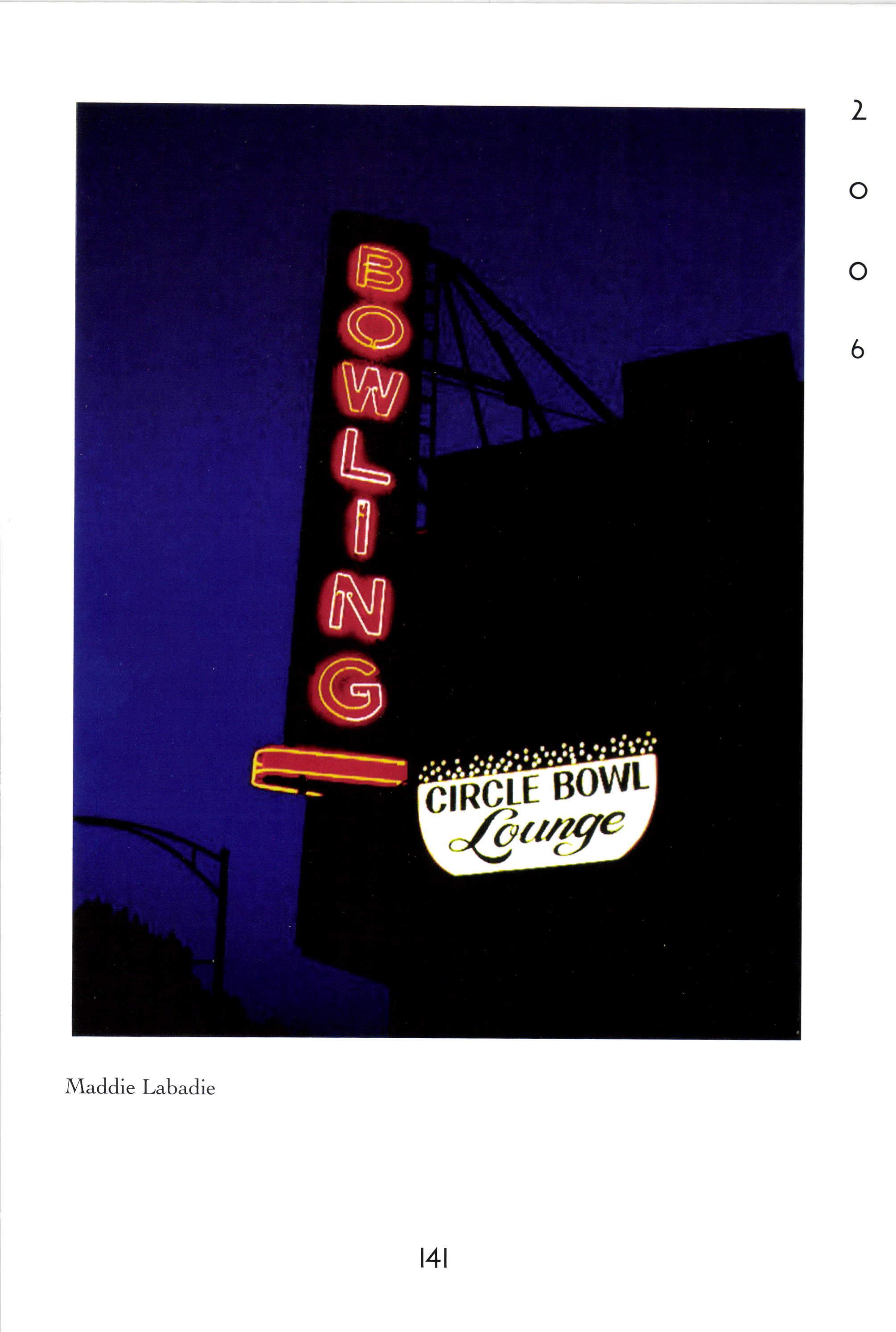
fl
L o o 6
B t4l
o rw L \e
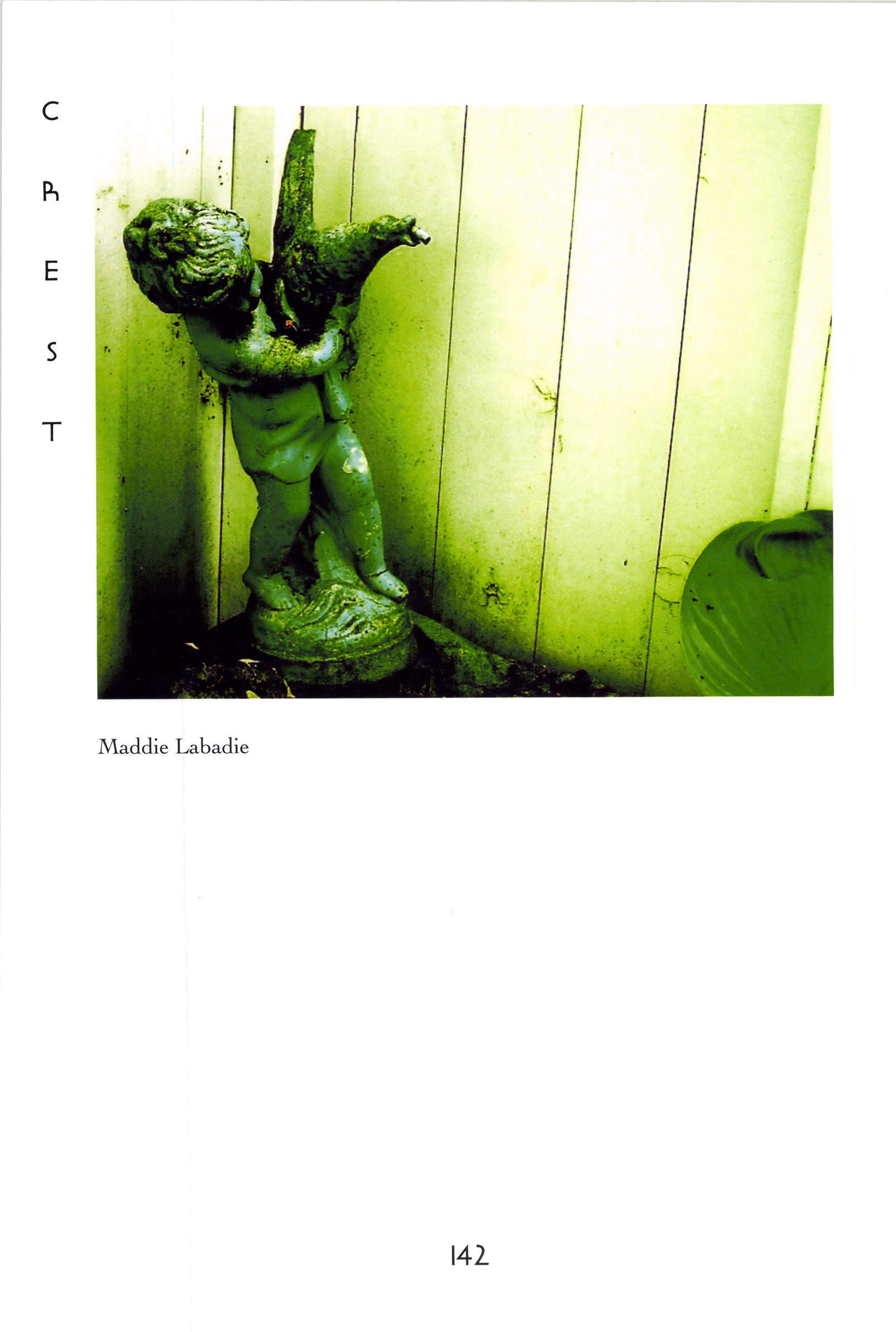
I I i t C h E s T
t4L
Maddie Labadie
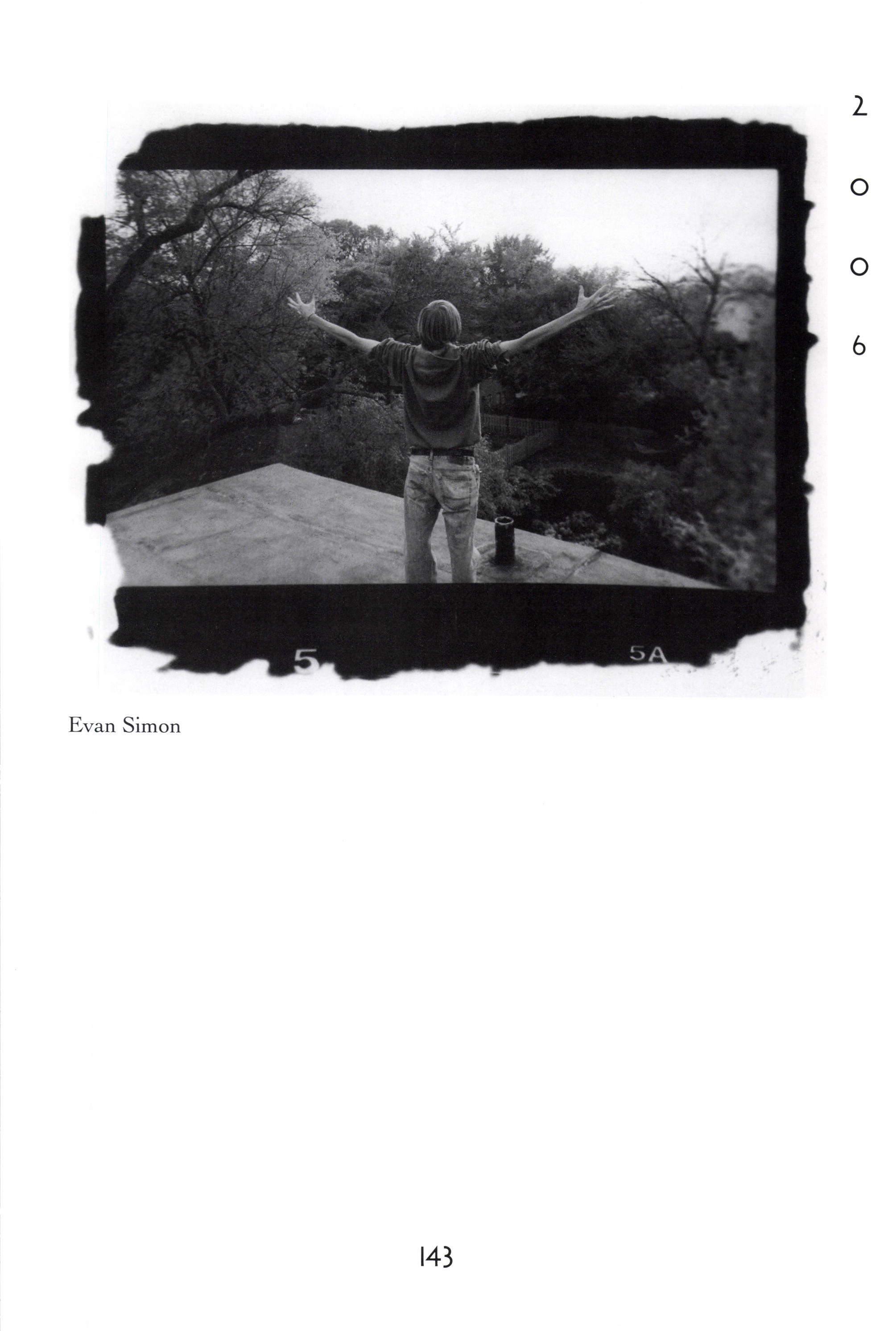
L o o 6
t4)
Evan Simon
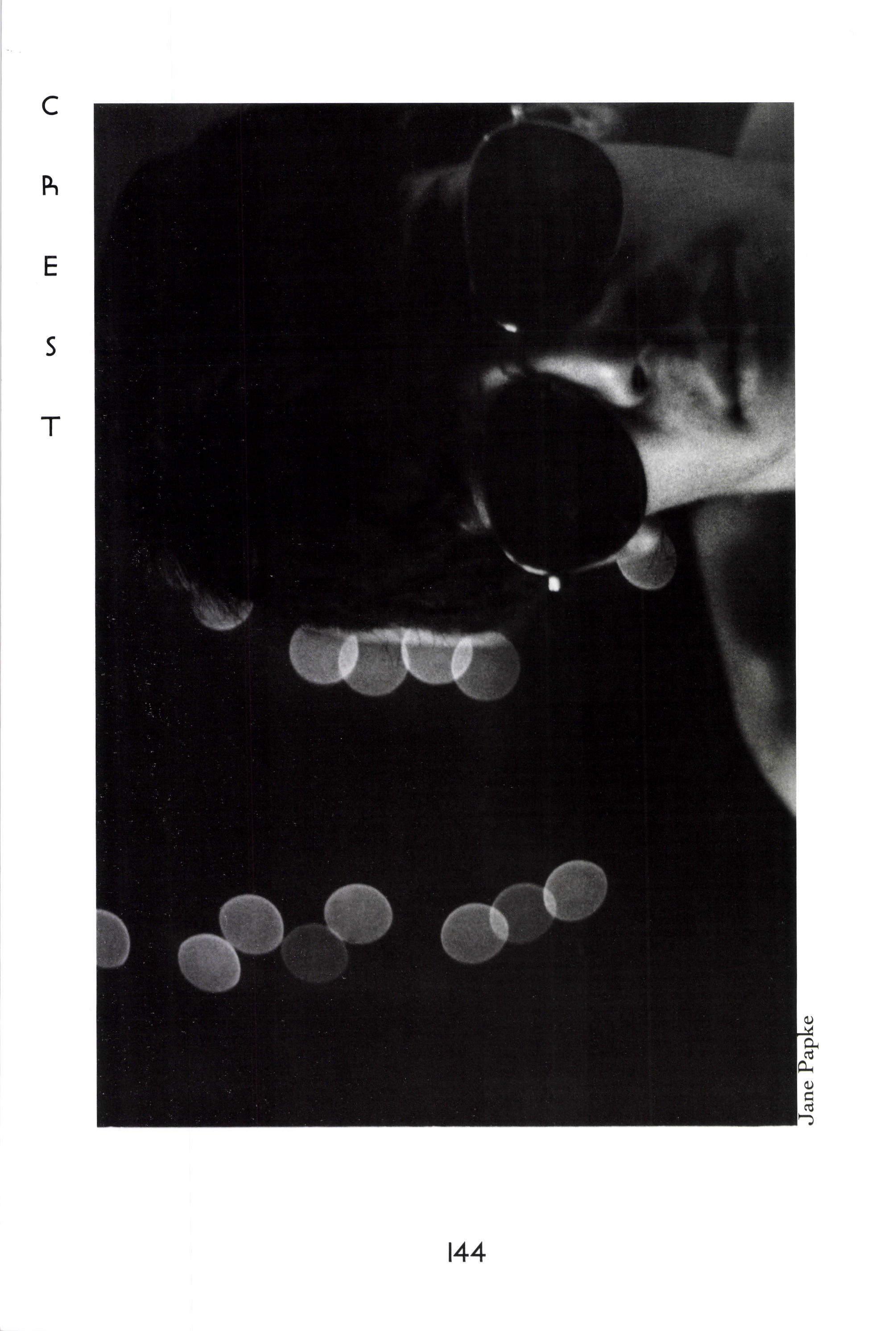
c h E s T o d t44
Steve Mellows NASCAR
make me the pit boy i can caress your body send you in circles
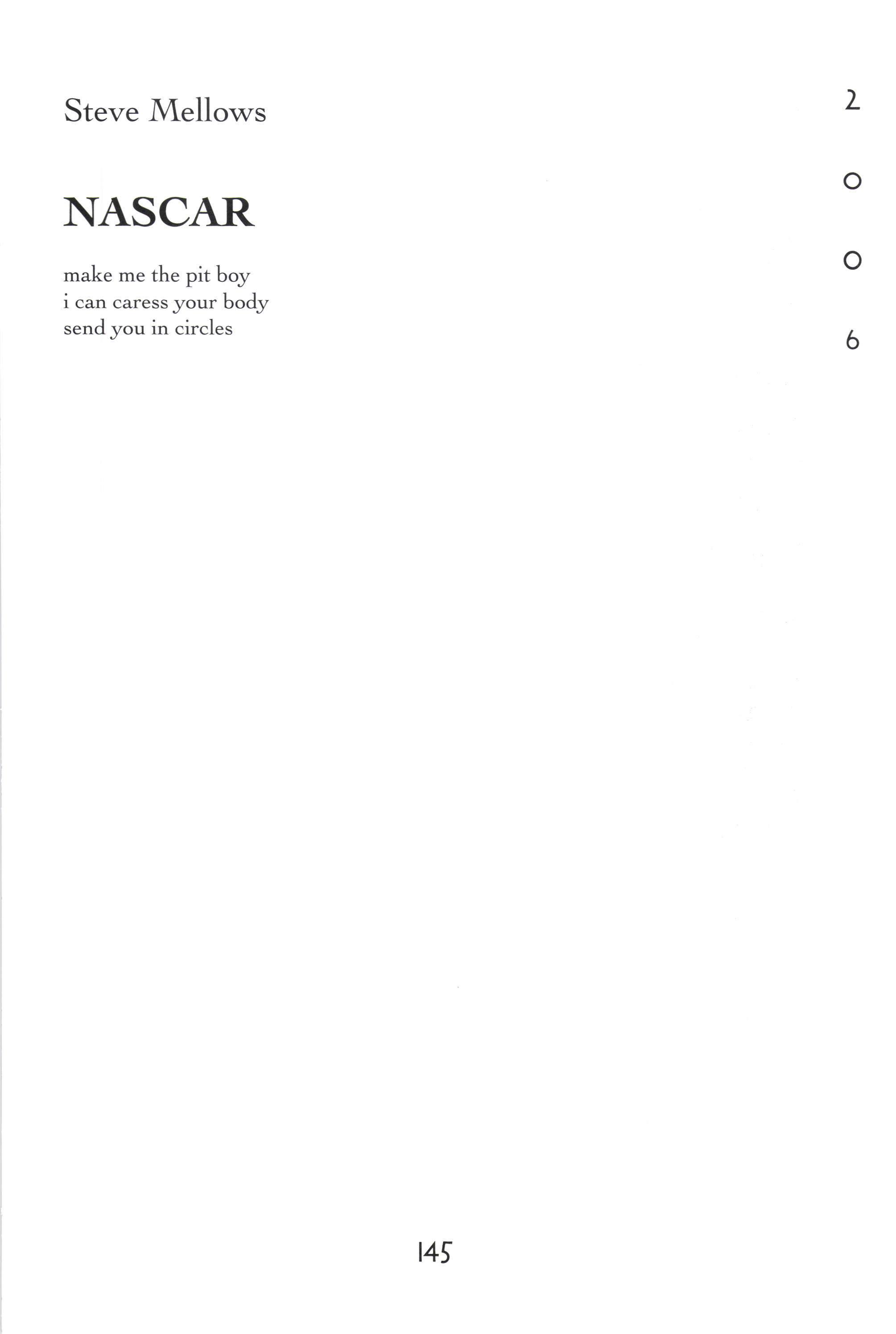
L o o 6 t45
Terra Zenteno
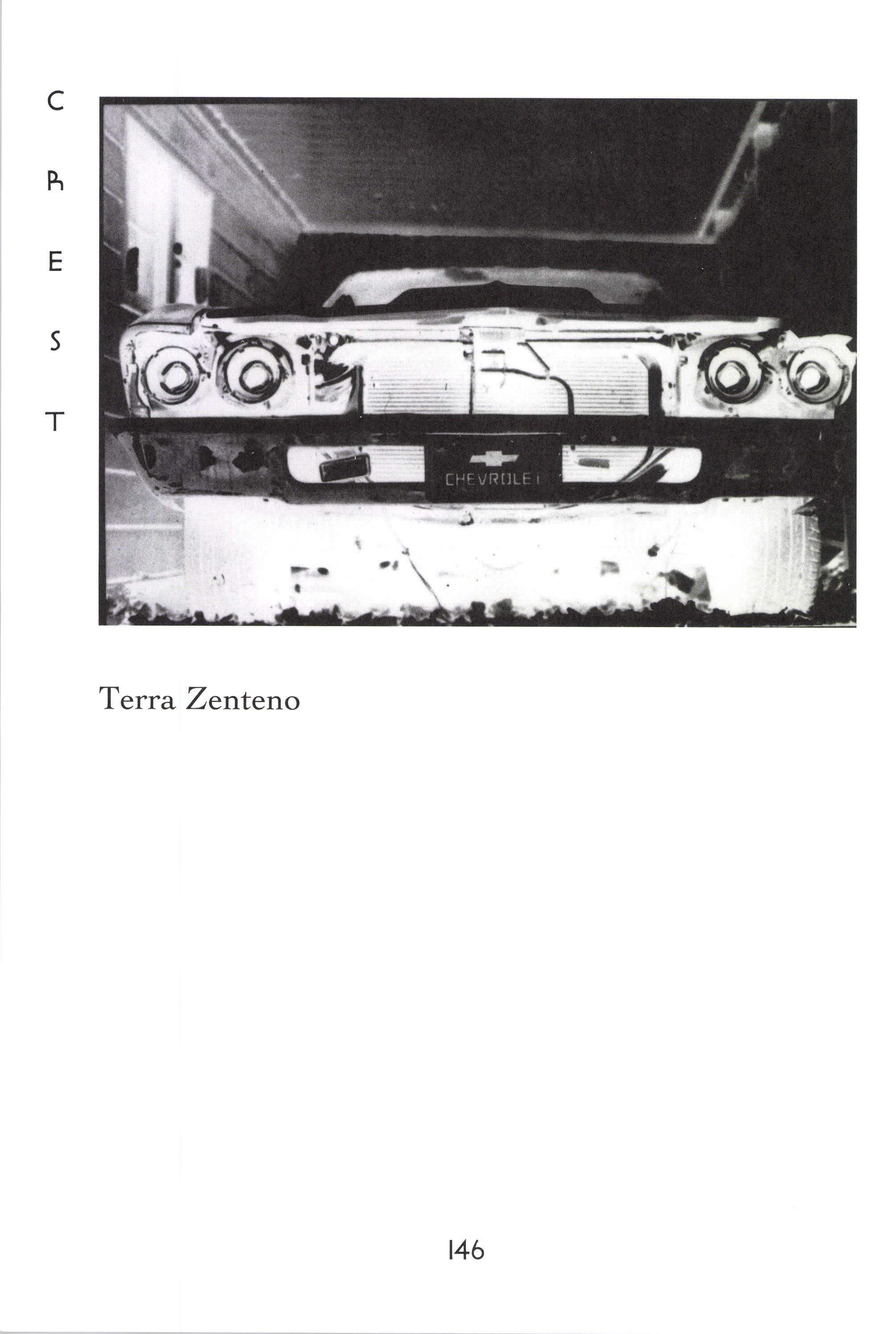
c h E s T
146
I,m Goirg Horne
I will scoop ever5rthing up offthe floor zip it up p"ll.ll of my belongings offof the ceiling and check that the crayons are still sharp at the tips one and a half hours and a phone call and that will be that.
Katie Richards
A Chemical War
Orange is in the bushes far away, outside my house waiting for me to come out, come home. He'lImove his misty Gngers around, all bright and acidic and up inside me. The children will be silly-fisted and one-eyed. It will be hard to love them.
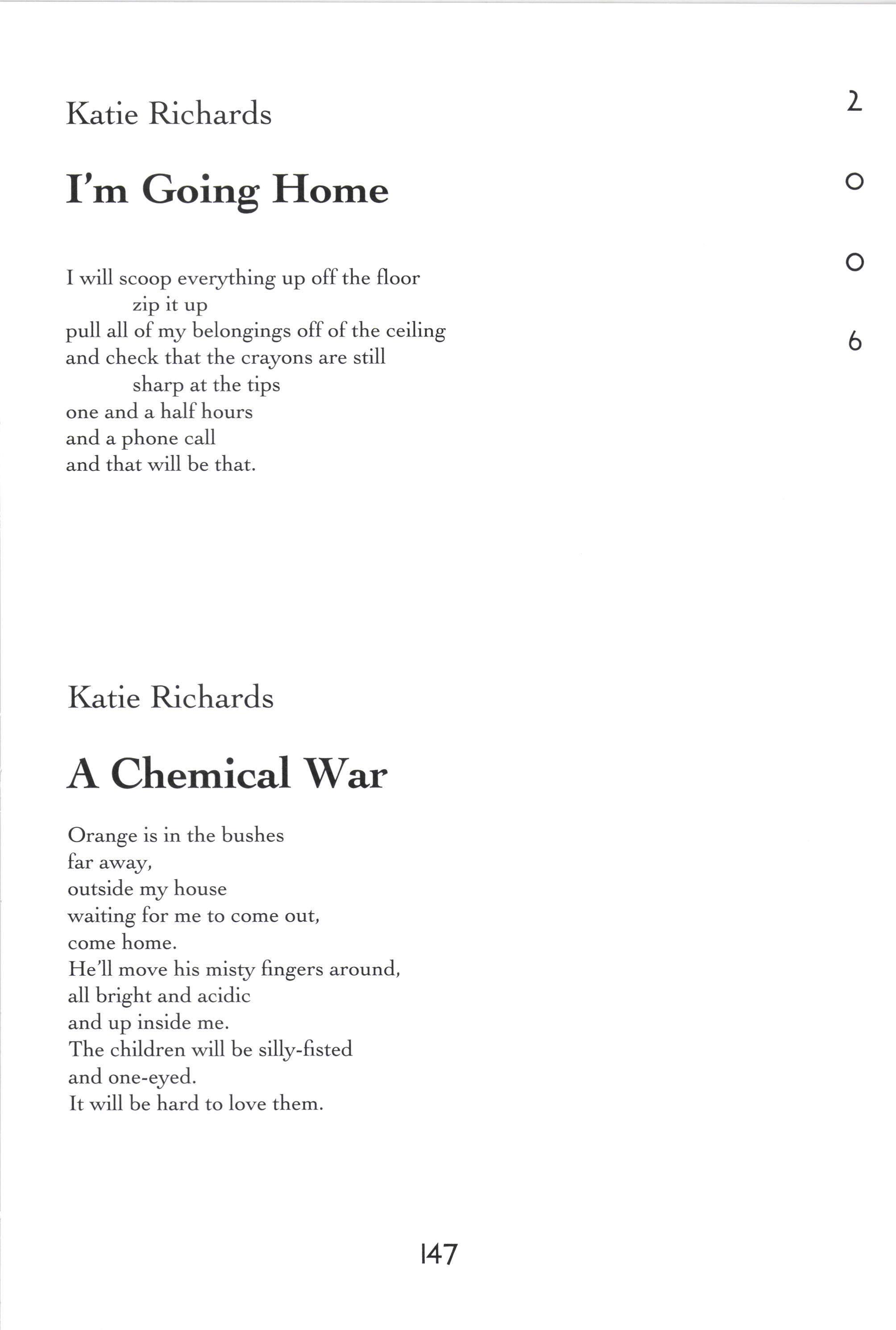
Katie Richards
L o o 6
147
Snapshot
FWords from childhood still make me humble. The songs she used to sing became my patchwork.
S She told me that brilliance had no fancy borders, no deflned lines
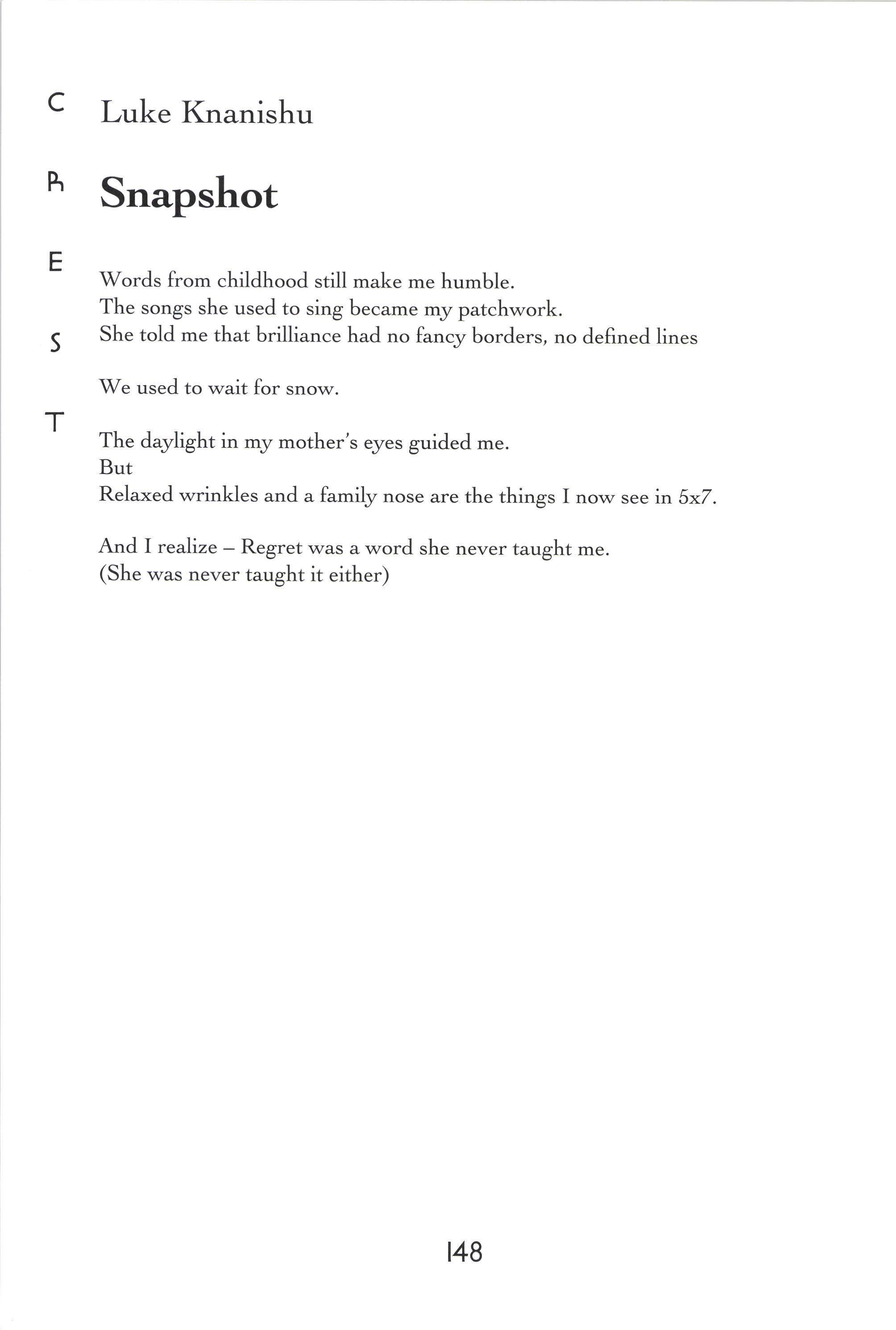
We used to wait for snow.
TThe daylight in my mother's eyes guided me. But
Relaxed wrinkles and a family nose are the things I now see in 5x7.
And I reahze - Regret was a word she never taught me. (She was never taught it either)
c h Luke Knanishu
148
L]ndertow: the Seaward Pull of Recedirg Waves Afrer They Break On a Shore
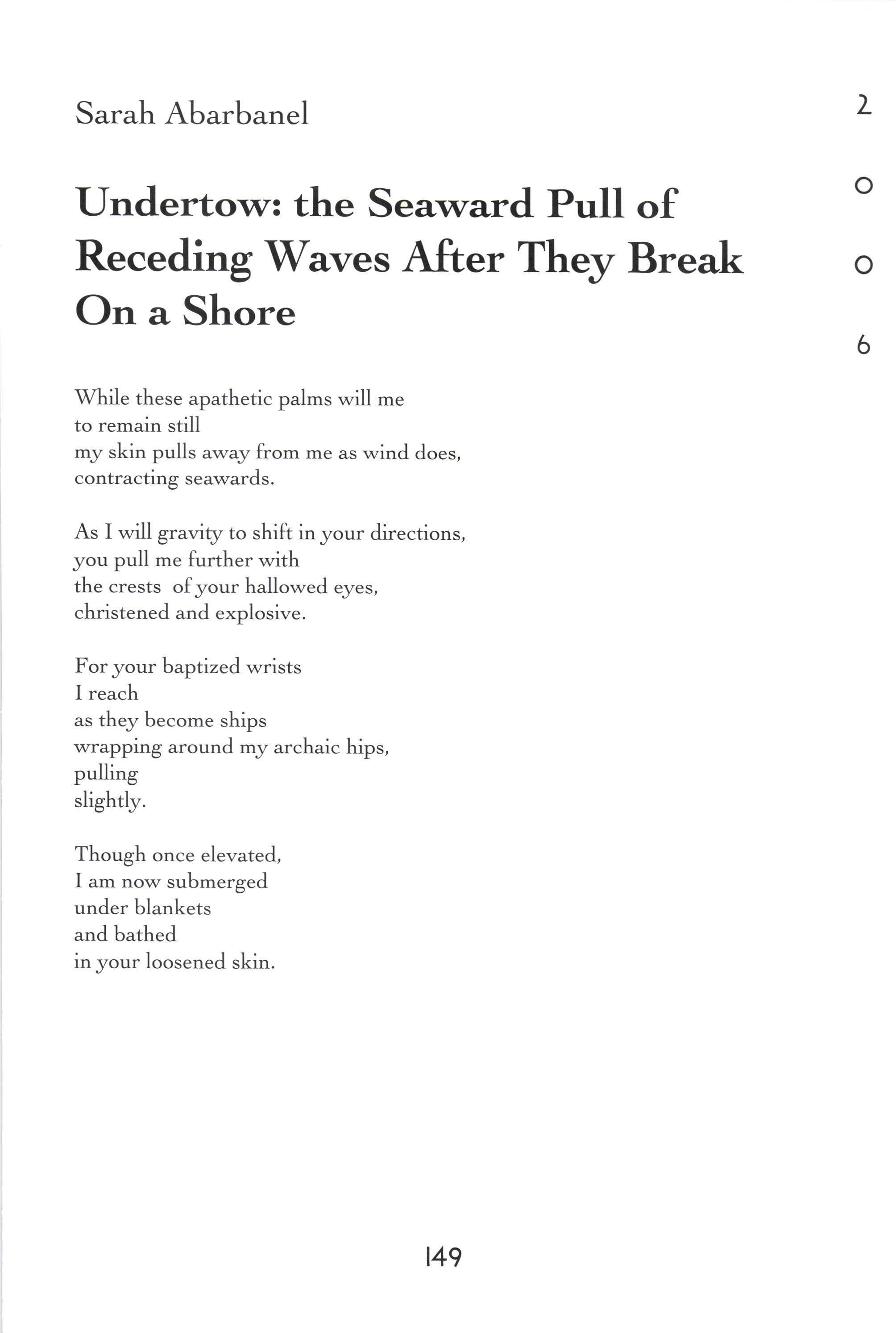
While these apathetic palms will me to remain still my skin pulls away from me as wind does, contracting seawards.
As I will graviqr to shift in your directions, you pull me further rvith the crests ofyour hallowed eyes, christened and explosive.
Foryour baptized wrists I reach as they become ships wrapping around my archaic hips, pulling slightly.
Though once elevated, I am now submerged under blankets and bathed in your loosened skin.
Sarah Abarbanel
L o o 6 t49
The Hemingway Writing Award .Winners
The Hemingway'Writing Award is presentedyearly to students whose writing B exhibits a high degree of literary merit. This year's poetry award goes to Kirsten Rusinak; the fiction award goes to Natayla Carrico; the personal narrative award goes to Gabrielle Worley.
Gabrielle Worley
r Kisses of Tradition
I stood on Mama's bed so I could see myself in the mirror over her dresser. I didn't like what I was wearing. I looked like Big Bird in the puf$.yellow dress Mama had forced over my head that morning. She never let me dress myself on Sundays. She said wearing mismatched socks was disrespectful. Everyrthing I did was disrespectful at her church. I wasn't allowed to stay seated when all the old people stood up. I couldn't cross my legs, and I couldn't chew gum. The old people'were scary at her church. They all had huge noses and got real close to my face when they talked to me. There was one old lady who I always hid from. She gave me these cold wet kisses that mama wouldn't let me wipe away. She said it was disrespectful. The only old people I liked were my Teta and Gido. They never kissed me. They only hugged me and pinched my cheeks. I liked Teta's hands. She would paint our fingernails the same color. I always chose red because she told me it was her favorite color.
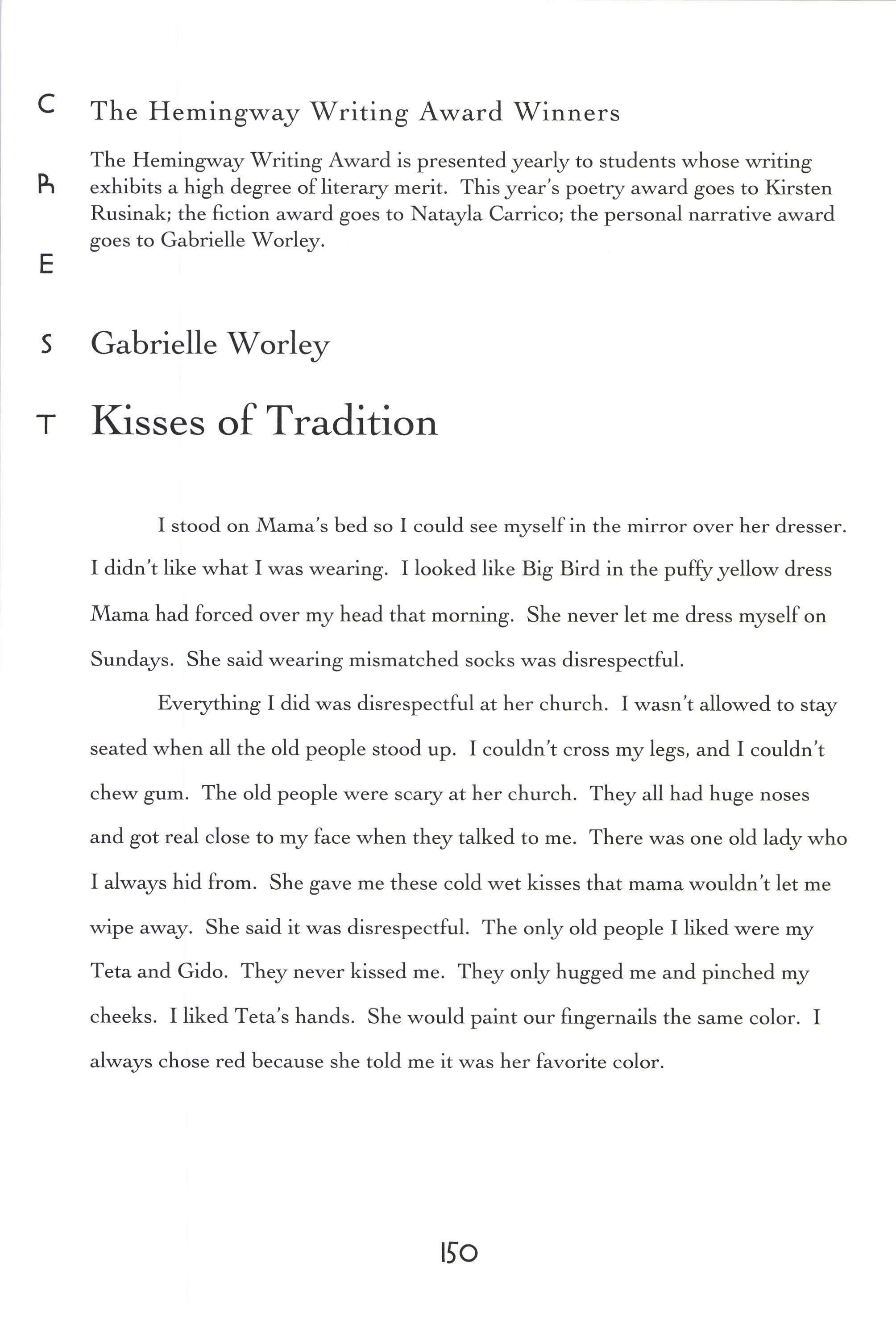
C
E
5
150
Mama called me to the kitchen for breakfast. I collapsed. on her bed
in myyellow Easter dress and rolled off with a tired sigh. I slid through the hallway on my ruffled white socks and arrived at the table just as Mama, Baba,
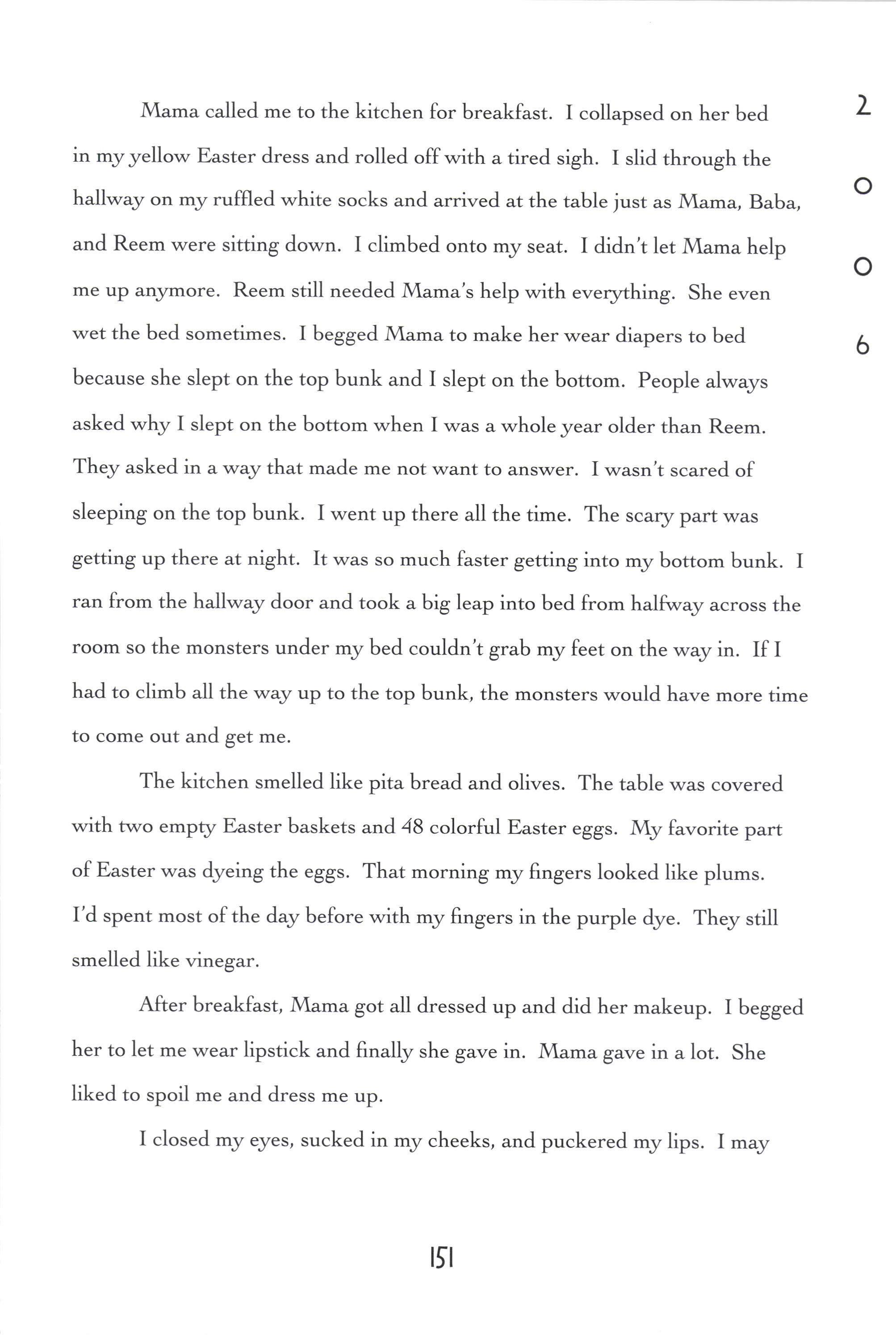
and Reem were sitting down. I climbed onto my seat. I didn't let Mama help
me up anJrrnore. Reem still needed Mama's help with everlrthing. She even wet the bed sometimes. I begged Mama to make her wear diapers to bed
because she slept on the top bunk and I slept on the bottom. People always asked why I slept on the bottom when I was a whole year older than Reem. They asked in a way that made me not want to answer. I wasn't scared of sleeping on the top bunk. I went up there all the time. The scary part was getting up there at night. It was so much faster getting into my bottom bunk. I ran from the hallway door and took a big leap into bed from halfivay across the room so the monsters under my bed couldn't grab my feet on the way in. If I had to climb all the way up to the top bunk, the monsters would have more time to come out and get me.
The kitchen smelled like pita bread and olives. The table was covered rvith two empty Easter baskets and 48 colorful Easter eggs. NISz favorite part of Easter was dyeing the eggs. That morning my fingers looked like plums. I'd spent most of the day before with my fingers in the purple dye. They still smelled like vinegar.
After breakfast, Mama got all dressed up and did her makeup. I begged her to let me wear lipstick and finally she gave in. Mama gave in a lot. She liked to spoil me and dress me up.
I closed my eyes, sucked in my cheeks, and puckered my lips. I may
L
O
o
6
r5r
C have looked like a duck but Mama didn't Iaugh at me. She gently dabbed the red on my lips and then surprised me with a little swish of blush on each cheek. h The brush tickled my face so I giggled and Mama laughed too. She combed my hair with her fingers, then pulled half of it back into a hairdo she called the E fountain because it stuck straight up and then fell to all sides. I loved it when
SMama did my hair. Nothing made me feel safer.
Me and Reem sat in the backseat of our maroon Volvo eating candy
T from our Easter baskets. The only day of the year that Mama let us eat candy in the morning was Easter.
Between me and Reem lay two baby-pink candles. The tradition at Mama's church was to decorate a candle for each child on Easter. Our candles were adorned with beautiful white lilies and pink roses, and then tied with pink and white ribbon. I always Ioved to help Mama decorate the candles the night before. Mostly I watched, but sometimes she let me separate the flowers and cut the ribbon.
'We arrived at Mama's church just as the service was starting. The Easter serrrice was always a lot longer than the regular Sundays at Mama's church. I used to fall asleep on Baba's shoulder about halfway through the service, but that day I was going to stay awake the whole time because Mama said I was old enough. Mama said that whenyou need two hands to count youryears, you are too old to sleep in church. I didn't want to be disrespectful on Easter Sunday, so I held my candle carefully on my lap and remembered not to cross my legs.
After two hours of the Abonah chanting and the choir singing words I couldn't understand, it was time for the candle parade. All the chil&en in the
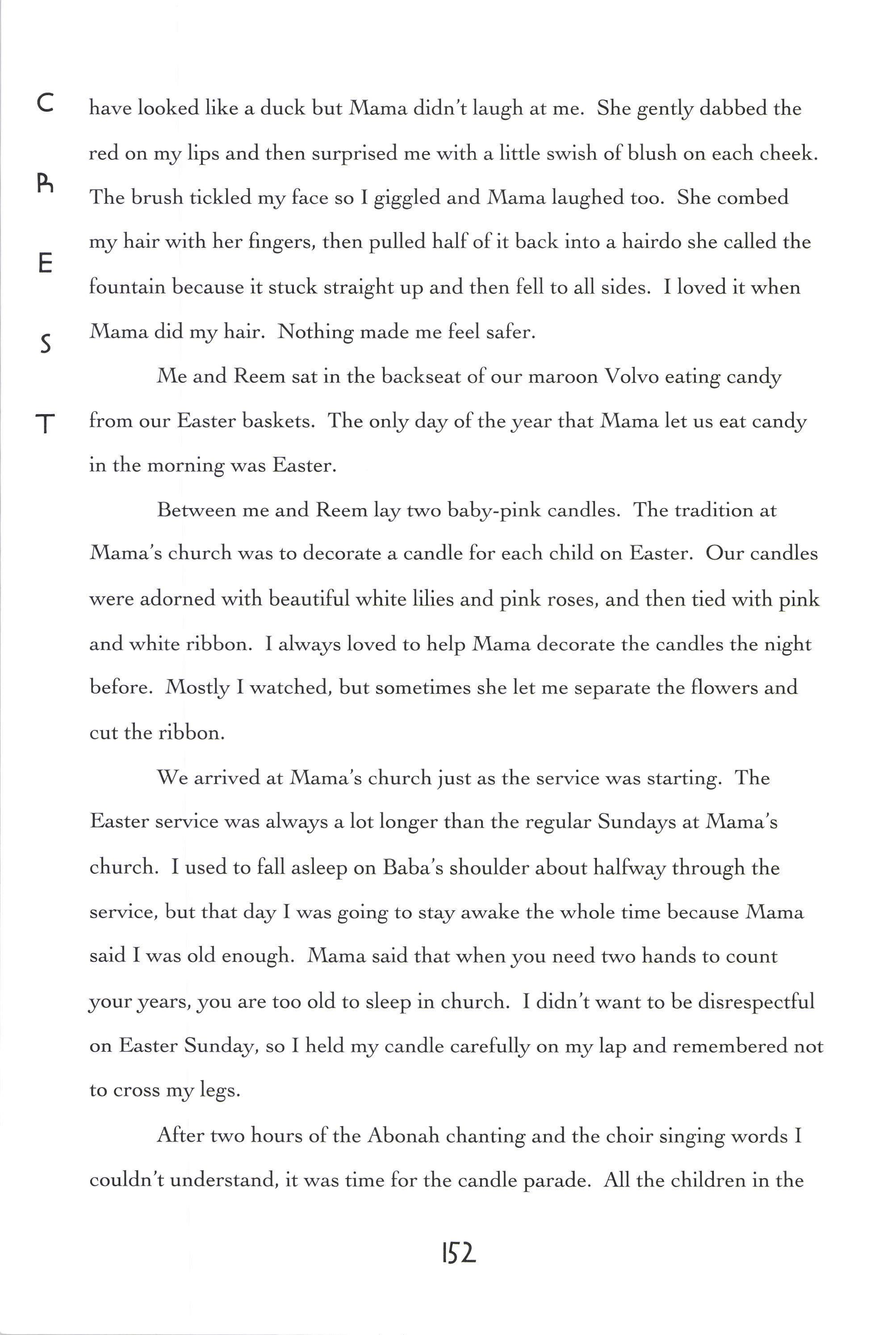
r5z
church got in a line. We all walked through the church aisles and then out the
door and around the church court;rard. All the old people videotaped and took pictures of us because we looked so cute. The little girls had on puf$. dresses
with ruffles and flowers that matched their candles. The boys had on fancy suits,
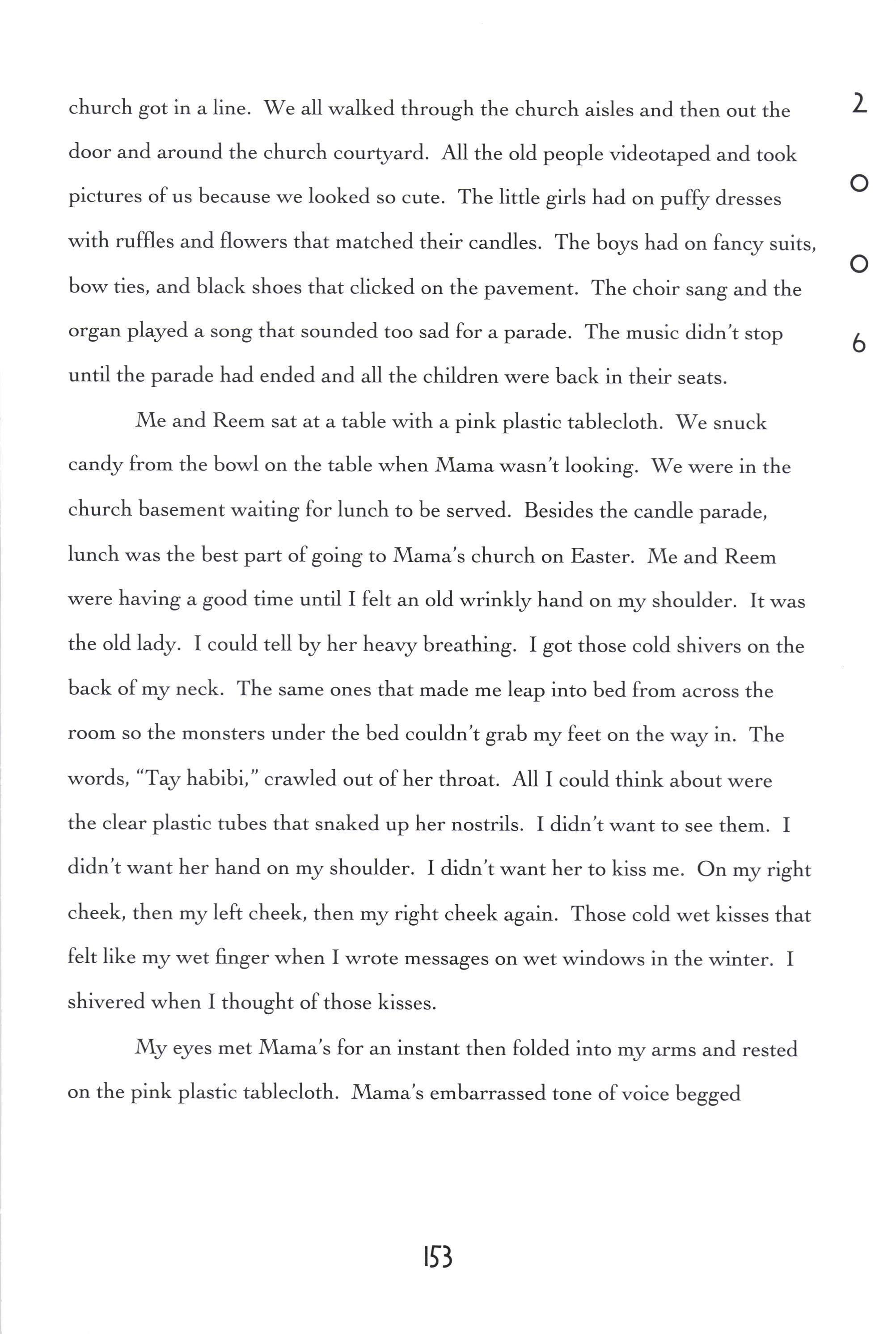
bow ties, and black shoes that clicked on the pavement. The choir sang and the organ played a song that sounded too sad for a parade. The music didn't stop
until the parade had ended and all the children were back in their seats.
Me and Reem sat at a table with a pink plastic tablecloth. We snuck candy from the bowl on the table when Mama wasn't looking. 'We were in the church basement waiting for lunch to be served. Besides the candle parade, lunch was the best part of going to Mama's church on Easter. Me and Reem were having a good time until I felt an old wrinkly hand on my shoulder. It was the old l"dy. I could tell by her heary breathing. I got those cold shivers on the back of my neck. The same ones that made me leap into bed from across the room so the monsters under the bed couldn't grab my feet on the way in. The words, "Tay habibi," crawled out of her throat. All I could think about were the clear plastic tubes that snaked up her nostrils. I didn't want to see them. I didn't want her hand on my shoulder. I didn't want her to kiss me. On my right cheek, then my left cheek, then my right cheek again. Those cold wet kisses that felt like my wet finger when I wrote messages on wet windows in the winter. I shivered when I thought of those kisses.
My eyes met Mama's for an instant then folded into my arms and rested on the pink plastic tablecloth. Mama's embarrassed tone of voice begged
L
O
o
6
t53
C
me to stop being silly and let Taunt Elaine kiss me, but I ignored her and concentrated on writing messages in the pink plastic tablecloth with my stained h ' I purple flngers. They still smelled like vinegar.
Mama wouldn't talk to me in the car on the way home. I couldn't E understand why she was so mad at me for not letting the old lady kiss me.
At Baba's church none of the old people kissed me. They only shook hands. ) There wasn't any white smoLe for me to wave out of my face. Mama always T yelled at me when I did that. She said it was disrespectful.
.
I didn't like it when Mama was mad at me. I wanted her to talk to me so I asked her how much longer it would be until we got home. She didn't answer. She was ignoring me. She was ignoring me like I had ignored her in the basement of her church. When my eyes met hers for an instant and then folded into my arms and rested on the pink plastic tablecloth. I concentrated on writing messages in the pink plastic tablecloth with my stained purple fingernails. Now Mama concentrated on her fingernails.
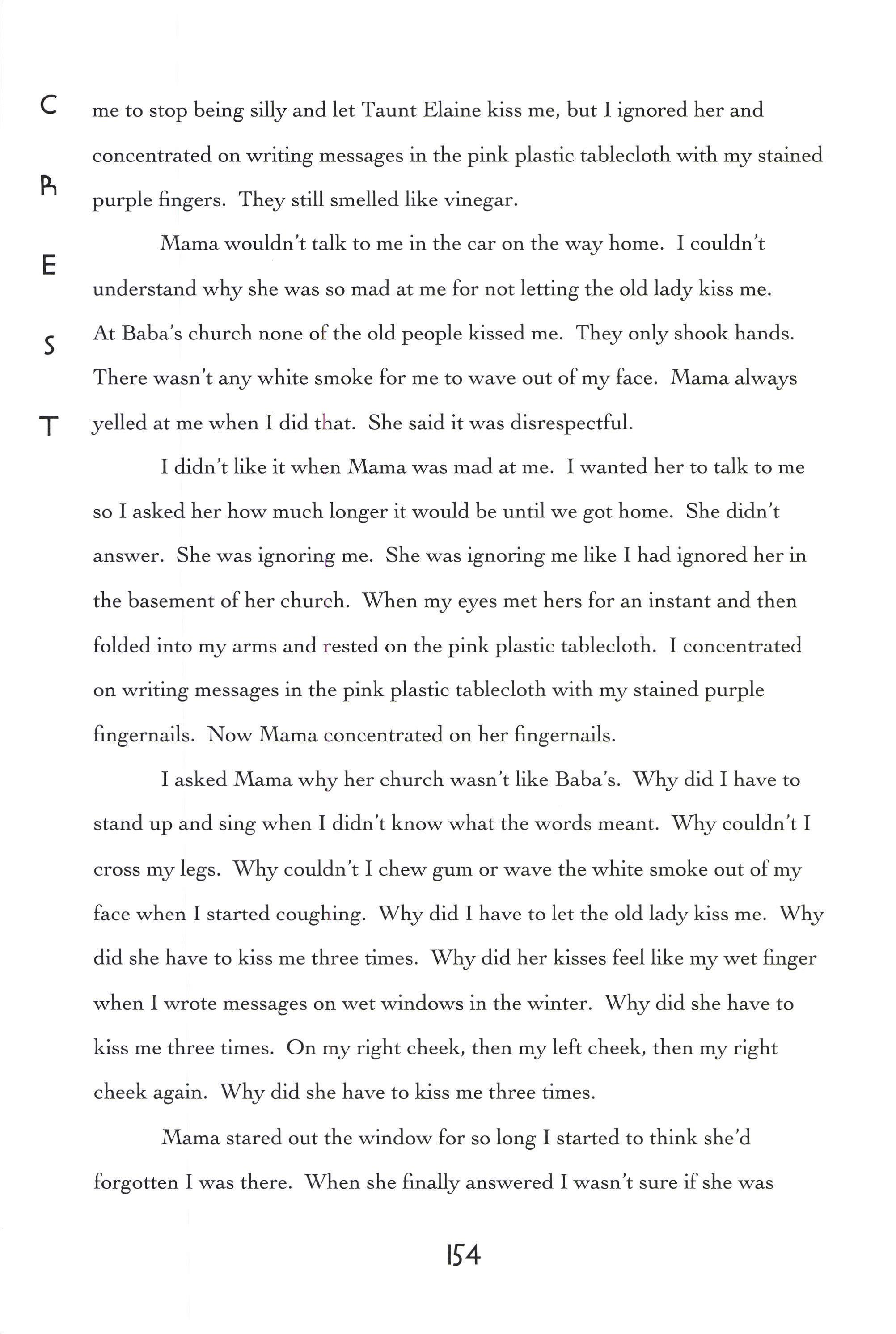
I asked Mama why her church wasn't like Baba's. Why did I have to stand up and sing when I didn't know what the words meant. Why couldn't I cross my legs. 'W'hy couldn't I chew gum or wave the white smoke out of my face when I started coughing. Why did I have to let the old lady kiss me. Why did she have to kiss me three times. Why did her kisses feel like my wet finger when I wrote messages on wet windows in the winter. Why did she have to kiss me three times. On my right cheek, then my left cheek, then my right cheek again. Why did she have to kiss me three times.
Mama stared out the window for so long I started to think she'd forgotten I was there. When she finally answered I wasn't sure if she was
154
speaking to me or herself. She said that I had to let the old lady kiss me three times for the s:une reason she let us dye Easter eggs and eat candy in the morning. It was for the same reason she combed my hair with her fingers and let me wear makeup trhat day. It was for the same re:non she let me help her with the candles and wear that fancyyellow dress. Mama called it a tradition. I assumed it was something Teta had taught her when she started having to use two hands to count her age. I concentrated on my fingernails. I spent the rest of the car ride home chipping off the red polish.
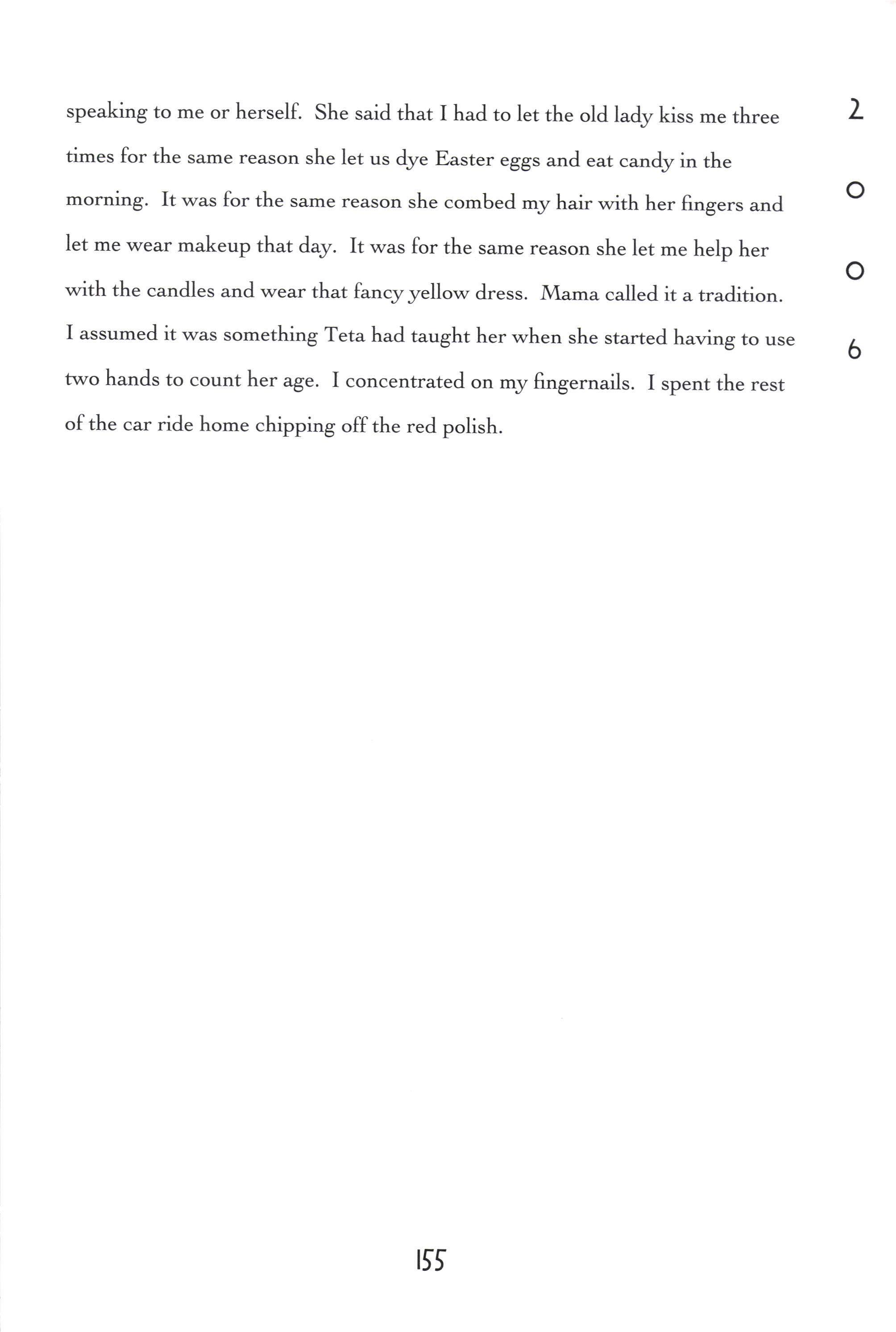
L o o 6 t55
Natalya Carrico
h Sun Rose Cold
Don't disturb the beast, the temperamental goat, the snail, while he's feeding on the rose. Stay frozen; compromise what
I will.
TI am. Bend around the wind, silently blown about again; I'm treading so soft and lightly, compromising mywill; I am.
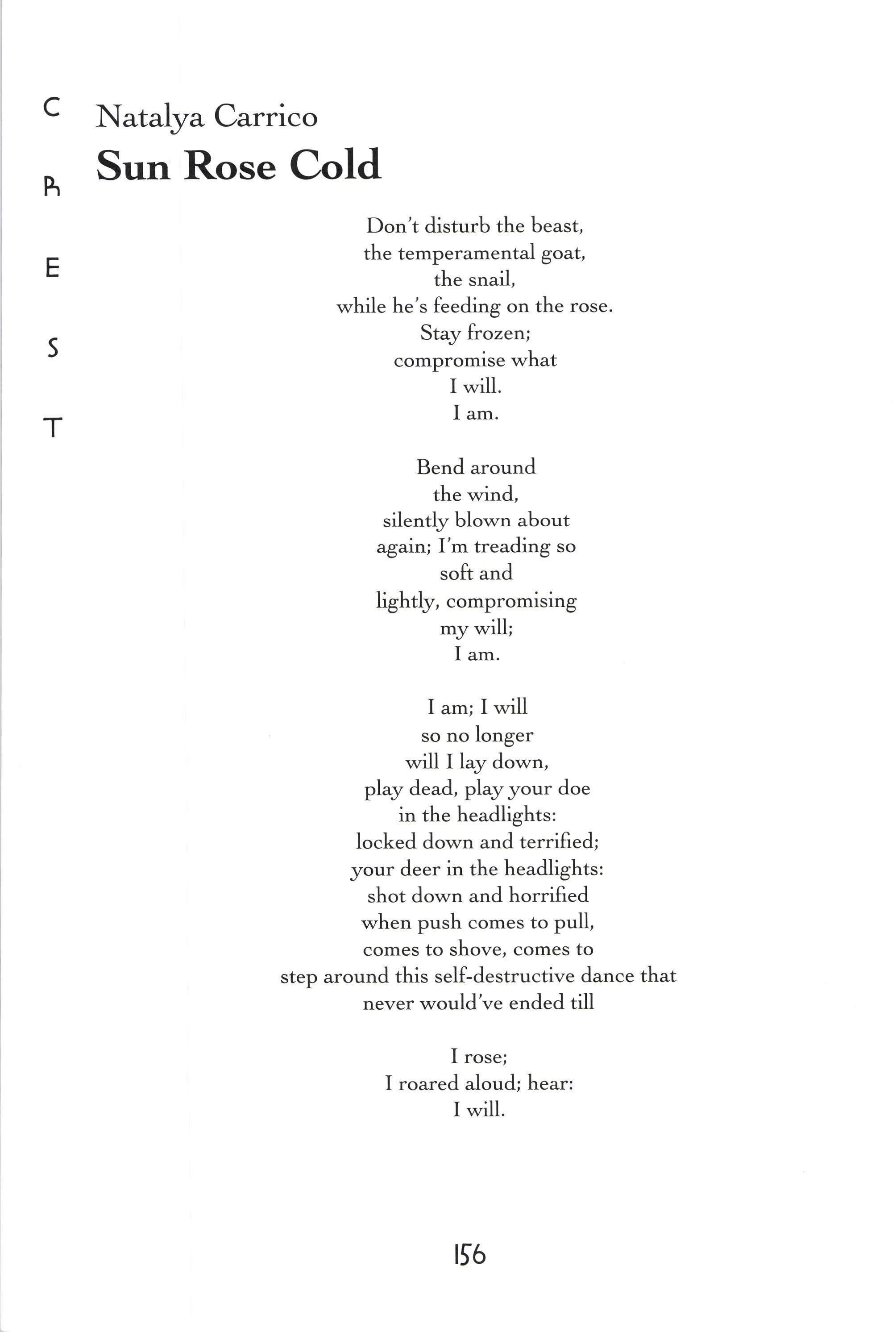
I am; I will so no longer will I lay down, play dead, playyour doe in the headlights: locked down and terrified; your deer in the headlights: shot down and horrified when push comes to pull, comes to shove, comes to step around this self-destructive dance that never would've ended till
I rose; I roared aloud; hear: Iwill.
c
E 5
r56
I am.
I am; I will;
So no longer will I laydown, play dead, play this beat-down, gun-s\r, mart5rr: pitiful; I rose; I roared. I will. I am.
"Rose" - A Perfect Circle
Rose's shirt still smelled like him.
It was green and textured like long underwear, soft and warrn on cold nights. That night, it was cold enough to freeze the mucus in your nose, and the ground w:rs Ers hard as the disgust of his eyes had been.
The green shirt did not mal<e Rose any wanner this time. She had propped herself up against the headboard, her gaze stuck on the staflJr', frozen slry outside her window. ***
"I love you," they breathed simultaneously.
Laughter and dim candlelight in the bedroom as the dark-haired boy shifted beneath the sheets.
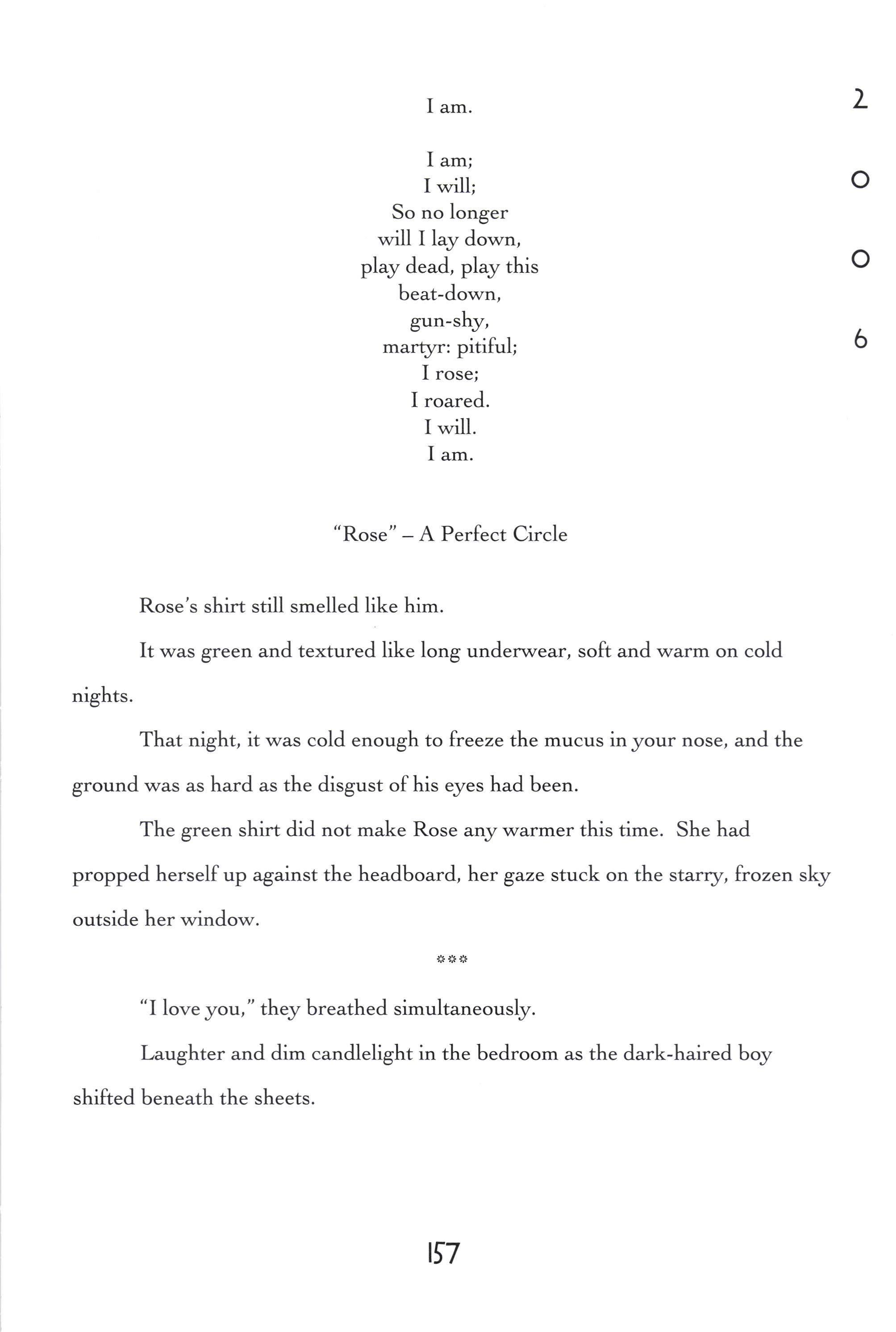
L o o 6 157
"I love when that happens," Rose sighed, and smiled contentedly at her boyfriend. He was really a beautiful person - not just physicalfr, she thought, h but inside, he was beautiful, too. Gorgeous. Sexy. Amazing.
"I love when it's justyou and me," he breathed, lJ rg back against the E pillow with one arm behind his head and the other extended to clasp hands
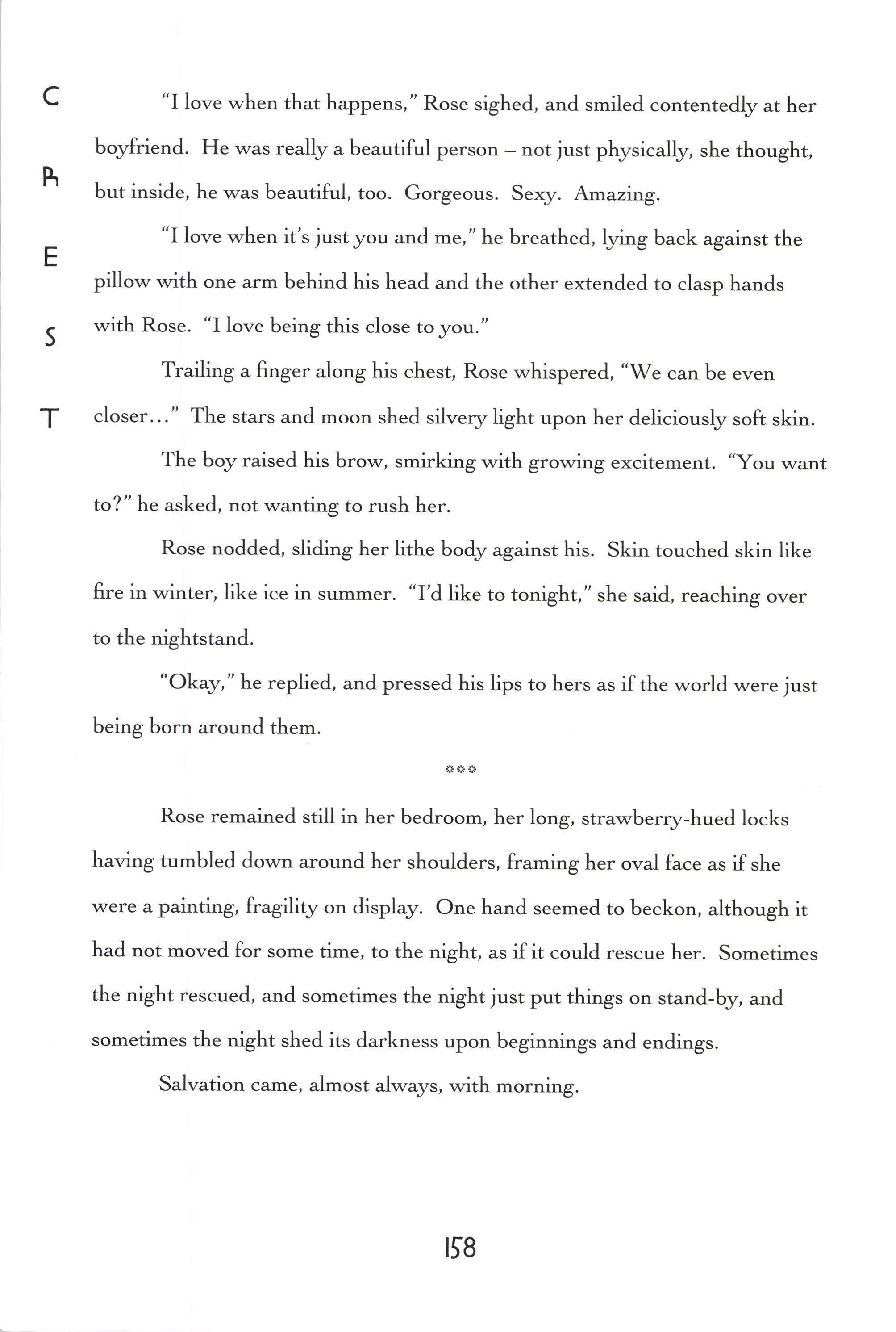
S with Rose. "I love being this close to you."
Trailing a flnger along his chest, Rose whispered, "We can be even
T closer..." The stars and moon shed silvery light upon her deliciously soft skin.
The boy raised his brow, smirking with grorving excitement. "You want to?" he asked, not wanting to rush her.
Rose nodded, sliding her lithe body against his. Skin touched skin like {ire in winter, Iike ice in summer. "I'd like to tonight," she said, reaching over to the nightstand.
"Okay," he replied, and pressed his lips to hers as if the world were just being born around them.
Rose remained still in her bedroom, her long, strawberry-hued locks having tumbled down around her shoulders, framing her oval face as if she were a painting, fragility on display. One hand seemed to beckon, although it had not moved for some time, to the night, as if it could rescue her. Sometimes the night rescued, and sometimes the night just put things on stand-by, and sometimes the night shed its darkness upon beginnings and endings.
Salvation came, almost always, with morning.
C
r58
They made love on that chilling evening, all alone in the small house save for an unassuming black cat.
Rose felt herself extending beyond time, beyond her body, beyond her lover's moans, and beyond the emptiness of her thoughts.
"You are a religious experience," she told him after they had finished and grown tired.
He laughed and kissed her neck. "You are a goddess," he replied. "You make me feel blessed to even breathe the same air."
Rose giggled, his words tickling her. She snuggled into his chest and sighed. His scent 6.lled her nostrils and bathed her vrith warmth. "Was I what you wanted?" Rose asked, her mouth lightly grazing his skin vrith each word she spoke.
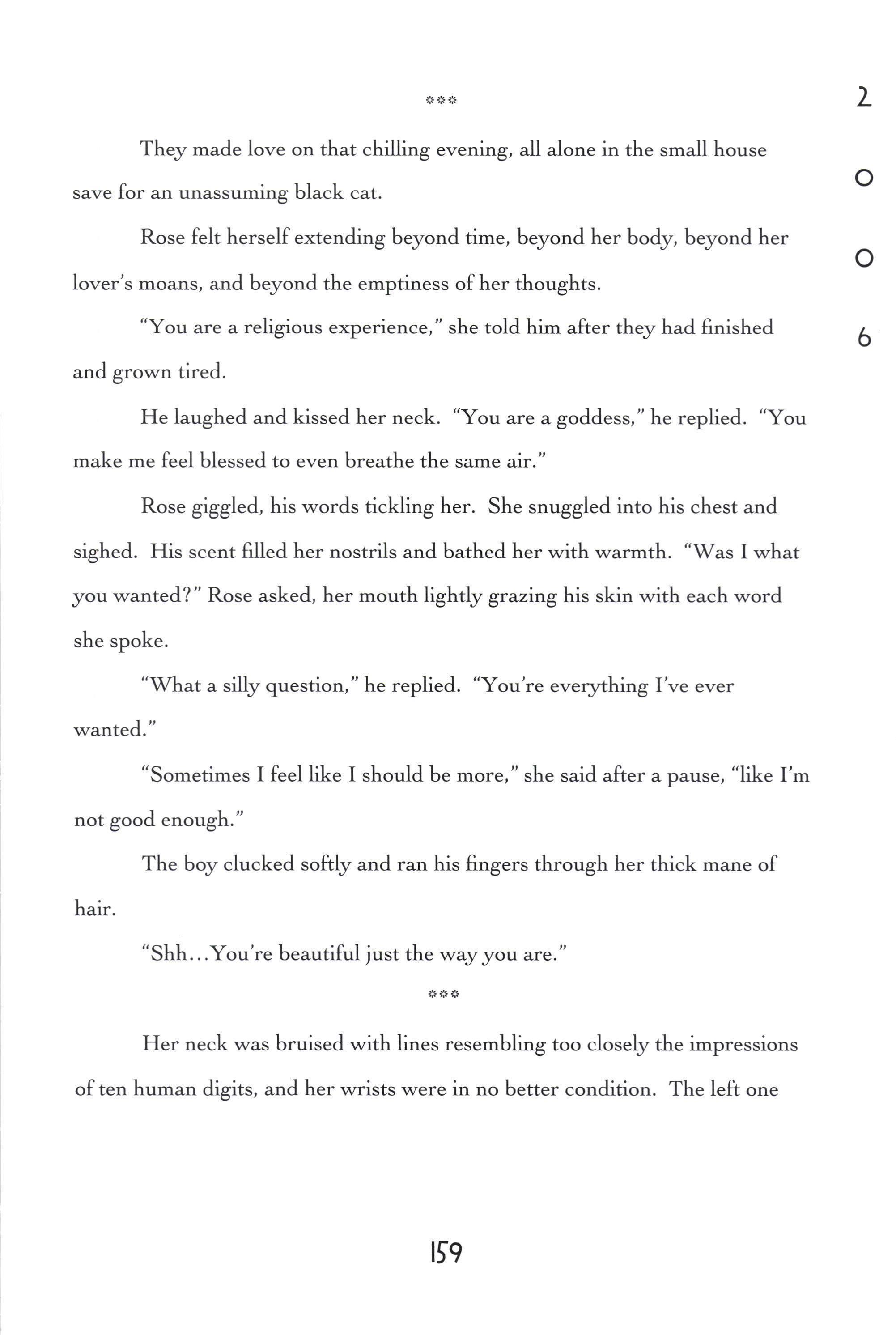
"What a silly question," he replied. "You're eveqrthing I've ever wanted."
"Sometimes I feel like I should be more," she said after a pause, "like I'm not good enough."
The boy clucked softly and ran his fingers through her thick mane of hair.
"Shh...You're beautiful just the wayyou are."
Her neck was bruised with lines resembling too closely the impressions of ten human digits, and her wrists were in no better condition. The left one
L o o 6
r5e
had been badly sprained, and her right arm had been accidentally lacerated by her own nails. Otherwise, Rose appeared completely unharmed and unscathed, and the light of the wintry moon shining through the open window made her skin glow like pale fire.
"I can't believe you'll be gone for that long," he said, nearly incredulously. "It makes me wonder ifyou'll be mine whenyou come back."
TRose scoffed. "It's just shy of a month. I'm not going to Zanzrbar or anyhing."
"StiJ.l, " her boyfriend protested.

"Still what?" Rose asked, shifting onto her side to face him. She had just gone to the bathroom to pee and was feeling mighty grand, almost ready to fall asleep beside her love. Was he going to make this evening difficult?
"Still, I'm not sure you'll come back."
"You're daft," Rose joked, then more seriously added: "Love, why do you fear that? I'm coming back!"
He rolled onto his back, then, and looked up at the ceiling, and Rose sighed, sliding on the green, Iong-sleeved shirt that was sitting in a contorted mess beside her feet.
"I dunno," he sighed. "I'm just not used to you being away from me. I like knowing you're close so I don't get lonely."
Rose chuckled quietfr, brushing a strand of hair from the boy's brow. "I'm always withyou," she said. "You'll get used to me being away in no time, and then I'll be back, andyou can see me again."
c h E s
160
She reached out her hand to caress his shoulder and saw him flinch.
"'W'hat?"
"Don't... touch me."
Rose heaved a sigh. "'W'hat's wrong withyou?"
Her boyfriend was silent. His eyes, however, screamed with a thousand voices. Rose attempted consolation again and ran her fi,ngers through his hair.
"Stop," he hissed, but Rose only moved closer.
"You're being completely irrational," she contested. "I don't see what the big problem is."
Her boyfriend looked away from her and out into the night. As Rose continued to move her hand along his brow, she noticed his lip curl with repulsion.
"I don't wantyou to go," he whispered, not angrily, but with a touch of melancholy.
"I'm going to go," Rose asserted. "It won't be for that long. I'm going to miss you, too. I mean, I'll even write if you want."
"But tomorrow is so soon," he protested.
"That's why I'm here withyou no.w," Rose said, t5,ang to keep the boy calm. She reached over and attempted to wrap her arms around him, but she was suddenly shoved away.
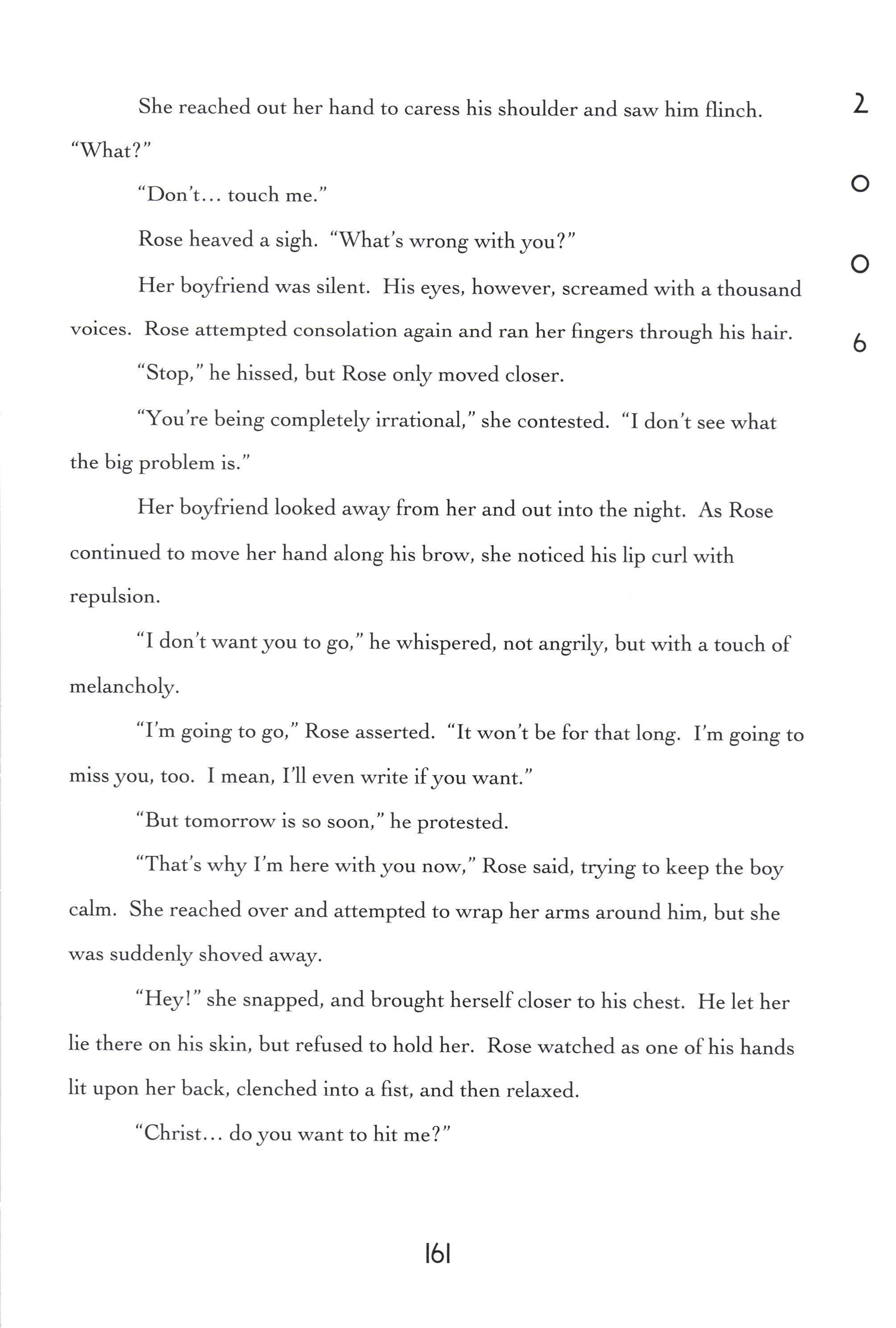
"Hey!" she snapped, and brought herself closer to his chest. He let her lie there on his skin, but refused to hold her. Rose watched as one of his hands lit upon her back, clenched into a fist, and then relaxed.
"Christ... do you want to hit me?"
L
O
o
6
t6t
"No," he sputtered. "I... I want to hold you."
Rose wrinkled her brow in confusion. "Then... *hy don'tyou?" h
She again attempted to lift her lover's hands and place them around her shoulders, but he did not compl;r easily. For a few seconds, they scuffled E there, Rose trying to pry his hands away from his body, bewildered - and S nearly disgusted - by his paradoxical actions. Finally, she succeeded, and felt the comfort of his body heat as she let her head melt into the space between his T head and shoulder.
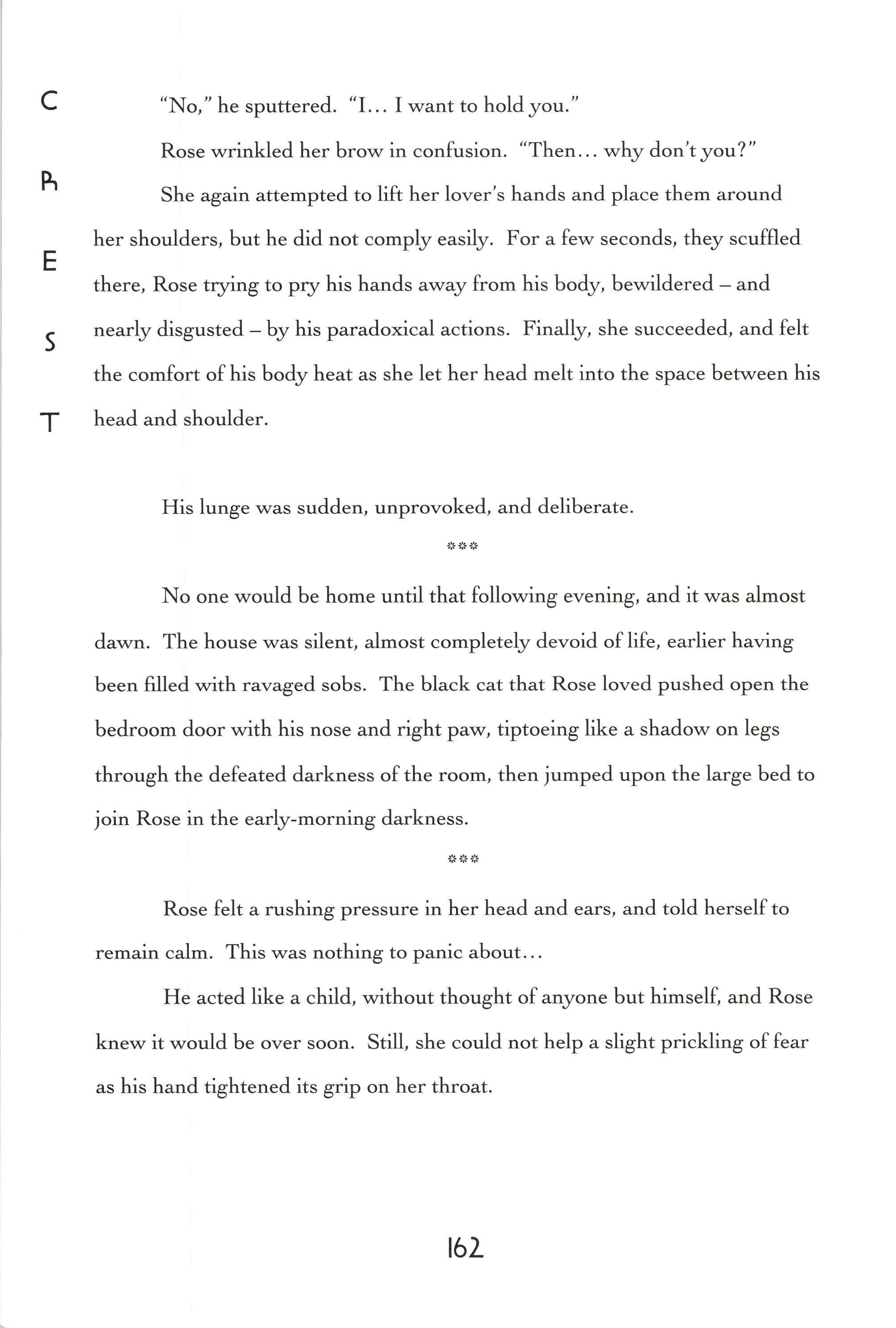
His lunge was sudden, unprovoked, and deliberate
No one would be home until that following evening, and it was almost dawn. The house was silent, almost completely devoid of life, earlier hawing been filled rvith ravaged sobs. The black cat that Rose loved pushed open the bedroom door with his nose and right paw, tiptoeing like a shadow on legs through the defeated darkness of the room, then jumped upon the large bed to join Rose in the early-morning darkness.
Rose felt a rushing pressure in her head and ears, and told herself to remain calm. This was nothing to panic about...
He acted like a child, without thought of anyone but himself, and Rose knew it would be over soon. Still, she could not help a slight prickling of fear as his hand tightened its grip on her throat.
C
r6z
"Get off of me, " he growled in a tone of voice that would have made Rose gag if she had not been keeping herself motionless in his grasp, slowing her breathing to a mere trickle to keep herself from choking.
"'W-hy?" she asked, knowing exactly why, knowing each of his reasons for having his other hand join the first at her neck.
A few seconds passed with no release, and Rose unrvillingly began to
panrc.
"L,et... let go!" she wheezed, and swung a desperate fist at the boy's beautiful face and suddenly predatory eyes. The punch mainly impacted upon his nose, jolting his mouth and the bottom of his eye as well.
He squeezed her flesh tighter, and Rose felt tears rage down her cheeks as she thrashed, washing away the blood that had splattered upon her skin.
A rough, pink tongue carefully investigated Rose's right fingertips, and finding a strange\z familiar aroma, the cat moved his muzzle to sniff at the wounds on Rose's arm. There was blood underneath her nails that was not her own, he discovered.
Purring confusedly, the cat watched his breath vaporize in the winterkissed room. The window had been open for over an hour, now, but his ebony fur provided all the heat he needed. There were several tail twitches of trepidation before the cat padded up to the girl's face, sat on her throat, and as the sun rose, began to lick her open eyes.
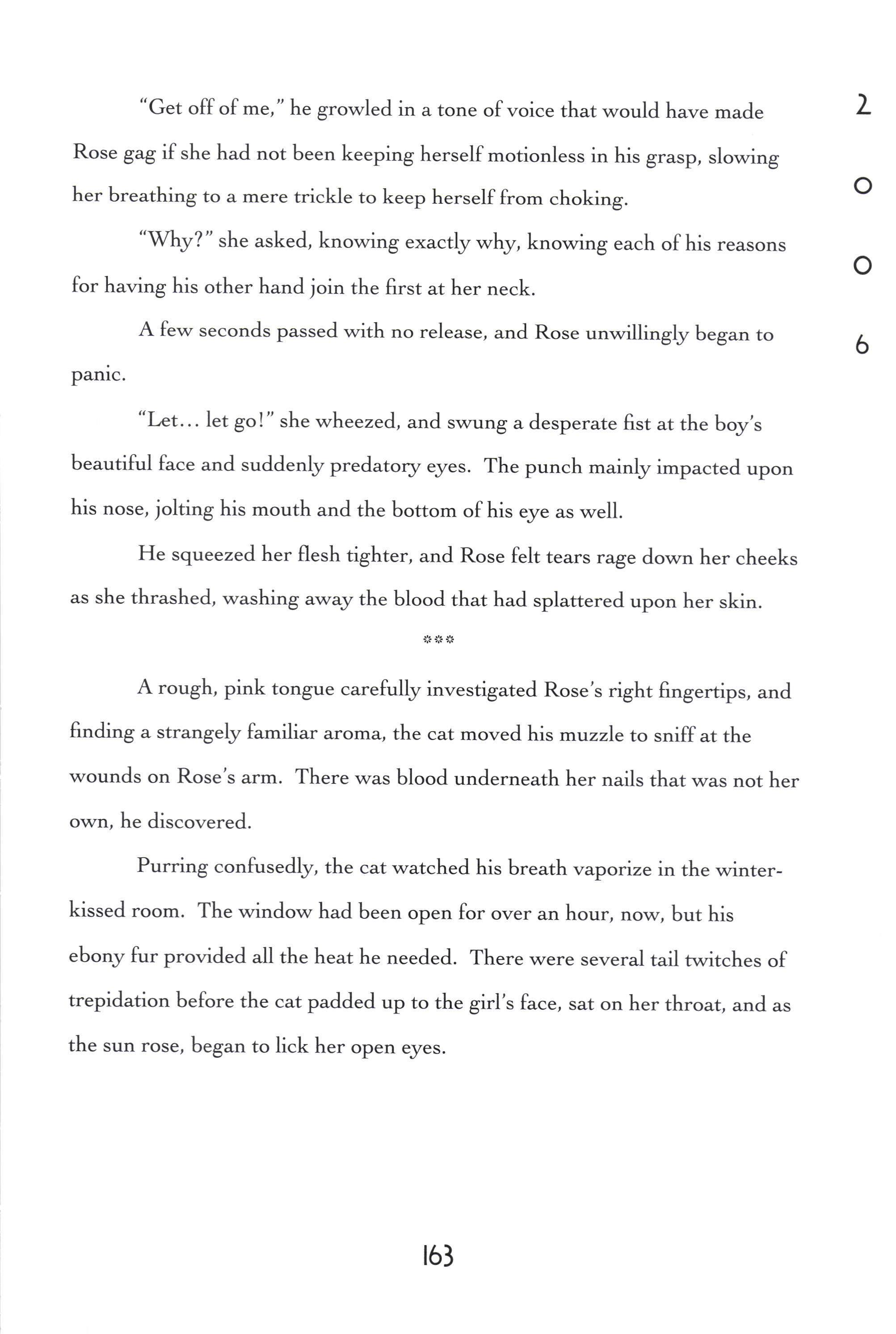
L o o 6
163
5
Kissing in the Rain
I've always wanted to be kissed in the rain Just something about a troubled sky
And the sewers would drain And the sewers would drain T Oh rain
My hair would be a nightmare Rained flat against m;r face And too long jeans would Tag behind collecting stubborn mud
And the sewers would drain And the sewers would drain Oh rain
Just something about kisses between raindrops Making my thumping heart race Two lovers together Beneath a thundering sky Or maybe meeting by chance How divine As the falling raindrops dance
And the sewers would drain And the sewers would drain Oh rain, oh rain
But I need to stop this dreaming Of drumming heart, rainfall love There is doing to be done So instead I walk home alone
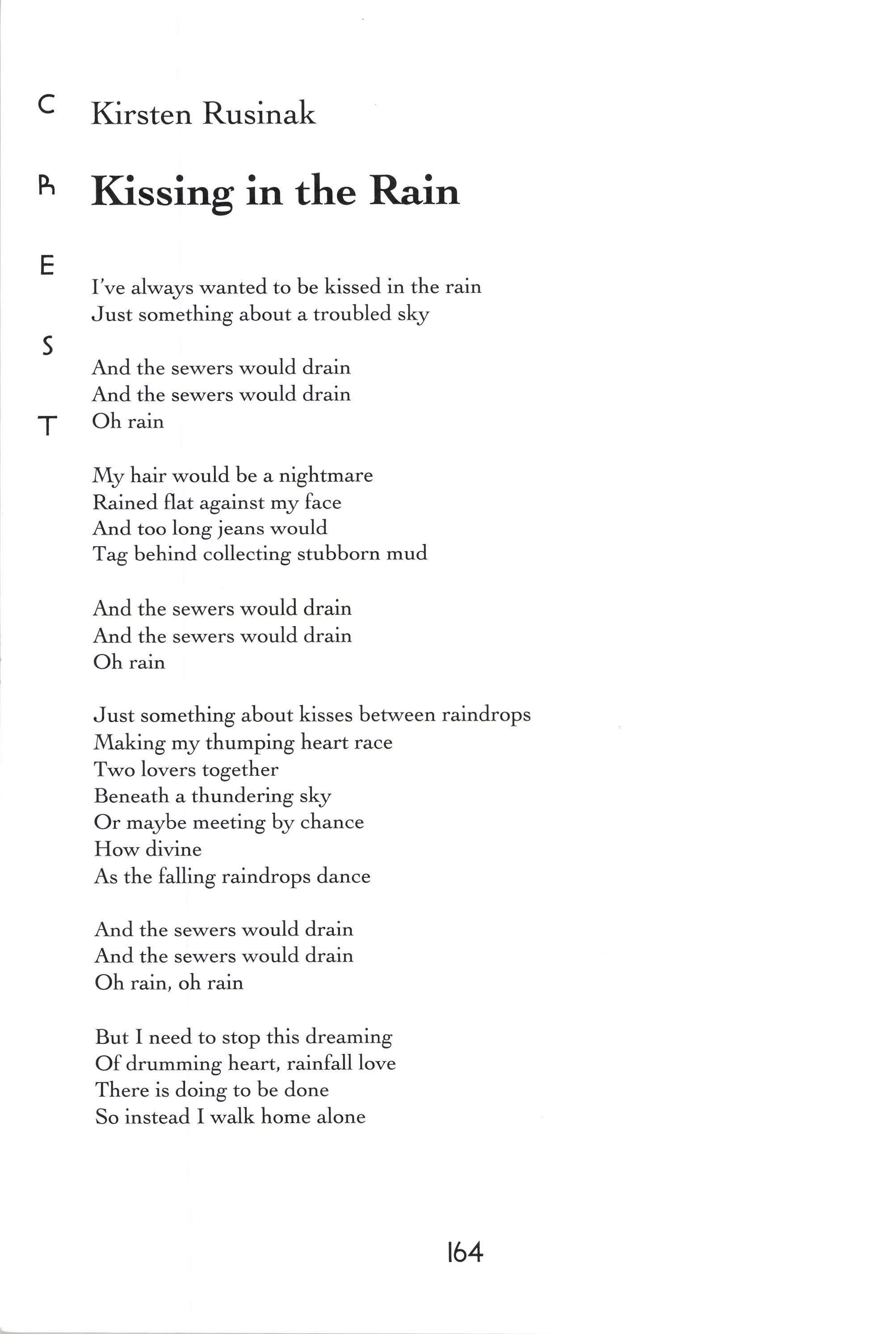
c h E
Kirsten Rusinak
164
Just one small, solitary me
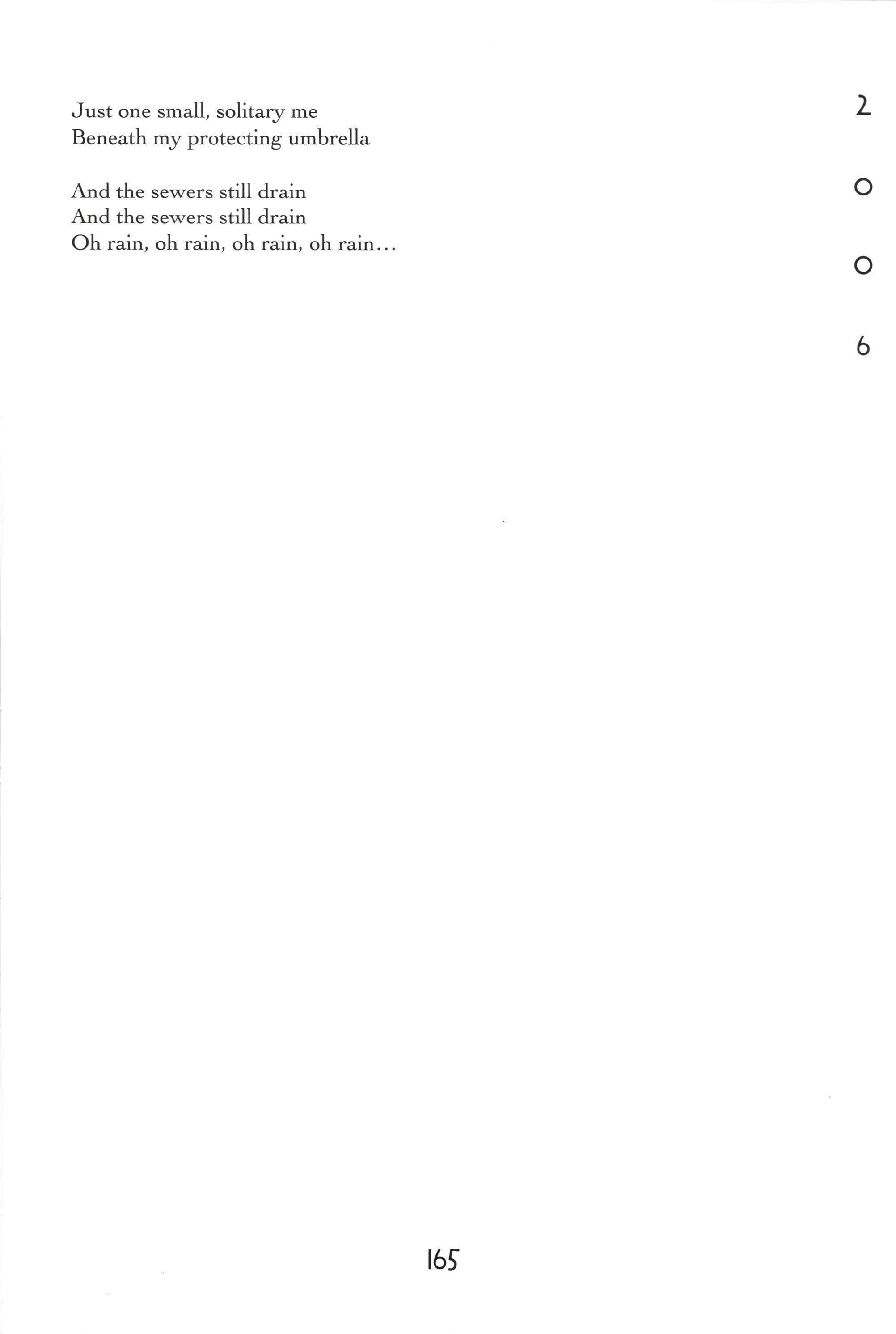
Beneath my protecting umbrella
And the sewers still drain
And the sewers still drain
Oh rain, oh rain, oh rain, oh rain
L o o 6 165
Sarah Abarbanel is Yasmin Abdalla is halfivay to yellow.
Ixtla Arceo-Witzl boycotts tap.
Derek Baron is our dream date.
Alison Barthwell speaks her mind.
Gregory Baycharov sees sideways.
Carly Beach likes rhinestones.
Robin Berrnan has probably consumed more tea than you will ever see in your life.
Allison Brackley opposes sex in space.
TCarl Brozek is Obsessively Compulsive.
Fanisha Calvert wears original clothing.
Annie Cantafio loves.
Nata\ra Carrico is the company carrot.
Sarah Charnbliss betrays the White Sox for her job.
Barbara Chudoba used to live next door.
Stephanie Co dances alone in her room.
Ashlen Courtney writes dreamily.
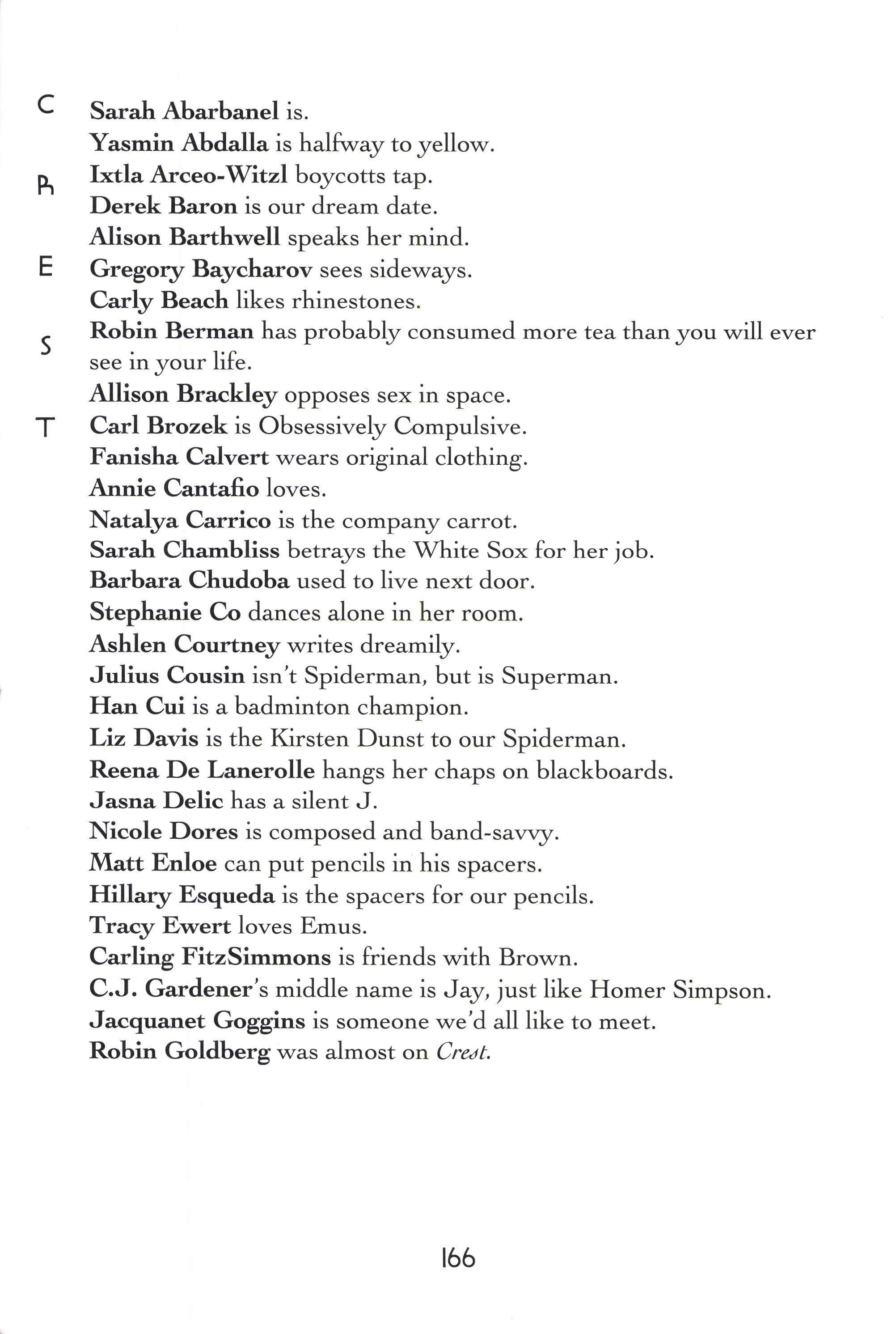
Julius Cousin isn't Spiderman, but is Superman. flan Cui is a badminton champion.
LizDavis is the Kirsten Dunst to our Spiderman.
Reena De Lanerolle hangs her chaps on blackboards.
Jasna Delic has a silent J. Nicole Dores is composed and band-saw5r.
Matt Enloe can put pencils in his spacers.
Hillary Esqueda is the spacers for our pencils.
Tracy Ewert loves Emus.
Carling FitzSimmons is friends with Brown.
C.J. Gardener's middle name is Jay, just like Homer Simpson.
Jacquanet Goggins is someone we'd all like to meet.
Robin Goldberg was almost on Credt.
c h E 5
r66
Jasmine Grayer is serenaded on carpets.
Jim Gullo kicks it.
Donorica Flarris has a wordy belt.
Matthew Heider eats pizzaprivately.
Raul Heredia makes us dizzy with glee.
Peter Kahn is a sage and a guru.
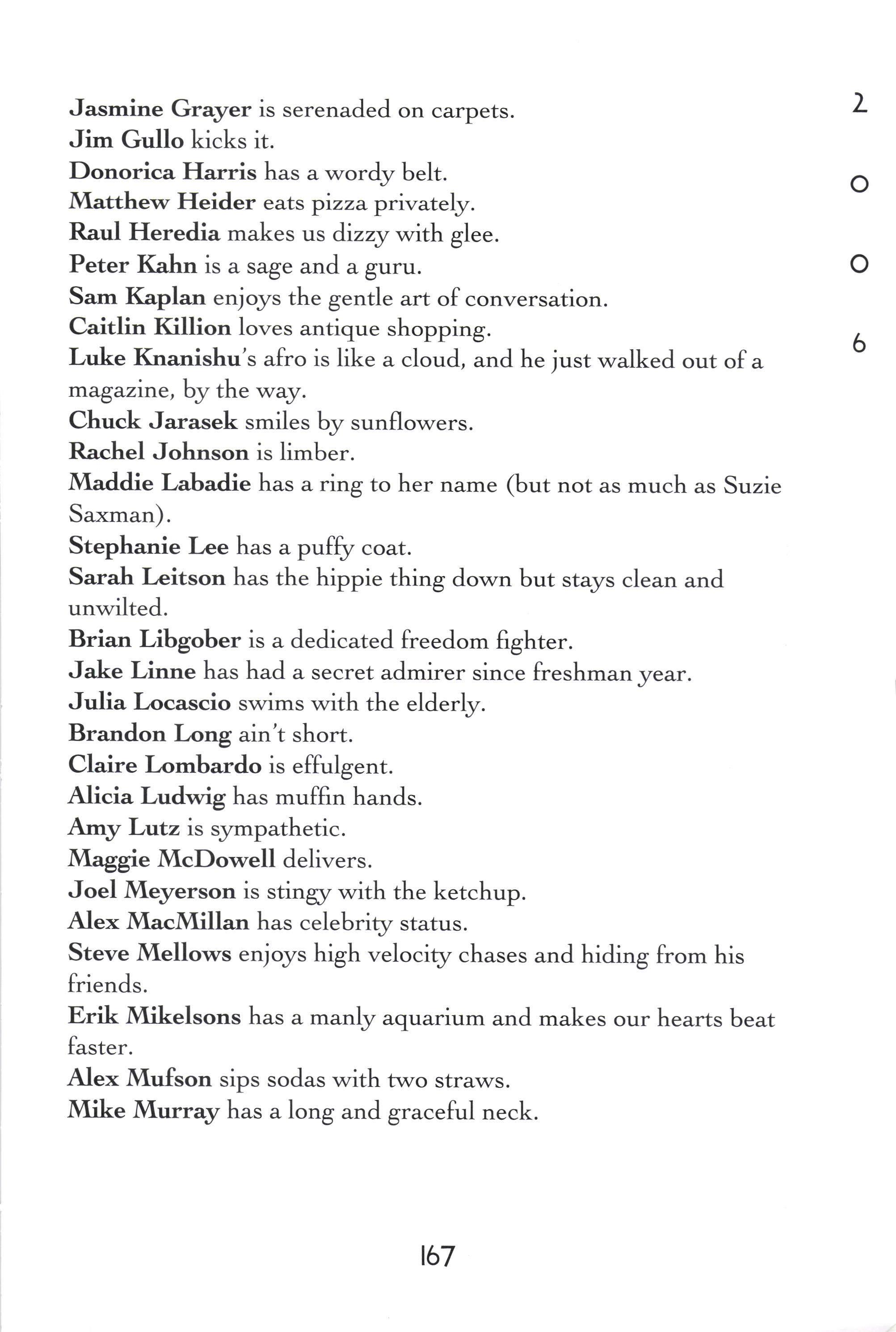
Sam Kaplan enjoys the gentle art of conversation.
Caitlin Killion loves antique shopping.
Luke Knanishu's afro is like a cloud, and he just walked out of a magazine, by the way.
Chuck Jarasek smiles by sunflowers.
Rachel Johnson is limber.
Madfie Labadie has a ring to her name (but not as much as Suzie Saxman).
Stephanie Lee has a pufry coat.
Sarah Leitson has the hippie thing down but stays clean and unwilted.
Brian Libgober is a dedicated freedom fighter.
Jake Linne has had a secret admirer since freshman year.
Julia Locascio swims with the elderly.
Brandon Lorg ain't short.
Claire Lornbardo is effulgent.
Alicia Ludwig has muffin hands.
Amy Lutz is s;rmpathetic.
Maggie McDowell delivers.
Joel Meyerson is stingr with the ketchup.
Alex MacMillan has celebriqr status.
Steve Mellows enjoys high velociqr chases and hiding from his friends.
Erik Mikelsons has a manl;r aquarium and makes our hearts beat faster.
Alex Mufson sips sodas with two straws.
Mike Murray has a long and graceful neck.
L o o 6 t67
Joe Muriello used to star onAll Tbat, but left when Amanda came.
Jane Papke rocks the circles.
Max Perry is an elliptical horizon and sometimes a black hole.
Sky Pickren should not be confused with that which is above us.
Liz Polk is the boot on Zabransky's porch.
Tom Re;rnolds-Ejzak's dashes are fitting.
Katie Richards is a close personal friend of Pete Doherqr.
Kirsten Rusinak lends scarves.
Phil Rivera has werewolf pants and a vest to match.
Alexis Sage: not to be confused with Alison Pepper.
TSirnon Schneider is a Renaissance Man.
Iman Shurnpert is striped.
Evan Simon dropped FUSH but embraces trees.
Stephanie Srnith has an underrated sense of sq,,le.
John Stoffer lives the American Dream.
Katie Sullivan is a blonde bombshell.
Teddy Swenson is loved by all of Oak Park.
Maria Villeda wears sunglasses at night.
Tabitha Watson is SOO talented.
JT Wank submitted to Credtjust so he could write this bio.
Michael Willis knows what he's talkin'about.
Gabrielle Worley is the Spoken-W'ordiest person on Trapezc.

AnniLa Yates has leg warmers for miles.
Richard Zabrans\r is an enigma.
Kendra Zager ripped her only shirt.
Tara Zenteno is last with style.
c h E 5
r68

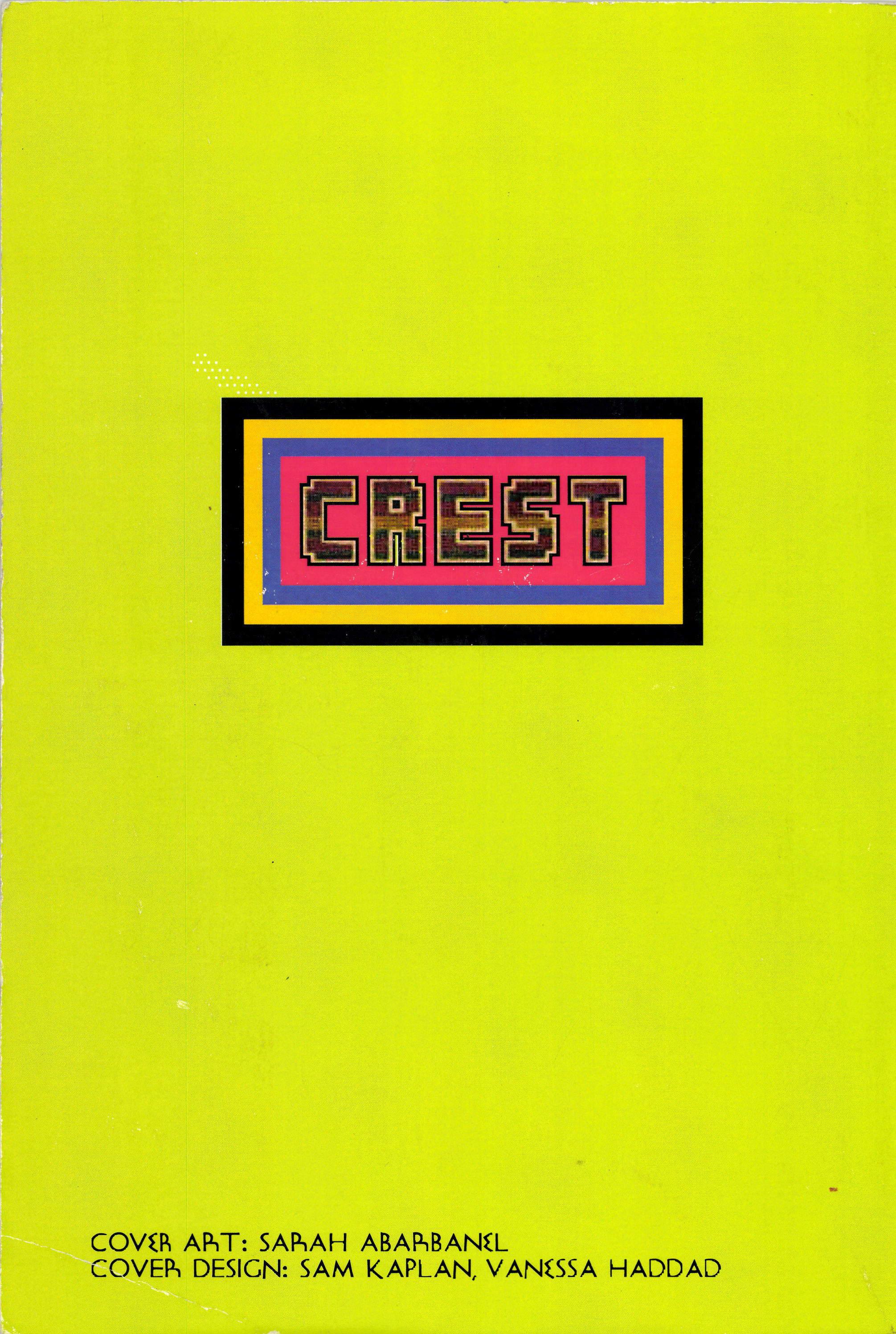
COVTB ABT: SAhAH ABAABANTL COVEh DESIGN: SAM KAPLAN, VAN{SSA HADDAD




























































 Polk
Polk

















































































































